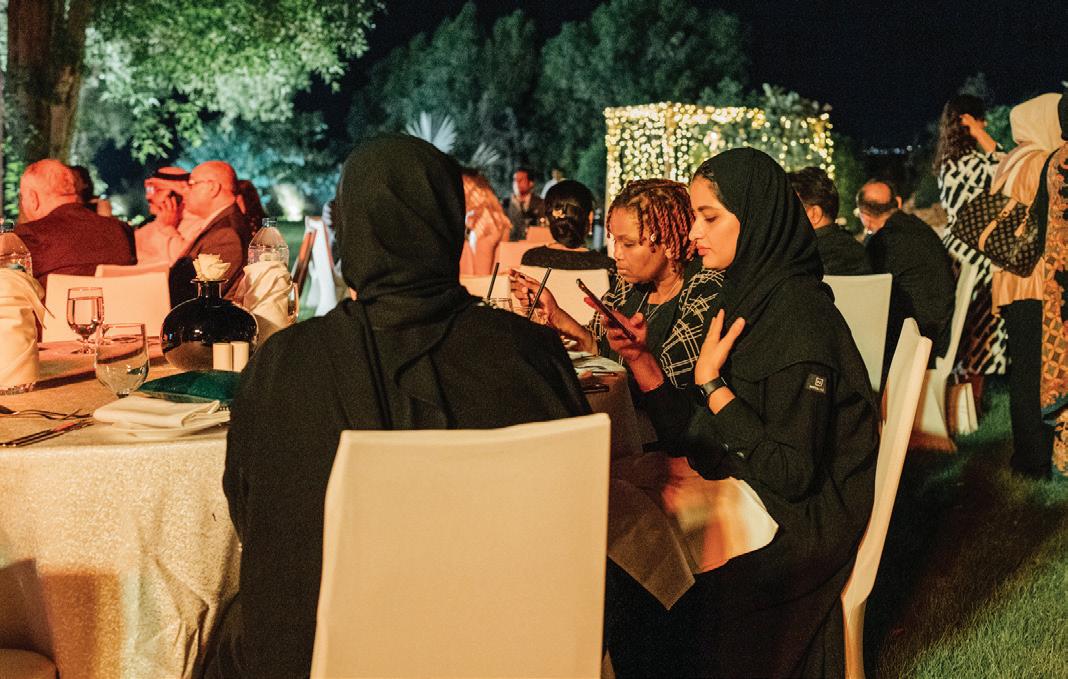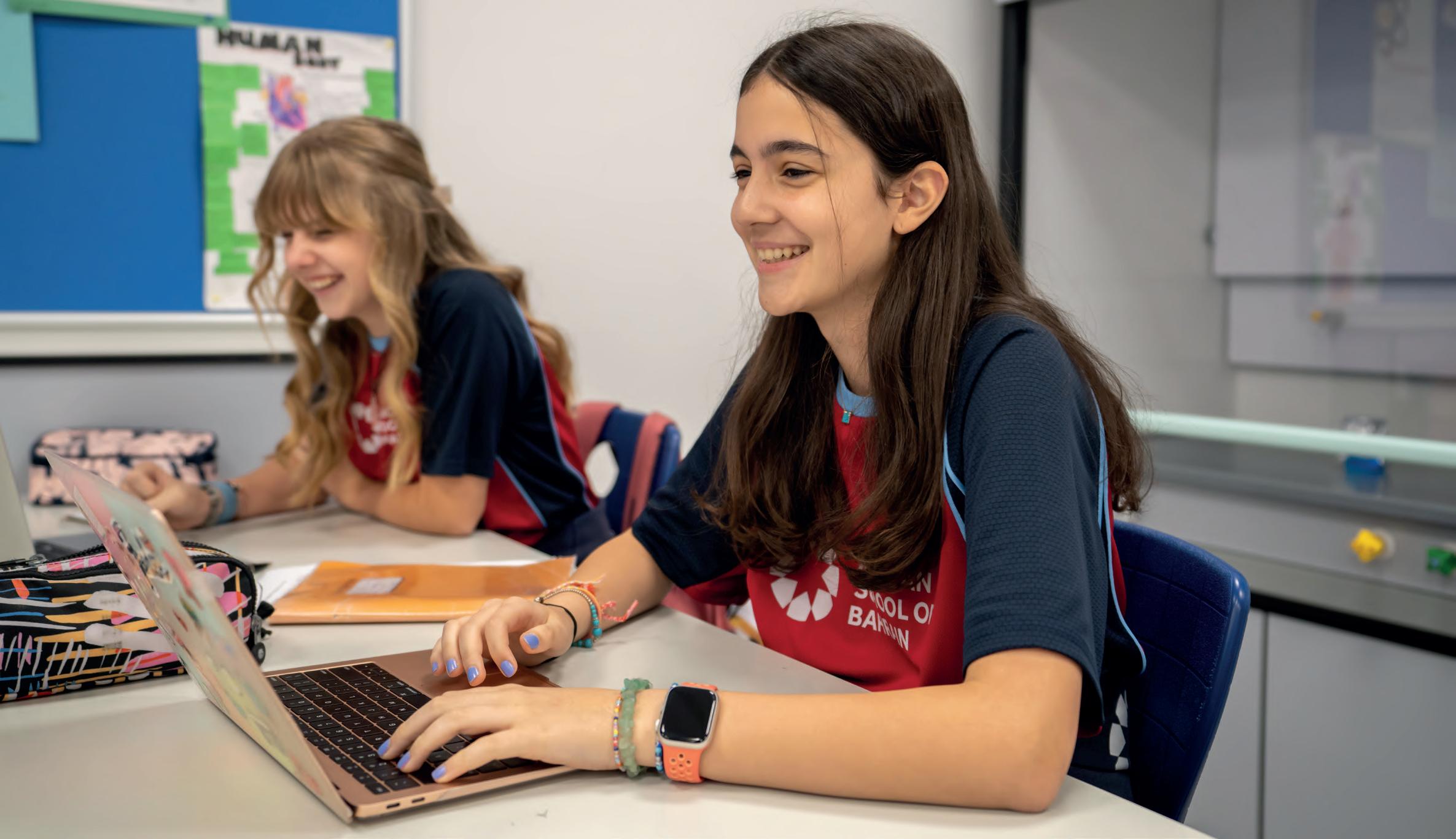The Bahrain Education Awards 2022



 Powered by
Powered by




 Powered by
Powered by
Many people involved in education became increasingly concerned over how Covid lockdown restrictions were affecting student education and the potential long-term consequences of this.
The last two years of the COVID-19 pandemic was perhaps the most challenging time faced by the education sector around the world, with schools shutting down suddenly and giving rise to a “new normal”.
To overcome the new and unexpected challenges they faced, many of Bahrain’s schools and universities have gone above and beyond in demonstrating excellence in education.
 Nick Cooksey CEO – Gulf Insider Media
Nick Cooksey CEO – Gulf Insider Media

nick@gulf-insider.com
With invaluable guidance from leading educators, Gulf Insider created Education_bh: Innovation & Excellence, a first-of-its-kind initiative to inform educators, students, and parents of the most important educational innovations across Bahrain’s schools and universities that improve the educational experience for students. By publishing this information we hope to encourage institutions to meet and share ideas and best practices.
I would like to thank our main sponsor Batelco for making this initiative possible.
Also, thanks to Mohammed Fakhroo and Brothers, Awal Plastics, Sky Audio, and Al Areen Palace and Spa who partnered with us for our celebratory event on 6th November.
A thank you is also due to all the advertisers within these pages for supporting this special publication.
And, of course, a massive thank you to the educational establishments in the Kingdom for providing Gulf Insider with so much valuable advice and encouragement while preparing this initiative.

Education_bh: Innovation and Excellence is a first-of-its-kind initiative to inform educators, students, and parents, of the most important educational innovations across Bahrain’s schools and universities.
We invited Bahrain’s leading schools and universities to share with us details of a recent (within the past 2 years) educational innovation/ specific area of excellence they enacted.
We wanted to learn:
l The background of the innovation
l The planning processes
l Challenges faced during implementation
l An assessment of results
l Lessons learned and, in hindsight, if things could have been done differently
Our aim:
l To provide a platform for recognizing and sharing significant innovations from schools and universities.
l Inform parents and students about these innovations.
l Promote cross-learning and sharing of best practices between educational institutions.
l Showcase Bahrain’s education sector both at home and internationally.

Education_bh: Innovation and Excellence provides schools and universities with an opportunity to share significant innovations that improve the educational experience of students.
Gulf Insider is a Bahrain-based online news aggregator, with over half a million followers, focusing on Bahrain, GCC, and international news. Visit the website www.gulf-insider.com

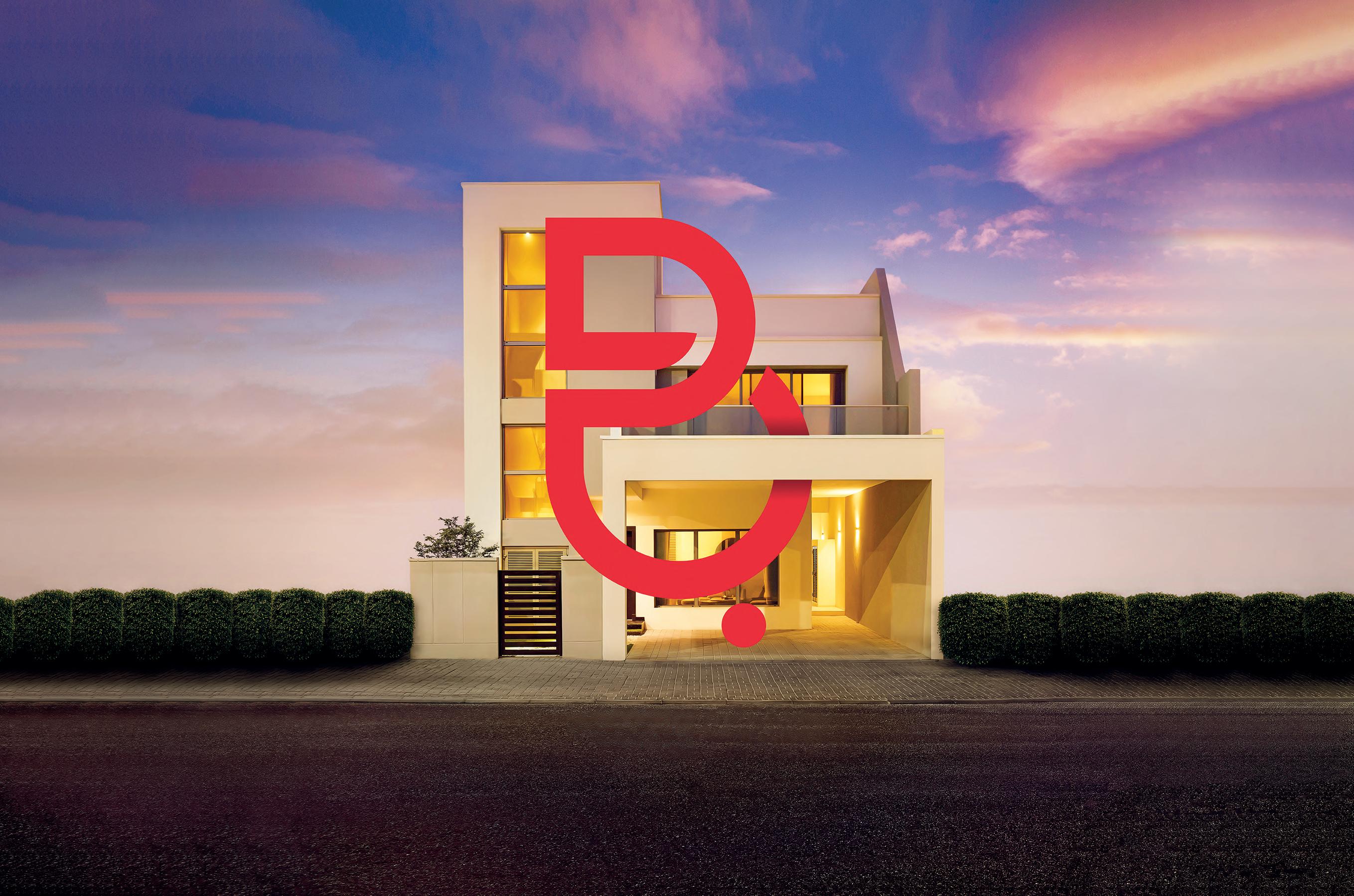
Powered by
Educational
in
Editorial Deepika Rao
Editorial Contributors Elyzabeth Ramirez Noor Almajed Vinita V
Sales & Business Development Charlie Cooksey Account Managers Noor Albasri Zain Alhanbali


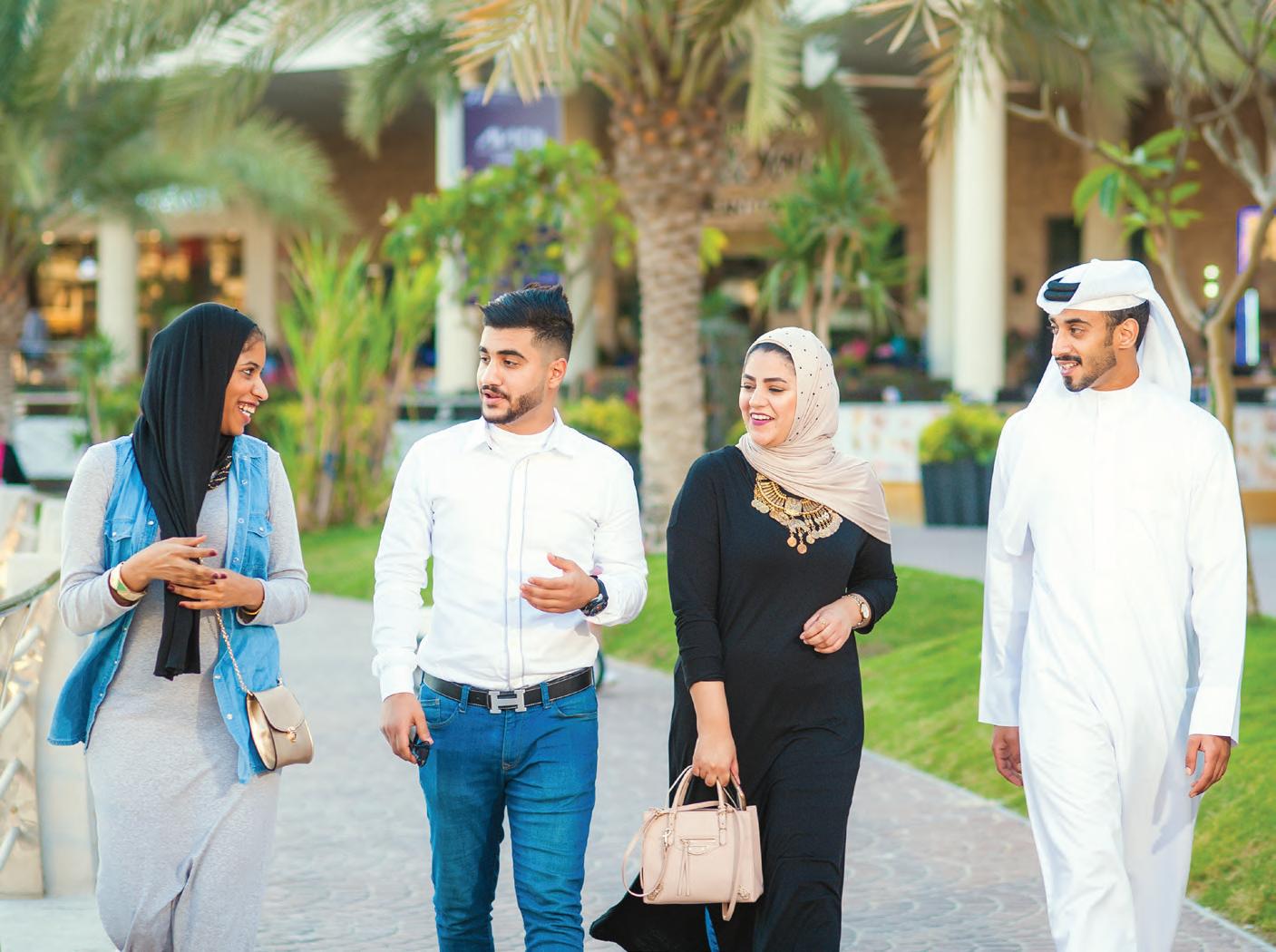
Admin & Finance Nikesh Pola Layout
Designs James Dhanraj S
Printed at Dar Akhbar Al Khaleej, Kingdom of Bahrain.
Registered with Ministry of Information approval no. TFI-431©. No part of this publication may be reproduced in any manner without the written permission of the publisher. All Rights Reserved. Views expressed in this magazine are not necessarily those of the publisher.

Abdul Rahman Kanoo International School
Innovation: Dual Language Safeguarding and Well-being Hub
Addressing the physical, mental, social, and academic well-being of students during and after the COVID-19 pandemic.
Abdul Rahman Kanoo School Diyar
Innovation: Mandarin Program
The first and only school in Bahrain to offer Mandarin as a third language to support Bahraini students in the quest for more global opportunities.
Ahlia University
Innovation: Launch of Master’s Programs in Financial Technology and Forensic Accounting
The university has launched two cutting edge and highly innovative Master of Science programs - FinancialTechnology and ForensicAccounting.
Al Hekma International School Innovation: Project Based Learning Focusing on STEAM and Entrepreneurship
Preparing students with essential STEAM and Entrepreneurship skills like problem-solving and critical thinking, required to thrive in 21st Century workforce.
Al Rawabi Private School Innovation: House of The Future
Students of Grade 7 designed their “House of the Future” using an architectural design software while considering the ecological footprint of their designs.
American School of Bahrain
Innovation: From Pearls to Palm Trees - Developing an Appreciation of Natural Forms in Bahrain
ExploringAdobe Illustrator, middle school students created wallpaper designs that reflected the natural and diverse beauty of Bahrain.

American University of Bahrain Innovation: A Dual-modality Experience
At the beginning of the COVID-19 pandemic, the university transitioned to Emergency RemoteTeaching (ERT), without missing a single hour of class - giving students a sense of normalcy in the unprecedented times.
Applied Science University
Innovation: Measuring Scientific Research Trends Using an Online Management System (OSRMS)
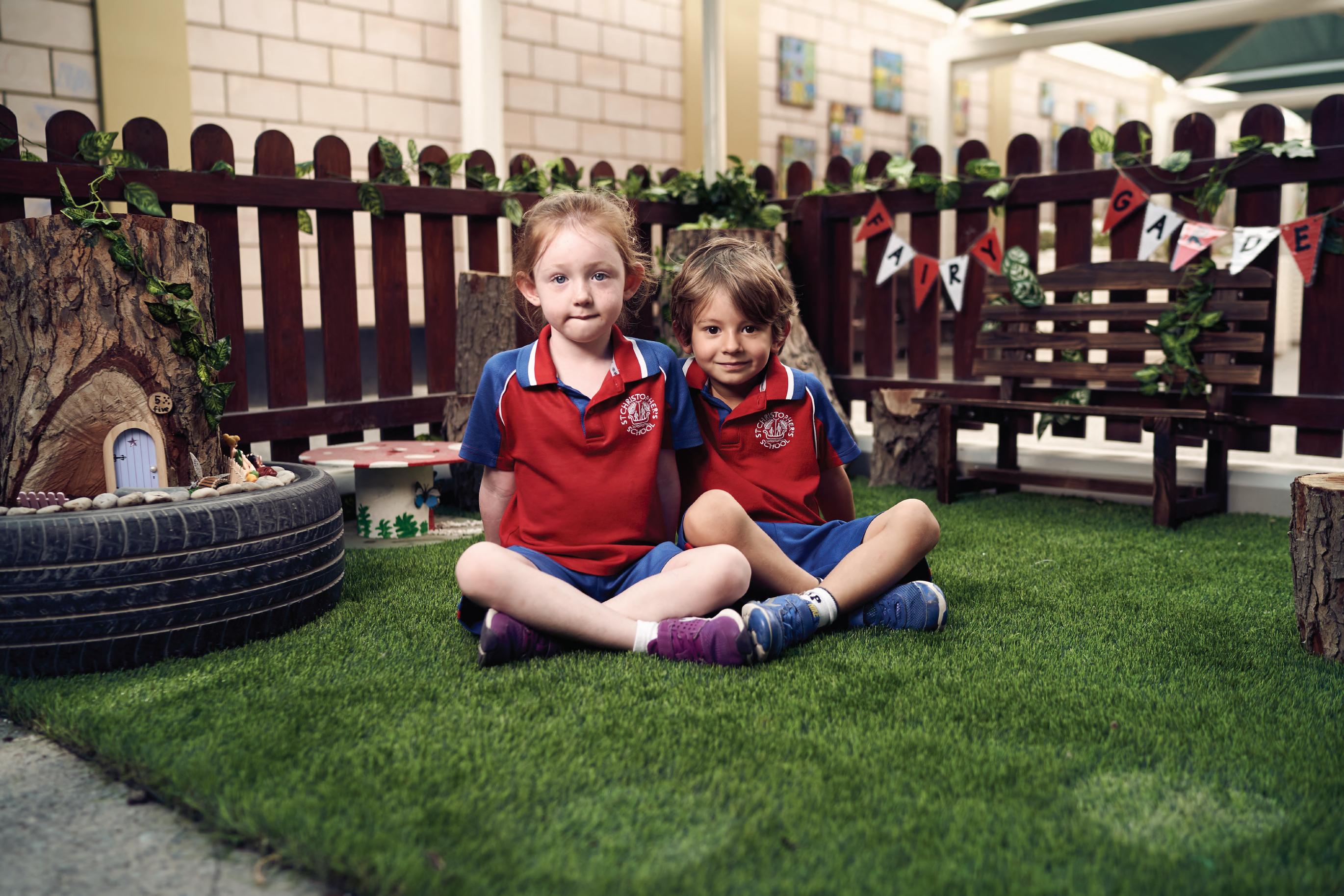

A new system to support the research management of the University in order to identify improvement areas and publish research papers in international journals.
Bahrain Bayan School Innovation: Bridge Project
A team of students from the Math andArt departments worked together with an engineering team to design a bridge that would link two of the school’s campuses while ensuring a safe passage.
Bahrain School
Innovation: Establishing Professional Learning Communities to Support Better Teaching Practices
Professional Learning Communities (PLC) established by the school are revisiting curriculum planning and assessment to ensure that all students achieve academic success.
The British School of Bahrain Innovation: Beyond BSB
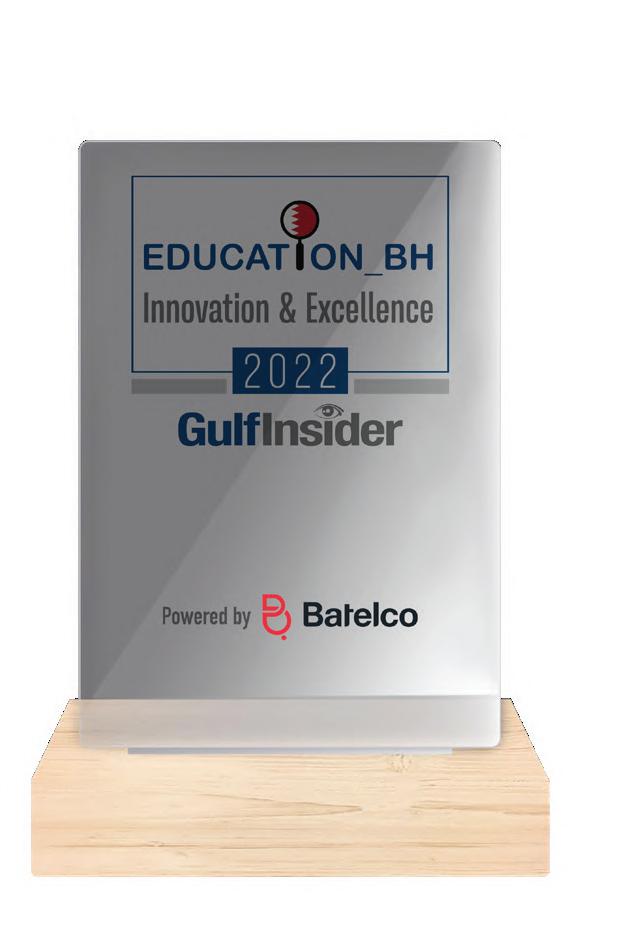
The program is about student enrichment and their enhancing future prospects through additional activities and developing new skills and passion.
British University of Bahrain
Innovation: CAFTECH - Self-Watering Pot Made from Coffee Waste
A self-watering pot made by students from fiberglass and coffee grounds to promote sustainability and revolutionize coffee waste management locally.
Gulf University
Innovation: Values and Practices Towards Innovation & Sustainability
The University has created a learningspace,‘STUDIOCAFÉ’ with green house and innovative seating arrangements where students can sit, relax, discuss and work on their projects.
Hawar International School Innovation: Virtual Annual Art Fair 2020-21
Providing a virtual experience of the annual art fair that displayed students’ artistic creations during the COVID-19 pandemic.
Ibn Khuldoon National School Innovation: Team Nasser: A Volunteering Journey to Change the Lives of Others
A student-led initiative to help and unite the most vulnerable individuals in the Bahraini community.
The International School of Choueifat - Manama Innovation: The SABIS® Integrated Learning System (ILS)
The school’s Integrated Learning System allows for the early detection and closure of learning gaps, enhance analytical skills, and promote self-learning among students.
Mutamahin
Innovation: Market-Based Practical Training Program
A free-of-cost upskilling program to provide practical training for candidates and equipping them with relevant skill-sets for the job market.
Nadeen School
Innovation: Unique Child Program
Ensure children remain engaged in the classroom by accessing learning that is fun, challenging, and relevant to them.
Riffa Views International School
Innovation: Internship Program
Bridging the gap between education and the real world, providing students with hands-on internships at local companies in sectors like psychology, marketing, journalism, finance, and real estate.
Royal University for Women
Innovation: RUW Students’ Achievements at INJAZ
Over the course of three years, students have demonstrated exceptional entrepreneurial skills at INJAZ Bahrain - winning awards for Social Impact, Company of theYear, and Innovation.
St Christopher’s School Bahrain
Innovation: The Future Ready Curriculum (FRC)
A holistic framework to equip students with modern knowledge, skills, and understanding necessary to serve as “Role Models of theWorld.”
University of Technology Bahrain
Innovation: Accelerated Campus Developments Through Enhanced Learning Opportunities
A project to upgrade the university campus, its classrooms, labs, facilities and more along with the introduction of new programs relevant to the current job market.
<follow progress> @utb_bahrain
College of Administrative and Financial Sciences_
Bachelor of Science in International Business (ECBEAccredited)
Bachelor of Science in Business Informatics (ECBEAccredited)
College of Engineering_
Bachelor of Science in Mechatronics Engineering (ABET- EAC)
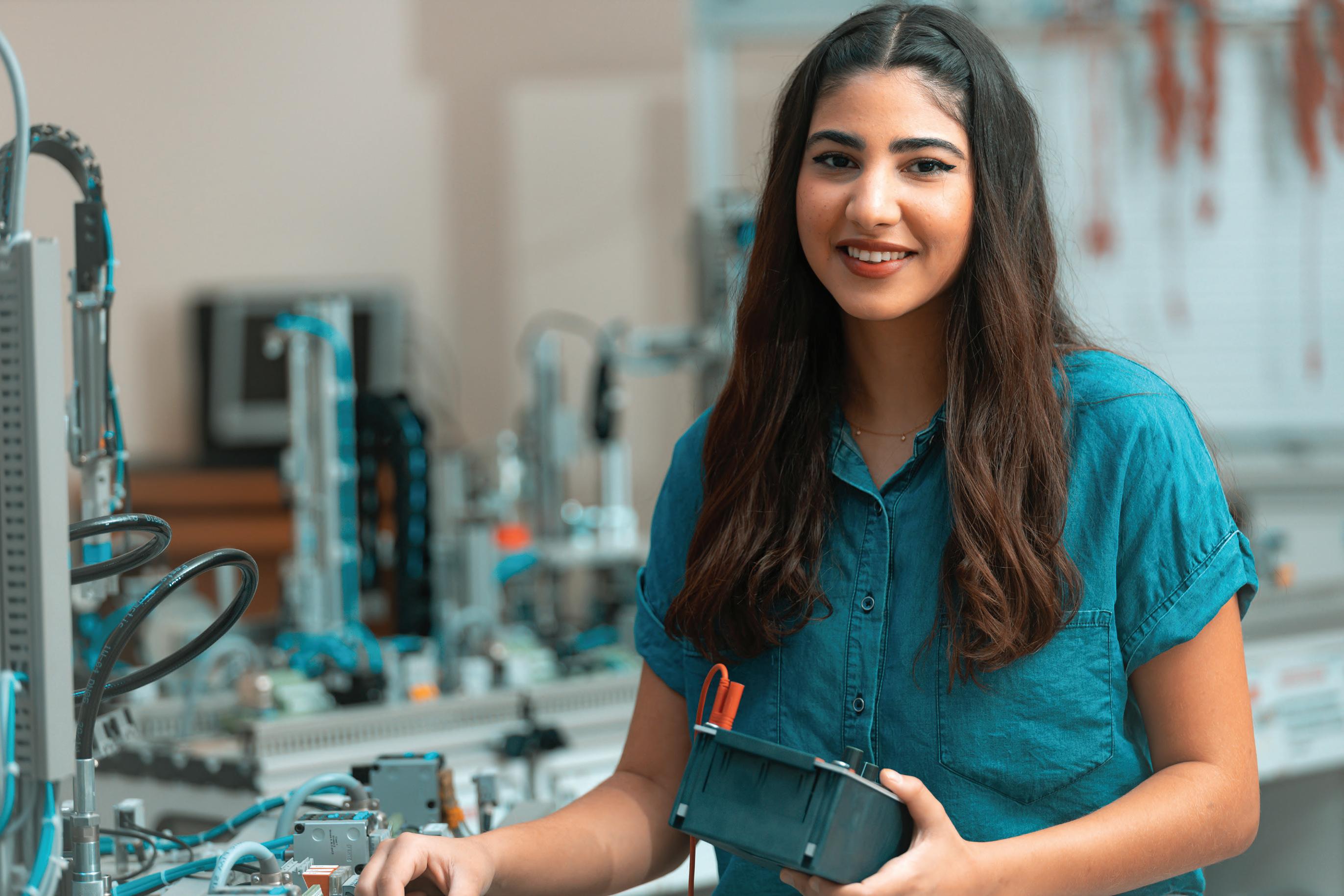

College of Computer Studies_
Bachelor of Science in Computer Science (ABET - CAC)
Bachelor of Science in Computer Science (ABET-CAC)



Bachelor of Science in Computer Science (ABET-CAC)
Business Informatics (ECBE Accredited)
Bachelor of Science in Business Informatics (ECBEAccredited)
Bachelor of Science in Accounting and Finance
Bachelor of Science in Accounting and Finance
Bachelor of Science in Accounting and Finance


Master of Business Administration (ECBEAccredited)


Master of Business Administration (ECBEAccredited)
Master of Business Administration (ECBE Accredited)


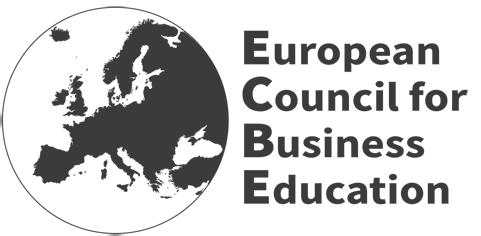

Bachelor of Science in Informatics Engineering (ABET- EAC)
(ABET - EAC)
Bachelor of Science in Informatics Engineering (ABET- EAC)
Bachelor of Science in Information Technology
Bachelor of Science in Information Technology
Bachelor of Science in Information Technology




Bachelor of Science in Environmental Engineering
Bachelor of Science in Environmental Engineering
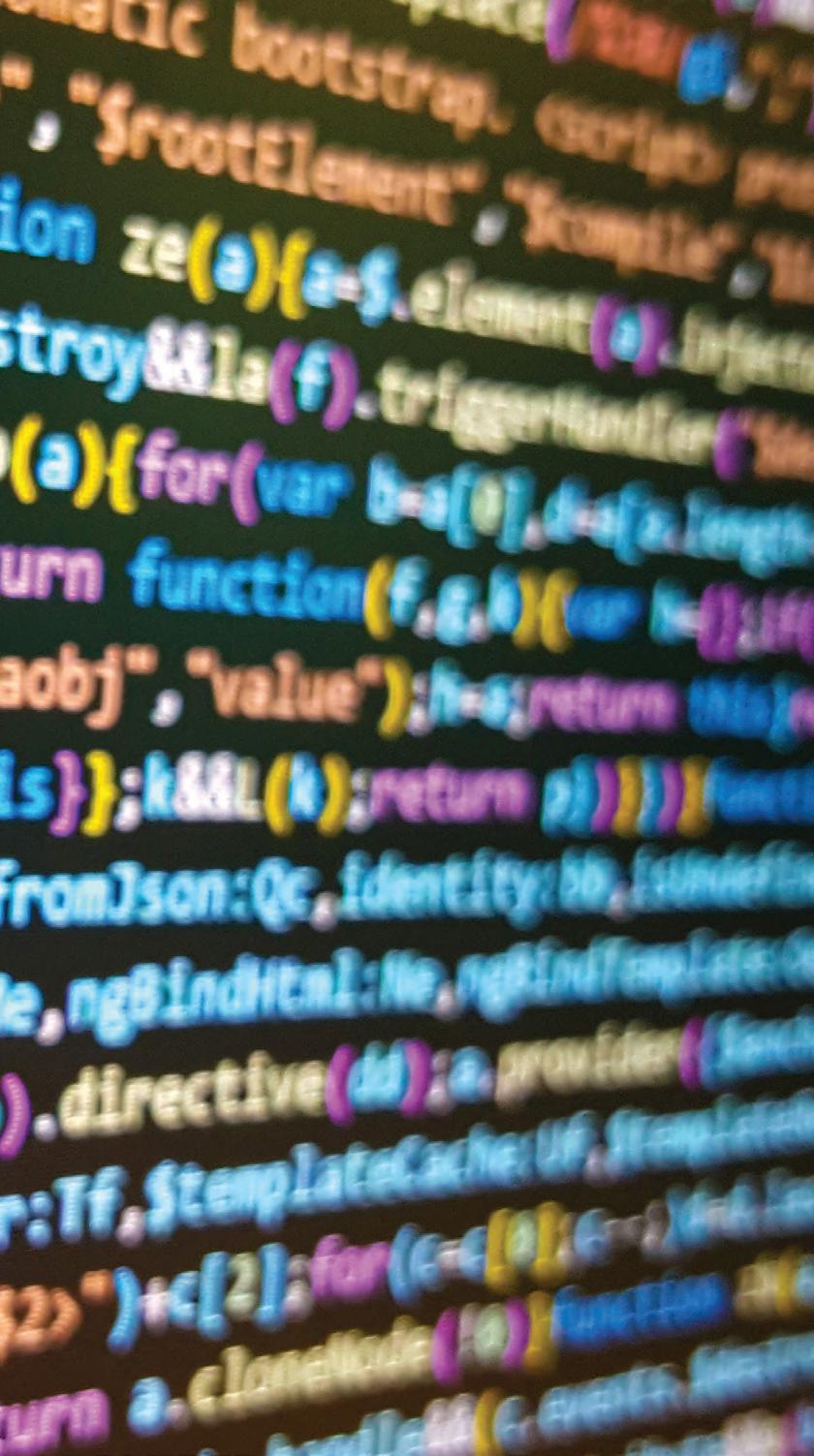

Bachelor of Science in Environmental Engineering
• Bigdata Analytics and Artificial Intelligence
• Bigdata Analytics and Artificial Intelligence
• Application Development
• Application Development
• Bigdata Analytics and Artificial Intelligence
• Cyber Security Enroll
• Application Development
• Cyber Security
• Cyber Security
Website www.utb.edu.bh Tel +973 17787978
Website www.utb.edu.bh Tel +97317787978
Website www.utb.edu.bh Tel +97317787978
WhatsApp +973 17787979
WhatsApp +97317787979
Email info@utb.edu.bh
Email info@utb.edu.bh
Email info@utb.edu.bh








followuson
Admissions O ce admissions@utb.edu.bh
Admissions O ce admissions@utb.edu.bh
Admissions O ce admissions@utb.edu.bh
Toll-Free 80001800
Toll-Free 80001800
WhatsApp +97317787979
Toll-Free 80001800
utb_bahrain
utb_bahrain
utb_bahrain
utb.bahrain utbbahrain follow us on utb_bahrain
followuson utb_bahrain
utb_bahrain
Fromwhatinspires you, towhatyou'll inspire next_
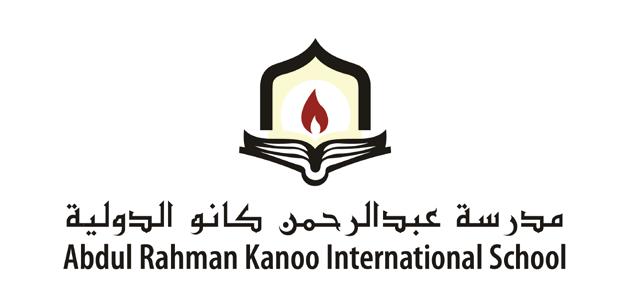
Addressing the physical, mental, social, and academic well-being of students during and after the COVID-19 pandemic.
Brief background of your innovation
During the pandemic, the school’s priority was always to ensure that the students’ well-being and safety were prioritized whilst being online or returning to learning on campus, and to ensure that everything was being done
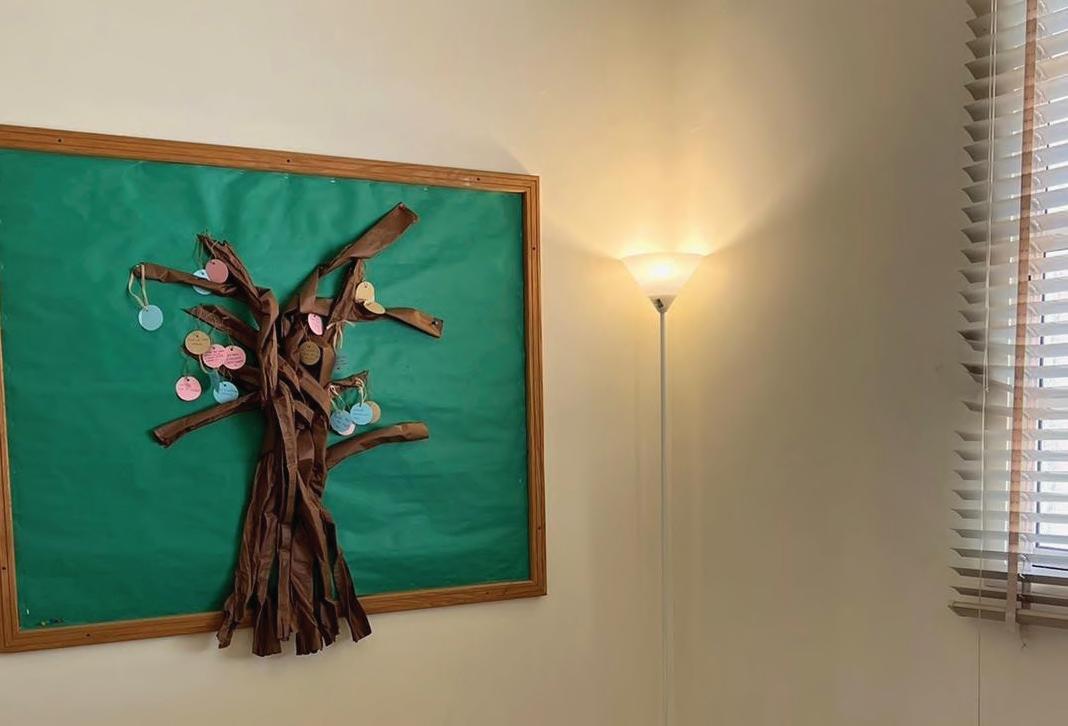
to protect students that were at any sort of risk. We were very concerned about the effects of everything that was rapidly impacting our students’ physical, mental, social, and academic well-being. In 2021, ARKIS formed the “Safeguarding and Well-being Hub” to be run by a specialized team that is empowered to monitor and
promote students’ well-being in every possible way. The school already had safeguarding and child protection policies and procedures in place before the Pandemic. As a result of the pandemic, we, as a school had to approach it differently and be innovative in what we did collectively for every student.
As a first step, the school administration started interviewing different candidates to form the safeguarding and wellbeing team needed to implement the program. The chosen team members were a perfect mix of a counseling psychologist, a teacher with strong UN and global child protection background, and a high school IB Diploma Program psychology teacher. The team members received full training and an additional detailed certified safeguarding course online for the official implementation.
Next, was the setup of the strategic module and plan under the supervision of the School Principal. The team started giving workshops and training to all staff to educate them more about the safeguarding and well-being hub and to ensure that everyone is working in parallel with the school’s vision. The school ensured and adopted a technological approach to implementing the program using the latest technologies developed in school and by engaging with the whole Safeguarding program and database, “MyConcern” for official reporting and training as well.
The final step in implementing the program was the setup of the main hub rooms and the official venues which include the safeguarding office where all child-protection-related meetings or interviews are conducted; the “Play Therapy” room that is fully equipped in a children-friendly way, colorful and with all the needed toys and resources to facilitate play therapy practices. This is carried out by school counselors and play therapists working with children from 3 to 10 years old to assess their well-being and give them the needful support and prepare their action plans based on that; the “Re-charge” therapy room that is divided into 5 main sections - Reading (for well-being and psychological support related books), Art therapy (drawing and painting), Music therapy, and a Focus group therapy section (to facilitate sharing of experiences and student-led talks to help higher grade students deal with any well-being obstacle under the
supervision of their safeguarding team members and school psychologists).
Challenges faced in implementation Building a “safeguarding/well-being aware” culture or environment, was one of the main challenges. The team had to build awareness of the importance of well-being among the staff, students, and parents. We had to navigate some resistance to how the community viewed well-being and safeguarding so that it could be understood and built on in a sensitive and serious manner. This included the fact that the school was now offering such services and was open to providing the right professional support when needed. We had to be very mindful and respectful of cultural restrictions or resistance to these concepts in general.
The secondary students also run a ‘Growth Mindset’ mentoring program for elementary students. The school now has a culture and language for well-being, safeguarding, and support. The community is now well-versed in reflective discussions and openness so that we have successfully provided a safe place for these areas and discussions.
The School Principal was also invited to talk about our Safeguarding and Well-being program as part of the TES magazine Leadership podcast series.
In hindsight, what were the most valuable lessons learned? Could things have been done differently?
The main success criteria included the huge number of cases that we have handled so far! Staff, students, and parents are now much more comfortable in approaching the team and seeking our services and help.
Secondary students are now building their own focus groups to raise awareness towards different wellbeing concerns such as social anxiety, stress, sexual harassment, and more critical topics under the supervision of their safeguarding leads and school counselors to share experiences, hold campaigns and conduct activities that would support such cases and help resolve them.
The main lesson was that well-being and safeguarding is essential and should underpin all policies and procedures. When handling and resolving their safeguarding or well-being concerns, students end up showing amazing improvement in every other aspect (Academic and non-academic)! Keeping this in mind, ARKIS’ vision is to focus firstly on students’ safeguarding and well-being in order to ensure a higher quality of education and life in general. We believe that here at ARKIS we have taken the right path toward comprehensive safeguarding and wellbeing in aspects such as the selection of team members, building a complete strategic plan and module; involving student-led efforts, and engaging the whole school community in activities and campaigns to raise awareness; sensitive cultural awareness of our student, staff, and parent community which impacts the way we move forward.
This is an ongoing and constantly evolving process and we cannot say we have completed our mission. However, we can confidently say that as a result of this work, we have a much happier and more confident school community!
The main lesson was that well-being and safeguarding is essential and should underpin all policies and procedures.
The first and only school in Bahrain to offer Mandarin as a third language to support Bahraini students in the quest for more global opportunities.
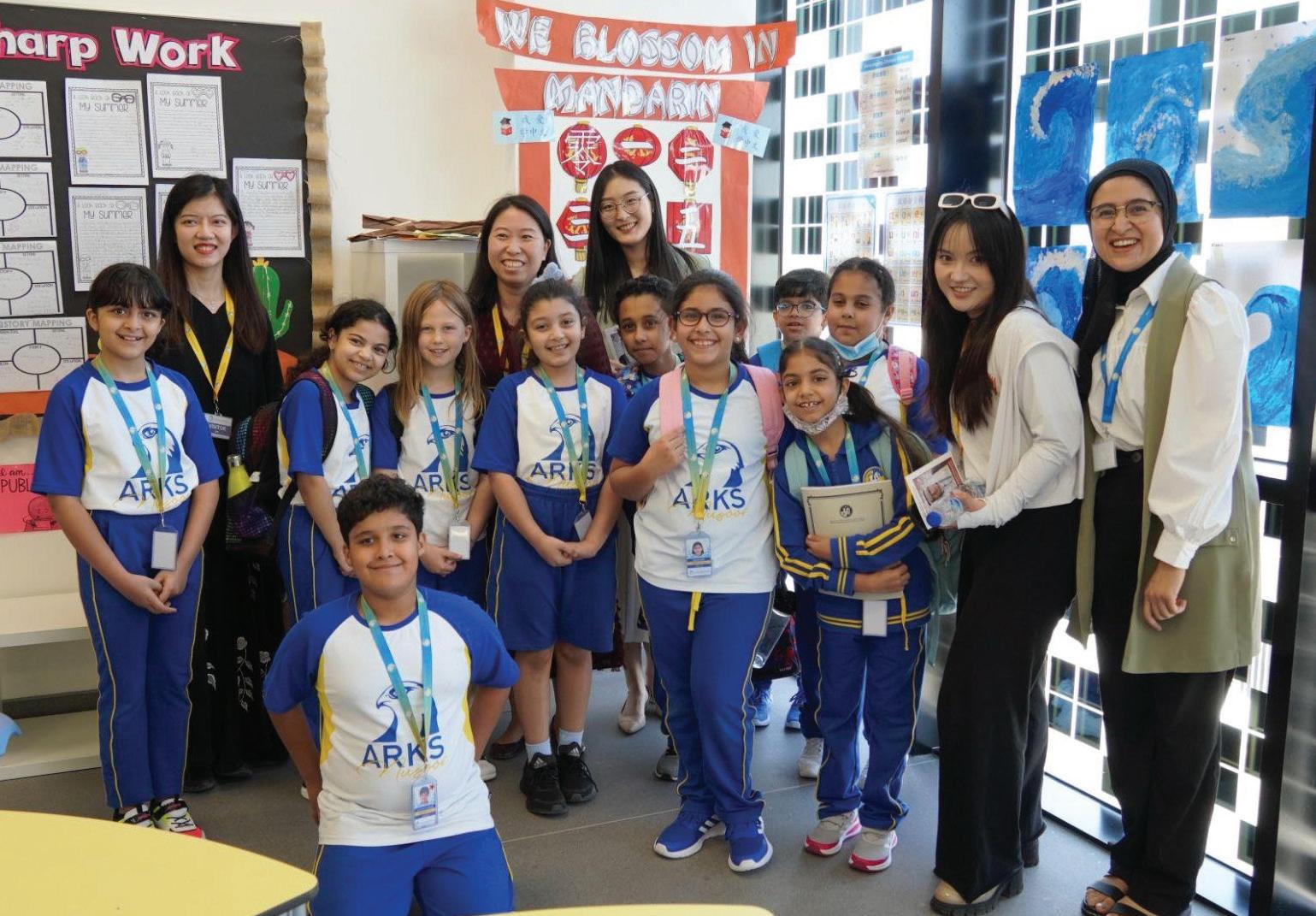
Brief background of your innovation
The Mandarin Program at Abdul Rahman Kanoo School Diyar (ARKS) was launched at the beginning of the academic year of 2022-2023, in line with the opening of the new
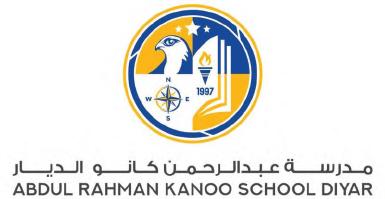
school. ARKS is the first and only school in Bahrain to have Mandarin as a third language included in the curriculum. It was made possible due to the leadership’s foresight and understanding of the relationship the Kingdom has with China. The friendly cooperative relations between the two nations are based on shared or mutual,
complementary commercial interests and Bahrain’s strategic geographical position, and from a policy standpoint, strong Bahrain-China links, inclusive of the China-Bahrain Relations in the Age of the Belt and Road Initiative (BRI). These were all factors considered when the leadership introduced the idea of being innovators and at the forefront to
better support Bahraini students in the quest for more global opportunities.
This program is in its early stages and is set to introduce not only Mandarin but also introduce Chinese culture and engage students in cultural activities related to China. The program is also meant to focus on students’ pronunciation and speech, which is greatly important in learning a language such as Mandarin which is known to be the most tonal language. This means that speaking with the right tone is very important because tones convey different meanings.
As for the course content, it is currently designed for students from Reception to Year Five and includes different basic topics with daily used words with the introduction to Mandarin phonetics (Pinyin system). Topics include selfintroduction, age, numbers, animals, colors, family members, classroom objects, etc. In each topic, students learn daily simple expressions using simple grammar. The goal of the program at this early stage is to make students enjoy learning a new language. It is the starting point to prepare them to dive into the language, and let it grow with them until their graduation from school. ARKS aims to prepare students for future demands, and this program definitely helps in achieving this goal.
The program was planned by first interviewing different Chinese language teachers from China. Some teachers teach university students, and some teach kindergarten. Taking the opinion of those teachers was important before taking a step further into planning. We asked the teachers about the textbooks and other resources they believed were useful for children. They also shared their experience in teaching Mandarin with us.
The second step was choosing the resources and study materials. This was a major step that took significant time and consideration. The program is meant for preschool and primary school students, and they are all
starting at the same level; therefore, choosing materials and resources that are suitable for both preschool and primary school took a lot of time. The third step was building the scheme of work based on the materials we chose. This was later submitted to the Ministry of Education for approval to launch the course officially by the first semester in August 2022. Finally, with the approval of the Private Schools Education at MOE, ARKS Diyar commenced making term plans by placing all the topics we would teach in order to start building the lessons.
The biggest challenge we faced was the inability to provide the right quantity of textbooks we needed for the students, as we faced problems with publishers, which resulted in
teaching methods depending on the year level. This was once again done internally with the talent to drive the program - a Bahrain-based graduate who had received the MOE scholarship and had the vision, expertise, drive, and skill set to run the program.
We are proud to say we are noticing great results just by seeing the excitement in the eyes of students for the Mandarin lessons every time. Preschool students are able to sing songs in Mandarin and Primary School students walk around saying the words they learned during the lessons on a daily basis. This alone proves that the program resulted in happier students eager to learn Mandarin, and very curious to know more about China. External verification has come in the form of the delegates from the Confucius Institute - a branch part of UOB who test proficiency and were overwhelmed by the retention and uptake after only four weeks of learning. During the Admission process, parents were made aware of the inbuilt curriculum falling in line with ARKS’ core values of Internationalism and the uniqueness of the program.
In hindsight, what were the most valuable lessons learned? Could things have been done differently?
getting only a few copies that are being used as teachers’ resources - based on the Covid-19 supply chains. Another challenge was the sudden need to change plans. Since we currently don’t have a solid textbook to give the students, we decided to build our own content of learning materials, by choosing different topics that interest children and making the lessons as flexible as possible.
What is challenging in this way of teaching is making the content suitable for all year groups - from Reception to Year 5 - and the need for changing
One of the most important lessons we have learned while implementing this program is that there is no need to stick to a certain textbook while teaching this new language to children. In the beginning, we thought that if we didn’t receive the textbooks we chose on time, it would be the end and the program would fail. However, this notion changed after planning our own lessons, and after seeing the results in students’ performance. Even if we follow a certain series of books in the future, it is very important to stay flexible and contextualize the content according to what students need, and most importantly, to what makes them stay excited and never lose interest in the subject.
We are proud to say we are noticing great results just by seeing the excitement in the eyes of students for the Mandarin lessons every time.
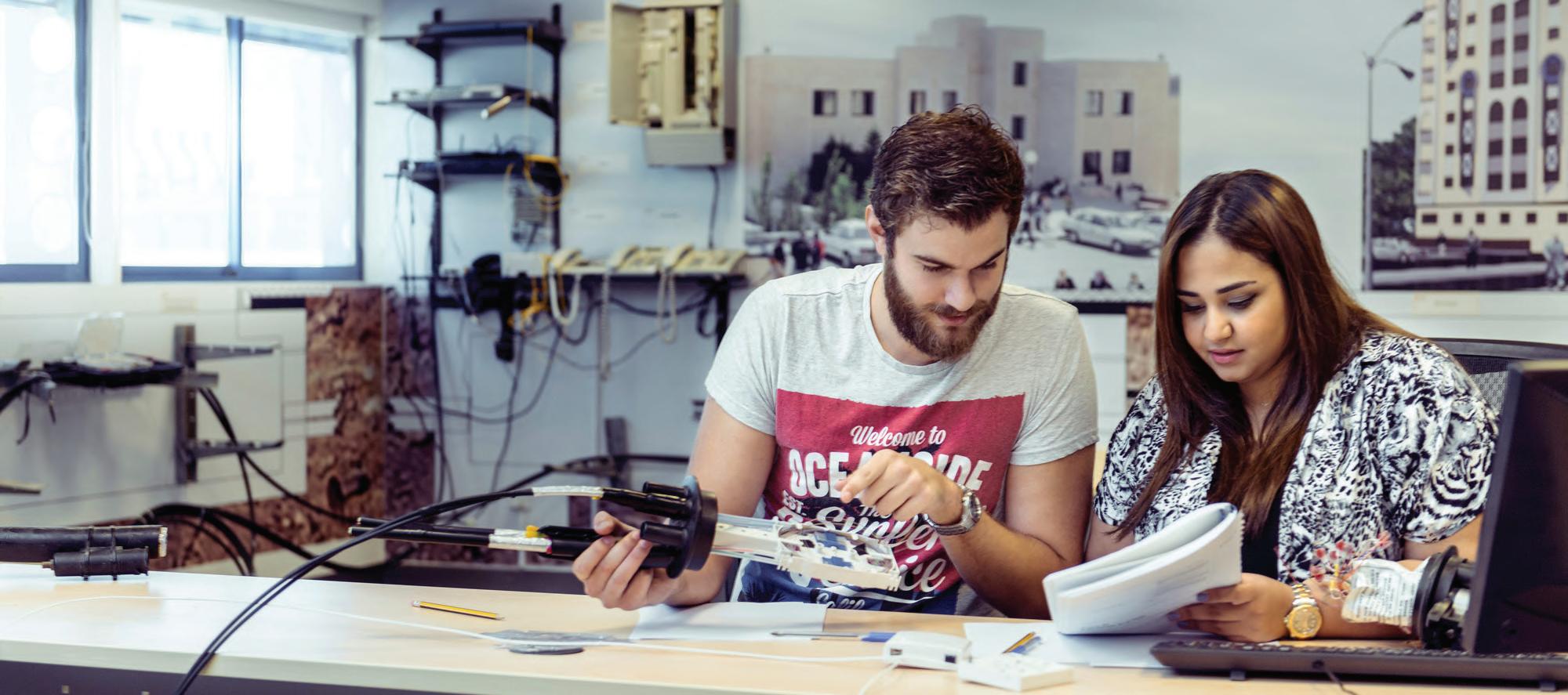
The university has launched two cutting edge and highly innovative Master of Science programs - Financial Technology and Forensic Accounting.
Brief background of your innovation
Ahlia University was the first private university to be licensed in the Kingdom of Bahrain, in 2001. As a leading university in Bahrain and the region, Ahlia’s name has become synonymous with innovation and excellence. The university’s latest innovation comprises the development and launch of two cutting-edge and highly innovative postgraduate programs: The Master of Science in Financial Technology (FinTech) and the Master of Science in Forensic Accounting.
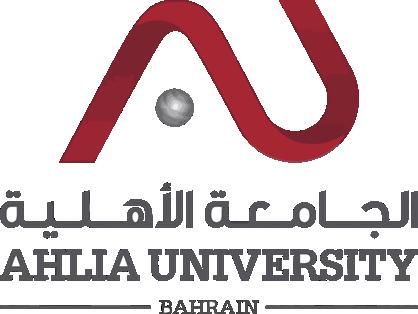
How was it planned?
Ahlia University’s strategic plan 2016-2020 articulated an objective
that is specifically concerned with the development of cutting-edge programs, in line with the institution’s vision to be an outstanding regional and international university. As such, the planning goes back to 2016, with the proposal and plan for the two programs being developed in 20172018 through a careful process that involves a detailed and comprehensive market needs analysis to ensure
the graduates of such a program are equipped with the necessary advanced skills and competencies to be among the most employable graduates in the Kingdom of Bahrain. A process of benchmarking with the top universities in the world ensued, which ensures the programs’ syllabi, content, and structure emulate the best of the best, while simultaneously allowing for a degree of contextualisation according to Ahlia University’s own mission, strengths, and the local/regional markets.
Challenges faced in implementation Success is a moving target. This proverb, which has come to be repeated by our founders over the years, has developed into the doctrine at Ahlia University. To stay in the lead means
Valuable lessons learned include staying true to one’s vision, mission, and core values.
to constantly challenge the status quo and never stop innovating. Some of the efforts and innovations, no matter how carefully planned, may not pay off, whereas others will invariably bear fruit. The same applies to our context here, where the University aimed to be the first in introducing such programs, not just locally, but regionally. In the case of the MSc FinTech, the university was the first private university in Bahrain to successfully roll-out such a program, whereas in the case of the Master in Forensic Accounting, the university – as planned – was the first to introduce this program in the entire GCC.
As a locally and internationally accredited institution, a number of Key Performance Indicators (KPIs) are set at the get-go to gauge the success
of any new initiative. Moreover, given the significant amount of research, benchmarking, and market-related studies conducted before the introduction of a new program, a high level of certainty will naturally exist in terms of its success upon its launch. To that effect, the university has witnessed a very high level of demand for the new programs, surpassing expectations and estimates for enrollment that normally occurs in the first year of the introduction of a new program.
In hindsight, what were the most valuable lessons learned? Could things have been done differently?
Keeping true to our 20-year tradition of being a leading university, the most valuable lessons learned include staying true to one’s vision, mission, and core
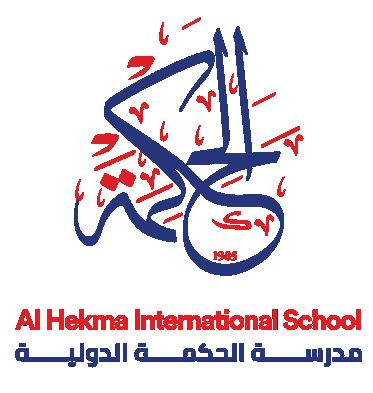
values. Born out of the private sector, with a civic-minded mission to bring about positive societal change, we seek out and foster innovations that will serve the wider public and align well with the national economy and governmental strategies. It is easy to jump on the bandwagon and develop programs that can be seen as trendy and high-indemand. But what happens when these trends go out of fashion? It is important to consider the sustainability of these programs, in addition to the resilience and long-term success of the graduates of these programs. Any new program introduced needs to bring added value, make a material difference, and affect positive change in the market, industry, and wider economy.
Preparing students with essential STEAM and Entrepreneurship skills like problem-solving and critical thinking, required to thrive in 21st Century workforce.
Brief background of your innovation
The goal of STEAM-based learning is to help students develop the skills they need to be successful in the future. Regardless of the specific role or industry, it is now critical that students go off to college and/or enter the workforce with a set of well-rounded skills that allow them to adapt to an evolving and fast-paced environment.
On the other hand, business as a subject is provided to students in AHIS from Grade 1. Business studies are more than just mastering the art of doing business. Students will leave with
a skill set and the ability to manage their work-life successfully.
At Al Hekma International School (AHIS), our goal of STEAM education is to foster ingenuity, build resilience, encourage experimentation, nurture teamwork and knowledge application, and motivate creativity and problemsolving among students. This helps them identify themselves as innovators and changemakers that can take active roles in inventing solutions for the problems they care about. STEAM approaches in AHIS help students learn skills relevant to the 21st century, including innovation and cultural
sensitivity. This also better enables teachers to use differentiated instruction to meet the needs of diverse learners.
Along with this, Business Studies helps students understand corporate culture and prepares them for professional environments. Entrepreneurial thinking and acting are seen as 21st-century skills, one of the basic meta-capabilities that the young generation will need to develop to be successful. To become relevant for the future world of challenges, AHIS students learn entrepreneurship skills from an early age.
A series of programs for Project Based Learning in STEAM and Entrepreneurship has been planned and implemented for the students of AHIS.
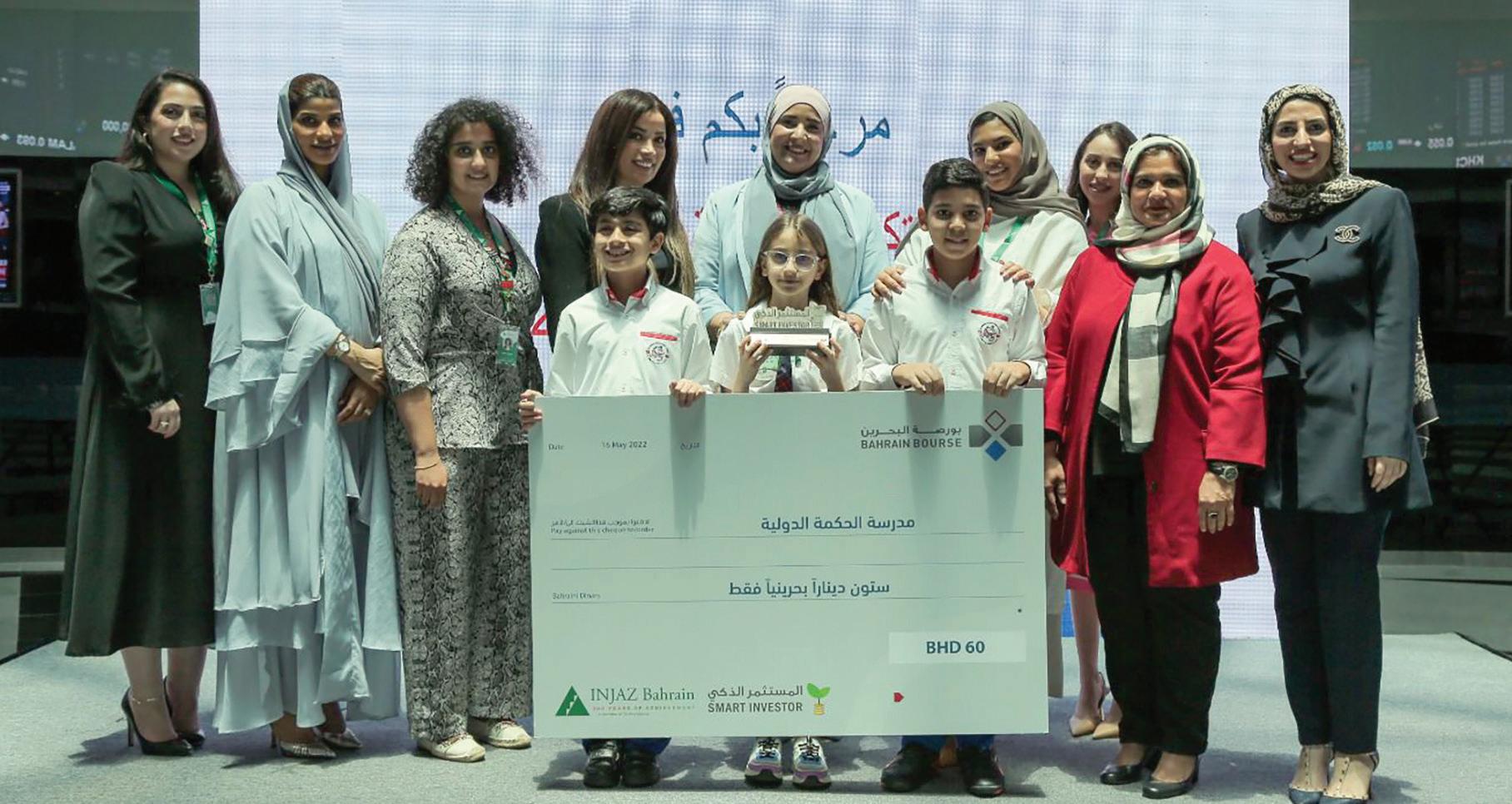
STEAM Lessons provide students with an opportunity to showcase ideas that can solve real-world problems of today. STEAM Fair is a platform for our students to showcase their new ideas and innovations in front of a real audience. Students designed and came up with real-world application projects such as Medical Ventilators, Sustainable Bahrain, Biodegradable masks, Extending life into outer space, a mask and social-distancing detector.
STEAM classwork and homework are assigned on a weekly basis at AHIS. Students are awarded extra points upon their completion. The STEAM Winter Challenge at AHIS develops an interest in learning science through creativity and a problem-solving approach.
The STEAM Reward is for the Student of the Quarter chosen from all the grade levels and is rewarded with a free-choice
activity award and certificate. STEAM Labs enhance the scientific inquiry of our students at AHIS. The Virtual STEAM lab for our students proved to be a creative and innovative platform. Through STEAM in Field, our students came up with and implemented many innovative ideas like a Solar Urban design (an area for students to rest in breaks and charge their tablets/devices using alternative energy/solar), school security systems, sustainable light,
robotics and coding, Solar powered greenhouse and a Perma-Culture Educational Garden. Recycled materials were used to decorate the garden. Our Permaculture Educational Garden has been shortlisted by the MOE Agriculture Production Exhibition. The STEAM Lounge is a physical space, similar in vibe to a lab or studio, for the committee comprising students and teachers to meet on a weekly basis to plan, discuss and work on STEAM projects.
We engage in two major activities that focus on Project-based Learning through Business and Entrepreneurship. The AHIS Shark Tank (Grades 6, 7, and 8) is based on the popular television show, Shark Tank with top presenters winning certificates and trophies. It provides an opportunity for students to develop and pitch their business idea to a panel of judges. AHIS BYE (Grades 9 to 12) or Bahrain Young Entrepreneurs prepares students for their careers, enhancing practical life skills. BYE aims at providing students the opportunity to collaborate and work with a team, speak in public and prepare an effective presentation, collect and analyze data, use social
Entrepreneurial thinking and acting are seen as 21stcentury skills, one of the basic metacapabilities that the young generation will need to develop to be successful.
media as an advocacy tool, solve real, complex problems that don’t have a definitive answer and use curiosity and creativity to find an innovative approach to difficult problems.
Challenges faced in implementation
The lack of experience in facilitating Problem-based Learning to students was one of the challenges we faced while implementing the program. To mitigate this, we provided relevant training to the teachers. As Problembased learning is mostly done in groups, some students were depending on others within the implementation process. For this, we monitored group work to identify teams that assigned clear positions and tasks to the members. Enabling online attendance of judges across sectors for competitions helped the team overcome the challenge faced when judges were unable to make it in person.
A brief assessment of your results
Students did well with Projectbased Learning, especially during the pandemic when the focus of the school was to provide them with an opportunity for deeper learning.
Students got the chance to employ different skills such as critical thinking, problem-solving, and communication while sharing their final products. Students in general performed well and earned good scores that reflected in their grades. Additionally, students excelled in local and global competitions such as Injaz and STEMCO.
In hindsight, what were the most valuable lessons learned? Could things have been done differently?
The main lesson learned while implementing these projects was that we can overcome challenges through collaboration. Collaboration between
students, collaboration between staff, and collaboration with the community. Another valuable lesson was when we witnessed students’ learning link to real-life problems and global challenges. It made learning more relevant. Finally, finding a solution during the exceptional circumstances that gave equity to all learners regardless of the learning modality they chose through a personalized learning system provided by digital platforms. What could have been done differently during the implementation of these projects would be spending more time on orienting parents on the value of projects in order to further support students at home. This is based on our utmost belief in the essential role of parents in their children’s education and success at school.
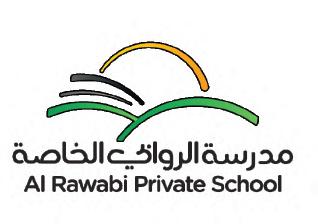
Students of Grade 7 designed their “House of the Future” using an architectural design software while considering the ecological footprint of their designs.
Brief background of your innovation
Students of Grade 7 designed their House of the Future as part of the IT Course at the school. They had to consider the ecological footprint of their designs and create houses that were environmentally sustainable. An architectural design software, Sweet Home 3D assisted students in creating a 2D plan of their house. They decorated the interior and exterior views and placed furniture and essential home appliances.
How was it planned?
Students first sketched out the ideas for their house of the future. After design development, reflection, and
refinement, they transferred their completed sketches onto the CAD platform. They were quickly able to recreate their desired interior spatial arrangements using the program’s functions.
Challenges faced in implementation
Early miscalculations of exterior measurements aside, the biggest challenge we faced was time management. Students were so engaged in this unit of study that they did not want to log out of their design sessions and head to the next class. One planning concern that was readily
There was a collective realization that “sometimes, the simple things make people happy”.

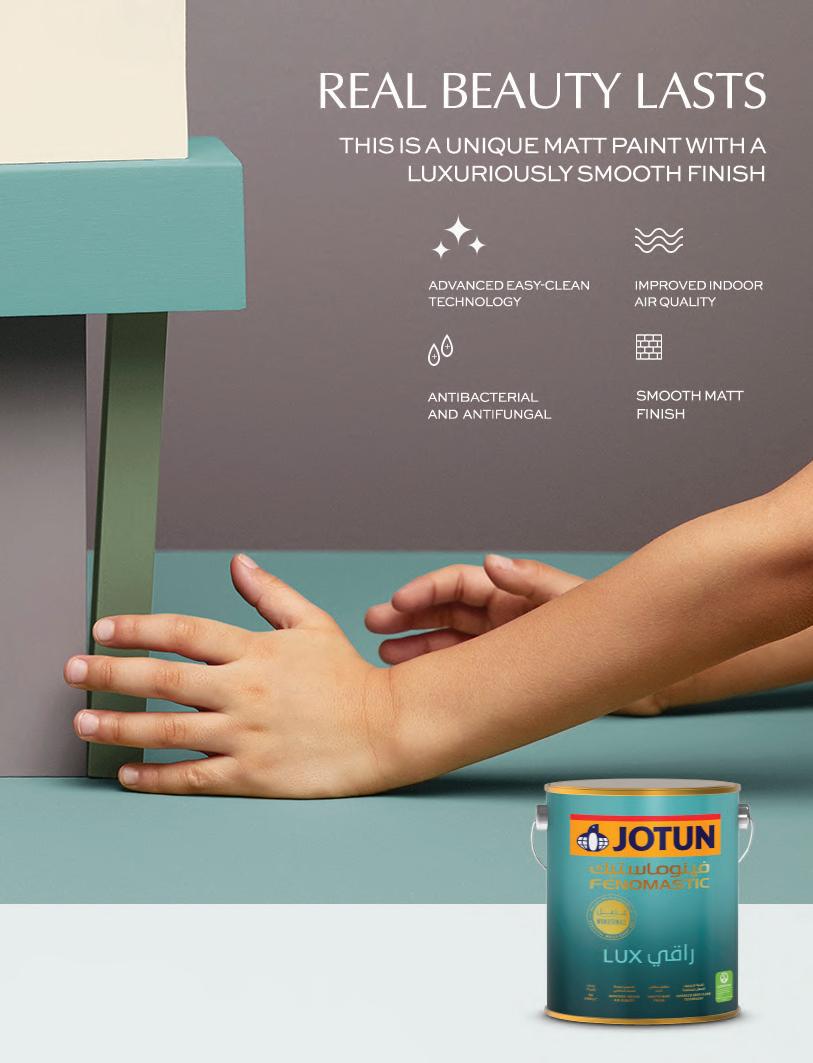
overcome was internet connections. As with any unit of study in IT, productive learning time is commensurate with students having fast and reliable internet connections. However, the software was available for students to use offline.
We were amazed at the level of student engagement and achievement. They openly compared and consulted with each other on design development and progress. This unit of study became a demonstration of the effectiveness of student-led inquiry. They voluntarily researched architectural regulation, sustainable construction materials, interior design, and spatial layout. What we found really satisfying was listening to Grade 7 students talk about their designs and expressing a desire to live more simpler in the future.
One of the students experimented with alternate 3D design software, creating a range of items to be used in his House of the Future. His classmates were inspired by the design
of his multi-purpose kitchen blender, hairdryer, hammer, knife, canned soda, and in particular, his pizza! Some of them asked him to help them create something similar. Students became teachers before our eyes and this was most gratifying.
In hindsight, what were the most valuable lessons learned? Could things have been done differently?
Student presentations revealed some valuable information about how the next generation of Bahraini dreamers and doers perceive environmentally responsible design and construction. They desired a simple house rather than a large one. Students came to understand and appreciate different opinions after the presentations and there was a collective realization that “sometimes, the simple things make people happy”.
The smaller house design reflected the way they want to live – prioritizing family and loved ones. The few students who chose to have a big house and a swimming pool reasoned that having a larger space for the whole family would reduce environmental impact.
What started as a unit of study, quickly became the departure point for student communication, collaboration, creativity, and critical thinking beyond the walls of the classroom.

We were amazed at the level of student engagement and achievement. They openly compared and consulted with each other on design development and progress.
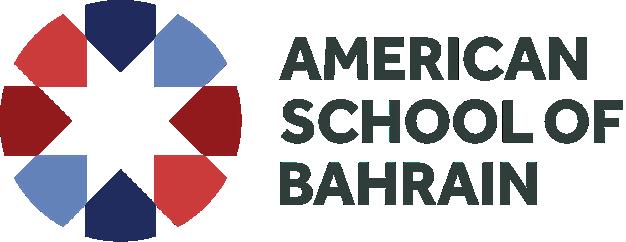
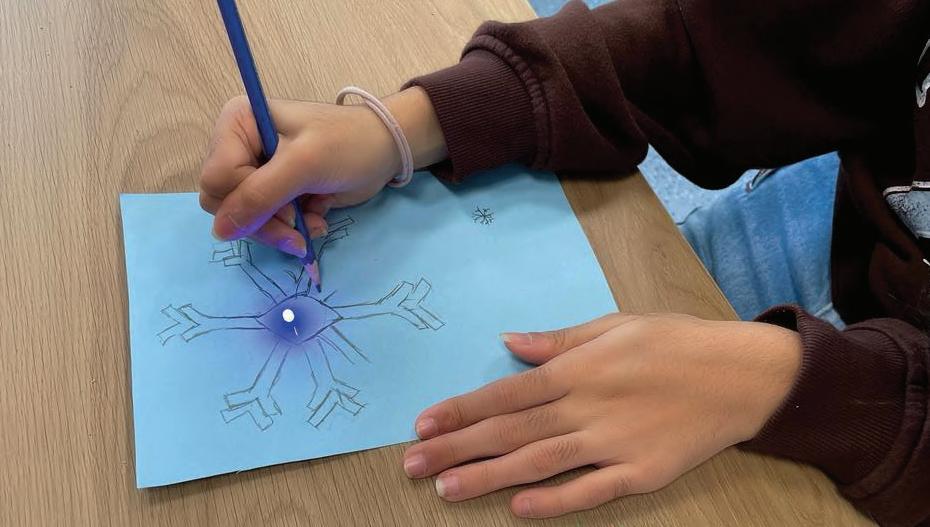
Exploring Adobe Illustrator, middle school students created wallpaper designs that reflected the natural and diverse beauty of Bahrain.
Brief background of your innovation
Using Adobe Illustrator, students of Grade 7 at American School of Bahrain created an impressive-looking wallpaper design using a range of icons from this industry-standard software.
How was it planned?
Grade 7 explored the graphic design software of Adobe Illustrator. In early January 2022, the project started with
students developing an understanding of Bahrain’s Art & Craft movement, paying close attention to the natural forms. From the hand weaving of leaves to the world-famous pottery industry in A’ali, this all helped to gauge and inspire their minds. Beyond the theoretical start, Grade 7 took primary source photos of natural forms on the island, from the date trees to the lush parks; they captured the true essence of the diverse beauty in Bahrain.
Once the photography element was completed, they drew from their images inspired by various artists, like Picasso’s line drawings to Orla Kiely’s motifs, as seen in her interior design work. All this led to the students developing a series of dra drawings for a wallpaper strip, ensuring that the entry and exit points were aligned. Once the designs were in place, they took their work onto Adobe Illustrator, producing a wallpaper strip using various tools and techniques from
the anchor point to the curve tool. For many, this was the first-time students had used this challenging software; however, they showed great resilience in overcoming several obstacles to produce a series of impressive-looking wallpaper designs.
The wallpapers the Grade 7 students have produced display a firm understanding of the concepts taught from entry and exit points to developing
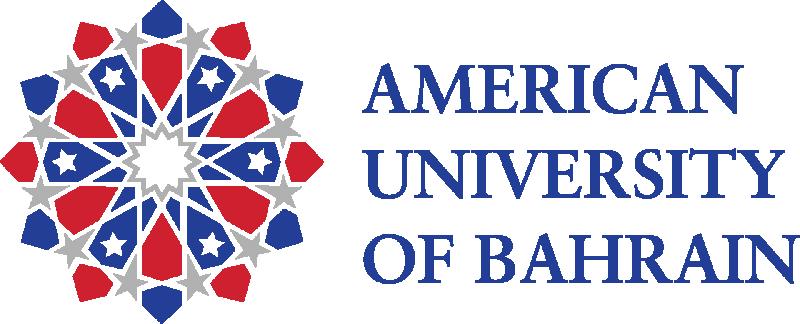
more of an appreciation of natural forms in Bahrain.
In hindsight, what were the most valuable lessons learned? Could things have been done differently?
As we look to develop the project in the future, an extension to the unit will allow students to print their work on a host of household items, from lampshades to mugs.
At the beginning of the COVID-19 pandemic, the university transitioned to Emergency Remote Teaching (ERT), without missing a single hour of class - giving students a sense of normalcy in the unprecedented times.
Brief background of your innovation
“Necessity is the mother of invention.” Plato
At the peak of the coronavirus, UNESCO reported that 91% of the global student population were impacted by school closures –that is nearly 1.6 billion students in 194 countries. Global iconic American companies like Microsoft and Amazon were primed to adapt and provide their technologies to meet this new need for remote learning.
The pandemic changed the way that institutions operated globally, their delivery of education, and the way that students approach their futures. Once the pandemic took hold in Europe, the American University of Bahrain (AUBH) pro-actively mobilized its resources and technological tools to be ready to
ensure the continuity of teaching and learning.
In February 2020, when the government temporarily requested for its population to isolate at home as a safety precaution, AUBH was one of the only institutions to seamlessly transition to Emergency Remote Teaching (ERT), without missing a single hour of class. Additionally, the University was the first in the Kingdom to ensure the continuation of education from a distance by delivering examinations through ProctorU, a U.S.-based AIenabled secure online assessment platform which protects the integrity and credibility of high-stakes exams. ProctorU is used by more than 1,000 institutions and universities in the U.S.
Once the Higher Education Council (HEC) allowed institutions to reopen
in September 2020, AUBH was the first University in Bahrain to welcome its students back on campus. AUBH implemented a unique operating plan which provided a safe, dynamic, student-centric environment to ensure students had access to holistic learning in the classroom and an engaging hybrid campus experience, with access to events, speaker series, individual counseling services, fitness training, and more. AUBH presented its students with options to choose from: study on campus or online, through a dynamic dual-modality experience, or attend extracurricular activities and services in a safe environment on campus, or from home, through the same technology. The objective: Give AUBH Students a choice of modality and sense of normalcy in this unprecedented and disruptive period.
Using Adobe Illustrator, students of Grade 7 at American School of Bahrain created an impressive-looking wallpaper design.
AUBH launched a strategy for the campus re-opening, in compliance with the guidelines issued by the Ministry of Health, HEC, and National Taskforce for Combating the Coronavirus. The University had been working diligently on its return to campus on 13th September 2020, in line with its “Culture of Care” philosophy and had been exploring ways to support and protect the AUBH Community.
With safety and the student experience being at the heart of the University’s “Culture of Care”, AUBH launched a safe, engaging, and flexible university experience. A dual-modality setup was implemented. This allowed for normally scheduled classes on campus, and online synchronous participation for those unable to attend, or who prefer to study at a distance whether in Bahrain or abroad, using an in-classroom dual-camera system. One camera was installed on top of the classrooms’ smart screens with a view of the
classroom and a second one had a view of the professor.
Students who connected online had more inclusive experience, having a view of their classmates in the classroom, the professor and the presentation being shared. Students in
the classroom had the ability to interact with their peers online and virtually saw them on the smart screen. The 75,000sqm state-of-the-art campus ensured effective social distancing practices with adapted classroom seating, and reduced number of students per classroom, adopting a “stoplight system” to ensure class capacity was in line with safety regulations and would seamlessly evolve as safety guidelines were updated.
Simulation software had been added to laboratories to complement traditional classes. The AUBH staff, and the NHRA-accredited on-campus clinic, in partnership with Bahrain Specialist Hospital (BSH), had prepared a containment strategy for anyone showing symptoms of COVID- 19, with dedicated isolation rooms. The University had partnered with Le Meridien Hotel City Centre, to provide isolation facilities for new faculty and incoming students. The re-opening strategy aimed to create
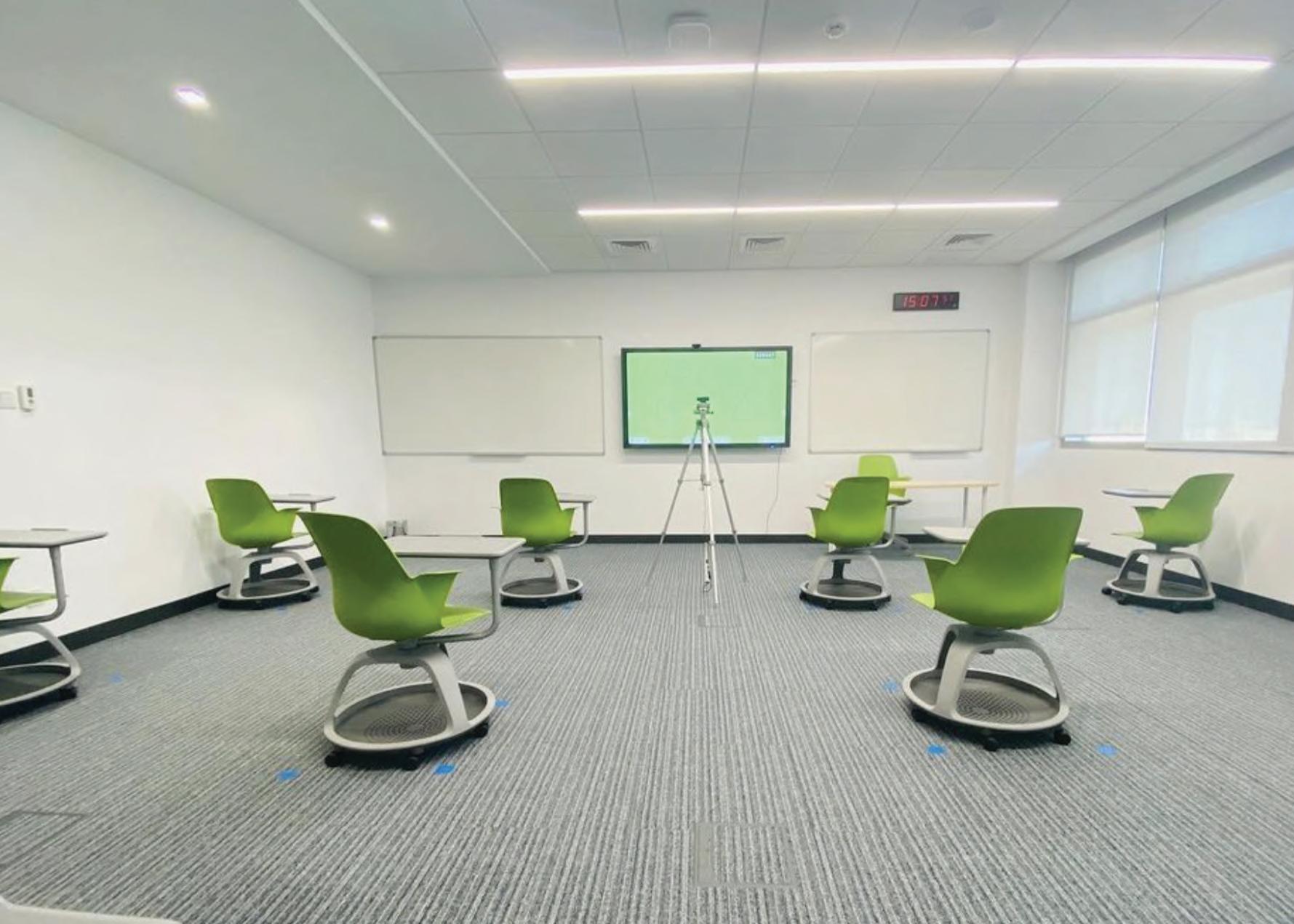
The pandemic changed the way that institutions operated globally, their delivery of education, and the way that students approach their futures.
a safe learning environment, with the use of temperature checks, increased sanitation, and masks worn at all times. A full protection strategy was also detailed for all employees and visitors to campus thereby safely continuing extracurricular activities and hosting hybrid events.
Throughout the pandemic, we emphasized our Culture of Care philosophy and kept health and wellbeing at the forefront of our student life and educational experience. AUBH organized virtual town halls for the AUBH Community to talk about wellbeing, offered access to “Headspace”, a mindfulness and wellbeing mobile application, and organized virtual fitness classes which were also launched on social media to support the wider population of Bahrain and beyond.
Fast-forward to September 2020, the University’s dual-modality strategy not only allowed students the flexibility to attend classes both on-campus or online at their convenience, it also greatly boosted the student body’s morale to return to a new kind of normalcy once again, as they were able to engage inperson with fellow classmates in a safe environment. Students had access to a safe classroom, student clubs and safely executed community events such as the President’s Run hosted in October 2020.
Since the pandemic hit Bahrain, and with high school seniors in mind, the University also created multiple solutions for them, as they considered the University in which they wished to enroll. In March 2020, AUBH launched a virtual tour of the campus to give high school seniors an opportunity to virtually visit the campus, if they hadn’t previously visited it in person. The AUBH Enrollment Department was also the first to launch video-conference meeting options with AUBH staff, for high school seniors and parents who wished to ask academic and admissions-related questions.
Additionally, over 15 general assembly
virtual information sessions were organized that year to engage with high school students, parents, and the wider public. This support system gave them a sense of “normalcy” and allowed them to make an informed decision, when enrolling in university.
Challenges faced in implementation “Empowering young people to thrive in the digital economy has been so instrumental” Ahmed Al Hujairi, Chief Executive Officer of ICT Firms in Bahrain.
When AUBH first began Emergency Remote Teaching (ERT) online, both faculty and students had to quickly adapt to this new modality. This meant they needed to have access to a
freedom and pluralism adopted by our university.
In 23 classes, thanks to AUBH’s dualmodality, in majority, students benefited from face-to-face learning as they have outperformed compared to those who were purely studying online. AUBH was very fortunate to have had the agility as a young institution and start-up to create this setup for students who had greatly missed their campus when isolating at home.
Since AUBH built the competency to operate in dual-modality, it will remain as a resource and evolve in the way it is delivered. The training delivered to AUBH faculty and staff will be a welcome resource as the education industry evolves in Bahrain.
In hindsight, what were the most valuable lessons learned? Could things have been done differently?
AUBH adopted a new approach in conducting business as a higher education institution and creatively leveraged technology to create an engaging learning environment for students who were affected by the restrictions the pandemic created.
personal computer and reliable internet service in addition to specific training to learn how to use multiple platforms in a short amount of time. The University’s IT department held platform trainings for students and staff regularly throughout the semester and provided in-home support to faculty on both hardware and software related issues.
In all classes, a substantial portion of the overall syllabus assessment was carried out. The examination methods have been quizzes, homework, midterm exams, projects, open book examinations, or some combination of the above. The different types of assessment reflect the academic
In order to build on the competency built at AUBH during the pandemic, all new faculty now undergo a training during their onboarding which teaches them how to best make use of the tools we work with, and how to best deliver an effective, engaging, and creative learning experience for AUBH students, regardless of modality.
The planning process at AUBH began prior to the arrival of the pandemic in the region which allowed for the delivery of an operating plan the University is very proud to showcase.
Furthermore, the resiliency and creativity demonstrated by faculty, staff, and students in itself is a lesson learned in how a community unified under the AUBH “Culture of Care” can continue to deliver effectively through adversity.
Since AUBH built the competency to operate in dualmodality, it will remain as a resource and evolve in the way it is delivered.
A new system to support the research management of the University in order to identify improvement areas and publish research papers in international journals.
Brief background of your innovation
Scientific research is a major pillar in terms of its strength, power, and support for the success of any academic institution. It’s crucial for university rankings and academic promotions. This calls for a methodological approach
to reflect on the convincing vision of scientific research to be recorded and managed.
Recently, the Applied Science University – Bahrain (ASU) went from 37th place in 2020 to 19th in 2023 among others in the Arab QS region. In order to improve this rank and meet the need for
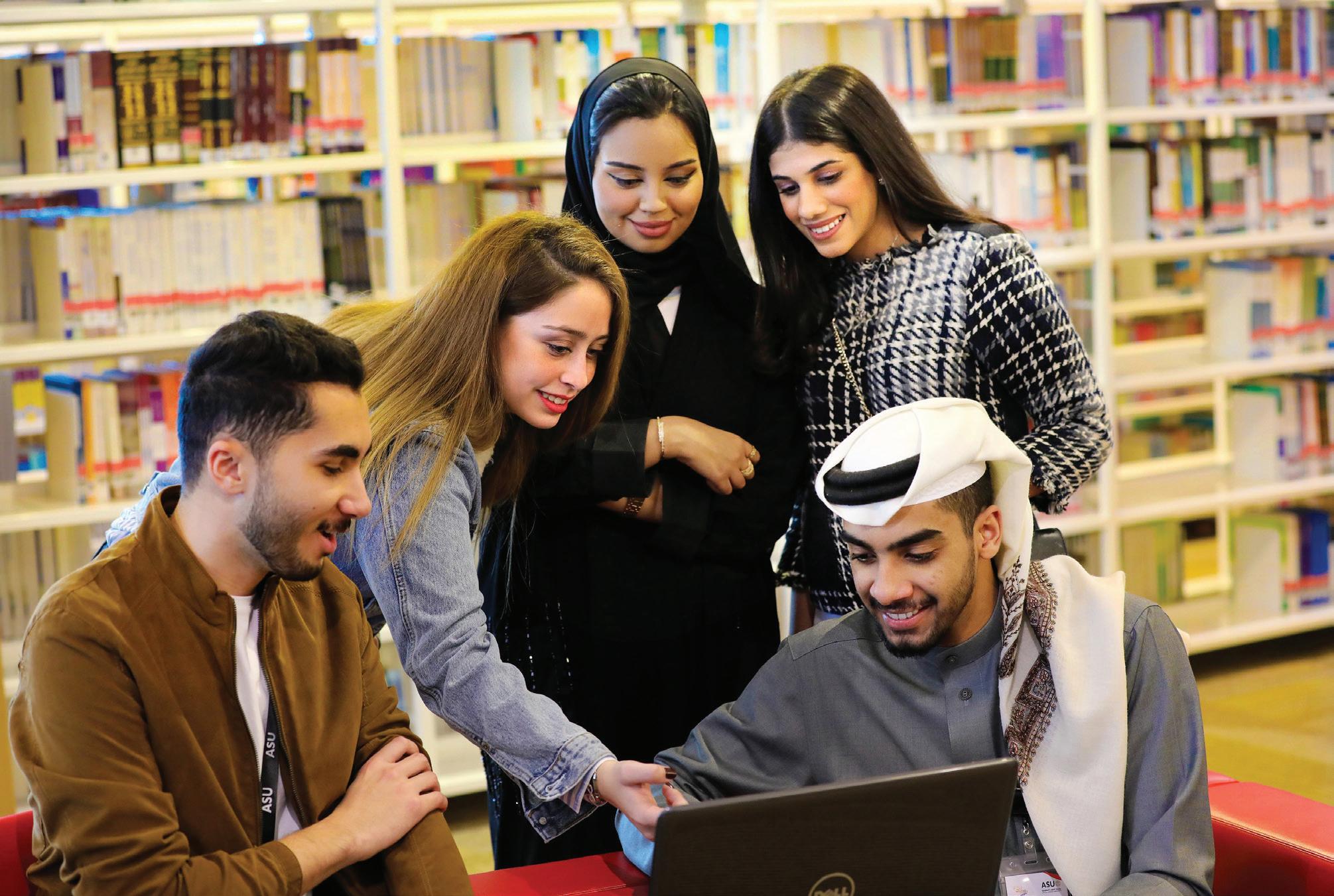
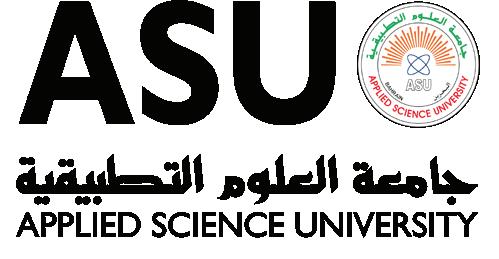
research management, a new system is created to overcome the limitations and challenges of the current system.
In addition, the existing system can be enhanced through new publications management processes and functionalities. After building the online scientific research management
system (OSRMS), many tests were carried out to ensure that all functions work correctly. The development of a new system would support the research management of the university, which would create a system that can manage the publication process in general.
The search function, which seeks to reduce time & effort in searches for any publication, provides additional information about each publication.
Additionally, the system includes an online submission process, which benefits staff by allowing them to submit publications more conveniently than in the past. OSRMS is generating different types of publication reports which will be contributing to the correct documentation of different research statistics at ASU. As a result, these statistics might be used to identify improvement areas, that in turn can support the university to improve and achieve even more.
The idea came from a graduation project for one of the Computer Science students. Her project was upgraded to ‘funded’ upon her graduation. There wasn’t an automated system for scientific research actions at ASU, and
the deanship of scientific research and graduate studies was in high demand and need for this system. The idea was refined and tailored to fit into the university systems and requirements.
Challenges faced in implementation
Yes, in the beginning, when the implementation was first done using VB. NET, which was not the implementation tool for the University systems. So it was a challenge to change the whole implementation to be done with the main tool various systems at ASU use.
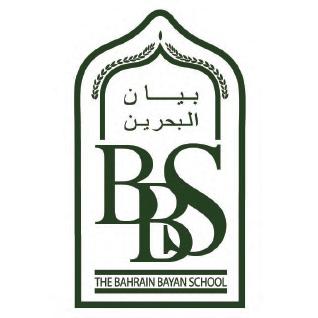
The graduation project was completed successfully with it being published in an international journal and its upgrade to a funded research project. It was made eligible to apply for the second phase of funding to add more functions to the system which is now completed and launched and being used by the ASU academic staff.
Two comprehensive workshops have been conducted to teach the lecturers on using the system. A number of helpful reports and statistics are generated from the system which facilitates the deanship of scientific research and manages different actions with respect to the research.
In hindsight, what were the most valuable lessons learned? Could things have been done differently?
One of the key learnings is that motivated students can achieve the unexpected. The support from the University led to the completion of the project along with a plan to add AI components to the system in its 3rd phase.
A team of students from the Math and Art departments worked together with an engineering team to design a bridge that would link two of the school’s campuses while ensuring a safe passage.
The Bahrain Bayan School Bridge project started in January 2022 with an aim to foster students’ leadership and innovation. It all started in a meeting with the Director of Academic Affairs,
Mr. Medhat Merabi where a vision to extend our current campus was shared with the math department. Mr. Merabi believed in students’ creativity and innovation; therefore, he asked for their full involvement in designing a bridge linking both campuses ensuring a safe and easy passage.
A team of students from the Math and Art departments worked together to accomplish this task. The team met at different times with Dr. Bashar Ahmadi, one of Bahrain’s Finest engineers and entrepreneurs who explained some engineering norms and concepts and
OSRMS is generating different types of publication reports which will be contributing to the correct documentation of research statistics at ASU.
gave students some directions on how to start their project. Afterward, the team went on site and took different measurements.
The Art department under the leadership of Miss Amy Teranvergara proposed and executed the current design and use of mirrors and reflections visualizing students’ growth from primary to high school.
Bahrain Bayan School students applied different mathematical concepts to provide different calculations needed to support the weight of the bridge under the supervision of the math subject leader Mr. Antoine Fayad. The team had different meetings with Dr. Ahmadi who transferred his knowledge and experience to the team and redirected them on the right track and helped them overcome different difficulties such as how to design comfortable stairs and how to make the best use of the space they had to design a realistic though futuristic bridge.
The bridge was fully designed by Bahrain Bayan students; those students have no experience in either engineering or architecture; however, the students
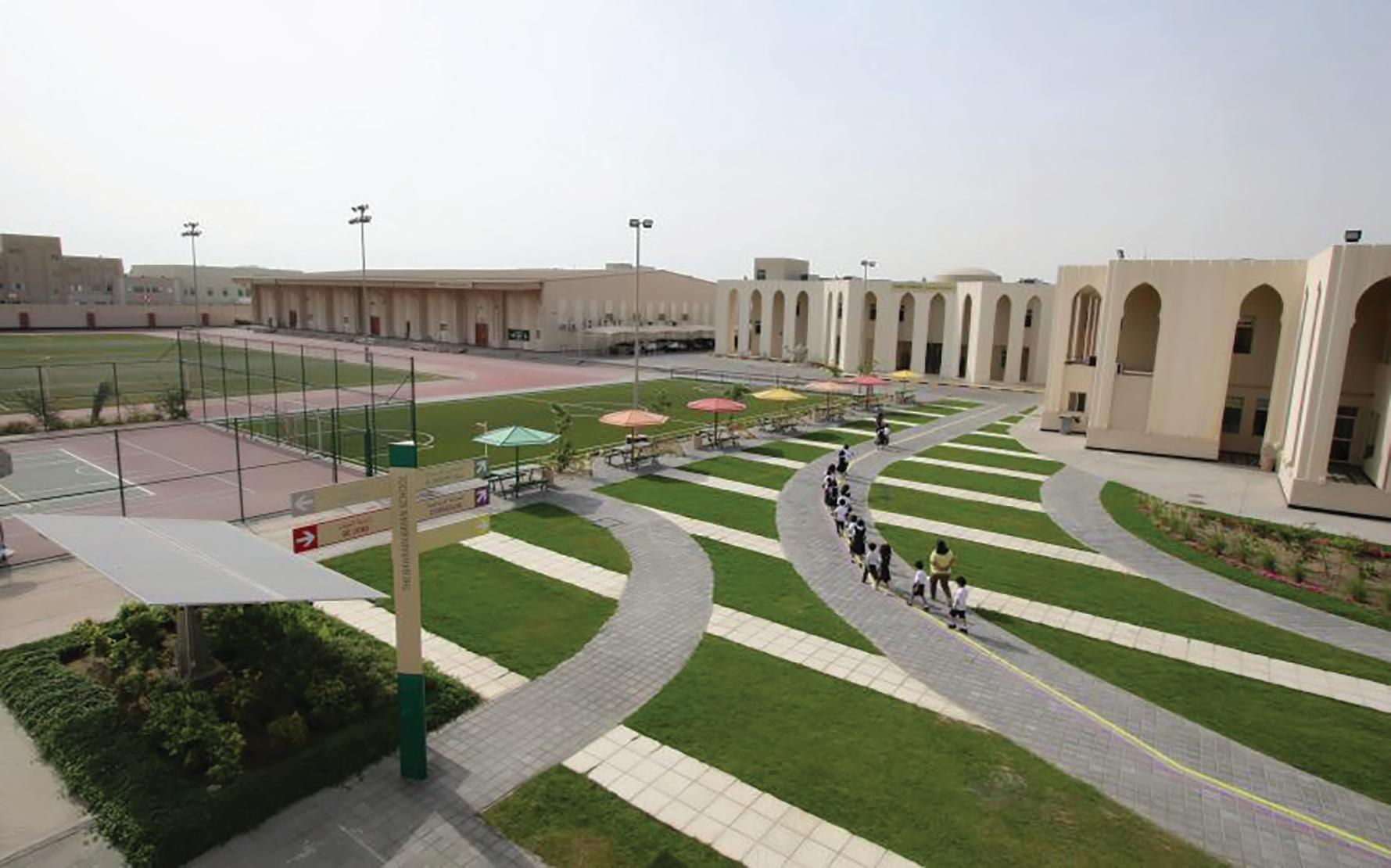
showed dedication and perseverance to accomplish this project. Different meetings with Dr. Ahmadi were of high importance in clarifying many engineering norms for the students.
Another difficulty was the change in plans of the new building has been shifted and moved into the designated parking spot which exposed the students to real-life challenges and how to overcome unseen obstacles.
A brief assessment of your results Bahrain Bayan School students worked hard for almost three months to accomplish the task given; such projects
are encouraged by the school board of trustees and administration.
Despite all difficulties, students were able to produce a bridge fully designed by them; this experience reflects the high academic and creative level of Bahrain Bayan School students who are designed to be future leaders.
In hindsight, what were the most valuable lessons learned? Could things have been done differently?
Bahrain Bayan school students showed a high level of intelligence; they are self-learners, risk takers, and good communicators. Once their imagination was unleashed, the students were able to produce beyond their age level. They presented with confidence their work to Dr. Bashar Ahmadi and other board members. However, interviews with engineers and field visits to some sights would have been of great help for the students for future projects.
Special thanks to Mohammed Khalifa Al Ghatam, SharifaTalal Al Mannai, Yara Khalid BinThani, Ali Abdulameer Al Jeshi,AliWaelAl Maraghi, andAbdulla Sameh AlThawadi for their dedication and perseverance.
Bahrain Bayan school students showed a high level of intelligence; they are self-learners, risk takers, and good communicators.
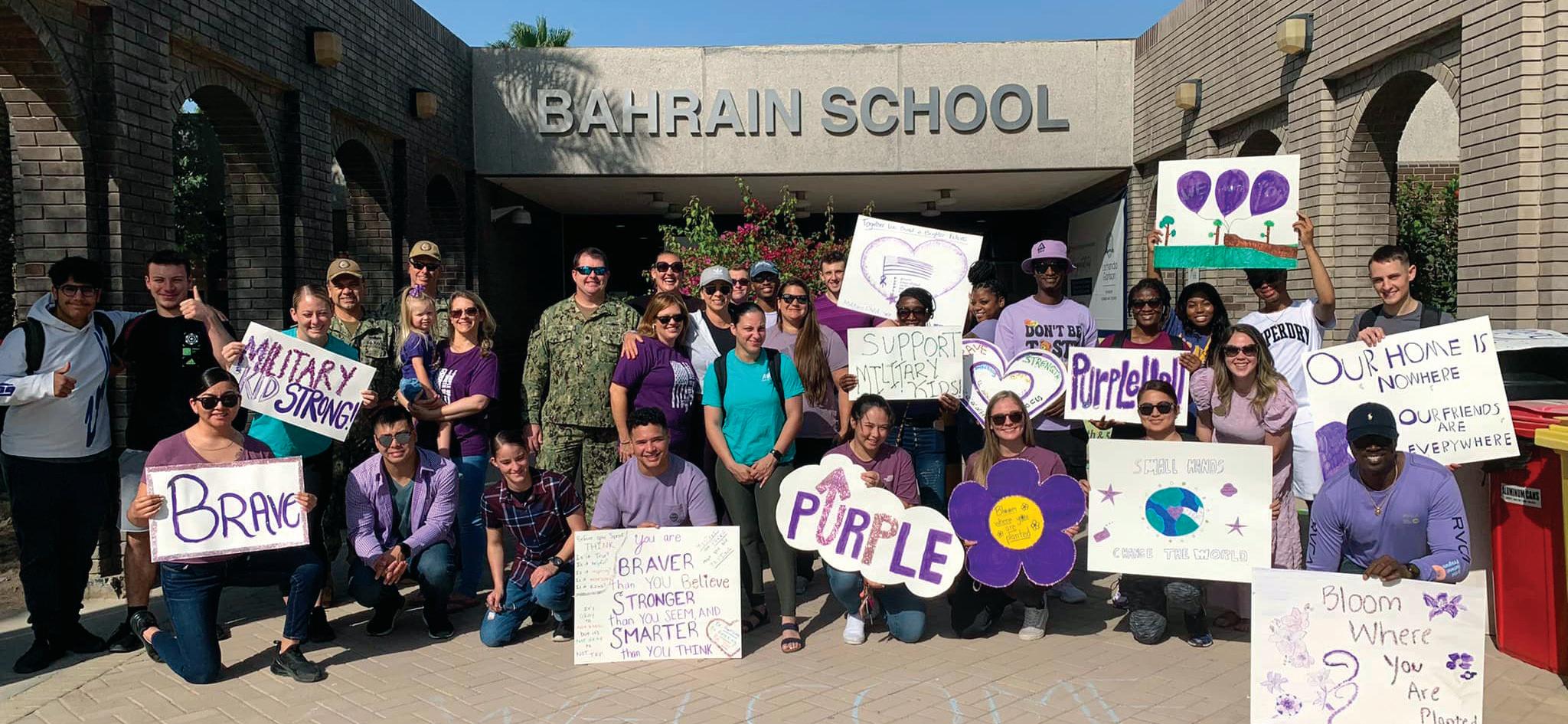
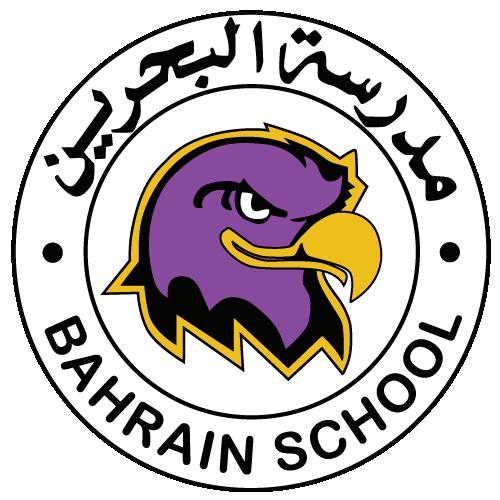
Professional Learning Communities (PLC) established by the school are revisiting curriculum planning and assessment to ensure that all students achieve academic success.
At Bahrain School, we focus on our action plans to identify specific student needs to create learning opportunities based on concrete data for our students, to find what we can work on together. We have established Professional Learning Communities (PLC) to directly address student achievement data. The PLC members meet weekly to monitor and adjust curriculum planning and assessment to ensure that all students experience success in their academic endeavors.
We maintain a diverse school community that proudly represents over 29 nationalities. Diversity, equity, and inclusion are at the heart of all of our educational endeavors at Bahrain
School. Additionally, we encourage our students to be heavily involved with community outreach as they are members of establishments such as Club Interact with the local Rotary Club and frequently involve themselves in community service and volunteering.
We have developed a School Action Plan based on student formative and summative data and have established goals and milestones for student achievement. The School Action plan is guided and supported by the Region and District Action Plans established by the Department of Defense Education Activity, Europe and the Europe South District. This has been a region, district and school-wide effort since 2019.
Innovation: Establishing Professional Learning Communities to support better teaching practices
We have developed a School Action Plan based on student formative and summative data and have established goals and milestones for student achievement.
Challenges faced in implementation
Challenges included having the complete buy-in of the plan(s) and providing time for teachers to fully unpack standards of learning and new curriculum material for lesson planning and assessment. Another challenge was fully implementing PLCs to include data review and specific teacher strategies to address student learning.
We witnessed a 5% growth in student
performance for Grades 6 through 12, Mathematics. Our numbers in literacy are still below our milestone goals across different grade levels. However, this calls for improving assessment calibration and teaching strategies to implement writing across the curriculum. The process is on-going as we begin a new cycle of data review and strategic planning for deeper, meaningful collaboration to guide instruction.
In hindsight, what were the most valuable lessons learned? Could things have been done differently?
To provide more time for data review, analysis, and collaboration to fully address the gaps school-wide, especially through an in-depth review of subgroup performance levels was a crucial lesson learned. Understanding teacher needs earlier will assist in providing professional learning to directly improve instruction and student learning.
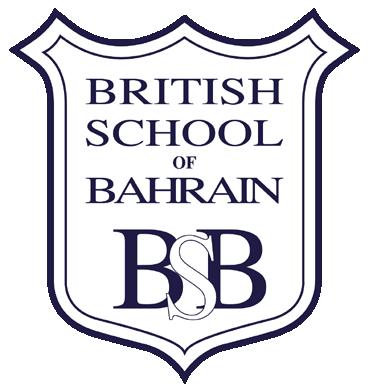
The program is about student enrichment and their enhancing future prospects through additional activities and developing new skills and passion.
Brief background of your innovation
Beyond BSB is a multifaceted enrichment program which aims to develop the skills and interests of all students within the BSB Senior School to ensure that they are successful when they enter their chosen universities and careers. A BSB education is more than just the learning that occurs within its stimulating lessons. At the School’s heart is the development of a love of learning and the skills that make BSB students successful, not just at school, but when they graduate and begin their chosen career paths. Beyond BSB is part of this enriching provision. A range of activities complement the curriculum, including a weekly lecture series by passionate colleagues and visiting guest speakers on a range of engaging topics pitched to first-year degree level; an independent study project, completed as an introduction to independent research in year 10, and as an extension to A Level study in Year 12; subjectspecific support and guidance with University applications, interviews and entrance exams with nominated experts
within each faculty; bespoke University guidance and support for a range of international aspirations, including some of the best Universities worldwide; and the BSB mini-MBA, which is a fifteenweek voluntary course for passionate and committed Year 13 BSB students, who aspire to a career in Business or Business Management.
The Beyond BSB program has provided students with the opportunity to complete an independent study project in Years 10 and 12, with an increasing level of challenge. This encourages natural development of the skills required, as well as a program of guidance and support in completing the project. The program of support is provided via the PSHE program and through an online platform, where students can access information videos and examples to help them in their work.
They are also assigned an individual mentor, who will work closely with them for support. As the project progresses, the level of guidance and support subsides, to enable the
students to fine-tune their study skills in preparation for submission. This process intensifies in Year 12 as students make the decision to submit their project for an EPQ qualification or not.
The university counselling aspect of Beyond BSB has kept the student at its core and parents are encouraged to become active participants in their child’s application process. Information and advice are filtered through a counselling team that is led by the counsellor and deputy, head of year and form tutors. A range of activities and events supplement the process to give a wide-ranging and stimulating view of what is available and how to access it.
Information talks with specialists, Universities and Alumni forge partnerships, whereas access to an online platform to store their applications allows students to easily track their application throughout, as can the counselling team. This transparent overview gives parents, students, and the counselling team an open dialogue to ensure focused and efficient communication regarding
applications. Finally, parents are also invited to the lecture series as well as students, to gain a better understanding of what their children are learning or interested in. This can be useful in initiating conversations about university aspirations.
The entire Beyond BSB program is about student enrichment; enhancing future prospects through additional activities and developing new skills and passion. Students are given extensive training and support in preparation for university interviews and entrance tests, through mock tests and interviews with various members of staff. The staff will range from subject specialists to the general staff, in order to focus on different aspects of a university interview.
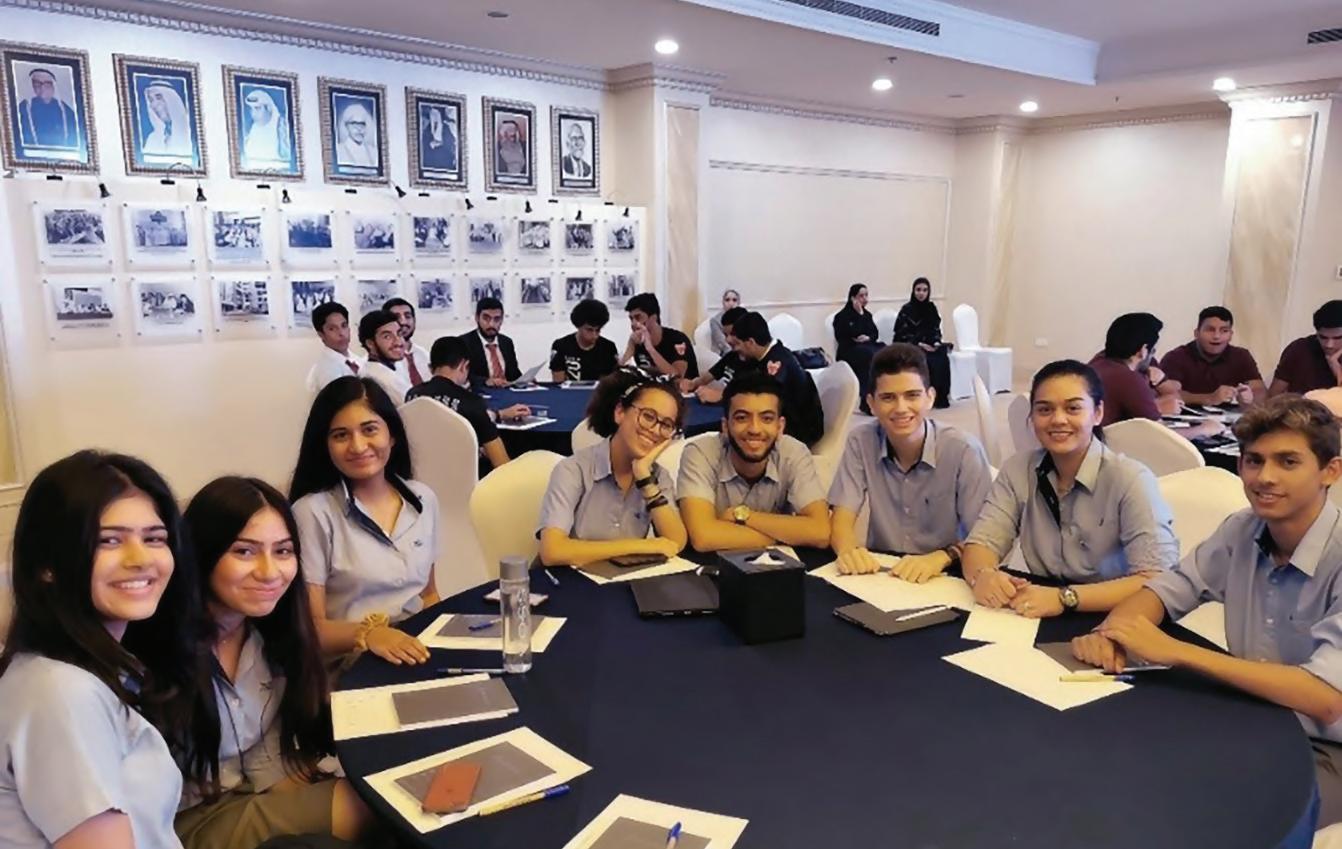
Beyond BSB was born as a direct result of the Covid-19 pandemic, in response
to an opportunity that was presented by the cancellation of the summer examinations of 2020. This gave schools a large chunk of curriculum time that
is not normally given. Despite the imposed lockdown, BSB operated a fully virtual school throughout, including Year 13 students. It was decided early to provide students with a program that would prepare them for university in ways that have never been possible.
The lecture series was accompanied by ‘life skills’ sessions on basics like cooking, relaxation, meditation, and independent study skills. To remain a successful and popular long-term program, it has evolved into the current enrichment program that compliments the curriculum and begins in Year 10. The concept of project-based learning and the associated skills is something that can be developed further and embedded within the curriculum at primary and early years Key Stages, to maintain a common theme throughout the BSB learning journey.
The Beyond BSB lecture series has begun online, delivered through a
The Beyond BSB program has provided students with the opportunity to complete an independent study project in Years 10 and 12, with an increasing level of challenge.
webinar-style platform. This can reach an unlimited number of users from any location around the world and the next steps are to invite students from sister schools within the Inspired network to join the weekly lectures. Each lecture is recorded and can also be made available publicly via the school’s social media platforms where appropriate.
All schools prepare their students for the next step in their educational journey. However, the British School of Bahrain wanted to re-think the possibilities of what this preparation could look like and design something innovative that was challenging for all students within the local community and had the ability to evolve over time. The critical aspect was that it should reach beyond the walls of our school, not just in who was involved but also who benefits from this program. The most exciting part is that the Beyond BSB program is already evolving every year and developing in innovative ways.
Beyond BSB addresses the challenge of how schools prepare students for the future whilst balancing all stresses in their lives, including educational demands for success. These can have a negative impact on any student’s well-being. Students must prepare for an unknown next step when the world of industry and future roles have not been invented yet. By working with both global and local experts, we designed a multi-faceted approach that enabled industry speakers, universitylevel academic preparation, expert-led super curricular opportunities, career pathway initiatives and opportunities for student leadership and social skills development.
Beyond BSB has improved the wellbeing of all participants within the school and community. Not only do students now feel more secure in the choices they make, but also that they are developing the skills needed for whatever the future holds. Graduation to university, or careers, has been transformed from something feared to something they relish.
By inviting other schools to participate and join lectures, the sharing of good practices would hopefully lead to reciprocation and a network of schools offering an even larger range of webinars for students to access. Schools could potentially become leaders in particular specialisms or faculties to streamline the content further. Links with our guest speakers have also enabled us to establish good links with both local and international Universities, with whom we are encouraging our students to apply and directing them towards bespoke advice and guidance in their applications.
commented on the positive impact that the program has had on student motivation and curriculum development.
The implementation of Beyond BSB Connect has focused on developing each student’s responsibility of digital networking, and professional platforms use such as LinkedIn for gathering information and research for their future focus. This element provides all students with both the knowledge and the skills required to develop a positive presence on digital platforms. Students across the community all establish their own LinkedIn profiles and identify areas that need further development through internships, qualifications or evidence of skills.
A partnership with twelve local embassies has led to the development of the Global Etiquette program. This element enables students to engage with country ambassadors and global industry leaders on formal and informal greetings and business protocol with different country representatives. Through these experiences, all participants across the country can positively develop an intercultural understanding of different countries, cultural norms and customs.
In hindsight, what were the most valuable lessons learned? Could things have been done differently?
A brief assessment of your results
The Beyond BSB Community Enrichment program continues to develop all aspects of this multi-faceted program. The students are optimistic about the impact Beyond BSB has on their learning experiences. Khaled S, a local student, stated “Beyond BSB is an amazing experience… represent the school and yourself as an individual… way of networking to businesses and firms and ensures that students are ready for the real world”. Teachers, from across the community, have also
The most exciting part of the Beyond BSB program is that it is already evolving every year and developing in exciting ways. Beyond BSB has become an umbrella term for an ever-increasing number of separate components which feature as part of the program. Each element stands alone as part of this outstanding provision; however, each shares the central purpose of developing the knowledge and skills of all students within the community.
The implementation of Beyond BSB Connect has focused on developing each student’s responsibility of digital networking, and professional platforms.

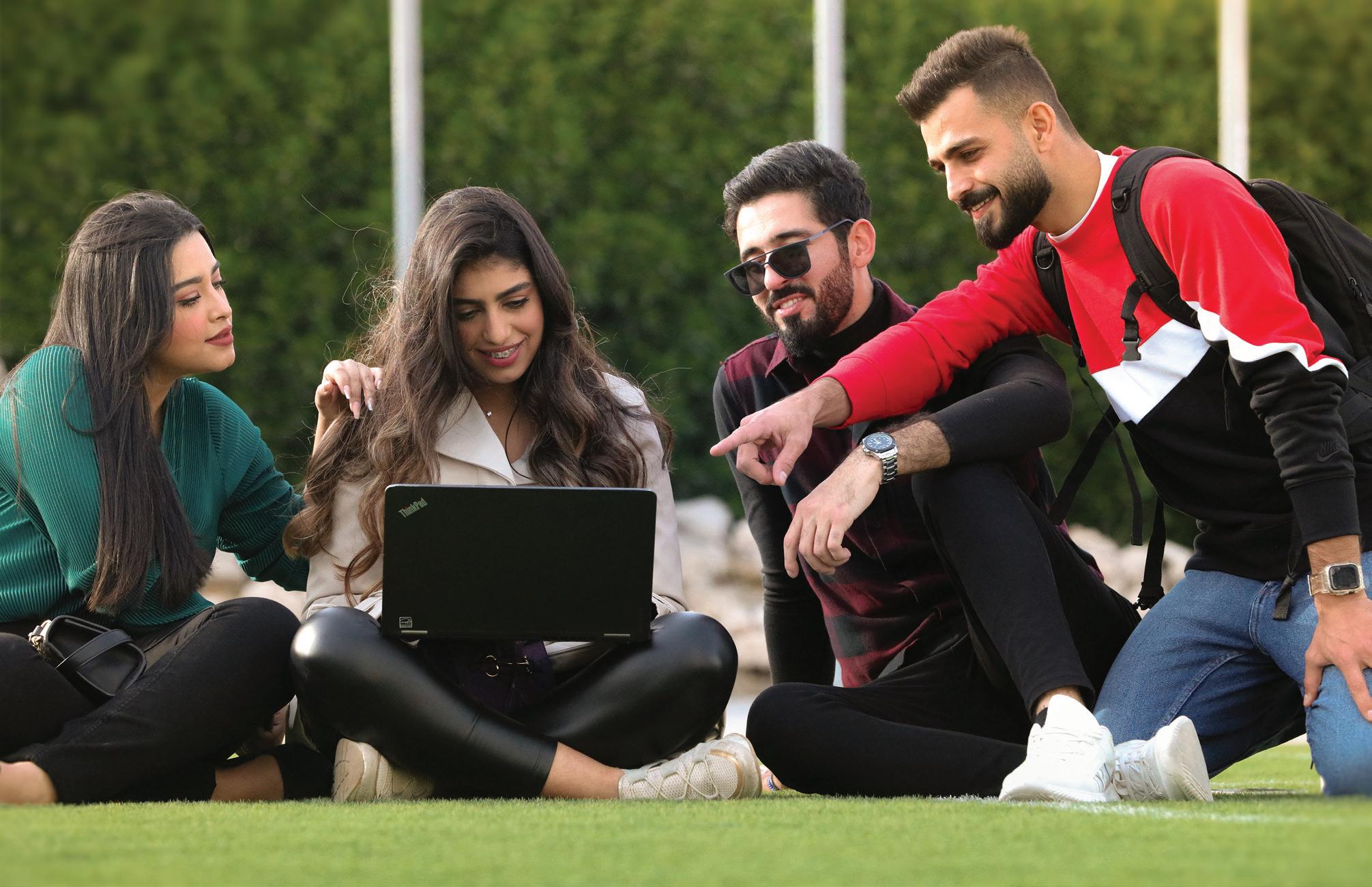
The University has created a learning space, ‘STUDIO CAFÉ’ with green house and innovative seating arrangements where students can sit, relax, discuss and work on their projects.
Brief background of your innovation
Gulf University has integrated sustainability into its cultural, educational, and physical environments. A smart and sustainable educational environment has the potential to grow, evolve, adapt, and learn from itself and re-inventing itself by strengthening the synergy between education, research, and community engagement. Within the context of redesigning the campus towards a vibrant campus life, sustainability, and
approach to project-based learning, research was conducted by faculty to examine the impact of the educational environment on students’ learning
activities and preferences. The theme of the research had been revisited in a summer 2016 workshop on ‘Educational Effectiveness & Enabling Sustainable Architecture’ in collaboration with a design office in the Netherlands. As a legacy of the discussion on the 21stcentury university campus, students of the Interior Design Engineering program had been assigned a project to reutilize an unused space (prefabricated cabinet within the university campus). The students conducted further research on the topic of designing educational environments and developed their
This innovation was planned to ensure a stimulating learning environment and active campus life.
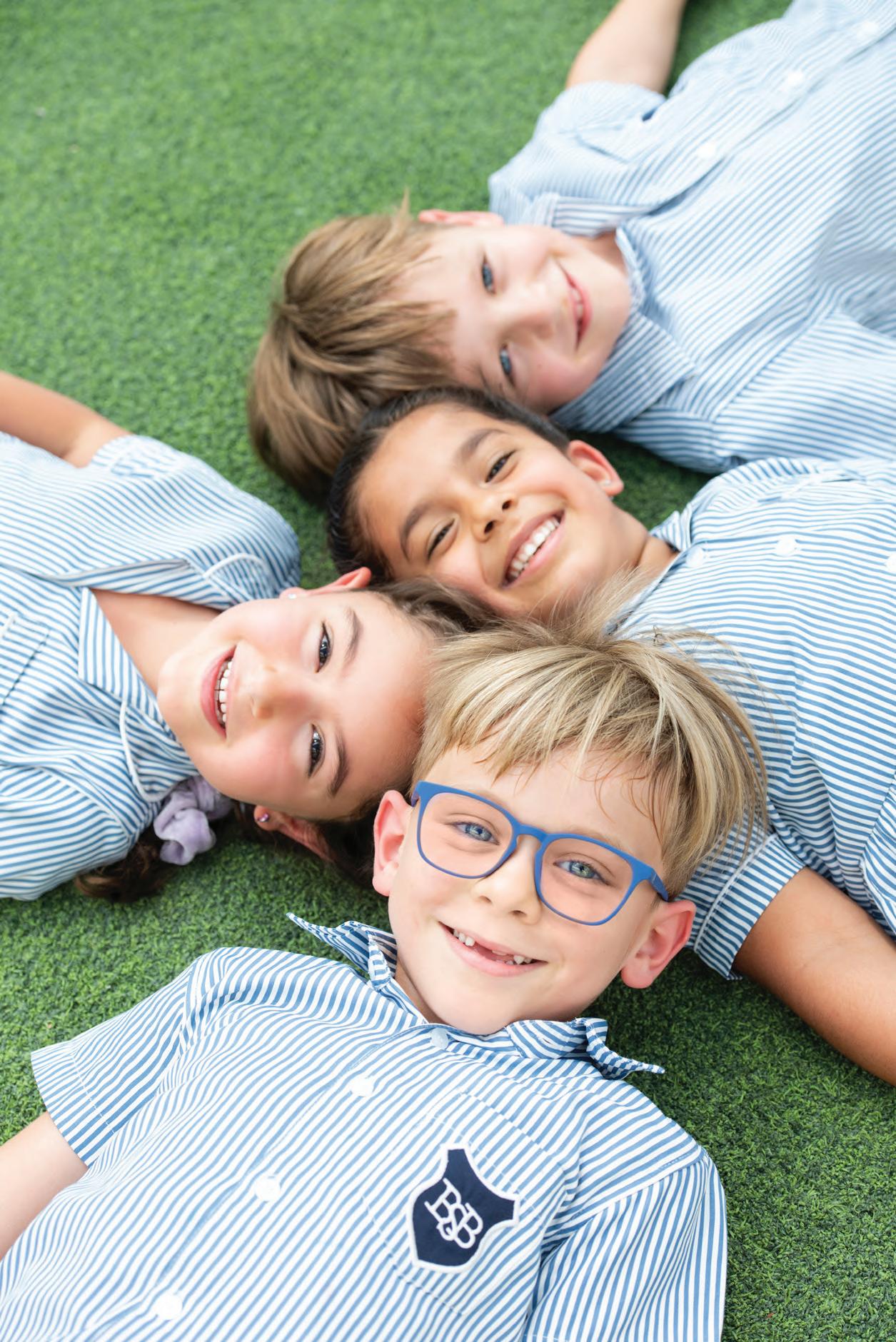
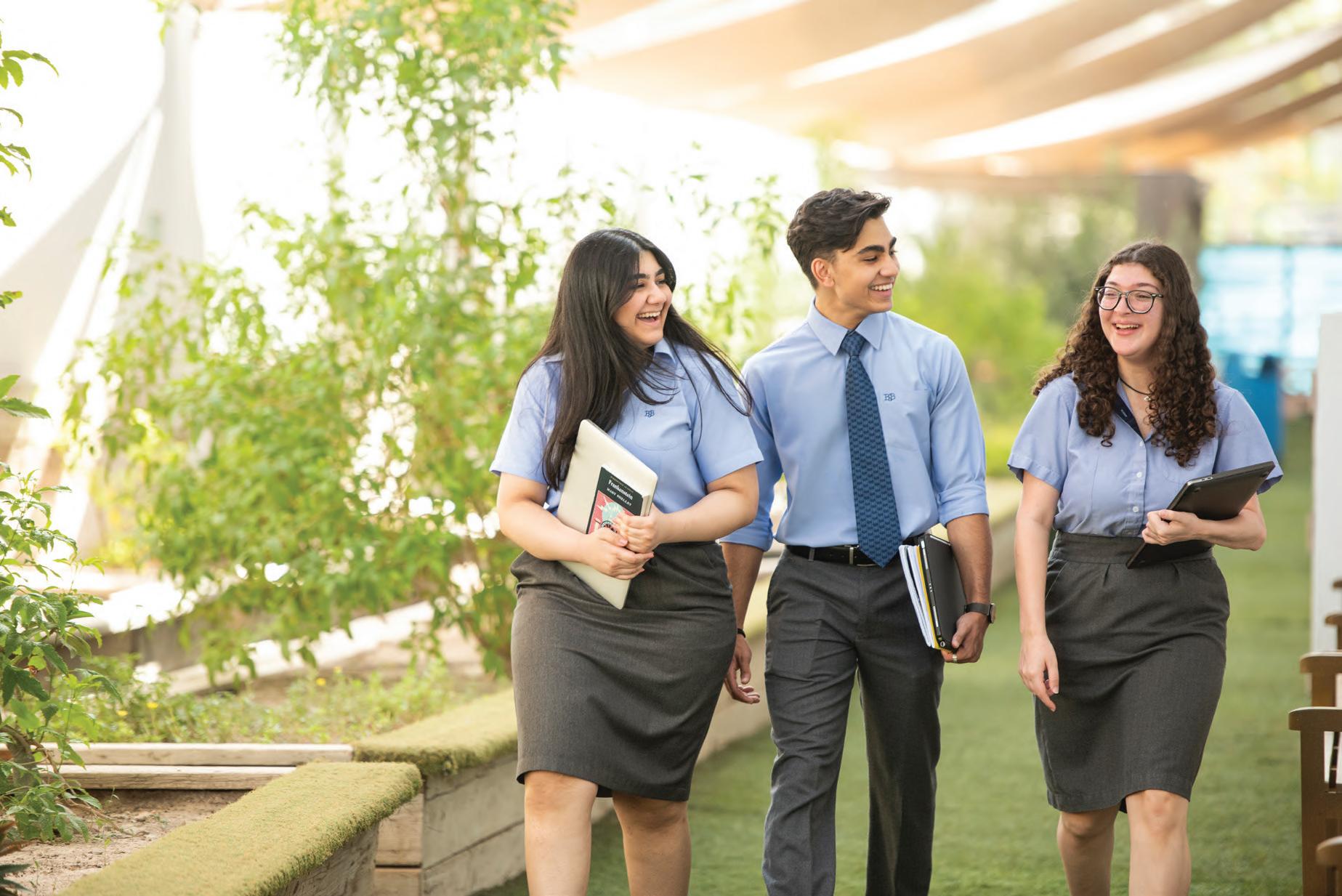
project in collaboration with the faculty. This is how the idea of ‘Studio Café’, an innovative learning space was generated.
The students of interior design studio 4 collaborated to work on the project throughout one semester in designing and implementing the concept. Studio Café is a unique learning space in which the concept of a design studio and cafeteria merge. The project highlighted the design tasks to redesign unused spaces and produce furniture elements and units to support individual and group learning. This innovation was planned to ensure a stimulating learning environment and active campus life. The designed space and furniture facilitated the students’ formal and informal learning experiences where they could enjoy the variety of seating, working, and presentation arrangements. In the following semester, the students of interior design studio 3 started to use the Studio Café from the first week and they completed the design of the space by selecting fabrics and colors according to their preferences. The project has been extended to a greenhouse attached to the café. This provides positive vibes with plants, and daylight access in a natural environment, and supports students in taking care of plants and nature.
The initial challenge was to convince and motivate students to work by themselves for the first time in executing design ideas and staying long hours on campus to complete tasks. The students were not exposed to working with tools/devices, accepting ideas from each other, and implementing the design ideas. Another challenge was related to construction while working with different materials including steel, wood, and glass. Procuring materials and managing the construction process was not very smooth in the beginning but it was overcome gradually.
The students of other programs started using the space and enjoyed
the ambiance while relaxing, eating, and working on their projects and assignments. This innovative project changed the attributes of the students in terms of collaboration, creativity, team building, and problem-solving.
The students enjoyed the hands-on experience while designing, creating layouts 1:1, selecting materials, cutting the wood, fixing, upholstering, etc.
Apart from the designer’s perspective and eating options, the space stimulates
to entertain and enjoy the break with friends. The space has been utilized not for hanging out only but it created more belongingness amongst the students towards the university and campus. Studio Café brought the vibrant campus life experience to students.
In hindsight, what were the most valuable lessons learned? Could things have been done differently?
The students who participated in this innovation gained and shared knowledge and new ideas in the field of interior design, particularly designing their own learning environment reflecting on research methods and results. This project enhanced the collaboration and social relationships between the students during the project phases. After completion of the project, they were able to utilize the Studio Café for both formal and informal learning activities as well as socializing and entertaining. The students became more connected with the instructor. They developed interpersonal competencies like commitment, time management, self-confidence, taking responsibility, and initiative. Moreover, it supported them in choosing their career path while executing different phases of the project. This innovation also underpins the principle of continuous development since Studio Café has been modified and extended ever since its inception.
the natural environment and motivates students to stay more on campus. The space has created group corners with students of different disciplines working on their projects using laptops, brainstorming ideas, discussing issues relevant to their course topics, preparing presentations, and so on. Interior design engineering students are working on sketches and drawings, explore design ideas, and analyze cases in different corners with a variety of seating arrangements. The corner with a gaming facility provides an opportunity
Sustainability as a dynamic concept evolves over time. In this context, smart sustainable education shapes the current and future environment of the campus enabling students to evolve and obtain 21st-century skills. Undoubtedly, Studio Café is considered to be one of the remarkable initiatives of Gulf University to reflect its values and practices toward innovation and sustainability. However, this opportunity could have been extended to students of other disciplines to contribute to the project. Once students are actively involved in campus development or redesigning spaces it brings ownership and social enterprise and motivates students to perform better in a dynamic and active learning environment.
The students who participated in this innovation gained and shared knowledge and new ideas in the field of interior design, particularly designing their own learning environment reflecting on research methods and results.
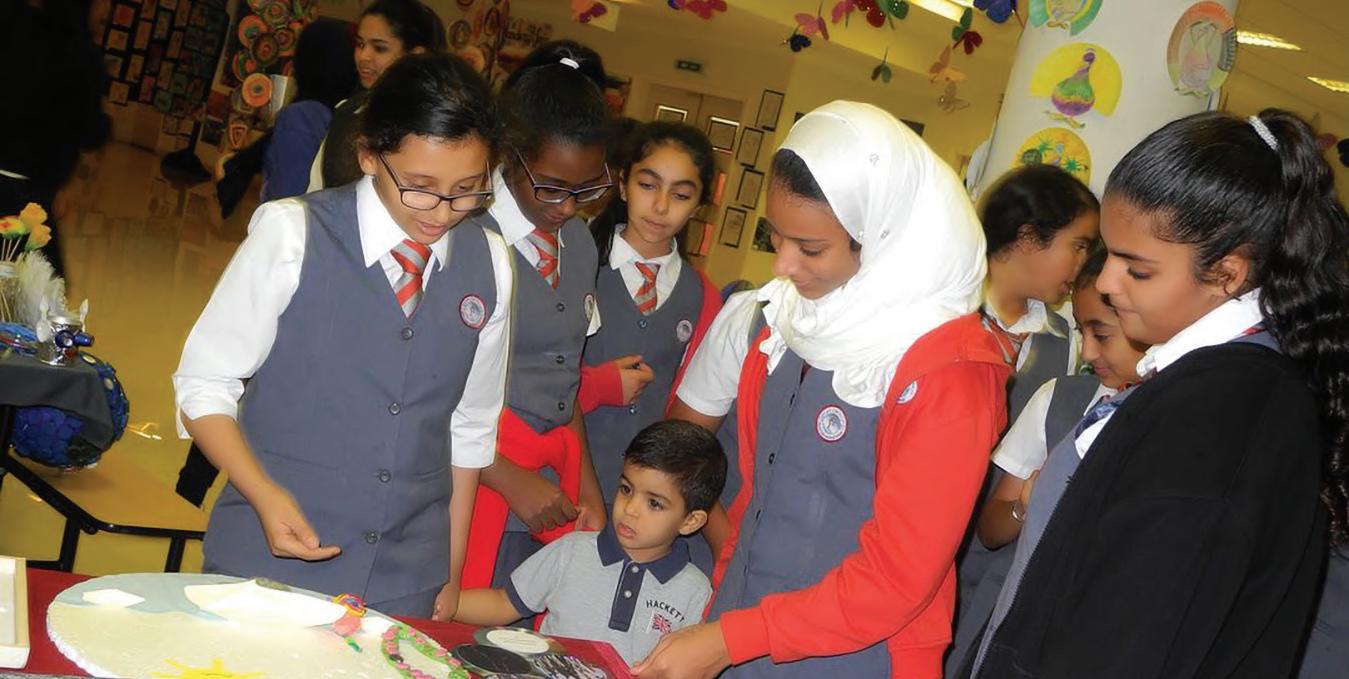
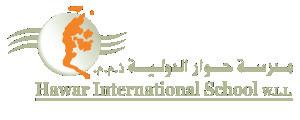
Providing a virtual experience of the annual art fair that displayed students’ artistic creations during the COVID-19 pandemic.
Brief background of your innovation
Hawar International School held a virtual experience of the annual Art Fair where all students’ works were displayed using Lapentor, a virtual tour software that provides the user with 360-degree streaming, floor plans, maps, hotspots, panoramas, and virtual reality. It is a cloud-based solution that allows users to access their tools through any web browser on their preferred devices.
A committee consisting of members of the Art departments and the head of ICT brainstormed ideas on how to celebrate art and HIS’ young artists during the pandemic. The most innovative idea was to bring the art exhibition
to the students and their parents via VR experience using a real 360 and panorama photo of the school to build a connection and sense of belonging to the school even during the lockdown.
Digitalization of students’ works as well as ensuring that all of their art pieces are included in the fair were some of the main challenges. Others included embedding different platforms and links in one source as well as making sure that it is easy to navigate even for younger audiences.
We wanted to ensure that students remain engaged, so, a certificate of participation at the end of the VR experience followed by short feedback was generated for each participant.
The VR experience garnered over 2000 views on the platform, making it a successful one. More than 400 certificates were generated automatically for the participants.
In hindsight, what were the most valuable lessons learned? Could things have been done differently?
With regard to the circumstances we have been under during the COVID-19 pandemic, we learned that the most valuable lesson was that we can and will continue to engage our students via virtual reality and we have continued implementation of VR even after school resumed full operation.

A student-led initiative to help and unite the most vulnerable individuals in the Bahraini community.
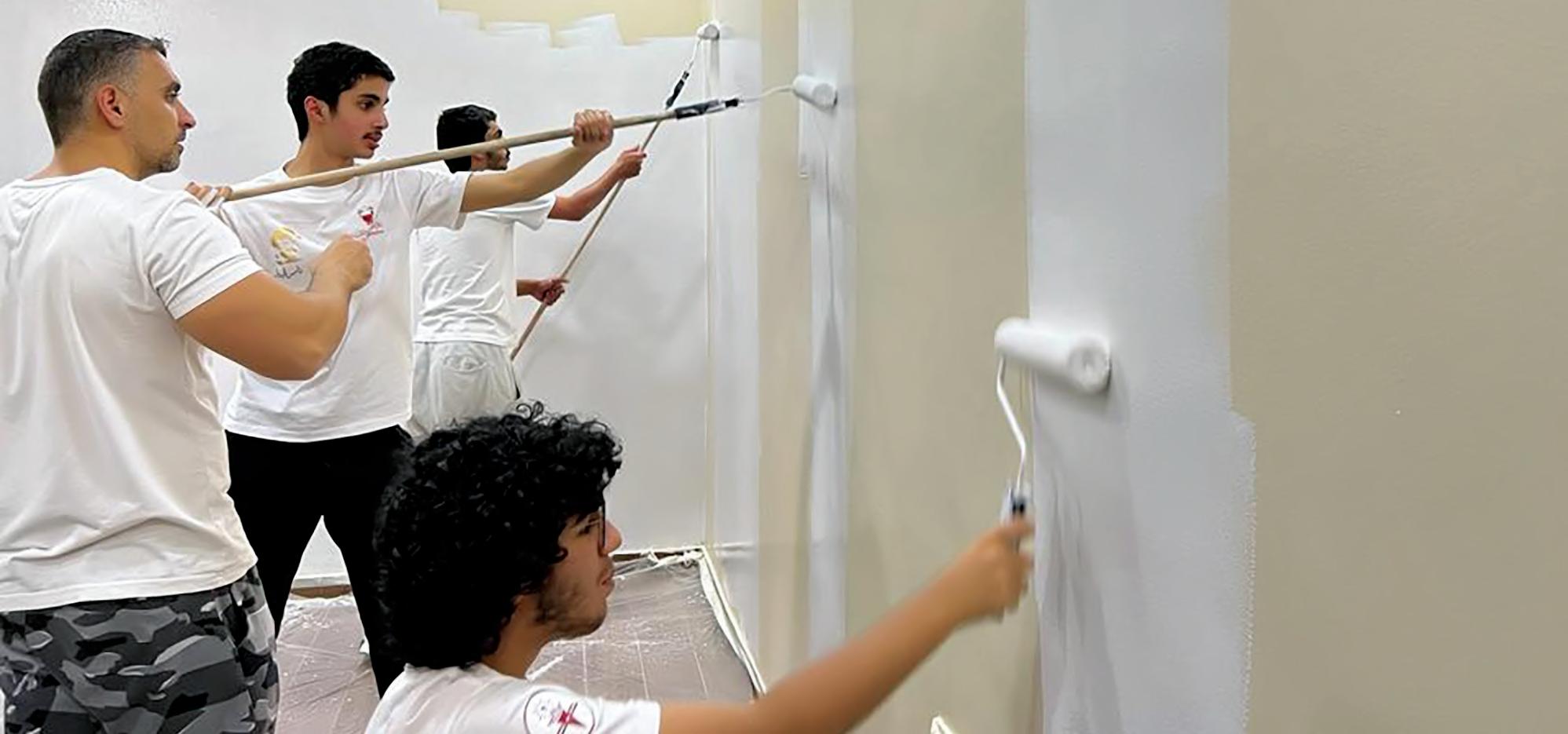
As a group of IKNS students sat down to try to make a difference, an idea came to mind. It was something unheard of, something unique. It was something that could change lives beyond our academic landscape. As young ambassadors of Ibn Khuldoon National School, inspired by His Highness Shaikh Nasser bin Hamad Al Khalifa - Representative of his majesty King Hamad for Charity Works and Youth Affairs, the Chairman of the Board of Trustees of the Royal Humanitarian Foundation, we wanted to be a helping hand to the society, the people, and the country that has raised us. This is how it all began. Team Nasser is a studentled initiative that started in 2019 with 12 students from Grades 9 to 12. These
students were united by a mission; a mission to contribute, help and unite the most vulnerable individuals in the Bahraini community.
How was it planned?
The first team project was a house of a single father with 6 children. Despite the father’s best efforts to provide a sound and comfortable home for his children, his financial situation was a hindrance; allowing for the most basic provisions within the four walls of a deteriorating structure. In one small room, devoid of air-conditioning, scratched walls surrounded bed frames with no mattresses that were shared by his six children. The living room was found in a similar state; empty, bare with only a small sofa alone in the corner of the room. This was a house but not a home. This was an experience that could not be ignored or neglected. After widening the perspective of our team members, they assessed the situation and devised a solution to upgrade the family’s living conditions.
These students were united by a mission to contribute, help and unite the most vulnerable individuals in the Bahraini community.

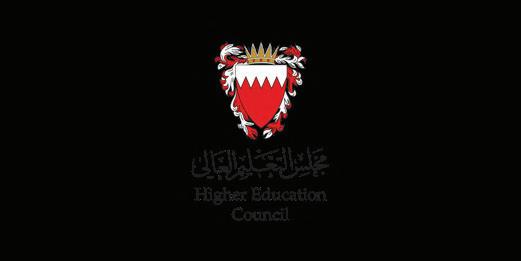
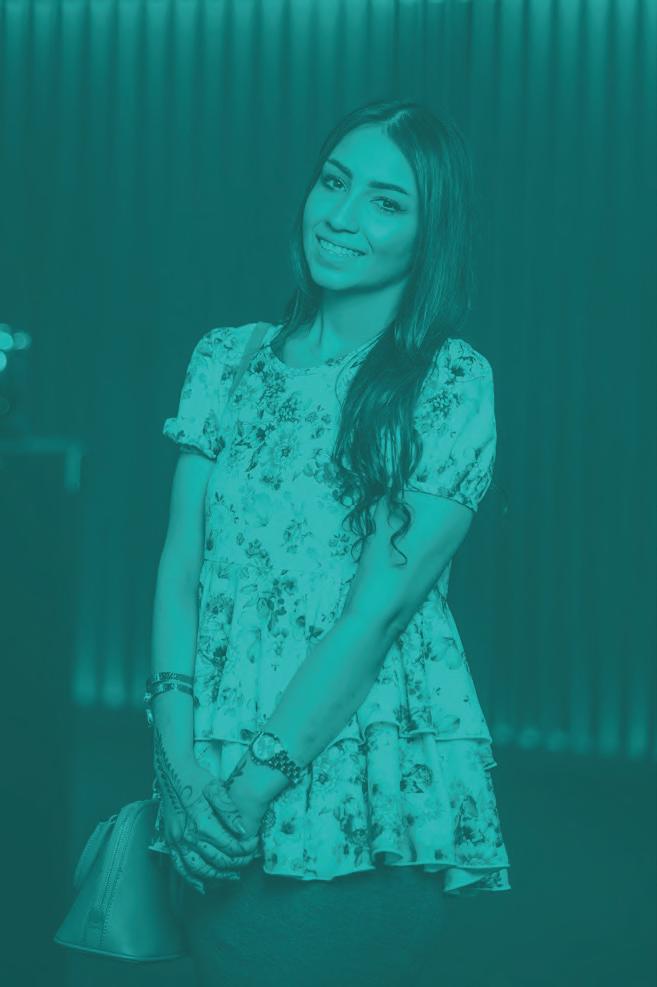
Master’s Degree in Mass Communication and Public Relations
Bachelor’s Degree in Mass Communication and Public Relations
Bachelor’s Degree in Interior Design



PhD (WR) Degree in Management Studies and Operational Research Awarded by Brunel University London, UK
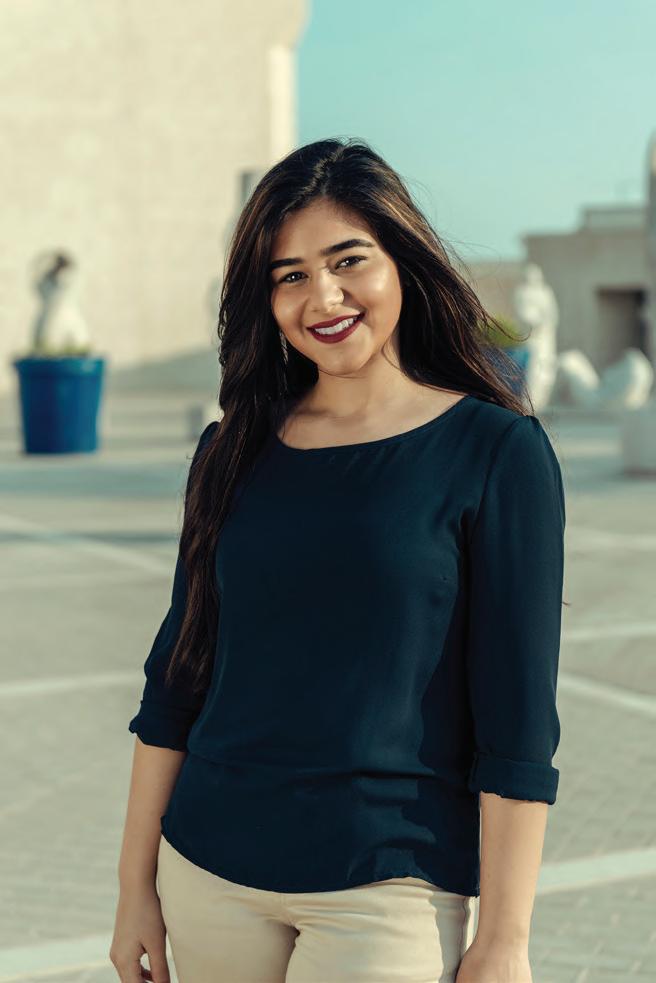
MSc Degree in Engineering Management Awarded by The George Washington University, USA
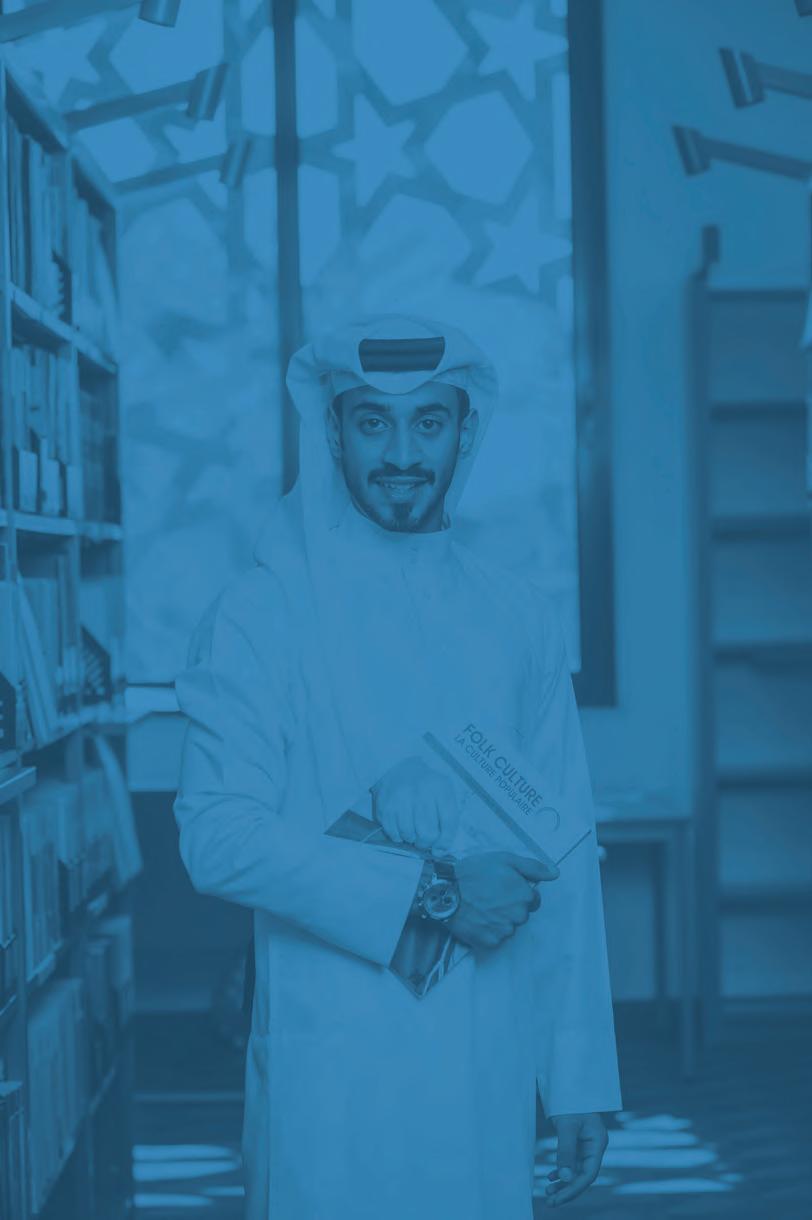
Master’s Degree in Business Administration (MBA)
MSc Degree in Financial Technology (FinTech) (NEW)
MSc Degree in Forensic Accounting (NEW)
Bachelor’s Degree in Accounting & Finance
Bachelor’s Degree in Banking & Finance
Bachelor’s Degree in Economics & Finance
Bachelor’s Degree in Management & Marketing
Bachelor’s Degree in Management Information Systems
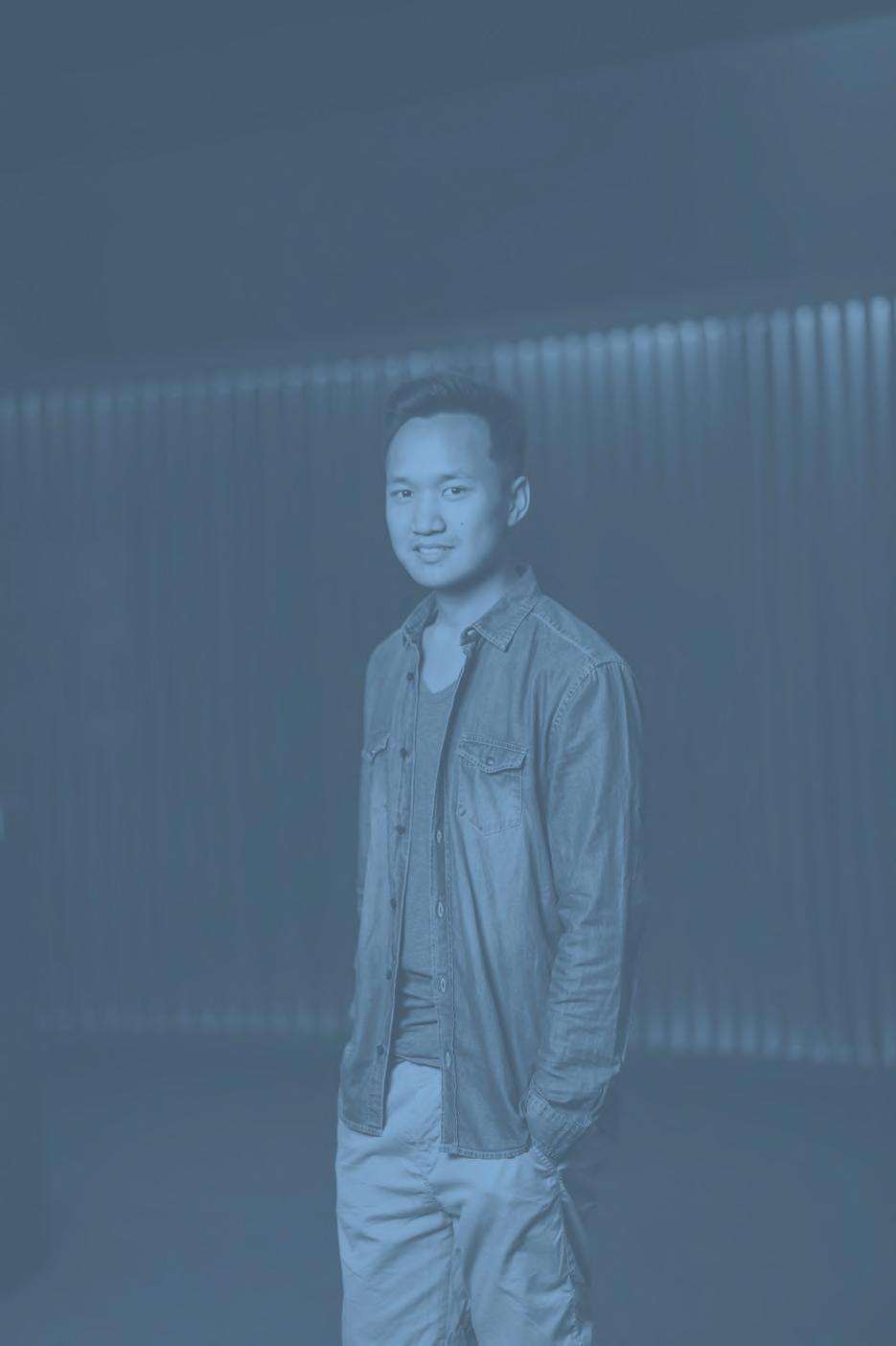
Bachelor’s Degree in Computer and Communication Engineering
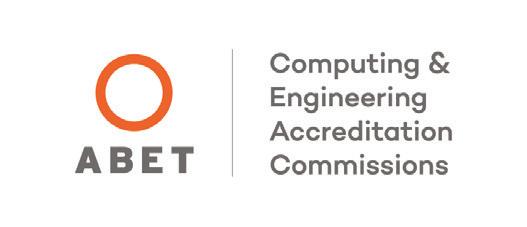
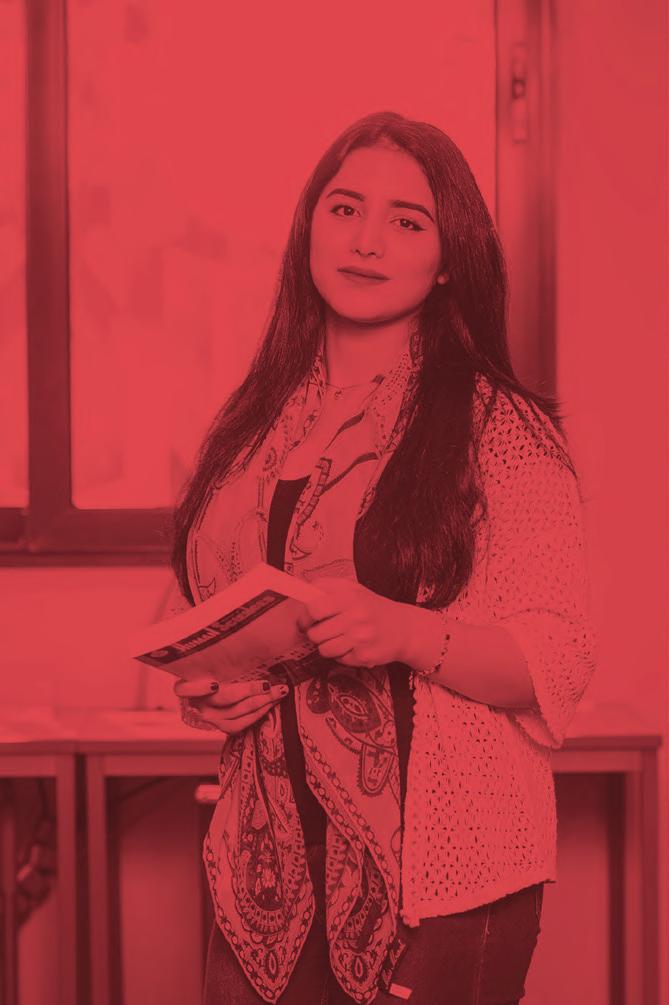
Bachelor’s Degree in Mobile and Network Engineering
PhD (WR) Degree in Information Systems, Computing & Mathematics Awarded by Brunel University London, UK Master’s Degree in Information Technology and Computer Science
Bachelor’s Degree in Information Technology
Bachelor’s Degree in Multimedia Systems
Challenges are frequent in team activities, whether they are the physical challenges of carrying tiles or the administrative side of the team. In order to facilitate teamwork, the team is currently divided into several departments that work hand in hand to spread awareness of the importance of charitable work and its impact on the community or to continue to give back to this community. The endless support of HH Shaikh Nasser Bin Hamad Al Khalifa and the motivation from the IKNS admin empowers the team to continue in its journey.
To this day, the team of 40 students continues to seek opportunities to provide help to less fortunate families in the Kingdom of Bahrain by enhancing their living conditions through renovation. The team successfully
completed 6 renovation projects and is currently working on the seventh. Since its inception, the students have been the driving force of good; through their direct involvement in the planning, marketing, renovating, and refurbishing process, they have nurtured their community and themselves by showcasing their selflessness, teamwork, and social responsibility.
The passion, dedication, and drive of the students did not falter, which is why they met the challenge of budgeting head-on. The team started organizing mini-events to sustain their project. Yet, the growth and success were only made possible by the support of His Highness Shaikh Nasser, and the Royal Humanitarian Foundation, who were the logistics supporters. Seeing our ideas come to fruition upon the completion of the house renovation was an incomparable feeling; the team had
a taste of giving and they were hungry for more.
In hindsight, what were the most valuable lessons learned? Could things have been done differently?
There should be no definition of giving back, as there are no parameters on how much can be given or how much love is put into the action. This philosophy is integral to the IKNS community and is continuously highlighted through our charitable and volunteer efforts.
Team Nasser is more than a school club; it is an initiative that teaches the students the true values of life and pushes them to do more good. The team is grateful for the opportunities given to them by His Royal Highness, the IKNS administration, and the generosity of the Bahraini community.
Brief background of your innovation
The SABIS® Integrated Learning System (ILS) is a learning system and tool that allows for the early detection and closure of learning gaps. ILS is designed to enhance analytical skills and promote self-learning by providing students with ownership of their own individual learning. It is a learning platform that connects students and teachers through digital devices (tablets) in the classroom.
How was it planned?
The ILS project was planned by taking into consideration the growing importance of independent learning and the utilization of technology in the field of education with its positive impact on facilitating student learning.
Challenges faced in implementation
Challenges were encountered during the pandemic, where we had to extend the ILS usage to students attending online classes, and while using the hybrid model, to allow for both in-class and virtual operation of the technology
The school’s Integrated Learning System allows for the early detection and closure of learning gaps, enhance analytical skills, and promote self-learning among students.
The most valuable outcome of this experience has been the ability to have on-spot monitoring and assessment of students’ work during the lesson.
simultaneously. Nevertheless, with the support of the technical and academic team, we managed to overcome this challenge through continuous guidance and training.
Through the weekly ILS reports, generated by a specialized system per lesson, students’ engagement and performance progressed significantly
overtime, which was also evident in their academic results and soft skills pertaining to confidence, personal initiative and individual learning.
In hindsight, what were the most valuable lessons learned? Could things have been done differently?
The most valuable outcome of this experience has been the ability to have on-spot monitoring and assessment of
students’ work during the lesson, along with timely detection of learning gaps and the possibility of bridging those gaps promptly. Things could have been done differently if we had arranged for both in and out of class ILS operation from the start, which would have helped us avoid the challenges faced with blended and online learning during the pandemic.
Brief background of your
Mutamahin is designed in collaboration with employers from different industries. Meaning that every year, we speak to our trusted employers to understand what skill sets are necessary and expected from the new generation of work-ready individuals. We differentiate our program by introducing additional practical sessions (fireside sessions and job shadowing) to supplement the main training sessions.
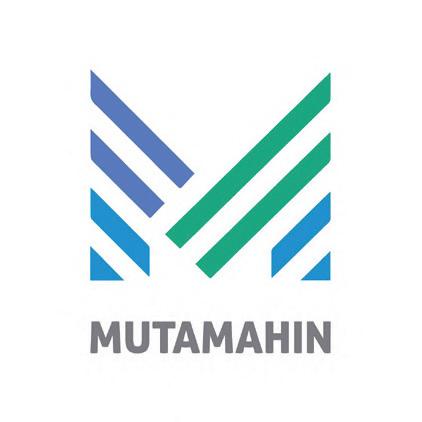
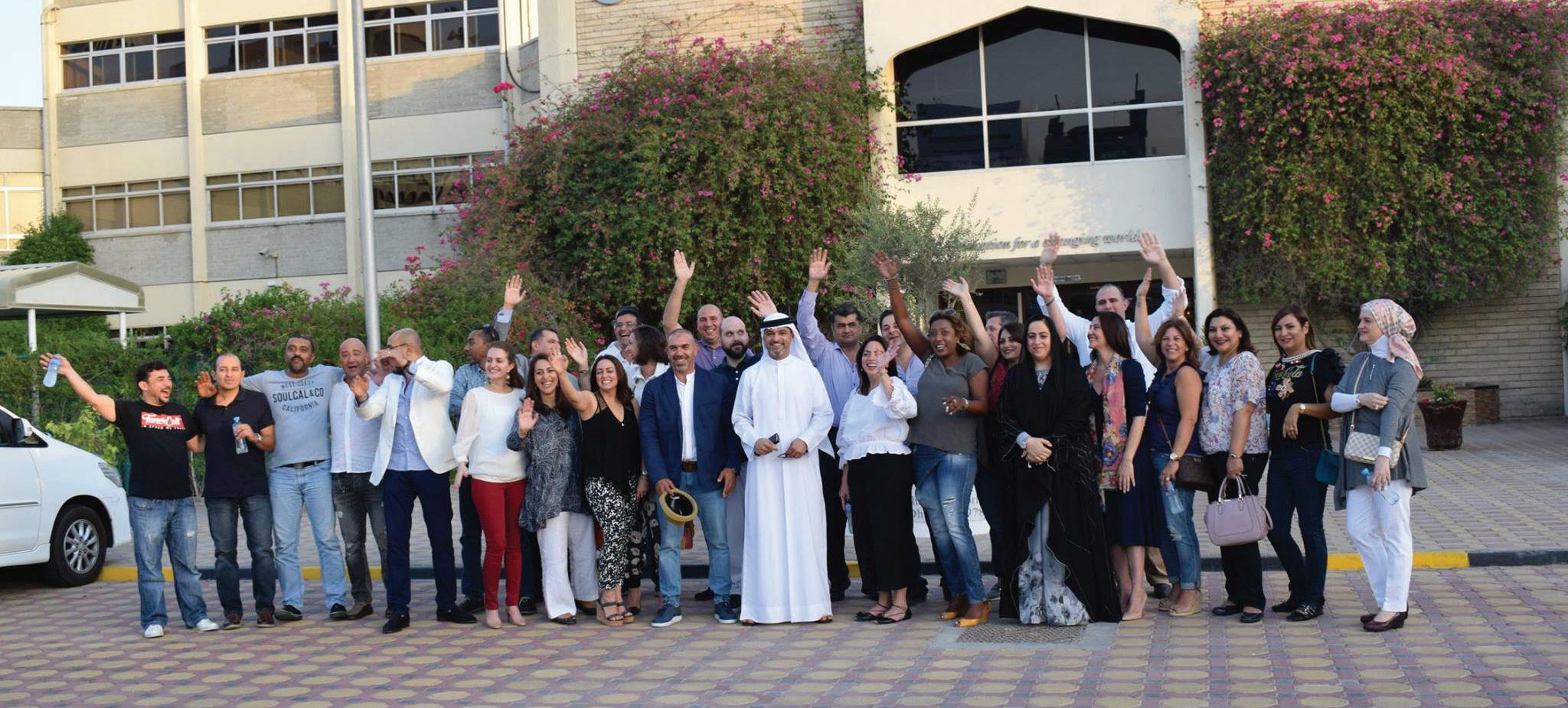
Mutamahin has a strong and long-term relationship with employers and training institutions in Bahrain. The Mutamahin volunteering team ensures the quality of the sessions remains of the highest standards by anchoring the training to the identified skill sets of the market. This is then incorporated in strategically designing the program schedule and selecting the relevant trainers/speakers.
The selection of suitable companies to host the sessions, especially job
The
shadowing and fireside would cover training all of the candidates from various educational backgrounds. This is to ensure that Mutamahin remains inclusive to all potential Mutamahin participants.
By getting up-to-date skill set requirements from employers and the introductions of sessions that provide
practical training, it raised the probability of Mutamahin participants receiving internship positions. The caliber of candidates also resulted in converting internship positions to full-time jobs.
In hindsight, what were the most valuable lessons learned? Could things have been done differently?
The value of introducing practical sessions like job shadowing and
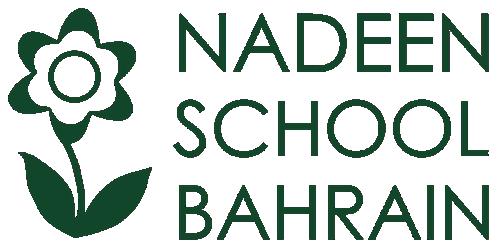
Ensuring children remain engaged in the classroom by accessing learning that is fun, challenging, and relevant to them.
At Nadeen, we believe passionately that all children are unique, with different strengths, weaknesses, talents, needs, and rates of development. We never employ a ‘one-size-fits-all’ approach as it is not compatible with our philosophy as educators or as people!
We welcome children from all nationalities, with all abilities and strengths and this gives us a very rich and diverse community, which we love!
fireside sessions increased the likelihood of earning full-time positions. Such training has also resulted in employers now choosing to fill fulltime spots with Mutamahin candidates upon graduating from the program.
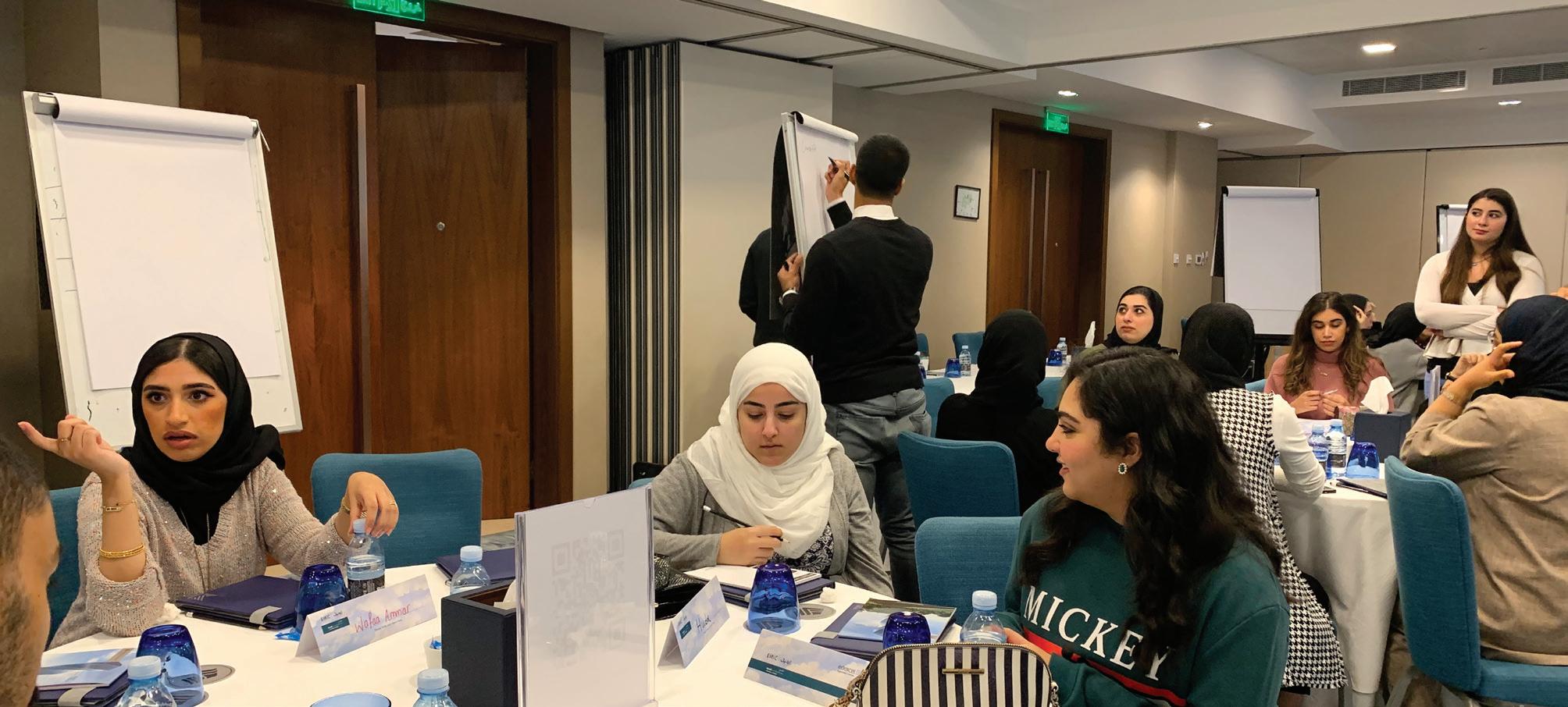
Mutamahin continues to reassess the type of training provided each year for the market needs and serve and equip Bahrain’s youth with the necessary skills.
Differentiated lessons and mini-sessions were introduced so that learning is made accessible to children - with support, stretch, and challenge for all.
Some children need a little something different to help them fulfill their potential and, at Nadeen, we work hard to make sure that children are able to access learning that is fun, challenging, and relevant to them. Our innovative approach to pastoral care was awarded and recognized at the British International Schools Awards.
The key areas of impact of the project have been an increase in confidence, a higher level of engagement in lessons, and a positive change in lesson behaviors.
Some of our main challenges included the COVID-19 pandemic, subsequently shifting to online learning; ensuring the health and safety of students as we created bubbles to accommodate them during the pandemic, among others.
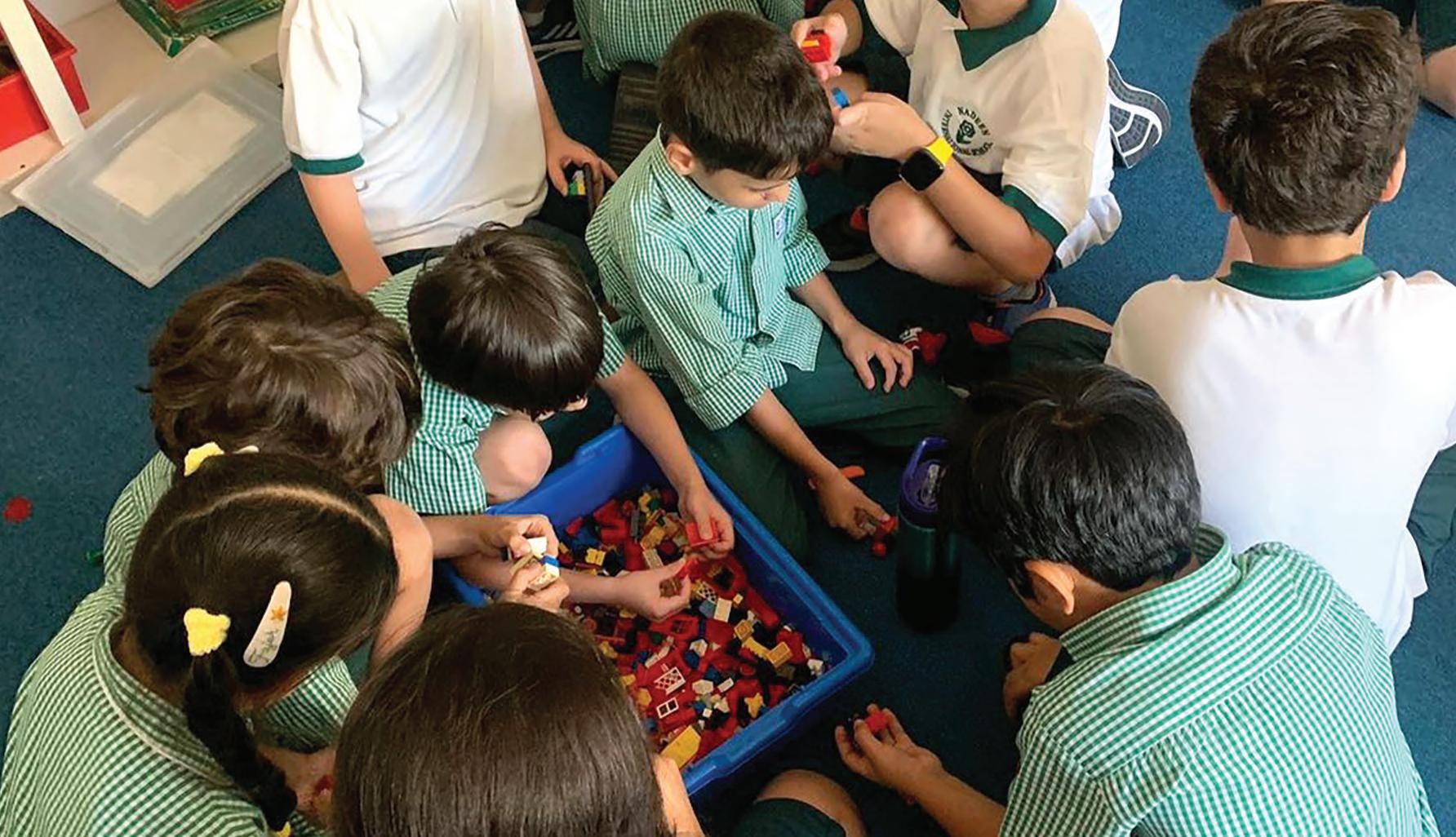
In hindsight, what were the most valuable lessons learned? Could things have been done differently?
The key areas of impact of the project have been an increase in confidence, a higher level of engagement in lessons, and a positive change in lesson behaviors. Measurably, this was seen in lesson observations, student
surveys, and interactions. It would have been better to have the opportunity to run through a full year of the program without the disruption of online learning as this is a face-to-face, thoughtful, and caring approach for each child. We are excited to see further positive results with a full year of on-site, in-class lessons and learning.
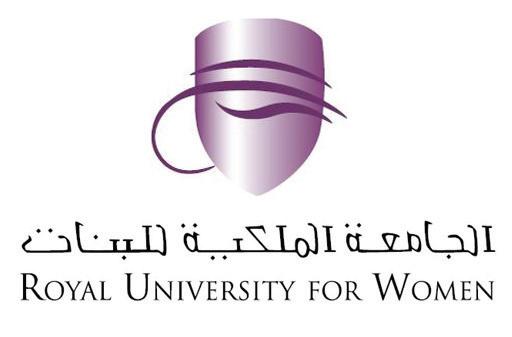
Innovation: Showcasing Entrepreneurial Skills at INJAZ
Brief background of your innovation
INJAZ Bahrain is a non-profit organization established in 2005 as part of Junior Achievement Worldwide to empower young people to own their economic success and be prepared for today’s business challenges. With the help of its
partners and volunteers, INJAZ Bahrain impacts thousands of students every year, bringing them closer to the real world and opening their minds to their potential.
Students of Royal University for Women took part in the Injaz program for the first time in 2016–17. It was the first
Students of Royal University for Women took part in the Injaz program for the first time in 2016–17.
time a university team had won the Best Company Award when Injaz Bahrain attended in Injaz Al-Arab in Egypt.
In 2017/2018, the RUW team won the competition against seven teams from four universities and received the Achievements Innovation Camp Award. Also, in 2018 RUW student company “Taawin” received The Best product Award – Kuwait. In 2018/2019, RUW’s team was nominated for the Best Product & The Best Company Award.
The University announces requirements and dates of the program, after which students are recruited, trained, and mentored. Identify ideas for brainstorming, review them, and decide which one to pursue. Following that, we begin the process of implementing the idea until the actual production or the manufacturing with the development of the product or the project or the application.
The main challenges are the program deadlines (whether semester or academic year long), as we need to keep the team members engaged, motivated, and participating at the same level and enthusiasm.
Other challenges include idea generation, idea production, finding suppliers, reaching out to customers, selling products
crops to avoid population and climate variability and change. RUW participated in Injaz Al-Arab with this company and won the CITI Bank Signature Award.
In 2022, RUW team presented “4 Us” with the goals of providing easy and efficient solutions to problems faced by the community such as discarding old unusable pots and pans, increase awareness in conscious and sustainable practice and embrace healthy lifestyle and achieve both short-term and longterm financial stability. The same year, the RUW team won the innovation camp (I Camp) among all universities in Bahrain.
The past three years have been rewarding for the students of RUW.
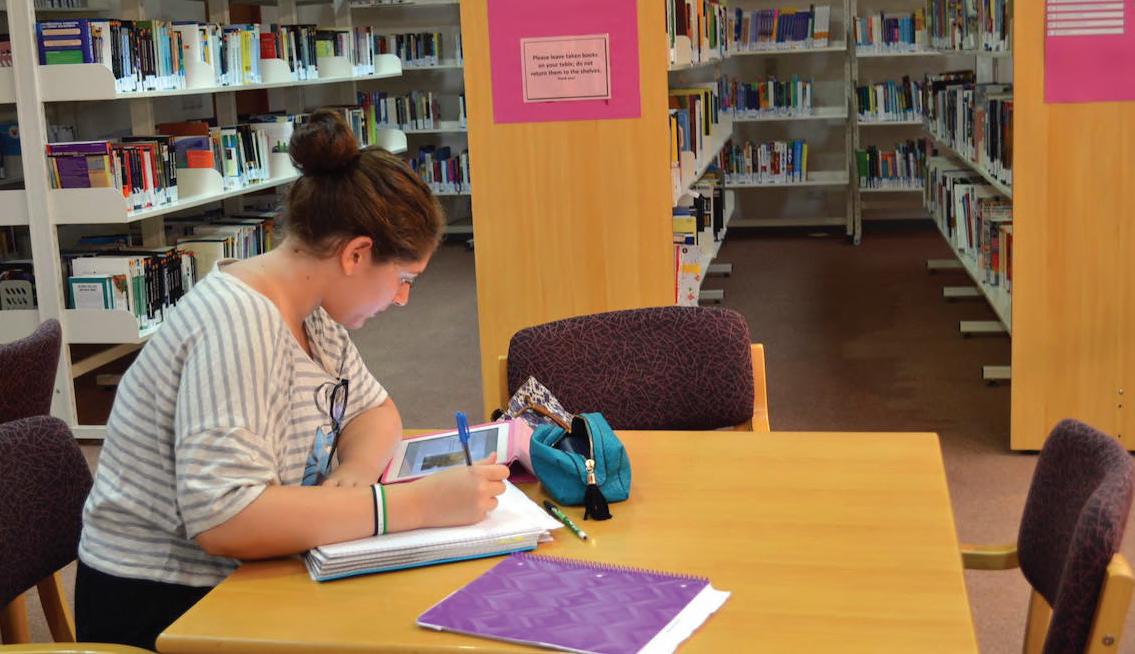
The RUW team participated in Injaz and won the Best Social Impact Award in 2019/2020. The project’s main idea was to recycle and upcycled CDs into decorating elements and accessories.
The RUW team won the Company of the Year Award in 2020/2021 for presenting “Hassad”, which aimed to draw attention to greenery, harvesting inside the houses, and managing our
In hindsight, what were the most valuable lessons learned? Could things have been done differently?
This program assists students in improving their skills and becoming more confident in presenting their ideas. Our students have been encouraged to follow their dreams and prepare to be future entrepreneurs. It also helps to educate and motivate students to succeed in the global market.
In 2022, RUW team presented “4 Us” with the goals of providing easy and efficient solutions to problems faced by the community.Image Credit: Royal University forWomen


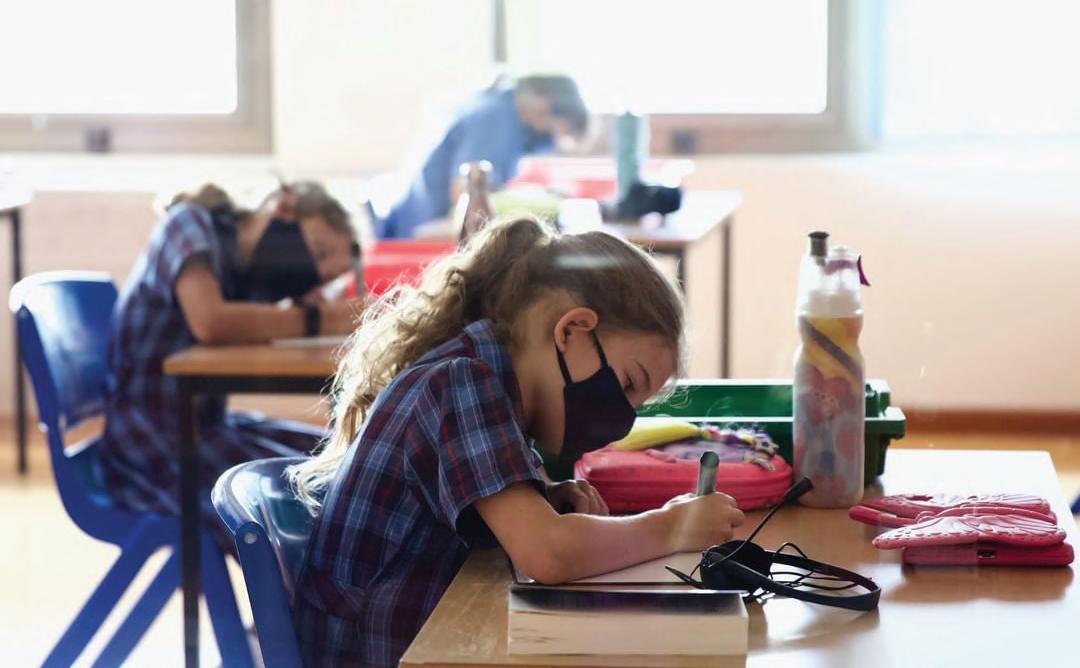
A holistic framework to equip students with modern knowledge, skills, and understanding necessary
Brief background of your innovation
The Future Ready Curriculum (FRC) is a holistic framework to equip students with modern knowledge, skills and understanding necessary to serve as “Role Models of the World.” Through subject-based and experiential learning opportunities (such as enrichment, theme days, assemblies, etc.), students will receive clear and specific
opportunities to develop competencies in the domains of Academic, Metacognition, Service, Enterprise, Digital and Wellbeing.
As part of the School’s Mission “Education for a Shared Humanity,” this learning journey includes activities to engage student-centered learning within the context of the school and global community. This includes: the UN Sustainable Development
to serve as “Role Models of the World.”
The FRC is also supported by a bespoke planning system that stores and organizes the whole-school schemes of learning.
Goals (UNSDGs), internationalism, interculturalism, positive psychology (PERMA), spiritual, moral, social, and cultural development (SMSC), among others.
The FRC is also supported by a bespoke planning system that stores and organizes the whole-school schemes of learning, as well as mapping each FRC competency opportunities across each subject and all age-phases. This not only demonstrates subject-based learning sequencing and progression, but it also provides all stakeholders with easy access to view learning activities, learning objectives, high-quality resources, assessment methods, and FRC competency coverage.
Through a collaborative exercise, our teaching staff identified the FRC domains as essential skills, knowledge, and understanding that students require to be successful in today’s world. Such skills are not always taught as part of a subject-based curriculum, but they are equally important as qualifications for students to be successful in life. Among them are leadership, teamwork, public speaking, charity and service, metacognition, and how to be physically and mentally healthy. As we wanted this to be a whole-school approach from nursery to post-16, so we developed a series of competency statements through volunteer working groups. The competencies are objectives that can never be completed, only improved upon, and therefore are continuous for life-long learning.
Introducing and managing change always necessitates careful planning, communication, and handling, and this is especially true in Covid times. Making time to meet online while dealing with the new situation that covid teaching brought was difficult. However, the colleagues involved were immensely passionate about the FRC and the opportunities it will provide our students, and despite the
challenges of not being able to meet in person, we collaborated online to craft and formulate the competencies. With the help of a local Bahraini webdesign company, we were also able to create a publicly accessible minisite and a bespoke planning system to help us plan and measure our success in planning our schemes of learning and additional learning experiences.
A significant challenge has clearly been managing a disruptive and unpredictable
We launched the FRC in September 2021 and have since created hundreds of learning experiences ranging from Nursery to Year 9. This will expand into Key Stages 4 and 5 in 2022-23. (Years 10-13). Departments and Year Groups have adapted their Schemes of Learning to reference the FRC competencies and to provide new and exciting real-world context for learning. Students have also started to engage through the use of Digital Portfolios to capture their progress within each domain and each competency statement.
Furthermore, thematic days, such as Enterprise Day, have been implemented to provide the opportunity for students to design, market, and pitch a product to their peers and teachers. This, along with many other immersive learning experiences, helps to prepare students for the future. By the end of the academic year, parents will be able to use the FRC platform to support their children’s learning in school, and help develop the FRC competencies that their children engage with outside of the classroom.
In hindsight, what were the most valuable lessons learned? Could things have been done differently?’
year while attempting to return to normalcy while the many Covid restrictions remained in place. Some elements, such as group work and public speaking, community service, and wellbeing, have been hampered as a result; however, through the use of digital platforms, we have been able to innovate and overcome this. This is a true testament to the FRC, as ‘Digital’ is a key component. Furthermore, with the Covid situation taking its toll on mental and physical wellbeing, the inclusion of ‘Wellbeing’ has never been more necessary.
Launching a new curriculum is a huge undertaking that requires a significant amount of time to prepare stakeholders for the change. We were unable to devote as much time to training and curriculum development as we would have liked due to the situation brought about by Covid. This may have made the initial launch a little more strenuous than anticipated. Furthermore, if departments/year groups had had the time and opportunity to pilot the planning system before implementation, initial technical teething issues might have been avoided.
Thematic days, such as Enterprise Day, have been implemented to provide the opportunity for students to design, market, and pitch a product to their peers and teachers.
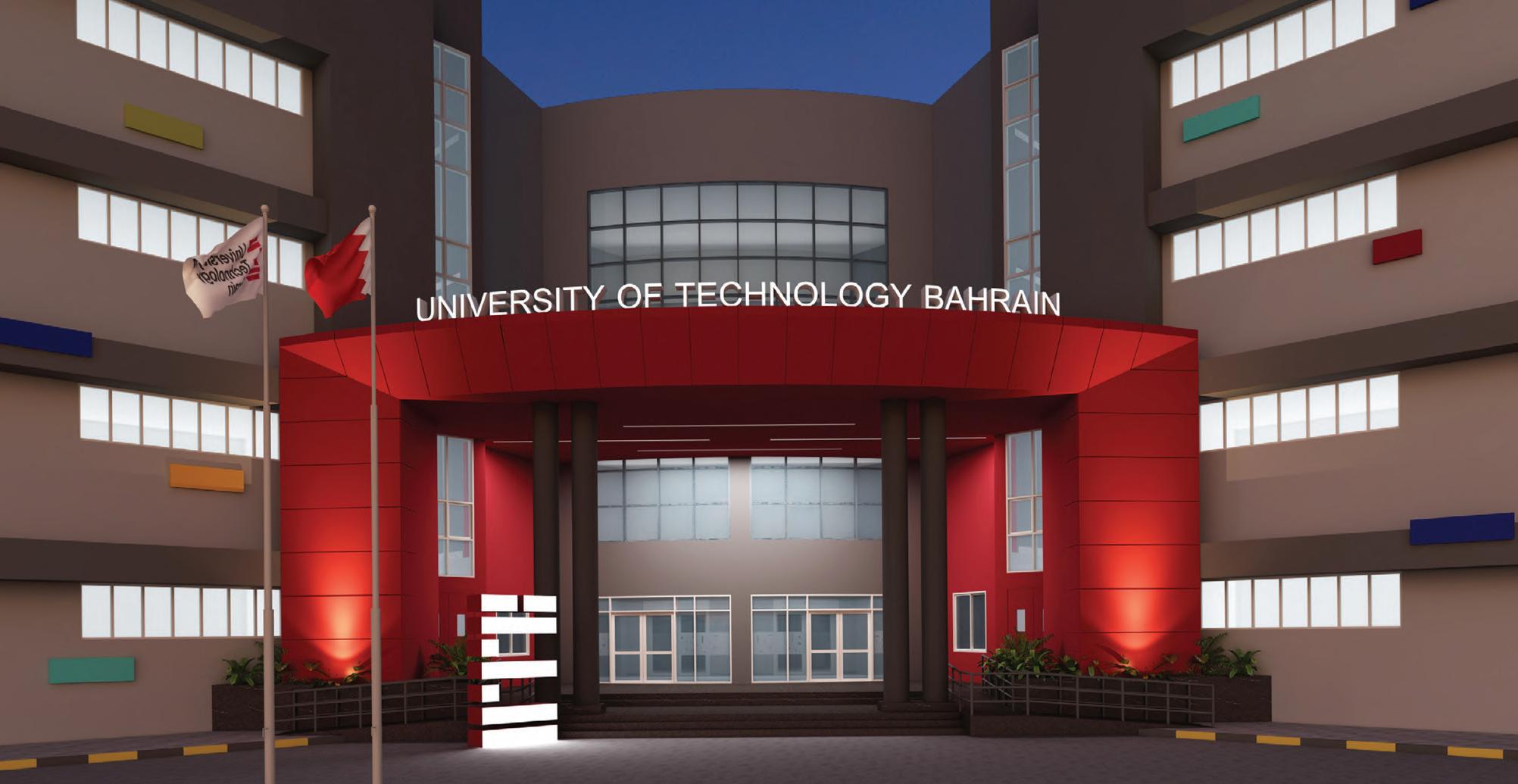
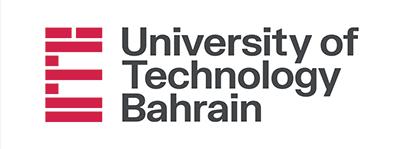
A project to upgrade the university campus, its classrooms, labs, facilities and more along with the introduction of new programs relevant to the current job market.
Brief background of your innovation University of Technology Bahrain (UTB) marks 20 years of establishment with a fresh push towards further development. Dr. Hasan Almulla, President of UTB, spoke about the key developments that are currently being executed including upgrading the entire university campus including classrooms, labs, sports facilities, and university restaurants and library, as well as launching new academic programs that are relevant to the demands of
the labor market, intensified faculty and staff development, optimized institutional infrastructure, and expanded international linkages. He is of the view that these developments will set a new direction, new heights, and new achievements for the university, hence ensuring students’ success and developing graduates who are soughtafter in the marketplace.
How was it planned?
With the university’s vision to contribute to the advancement and application of knowledge and to have a transformative
The university commits to highquality teaching and learning, research, innovation, and the dissemination of knowledge.
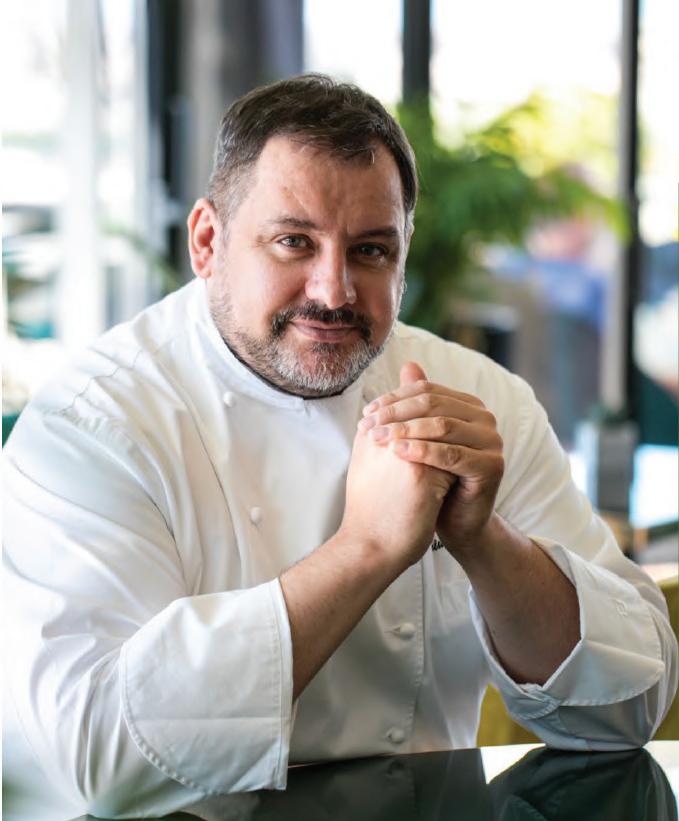



impact on the lives of learners and society, UTB believes that by instilling solid foundations of technology, it will advance the discovery and application of knowledge that will increase economic growth and development. Moreover, it reflects the university’s core mission, which has been redefined to prepare students for careers in cutting-edge fields like technology, science, and business.
Challenges faced in implementation Challenges are vast and these are merely a driving force for UTB to continue to play a key role in economic development through excellence in teaching and learning, research, and market-relevant programs to prepare and support its graduates to succeed in the future workforce, drive innovation and entrepreneurship, deliver excellence, and make an impact in the world.
Science, Bachelor of Science in Business Informatics, Bachelor of Science in International Business, and Master of Business Administration, and with the opening of new programs like Bachelor of Environmental Engineering, Bachelor of Science in Accounting and Finance, Bachelor of Science in Information Technology in three majorsData Analytics and Artificial Intelligence, Networking and Cybersecurity, and Applications Development, and International Foundation Year (IFY) program in collaboration with Northern Consortium of United Kingdom (NCUK), UTB stresses on the importance of using modern technology to achieve constant development of teaching and learning considering that the global economy is dependent on technological innovations, business opportunities, market trends at large and a number of startups are booming to date.


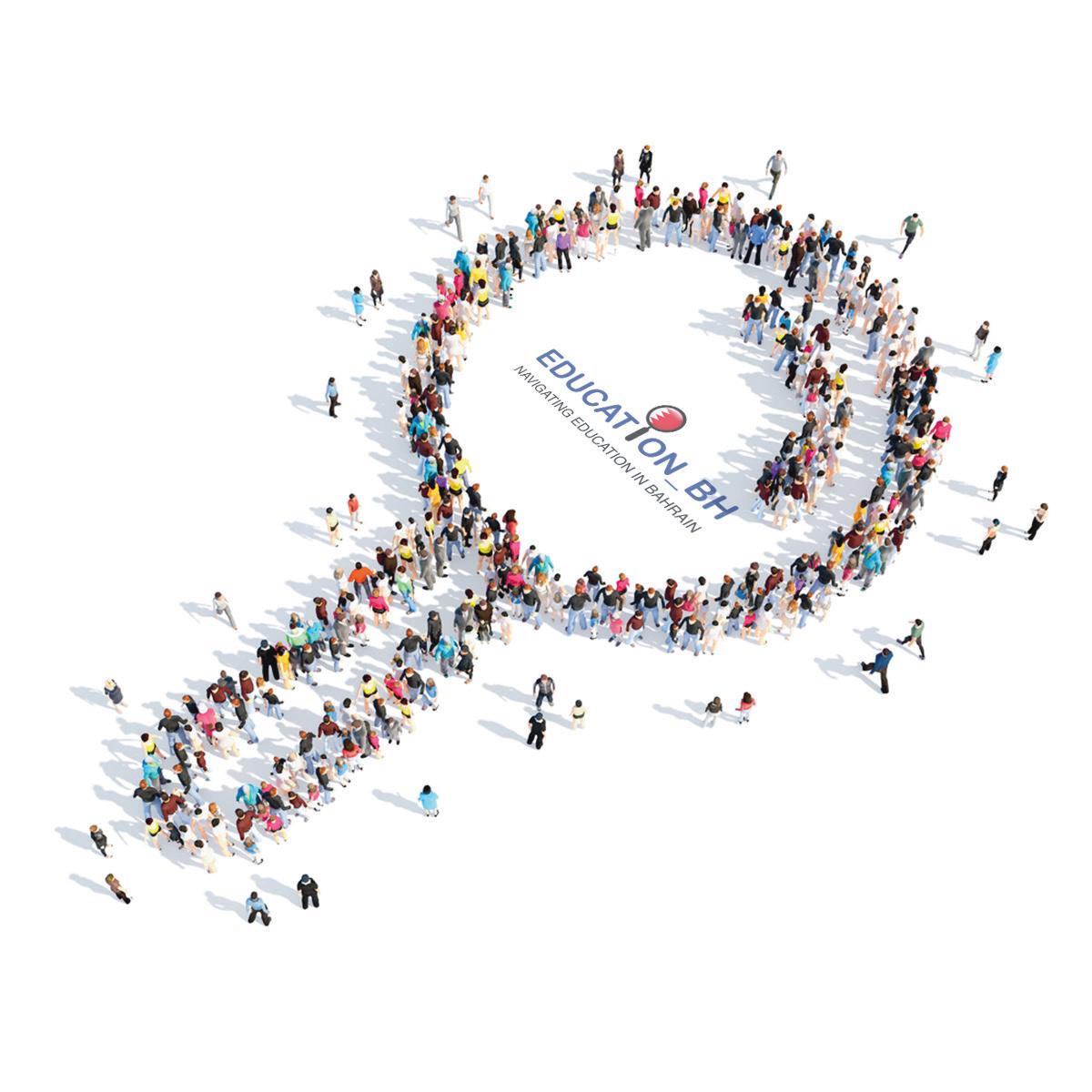



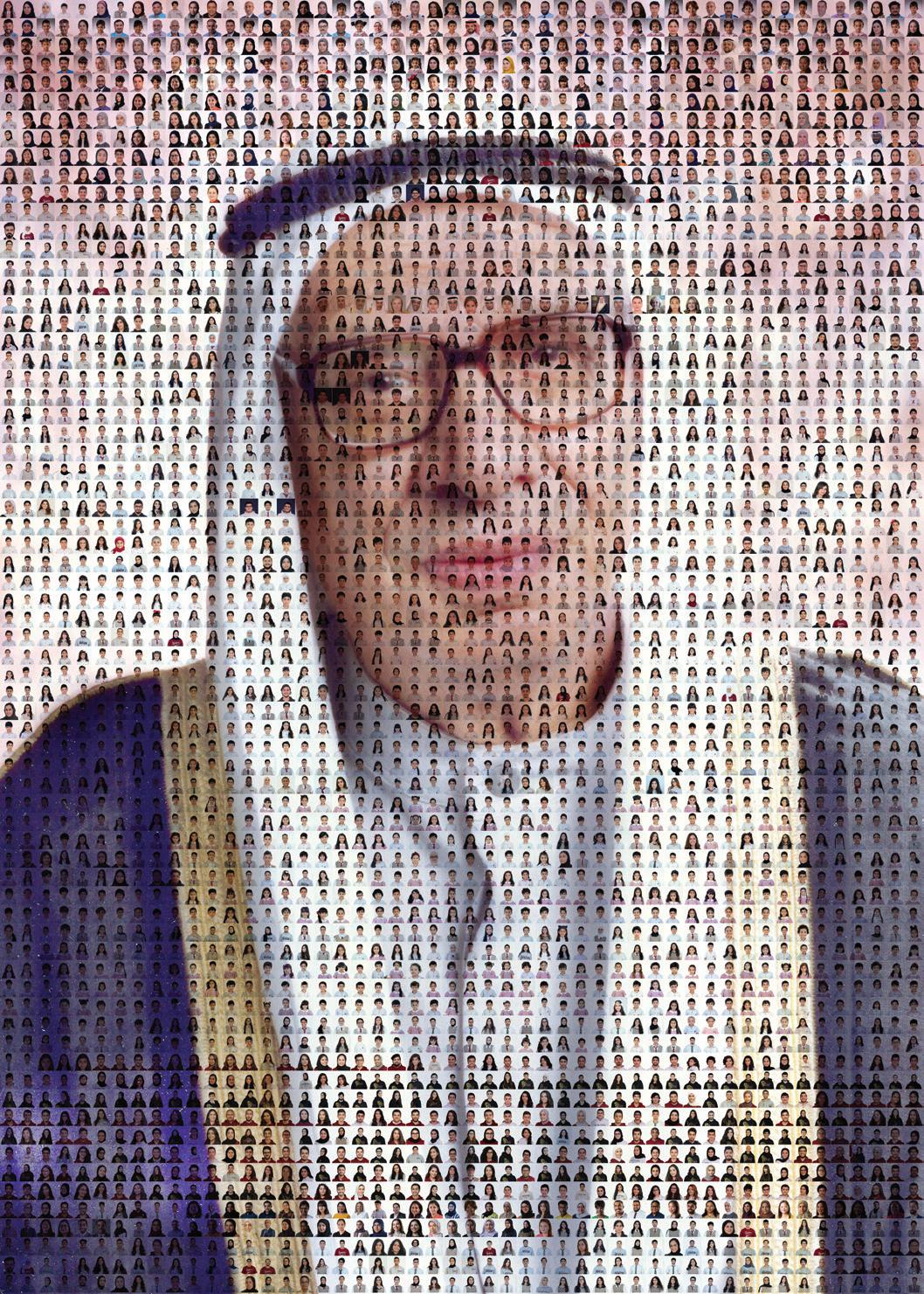

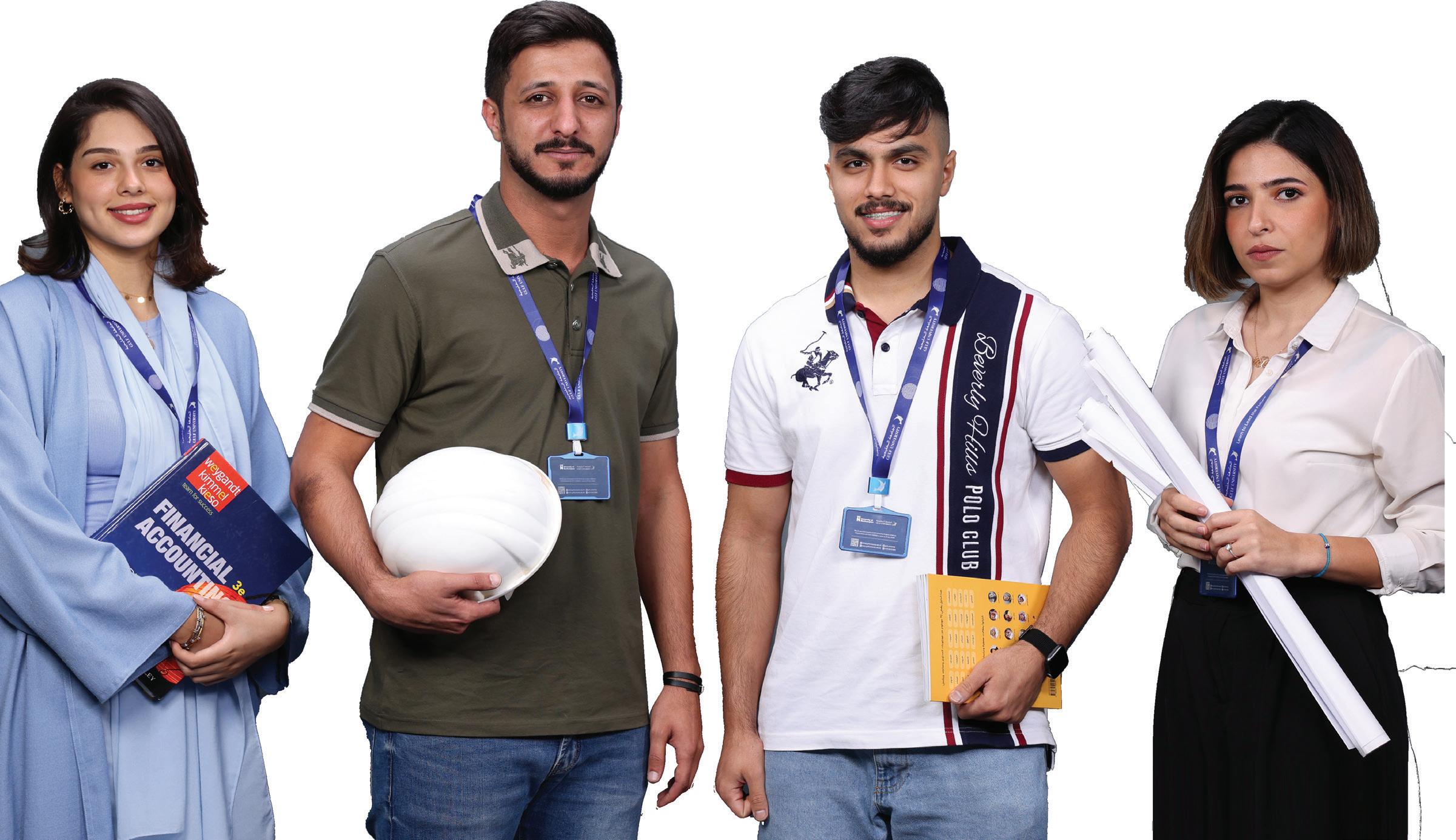
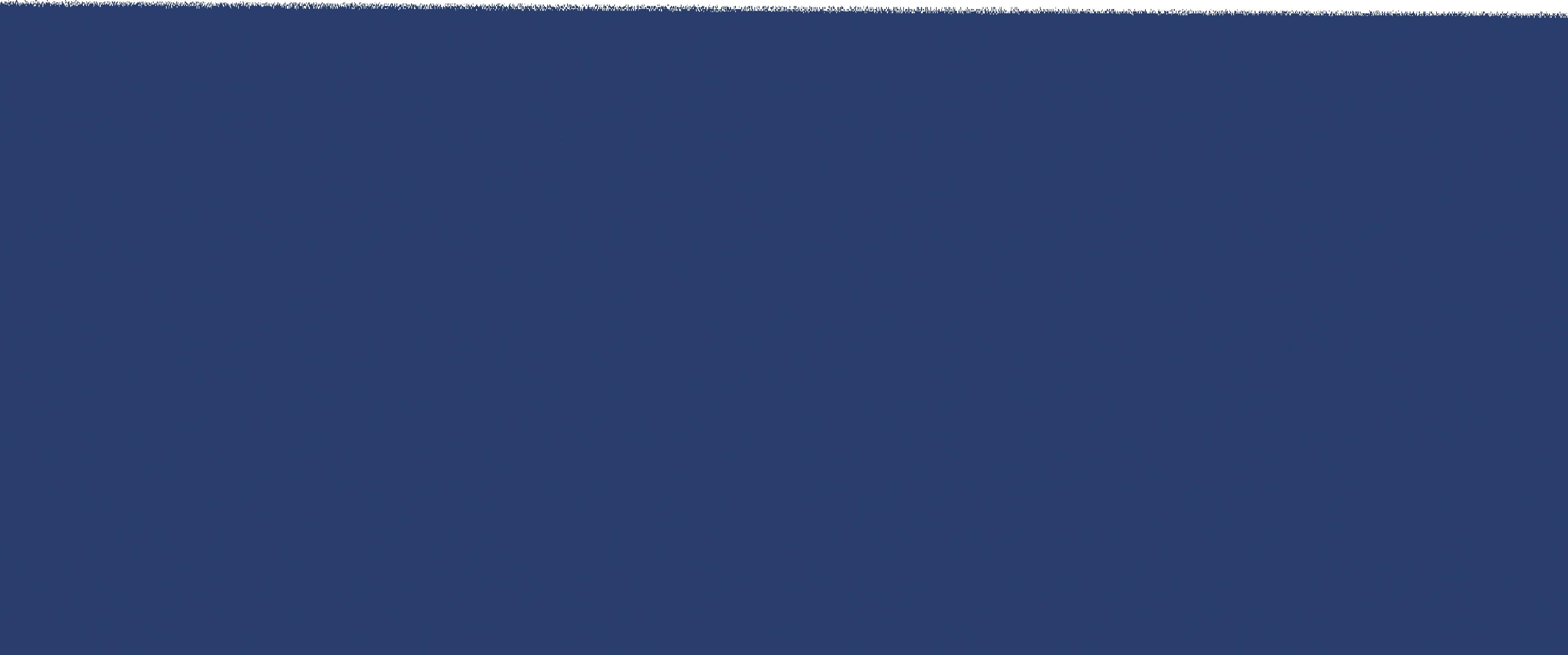
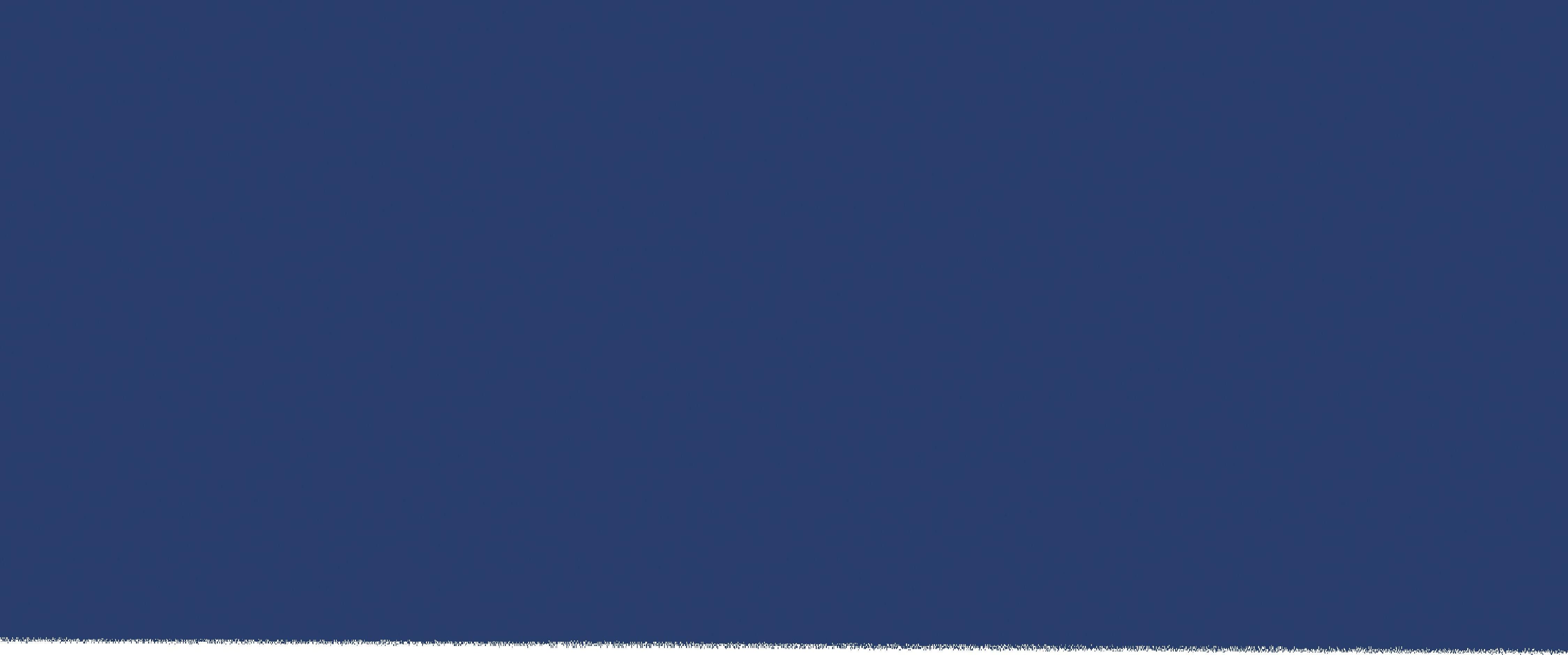










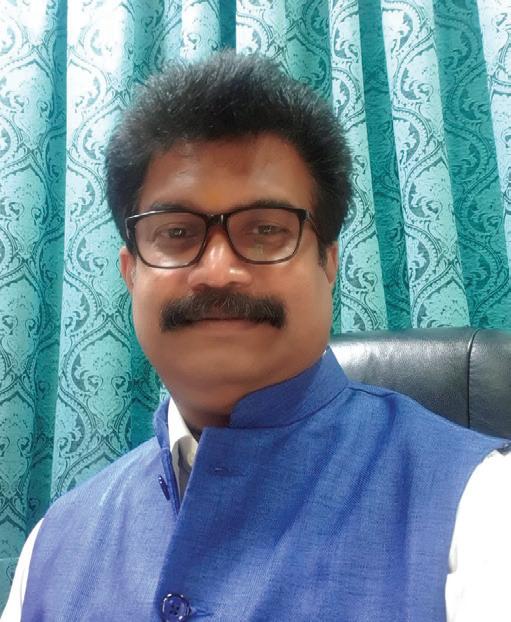

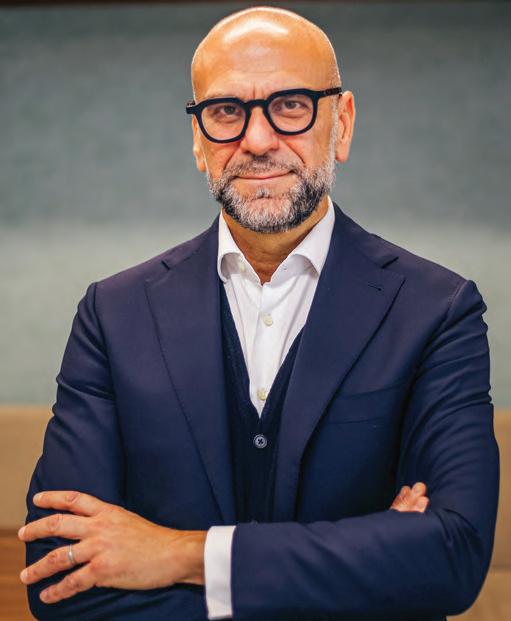
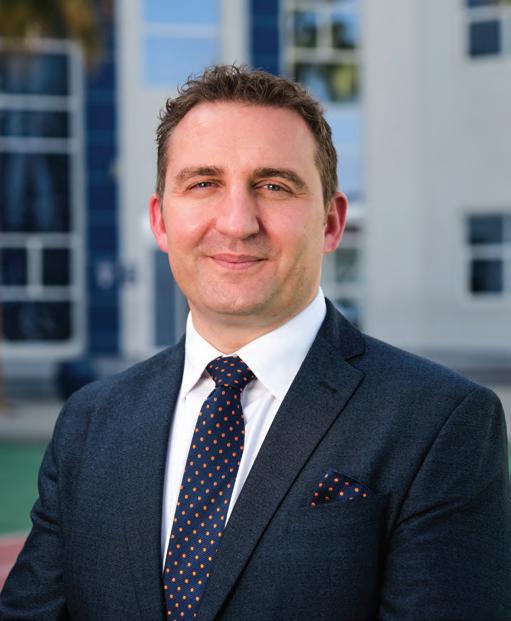
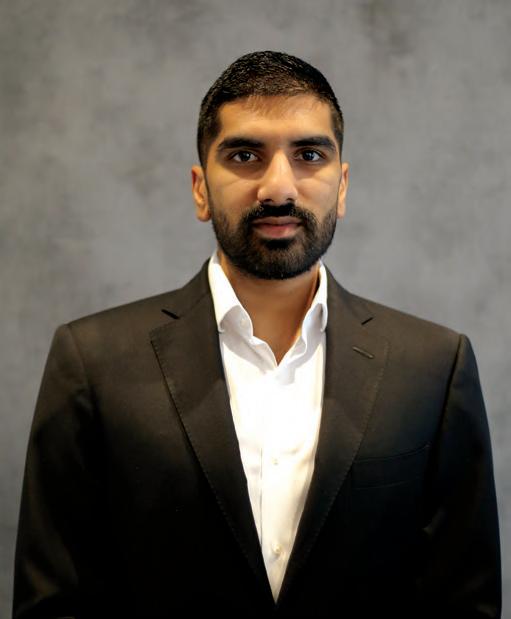
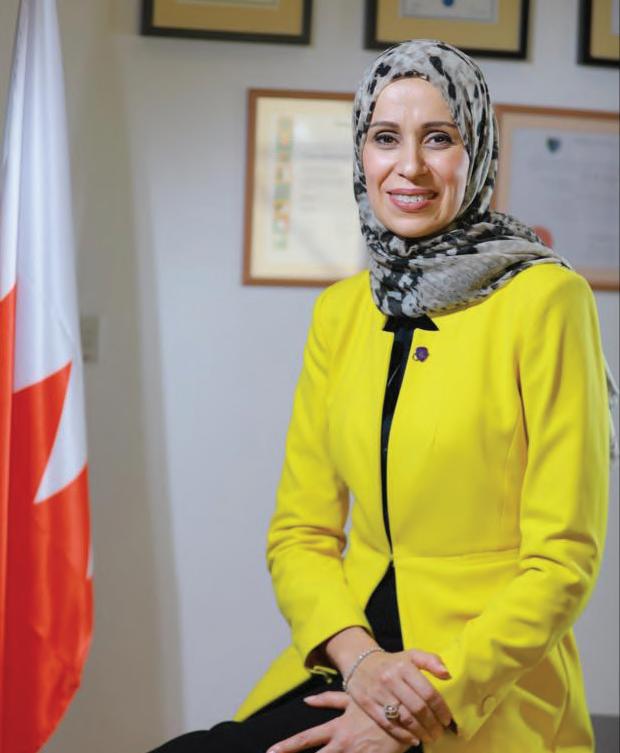
Educators and employers offer advice on educational best practices, optimizing studies, and career options.
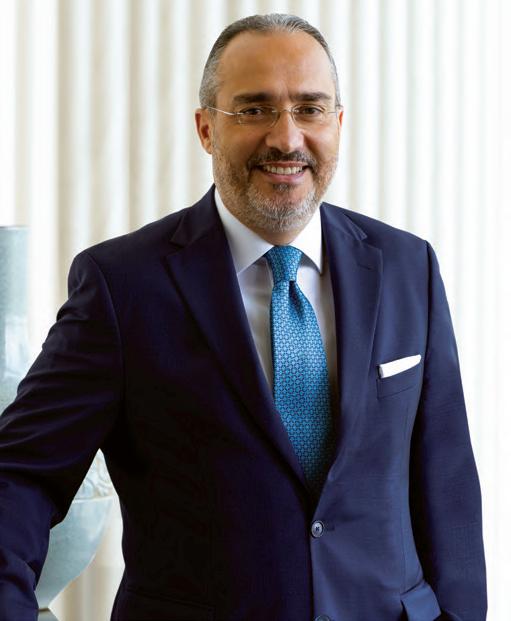
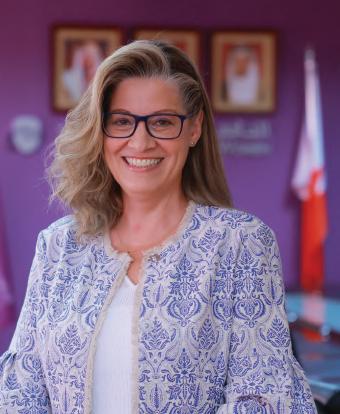
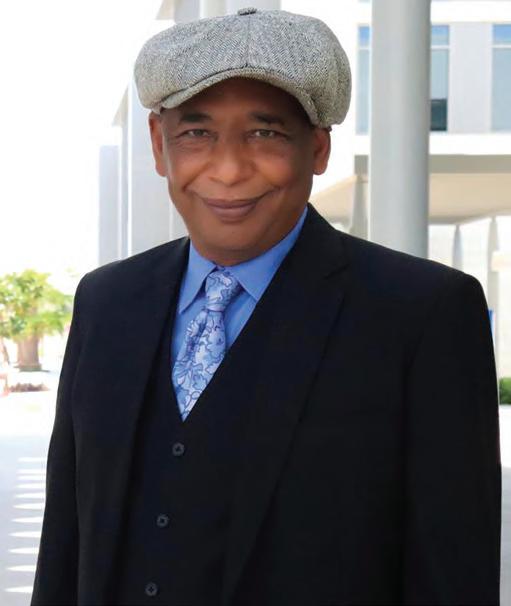
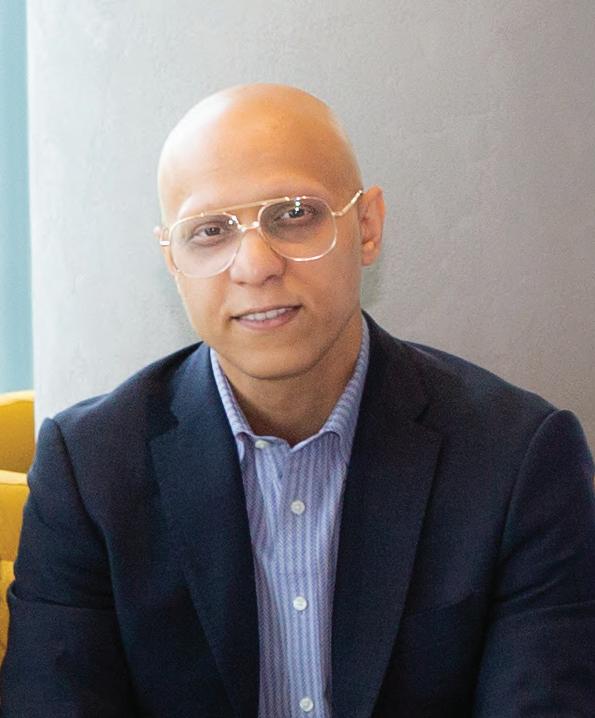
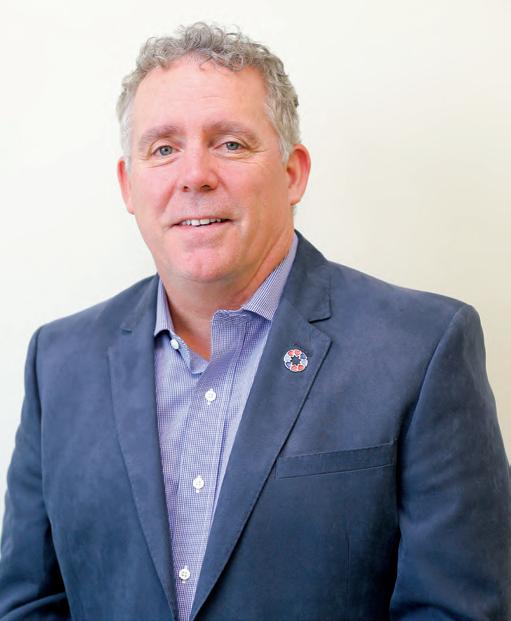
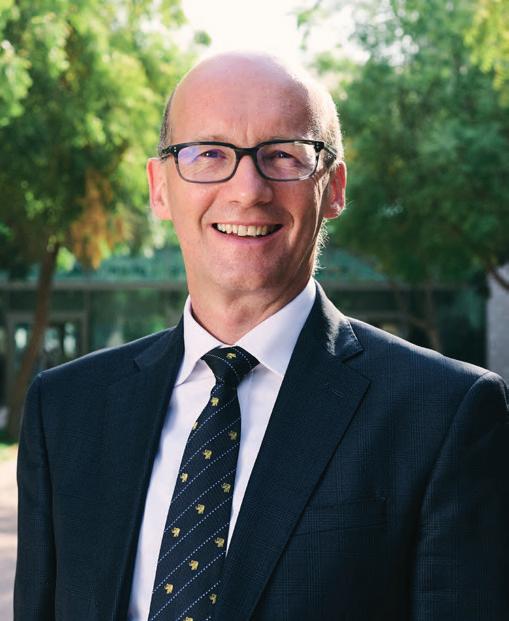
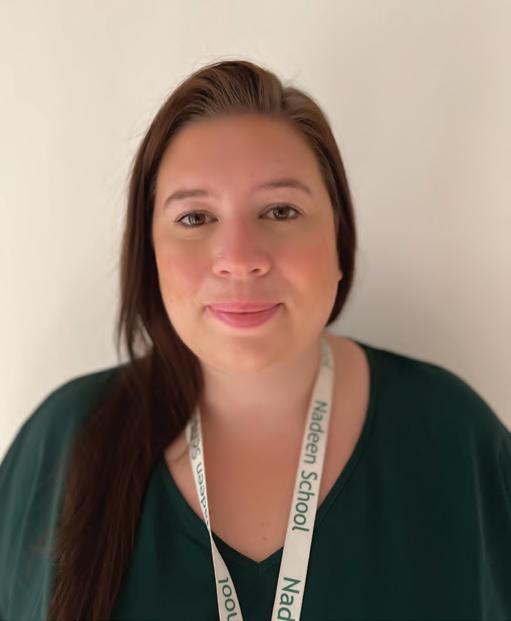
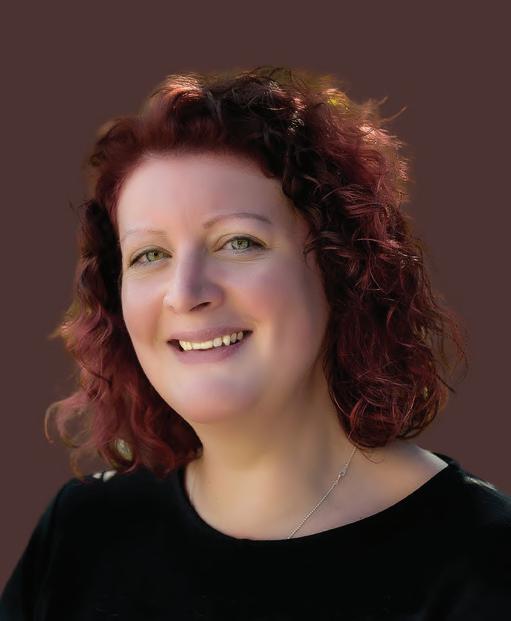
to utilize their hard-earned rights, and their commitment to fully leveraging their opportunities.
Education in general, and higher education in particular, is a lifetime investment. It is a passport to a career, financial independence, and effective contribution to larger societal goals. Hence, so much is riding on making the ‘correct’ decision when choosing a university. We all know how difficult it is to choose a university.
This has been made even more challenging given the number of institutions available, and the amount of information that we are required to digest from university websites,
in the higher education landscape for women’s only institutions as they provide a different type and style of learning experience that is necessary to complement the general higher education ecosystem. Like everything in life, there is a richness in diversity, and strength in choice.
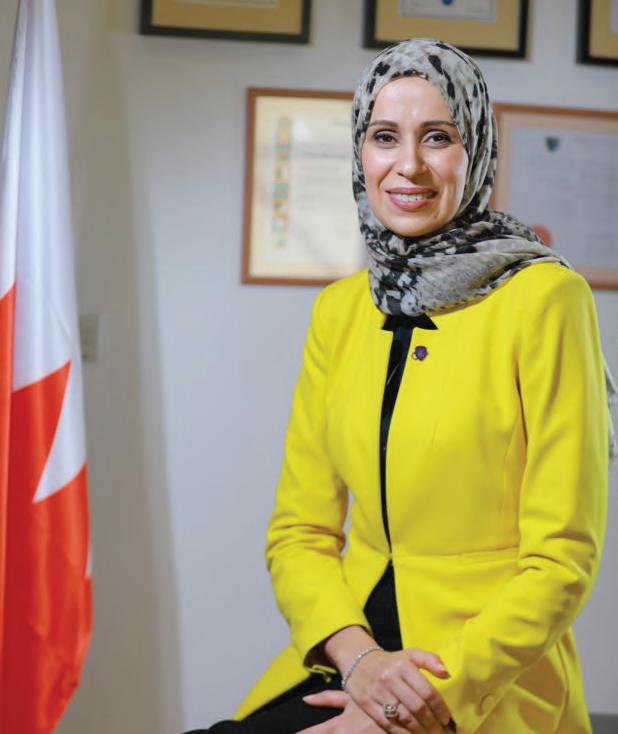
Allowing women’s access to education has been firmly established as a fundamental human right in countries across the globe, and the importance of women’s education as a lever for economic development is being re-enforced day on day in many studies indicating the crucial role women play in contributing to an effective workforce.
Further, despite the fact that women only actively joined Higher Education Institutions since the 1950s and 1960s, their levels of enrolment in universities have exceeded that of men and their average levels of attainment have also been higher than their male counterparts. In fact, the commonly known ‘7 sisters’ was a group of women’s only colleges in the Northeastern USA set up to compete with the Ivy League highly ranked and selective male-dominated universities to serve aspiring women who demanded a high-quality education. These are all interesting indicators of women’s appetite for education, their eagerness
regulator reports, and accreditation body rankings – all easily accessible at our fingertips through smart devices. This wealth of information, though wonderful in terms of creating options, can also be very daunting. How do we know what we are supposed to be looking for, and how do we compare universities? The increased student mobility for education purposes has further complicated matters and has meant that the choice is not only limited to your geographic region, but your choices could be in farflung places, thousands of miles away from the comfort of what is known and familiar.
Whilst the majority of universities are co-educational, there is definitely space
Universities dedicated to the education of women have at their very core a focus on how women learn. Scientifically, it has been proven that women learn differently from men, yet our educational establishments have historically been created to accommodate men and the way they learn. Universities have been set up for over a thousand years and have changed very little in that period, whilst women’s involvement in these established structures, both as students and academics, has only really taken place in the last half-century.
A women’s university is a whole ecosystem of education that creates a safe space for women to go on a journey of self-exploration and allows women to ‘sound out’ their voices in a collaborative environment and learn true leadership amongst similarly minded inspired and aspirational peers. This ecosystem creates a lifetime network of supporters and a sense of mission wrapped around the belief that empowering others is critical to empowering yourself.
We are conscious that making a university choice is a very personal decision, one affected by many factors, and we are also very aware that a women’s university is not the right choice for every girl but for some –who wish to join an institution “where women excel”, Royal University for Women may be just the right choice for you.
“If you educate a man, you educate an individual, but if you educate a woman, you educate a nation” - Old African proverb
Like everything in life, there is a richness in diversity, and strength in choice.
Prof.Yusra Mouzughi, President, RUW
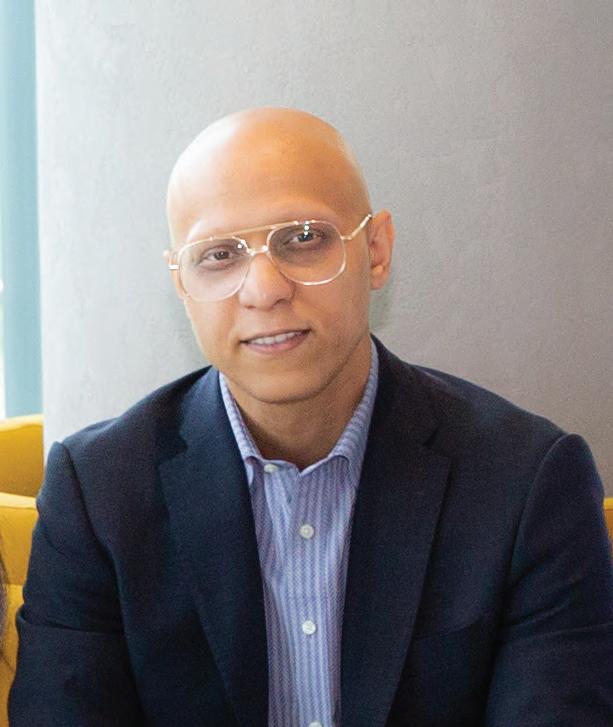
The Mutamahin graduate program was launched in 2014 to cultivate a cultural transformation for workplace readiness among university students. Named after the word “apprentice” in classical Arabic, the program was designed to integrate thought-provoking and interactive activities that provide high-value training in areas that are not typically covered in a university curriculum but are necessary for a student’s emergence in a dynamic and highly competitive industry.
The program is initiated by the CFA Society Bahrain, the Kingdom’s preeminent association for local investment professionals.
We spoke with Ayman Albasri, Mutamahin Chair to find out all about this unique program that’s upskilling Bahraini youth.
Tell us a little about Mutamahin’s background.
Mutamahin was developed with a longterm vision of producing a dedicated generation of professionals, by nurturing university students to develop a series
of soft skills required to surface in Bahrain’s ecosystem. With the intention of bridging the gap between employers and students, the program promotes and maintains the highest standards of professionalism and contributes towards the development of the local workforce as a testimony of its dedication to the country’s society.
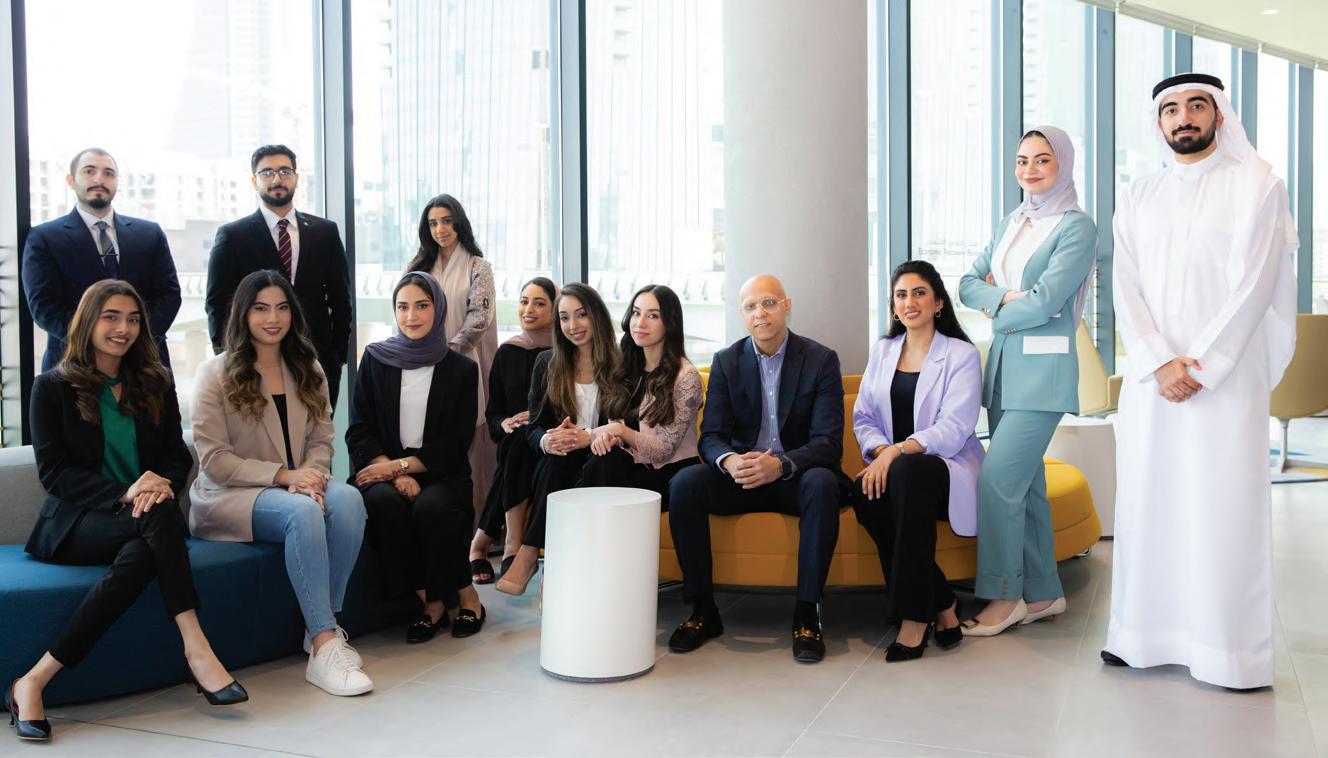
graduates are well-trained to understand their chosen careers and participate at higher levels by showcasing their employability skills to esteemed organizations.
Led by experts in the region, candidates are provided with intensive training over the course of several weeks to equip them with the skills necessary to succeed in a work environment. To further differentiate itself from other educational programs, the organizing team consists of alumni with the relevant knowledge to arrange seamless and engaging experiences for the students.
What is the overall impact of the program offered by Mutamahin?
How does Mutamahin ensure the upskilling of its participants?
The program works closely with employers to identify skills most sought after in the market and ensures. Through specific work-related challenges and merit-based screening, Mutamahin’s
Mutamahin has now benefited over 500 students and has been a one-ofa-kind opportunity to gain meaningful experiences. Since its launch, the program has partnered with top Bahraini institutions to secure over 400 internship positions for graduates and has led to multiple full-time careers in various fields by empowering and investing in the country’s youth.
Mutamahin has benefited over 500 students and secured more than 400 internship positions for its graduates.
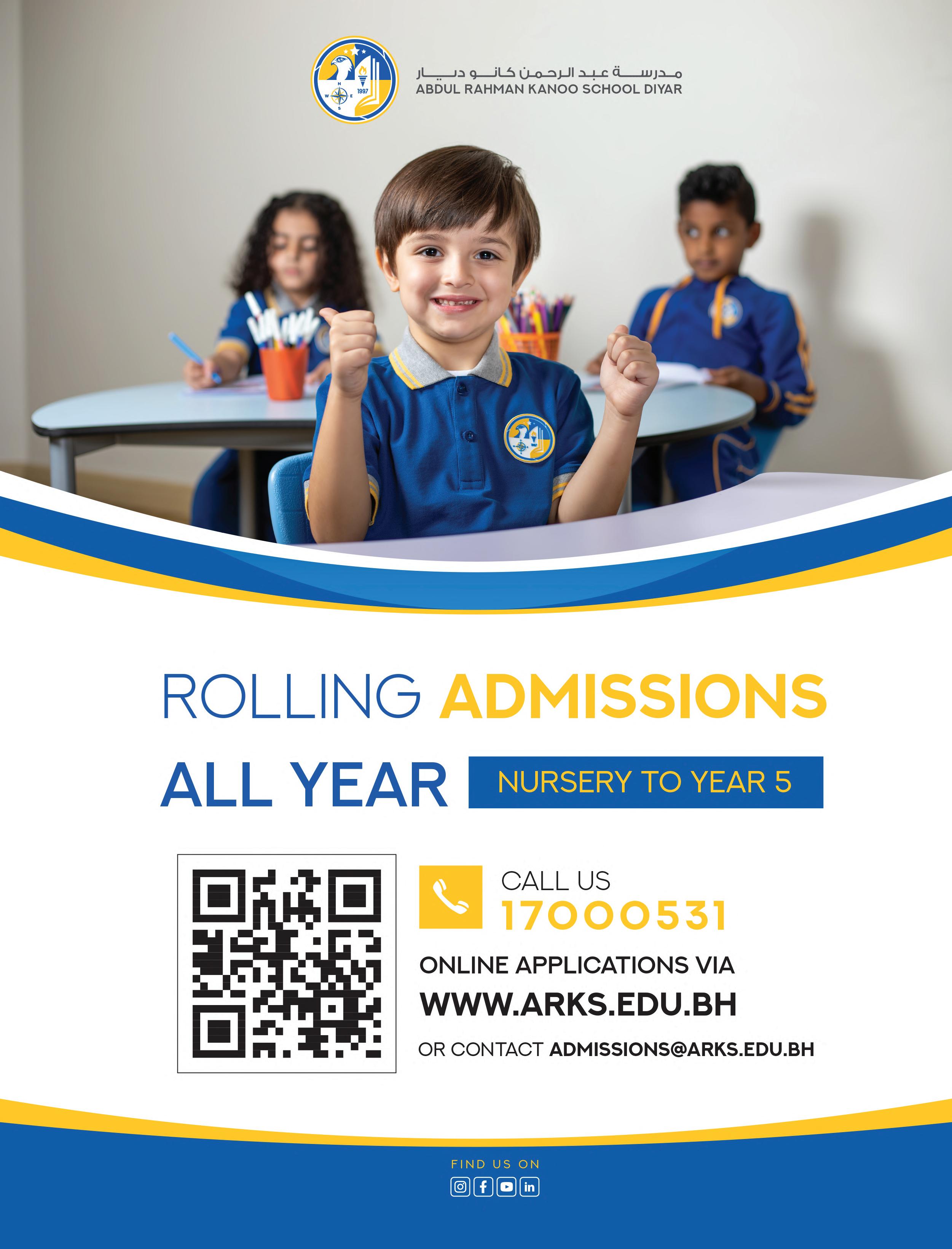
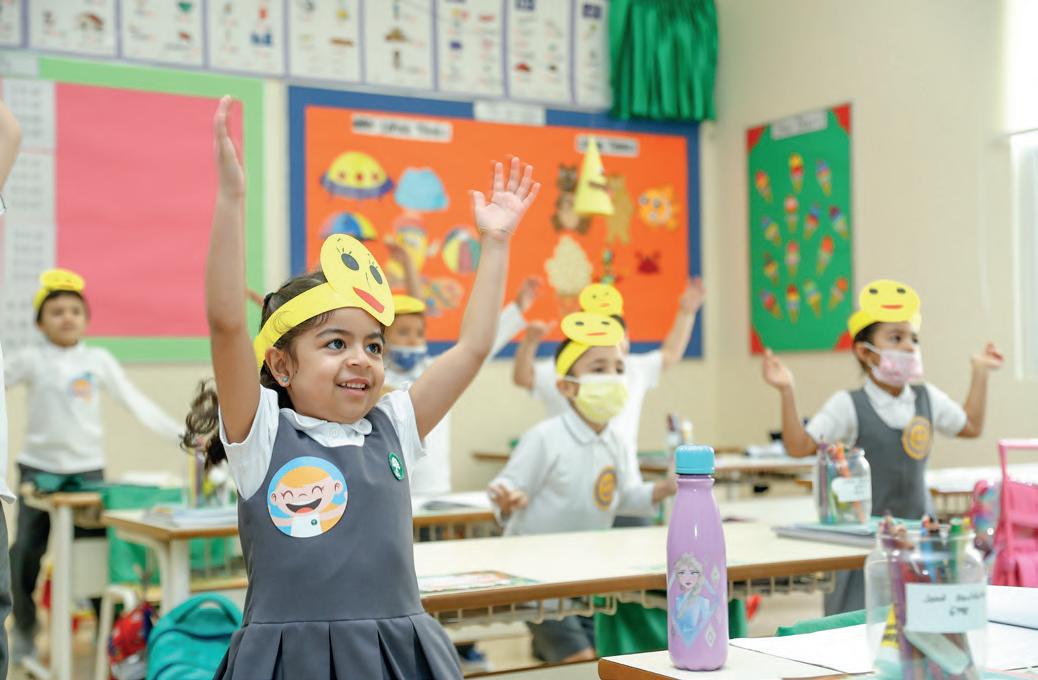
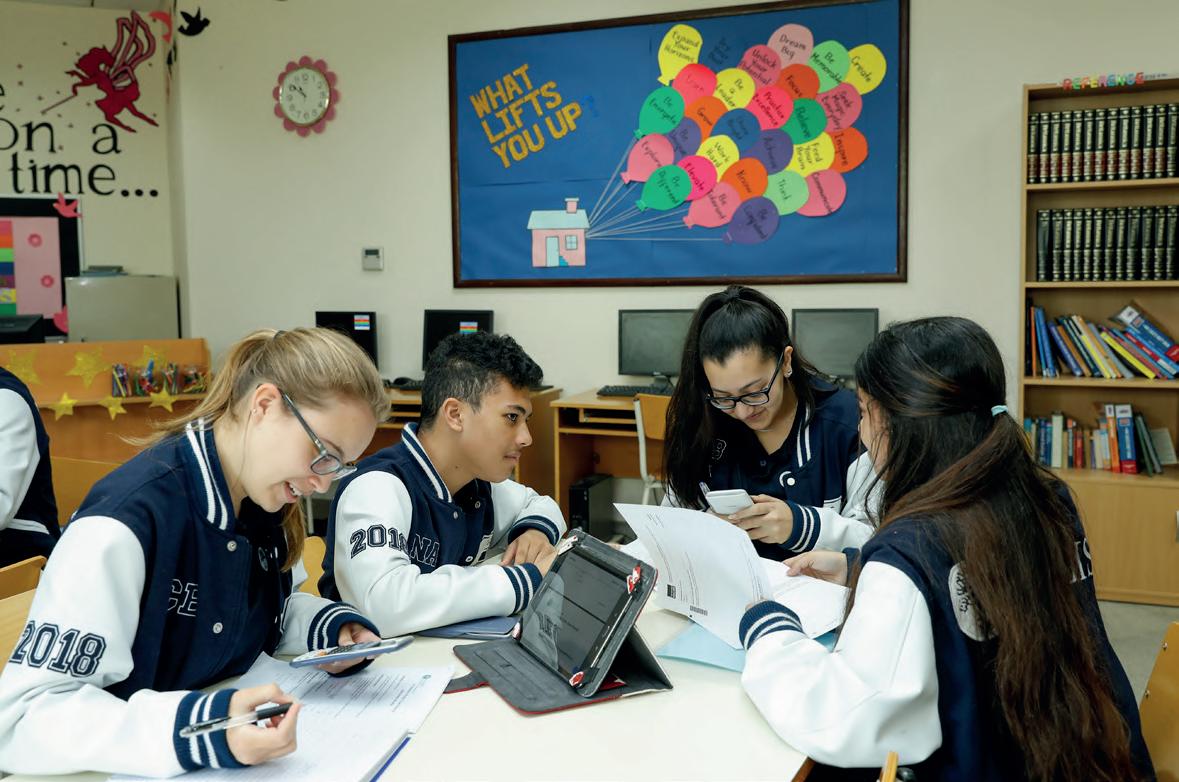
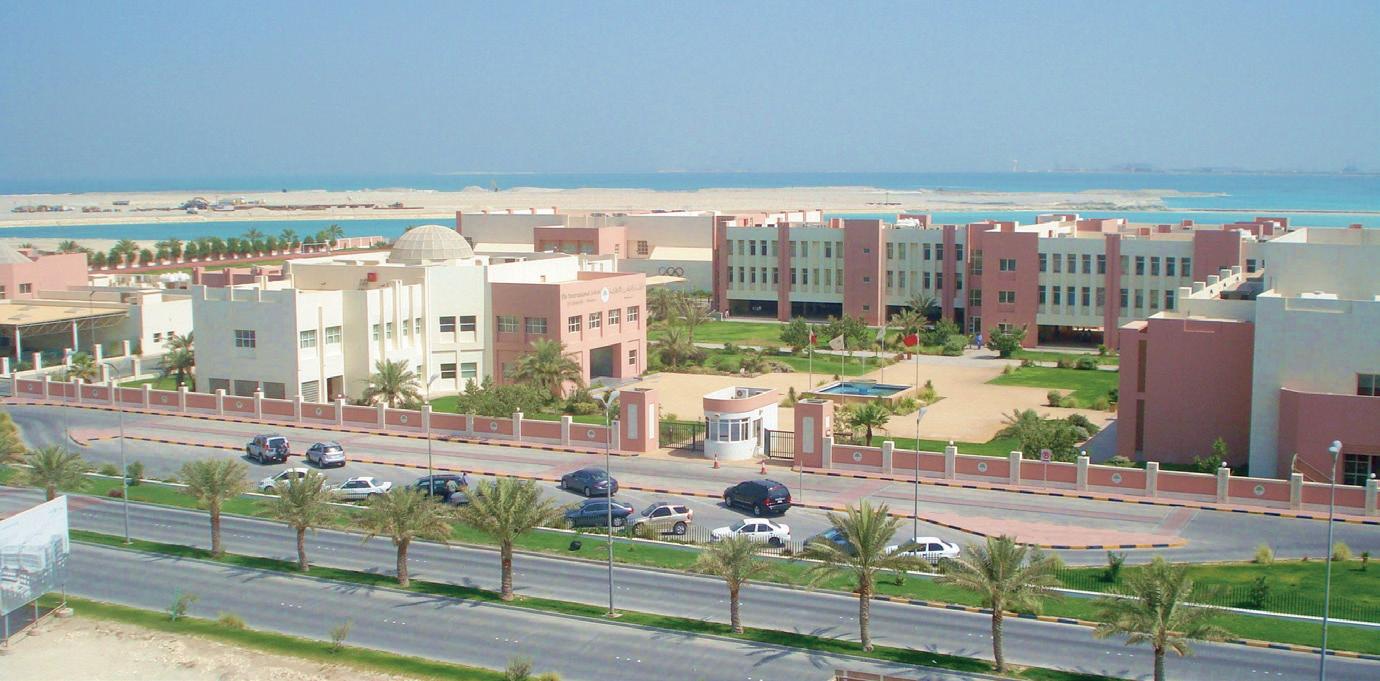
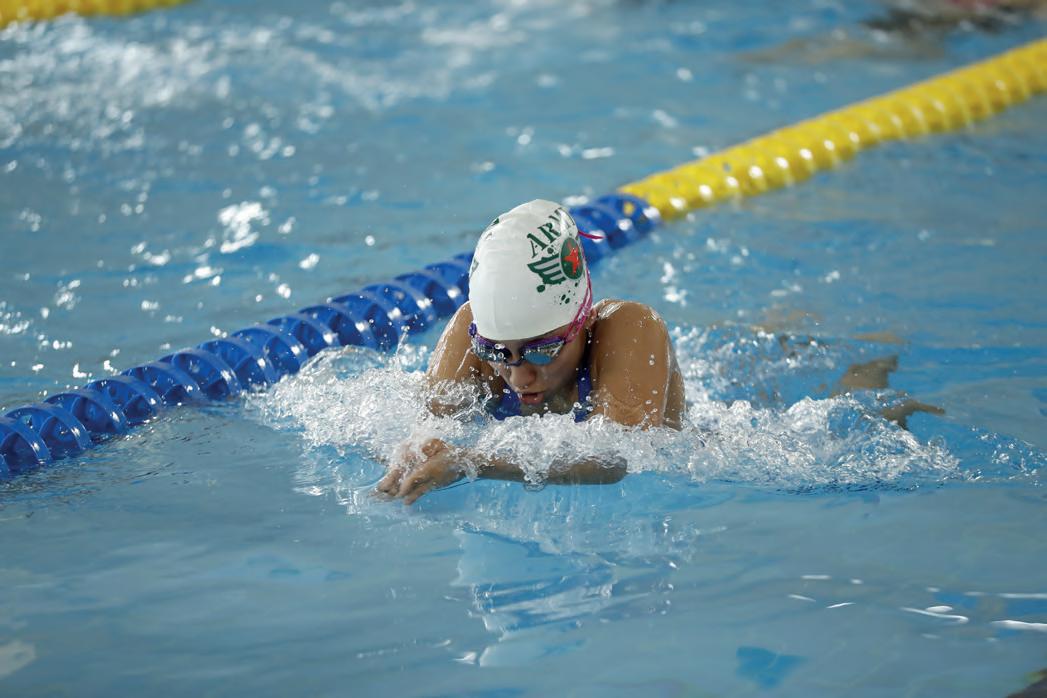
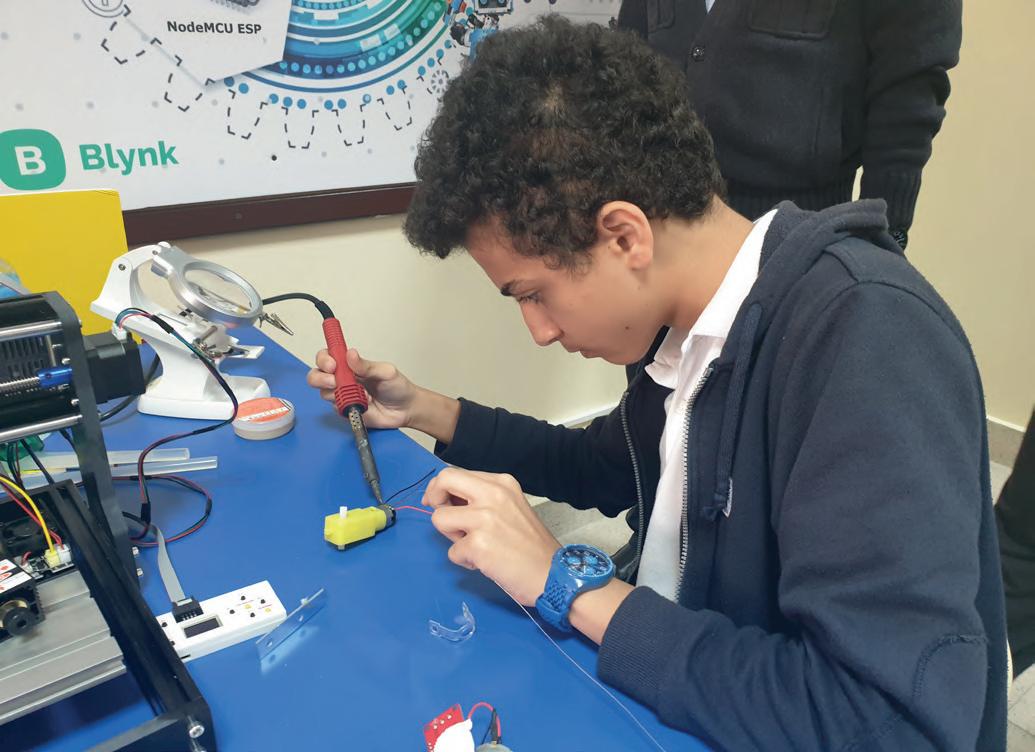
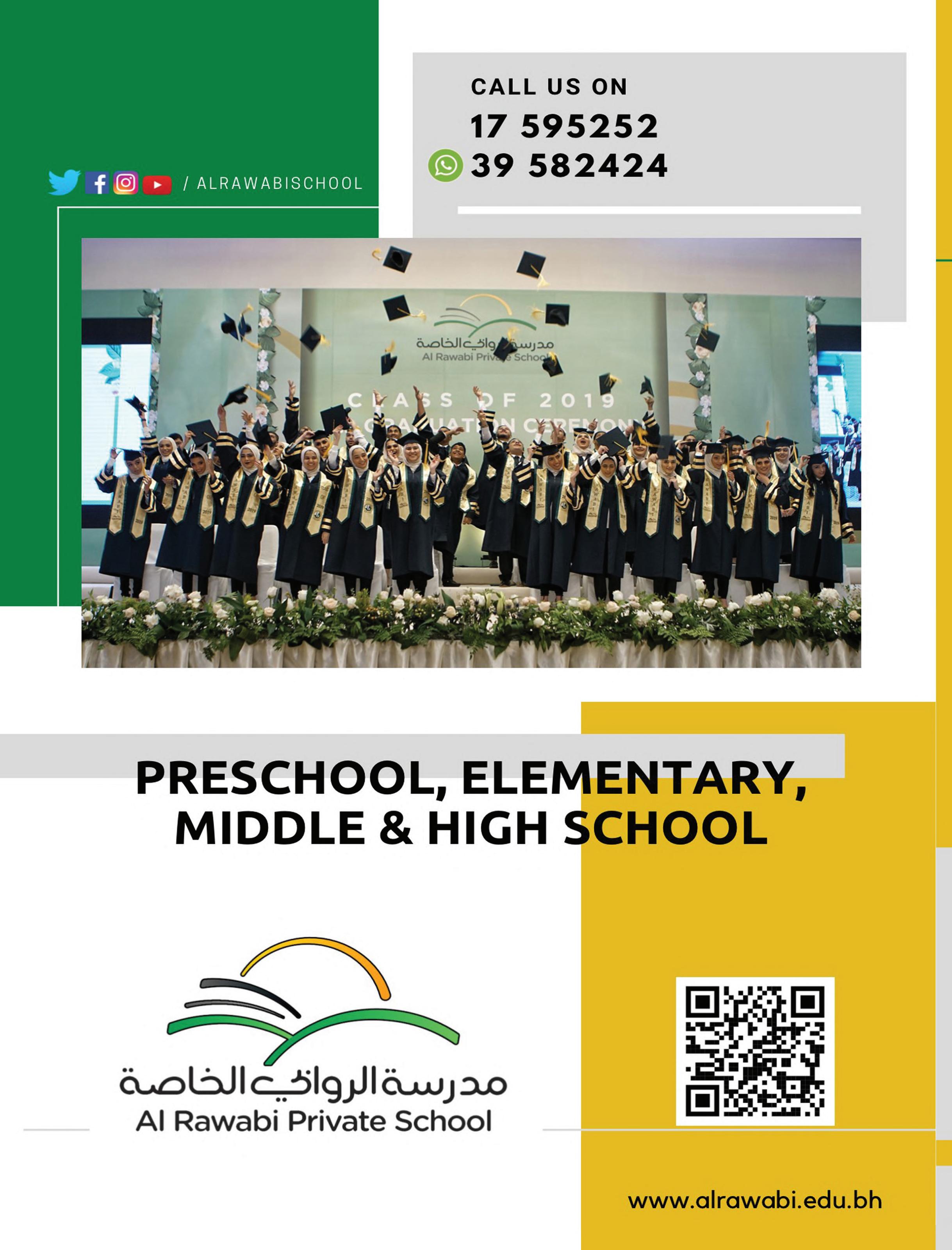
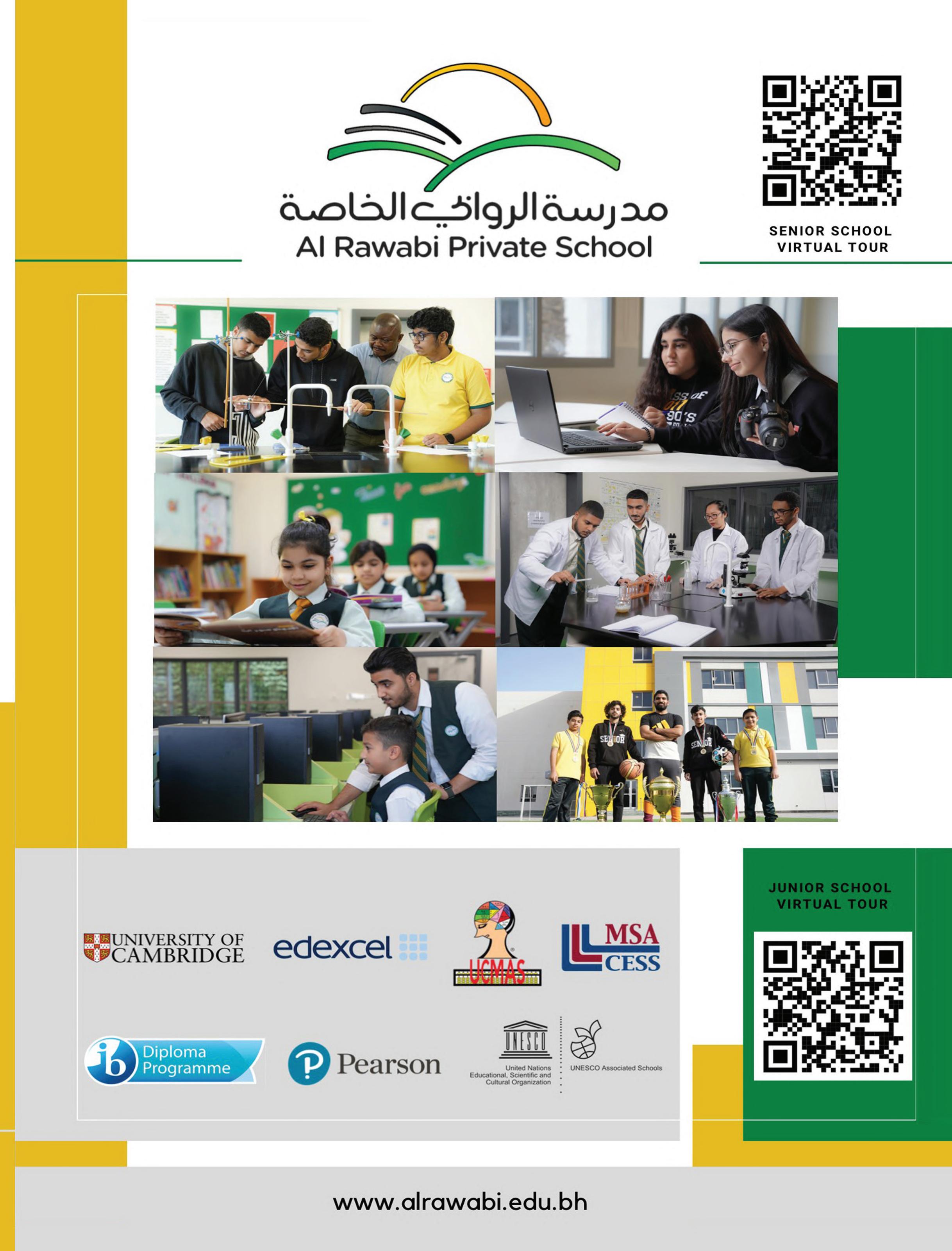
as employees of said new venture or of an incumbent.
However, they are not the only ones. This chart should remind us constantly who are the clients and who are the professionals that will have to navigate through a constant super-fast evolution.
• The Silent Generation: Born 19281945 (76-93 years old)
• Baby Boomers: Born 1946-1964 (5775 years old)
• Generation X: Born 1965-1980 (41-56 years old)
• Millennials: Born 1981-1996 (25-40 years old)
In the first part of this article, I would like to focus on Gen Z and then further speak to Millennials and Generation X which are doomed to fail if they do not reinvent themselves in the next 10-20 years (imagine how the world was 10-20 years ago without Smart Phones, Streaming, Video Chat, Digital Banking, Metaverse, NFT and then imagine what it would be like 10-20 years from today).
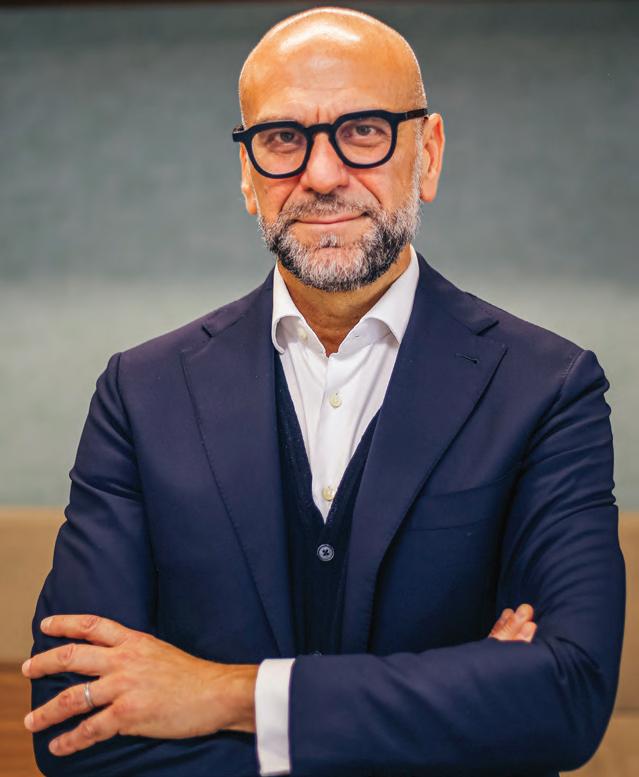
It might be hard to believe, but Generation Alpha and Generation Z include students in elementary school all the way up through college, that is almost 35% of the total population.
Gen Z is a world apart from the one that precedes it. Such differences have implications for the way they learn, develop, and function in the classroom.
We live in the 21st Century - precisely in 2022 - and yet many times we see candidates that have profiles resembling a CV built back in the year 2000 (it may seem like yesterday but it has already been more than 20 years).
Fintech, like any other digital industry, needs to focus on the Gen Z (that is people born between 1997 and 2012), from students in elementary school all the way to college. They are the current and future workforce, and they are our clients, influencers and judges of our product and services… but they are also the ones determining the success or the failure of a venture initiated today or even a few years ago, either as users or
• Generation Z: Born 1997-2012 (9-24 years old)
• Generation Alpha: Born 2010-2025 (0-11 years old)
Gen Z students are true digital natives We normally use the term “digital natives” when speaking about Millennials, but Gen Z is really the first generation that doesn’t know life without technology. To this population, Google, Instagram and smartphones are not just convenient tools — they’re necessary parts of life. Generation Z expects to be connected to the world and able to access information at any time. This translates to education as well.
Gen Z students want immediate feedback on assignments just as they do on social media. They also crave autonomy in their education. These are students who want to make decisions about what they learn, how they
EMERGENCE AND FUTURE OF THE FINTECH INDUSTRY WHAT MUST STUDENTS KNOW WHILE PREPARING FOR A SUCCESSFUL CAREER IN THE FIELD?
Roberto Mancone - CEO and Executive Board Member, Beyon Money
Gen Z students want immediate feedback on assignments just as they do on social media. They also crave autonomy in their education.Career Advice - Fintech
learn, and how they demonstrate their knowledge.
Is it the school or the teachers that need to adapt?
We should not draw students away from technology. On the contrary we should use it to provide information and engage with them. For example:
• Use educational software — There are a lot of tech tools that can both make the job of teachers easier and keep Gen Z students engaged. They need to go from full-service learning management systems, to software to create everything from interactive presentations to educational games.
• Begin a dialogue — Long lectures aren’t the best technique for Gen Z students. They’re used to multitasking and skimming for the most valuable information. A variety of teaching methods help to keep the class moving.
• Use visuals to gain advantage — Like lectures, large blocks of text can result in students losing engagement. Using charts, graphics and multimedia can make the material more memorable.
• Hold online office hours — For students who are used to immediately reaching people online, sending an instant message is likely going to be more effective.
• Provide rationale — Gen Z students are used to constantly updated newsfeeds and have come to expect only the most relevant information. For that reason, explain upfront why a lesson is important and how it’s applicable in the real world.
Gen Z students are diverse Generation Z is the most diverse generation yet. Nearly half are of racial or ethnic minorities, and they’re pursuing college at rates higher than previous generations. The majority of this generation also believes that diversity is good for society and are more willing to side with those who speak out against inequality.
Interacting with individuals who are different helps people anticipate alternative viewpoints and recognize that reaching a consensus will take effort. That’s clearly relevant to teachers. But educators need to take extra measures to support a diverse student population. Here are four tips from Imagine Learning:
• Explore your own culture — By understanding the social interests, goals and thought-patterns that influence your culture, you can better identify personal biases and recognize the value of cultural background.
economy that wants to compete on HUMAN CAPITAL?
a) Accelerate digital transition of Bahrain shaping the next generation of students, workers and leaders to be digitally savvy and ready for the future challenges.
b) Invest in digital education to upskill Bahrain’s tech talent pool, fully capitalizing on the opportunities of advanced tech infrastructure investments (e.g. AWS, Batelco).
c) Foster national economic growth capturing the business opportunities related to fintech and digital, attracting investments in the region from the world (e.g. Beyon Money)
d) Evolve education to a lifelong experience where business, entrepreneurship, and technologies converge to develop humans ready to lead the digital age Develop a new generation of digital-first talents from primary to post graduates, continuing with professional update to thrive in cloud-first world and digital revolution
e) Help companies to embrace digitalfirst, to realize the full value potential of digital transformation building on the entrepreneurial mindset to transform and innovate
• Make an effort to understand other cultures — Go beyond the surface and aim to understand how the diversity of your students affects how they see themselves and the world around them.
• Think carefully about language — Language and dialect are key parts of culture. By examining how words are used, you can learn to communicate with students in a more meaningful way.
• Use diverse books and materials — Incorporating multicultural literature can help students identify more with the material and foster cross-cultural understanding.
What do we need for Gen Z, Millennials and Gen X in the Education System in Bahrain and in any other digitally driven
Who do we need to train and prepare to evolve into a continuous learning model?
Supporting the leaders in taking key decisions and to identify risks and opportunities of the digital age CxO, Managing directors, Board members, government leaders
Learning to steer and drive the evolution of companies leveraging digital transformation as Managers, Directors, Senior Vice-Presidents, Vice Presidents, governmental officers.
Mastering specific areas/domains of technologies to accelerate success in digital transformation. College students,
The goal is to create a next-gen of people equipped with the right soft and hard skills to be successful in the knowledge age.
newly graduated students, workforce to be upskilled, companies building their human capital
Preparing students with all the hard and soft knowledge to be the best talent pool for success. Students of any age from 18 months to post graduate program students
At Beyon Money we are working on a project with International Schools and Bahrain Stakeholders aiming at developing an Educational Ecosystem that takes into consideration the following factors:
1. The creation of new jobs that goes hand in hand with the suppression of many others.
2. Vocational schools have to address the need to upskill exiting workforces as well as preparing the newly graduated to be ready and well-equipped to operate proficiently in a digital age,
leveraging cloud and state-of-the-art technologies.
Looking ahead, the next generation of humans need to be given the right intellectual instruments to thrive in the digital world. The goal is to create a next-gen of people equipped with the right soft and hard skills to be successful in the knowledge age.
• Mathematics and Statistics
• Robotics and Information Science
• Artificial Intelligence and Data Mining
• Economics, Sales and Marketing
• Psychology, behavioral science and communication
• Philosophy, literature and writing
• Physics and Engineering
• Chemistry and Biology
To be ready for complex scenarios:
• From economy of abundance to economy of scarcity
• Dematerialization of production and supply chain
• Development of alternative world (metaverse, token, and NFT)
• Geopolitical shift from West to East
It seems challenging, sure, but it is also extremely exciting. I like to believe that I have fully embraced the constant need to upskill, learn, educate myself, and educate and mentor others, in a virtual cycle that enriches me as giver and taker of knowledge, culture, technology at the same time, while pushing me to be constantly updated for the business
I am responsible for, for the people I am responsible for and for the generation that will come and inevitably replace me.
It is inspiring, it is motivational, and it creates value for the company, for yourself and for the human capital that sustains the development of a healthy digital society.
Sayess - Regional Vice President, Four Seasons Hotels and ResortsGulf Insider speaks with Rami Sayess, Regional Vice President, Four Seasons Hotels and Resorts and General Manager, Four Seasons Hotel Bahrain Bay to get to know his journey into the hospitality industry, the biggest learnings he has had, and his advice for aspirants looking to join one of the most competitive sectors - Hospitality.
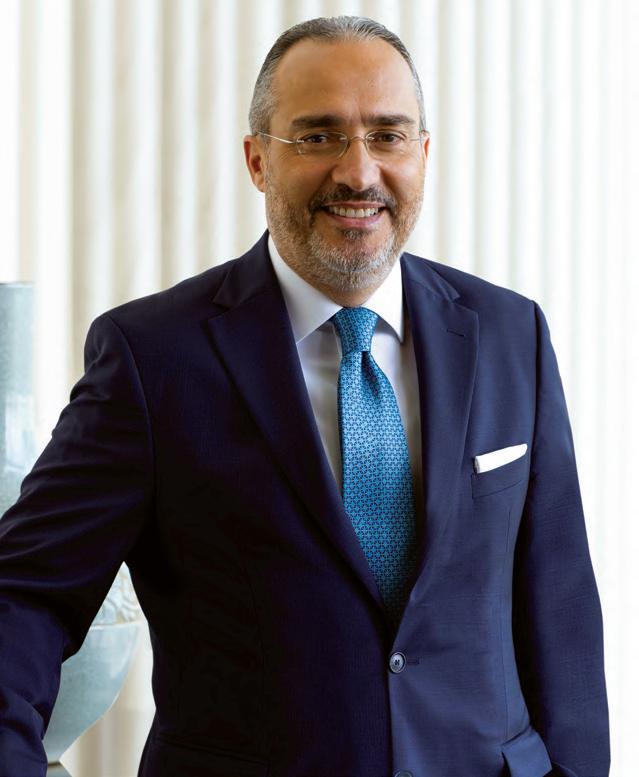
Tell us a little about what made you join the hospitality sector?
With war raging in my home country Lebanon in the mid-80s, hospitality was certainly not something I would have even considered or thought of. But
thanks to the vision of my late fatherhe suggested this industry to me based on my “fascination with hotels and interest in people since my early years” while we traveled around the world because of my dad’s profession as a travel agent. 30+ years later I can attest that there is no other industry in which I could envisage myself!
What have been your biggest learnings while leading Four Seasons in the region and heading the Bahrain property? There are countless learnings, but if there is one to pick it will have to be “preparedness”. The past several years taught us how important it is to be ready to deal with the unexpected.
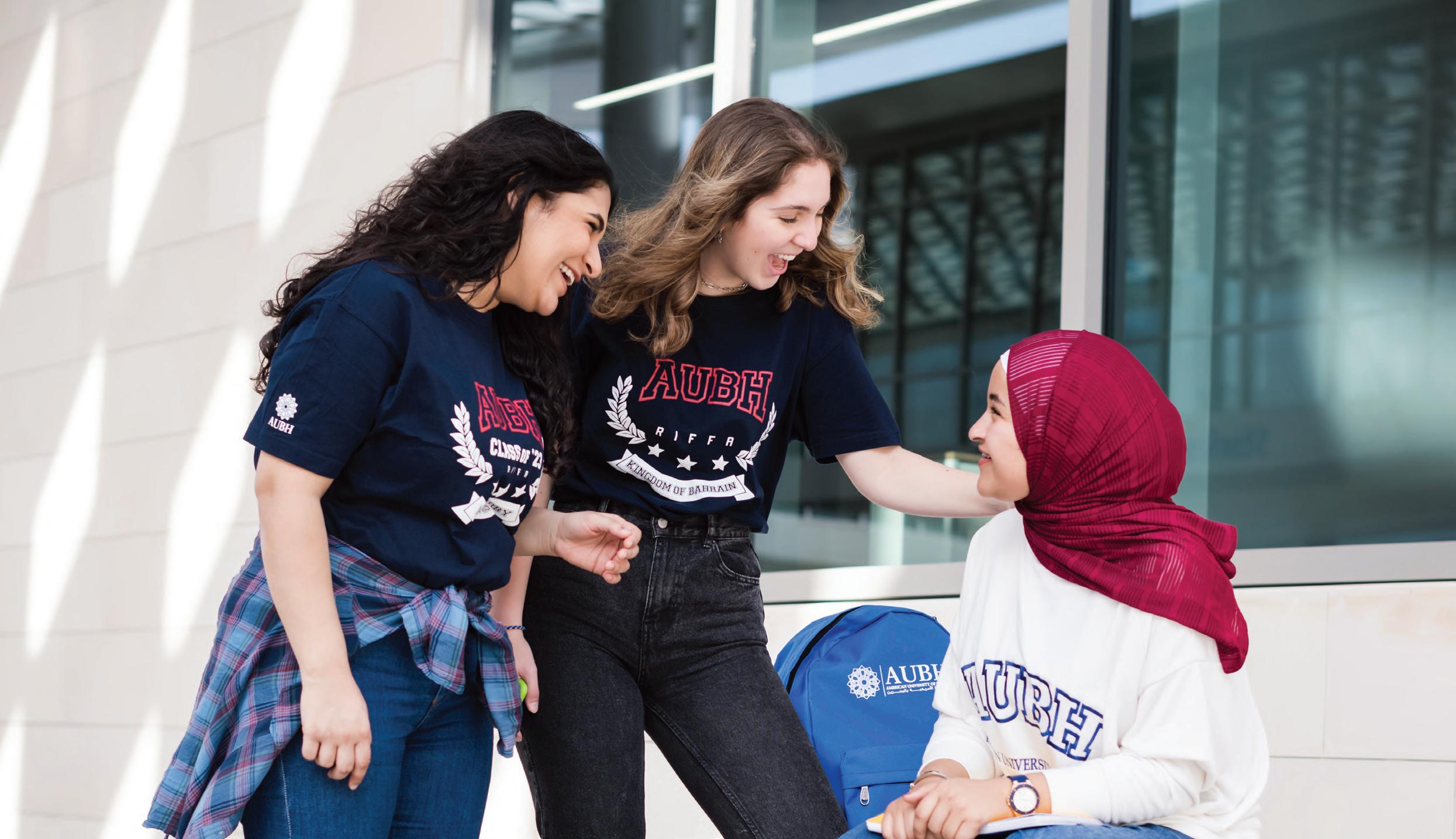
While we may like to plan ahead, we are living in a such volatile environment, and we are expected to cater to people’s needs and expectations which are also always changing. The name of the game is “Be Ready”!
What are the different career opportunities aspirants can consider within the hospitality sector?
The beauty of hospitality is the fact that it opens the door to several career opportunities including but not limited to hotel management. Whether in Human Resources, Finance, Sales & Marketing, or any other operational specialty like kitchen or engineering, one may choose his/her career path based on personal aspirations. This is not the case if you study dentistry, for example, as switching to another form of medicine would require further education. Hospitality is the gate to endless career opportunities, but it also takes certain
qualities for people to excel in this everdemanding industry.
What are the necessary skills one needs to develop to thrive and succeed in the hospitality sector today?
Dedication, commitment, and patience come on top of my list as most skills may be taught, but it is key to totally embrace this industry if one is to succeed. It is a very demanding profession that also happens to be very competitive too. The competition encourages better performance which in turn delivers superior results.
What are some best practices successful professionals employ in the hospitality industry?
Be open to learning every day and from every interaction, not necessarily from those in higher positions but, more importantly, from line employees who are in direct and close contact with our
guests. These guests are the bread and butter of our business. By listening carefully, we may contribute towards a much brighter future in hospitality. Our junior-most team members usually have the brightest idea!
How would you advise a young, ambitious person looking to enter and rise through the hospitality sector on obtaining the best form of education?
Education starts at school, but it never stops there… Keep on learning not only through educational platforms but also from on-the-job training as well as learning from others. The best lessons in life are learned through experience, hence the reason why some of the world’s top-ranking hospitality schools still focus on the practical training aspect, which brings students down to earth and gets them to experience the real taste of hospitality.
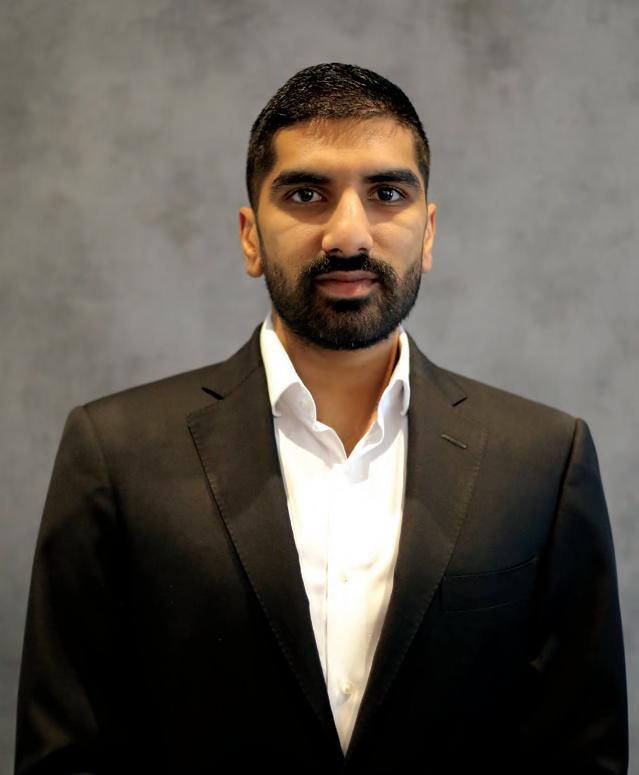
In a global industry like travel and tourism, the opportunities are plenty. We sat down with Adnan Gilitwala, Director of Bahrain-based Dadabhai Travel to understand more about the field, what are some prospects students can look forward to, and the skills important for a successful path in the travel and tourism sector.
How has the travel and tourism industry picked up after the COVID-19 pandemic? Thankfully, the response in the industry has been very positive post COVID. Countries and destinations have reopened for travel, flight frequencies have increased dramatically, and the overall sentiment and demand for travel
both for business and pleasure have also been very positive, we are on track to reach pre-pandemic levels of travel very soon. Overall, people have been starved of travel for the majority of the last two years and now they are ready to take advantage of the world opening back up.
What are the different career opportunities students can consider within the sector?
The travel industry has evolved significantly since the turn of the century, technology has played a pivotal role in transforming the way travel and logistics solutions are booked, managed, and facilitated. Whether the
our holistic approach to education since 197 8 Nadeen School has a holist ic approach t o educat ion. This means t hat we focus on and develop all aspect s of t he child and t reat each aspect wit h equal import ance.
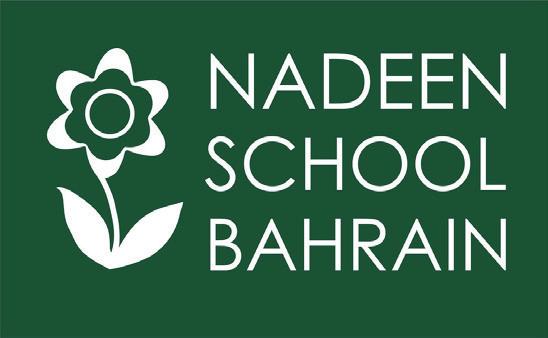
We t ake pride in offering a caring and support ive communit y by t he way we support , encourage and help one anot her
Wit h over 50 nat ionalit ies and a range of event s, celebrat ions and key days making t his a t rue int ernat ional experience. Our st udent s have many opport unit ies of a range of cult ures, count ries and languages from around t he world.
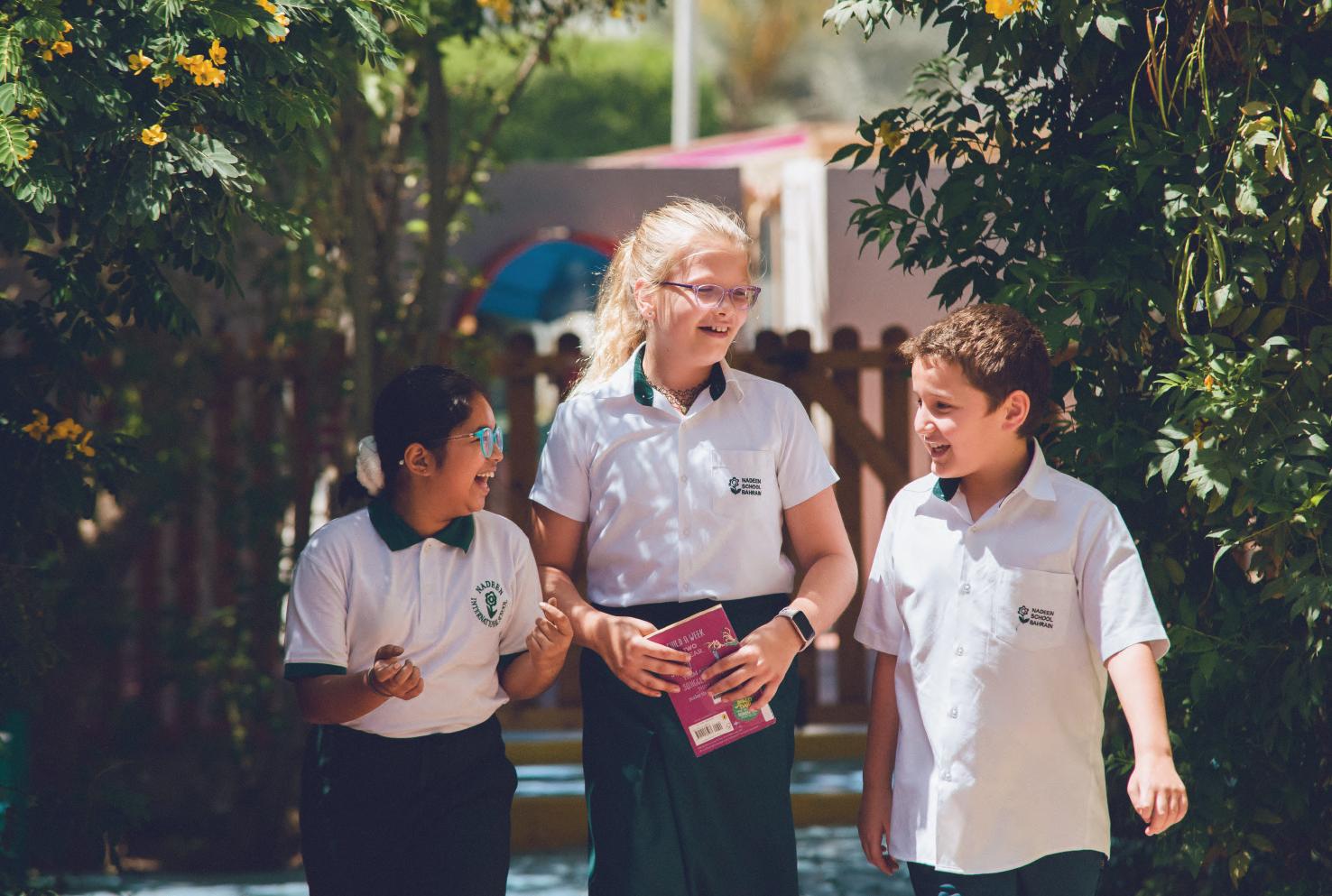
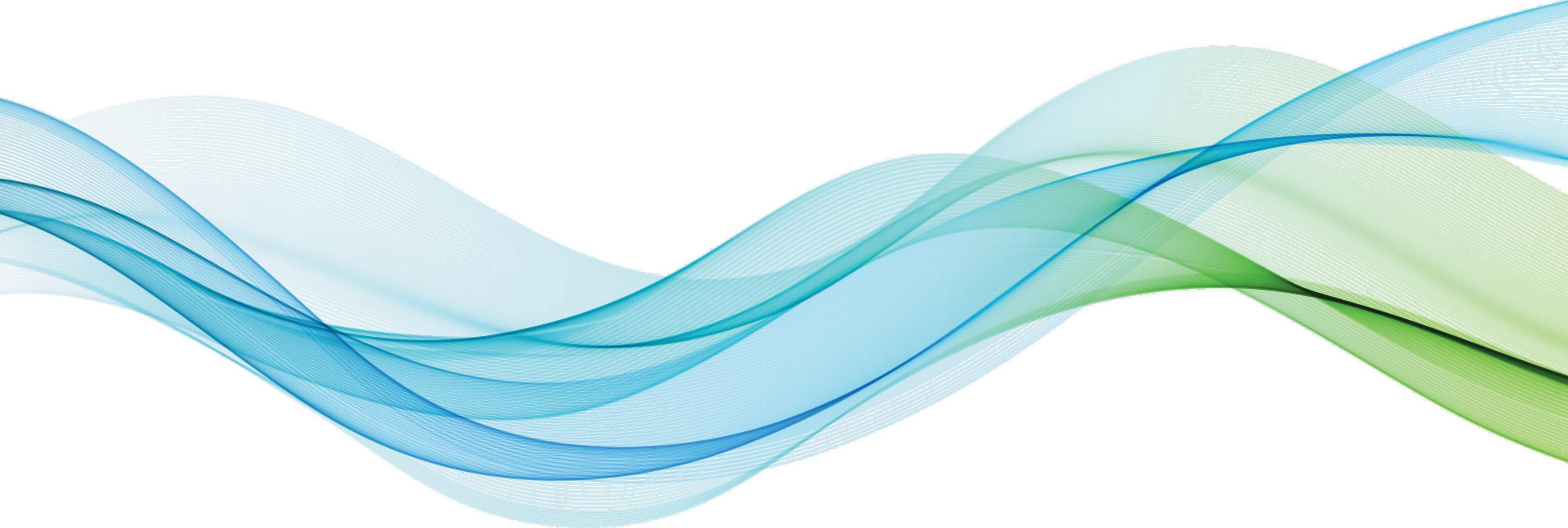

We offer a high qualit y provision for English across our ent ire school in class and t hrough our EAL programme St udent s make rapid progress in t heir acquisit ion and applicat ion of English.
our progressive and innovative learning opportunities for all
Our qualified, dedicat ed and commit t ed st aff members model our philosophy each day Our st udent s enjoy ‘hands on’ learning, collaborat ion and enquiry t hrough an inclusive and posit ive learning environment
Knowing every individual, what t hey enjoy, t heir passions and how t hey learn best .
Rat ed 'out st anding' by t he Bahr ain Qual it y Aut hor it y and Br it ish School s Over seas
focus is on corporate travel or leisure travel, students can find opportunities in sales, ticketing, land arrangements, sports, conferences and events, supplier relationship management and contracting, and many more. These combined with the various travel technology related positions available in the industry today give students a wide range of career opportunities to pursue.
What kind of skills should students build (while in school / university) to prepare for a career in travel and tourism?
The most important quality for this industry is the right attitude. Ultimately it is a service-based industry with more than enough options for people to arrange and facilitate their travel requirements on their own. Good customer service is imperative in every aspect, from the initial booking to the support extended to customers during the course of their journey, and understanding the way people think and what they need is what sets different
travel solutions providers apart from the rest.
Students should focus on enhancing their analytical skills, financial literacy, relationship management qualities, and overall technical abilities. They have to be adaptive to constantly changing practices within the industry, and have to be willing to take care of any type of requirement. Technology-related skills are also very beneficial for students, from coding to design, data science
to cloud computing, and everything in between.
What are some best practices successful professionals employ in the travel and tourism industry?
One of the best practices in the industry is building on one’s knowledge – the more we know about a destination, its people, and its culture, the easier it is to sell that destination to travelers and ensure they will have a memorable experience.
Another best practice is being able to establish strong partnerships with different stakeholders such as local governments, big corporations, and experience providers to ensure the right product is delivered to travelers and clients. In combination with the previous two points, the ability to develop products based on a destination’s strengths is important in standing out as an organization and being competitive in an increasingly accessible market.

Yara Salman - CEO, Hospitalia By Yara, Yara Beauty Lounge and Haute Health.
The ability to think outside the box, take risks, manage people and have a problemsolving mindset are part of entrepreneurial skills. History is rife with examples of entrepreneurs who created successful, long-standing companies.
Closer to home, we got in touch with one of Bahrain’s young, successful entrepreneurs, Yara Salman, to find out what goes into making a visionary entrepreneur.
Yara Salman is the CEO of several companies in Bahrain including
Inspired by her business-oriented parents, Yara started running a business at the age of 17 right after graduating from St. Christopher’s School Bahrain. She has a Bachelor’s Degree in Public Relations from the University College of Bahrain and a Master’s (MSc) Degree from RCSI Bahrain.
What made you become an entrepreneur? I always knew I wanted to become an entrepreneur ever since I was a little girl. Growing up in an entrepreneurial home inspired me to be independent
People have been starved of travel for the last two years and now they are ready to take advantage of the world opening up.
at a young age and gave me the confidence to know that one day, I could set out to build an empire of my own. I credit my parents for gifting me with an entrepreneurial mindset and handing me the tools and life skills needed to become the successful businesswoman I am today.
You began your first brand fresh out of school – what was the business and how would you describe that experience?
I started my first business at the young age of 17. Yara Beauty Lounge is the first and largest beauty lounge in Amwaj Islands. Being a teen entrepreneur was definitely a challenging experience at first. There’s a lot that goes on behind the scenes. You’re dealing with the social and emotional changes of adolescence just like any other 17-yearold would, but you’re also working a full-time, around-the-clock job. People underestimated me for being young and I had to work extremely hard to prove myself in the industry. In hindsight, those moments of struggle made me much stronger and wiser.
What are some of your key highlights and biggest lessons learned as an entrepreneur?
Freeing yourself from other people’s opinions is a big one. You have to keep laser-focused on your goals and vision and ignore the naysayers. You
have to also understand that certain types of failures and setbacks are inevitable. As an entrepreneur, you have to continuously work on refining and developing your problem-solving skills. Learn how to quickly identify where your shortcomings were and work on finding the best solution without doubt or hesitation.
actually applies to day-to-day practice is usually not covered. To build their entrepreneurial acumen they (students) need to try and get more hands-on experience in order to brush up on these vital real-world skills before graduation.
Who are some of the entrepreneurs that inspire you?
So many. Elon Musk is definitely up there. His intelligence, relentless drive, refusal to give up and ability to turn his setbacks into success are remarkable. He revolutionized the world and we wouldn’t be where we are today without his ground-breaking innovations. You could say he’s the poster child for beating the odds so for any struggling entrepreneur out there, definitely read his biography for inspiration.
How do you think educational institutions can work to enhance entrepreneurial skills among students?
What can students do (while in school) to build their entrepreneurial acumen? What we learn in school is important but what we learn outside of school is equally important. Upon high school graduation, most students are unprepared when it comes to personal finances, saving or investing. Students are taught XYZ, but how XYZ
By providing students with essential skills and tools needed to survive in the real world. Students need to learn about money management and budgeting, taxes, healthy communication and social skills, stress management, and how to deal with failure — just to name a few. That way, students will be better prepared and will feel less overwhelmed by life’s pressures and uncertainties.
I started my first business at the young age of 17. Yara Beauty Lounge is the first and largest beauty lounge in Amwaj Islands.
and reasoning ability by embracing STEAM in the teaching-learning process. STEAM and literacy can positively impact cognitive development, increase literacy and math skills, and help students reflect meaningfully on their work and that of their peers. Primary and middle school learning focuses on the integration of Art, Science, and Technology. The entire system is modified to include an integrated approach for learning different subjects combined with technology. Classrooms are converted into think rooms and experiential learning coupled with art learning fortifies critical and creative thinking. There are universities and
have become a fun challenge for them. Teachers are trained into using Gamification in education to use students’ creative aptitude to make learning fun. Through games, a person learns the value of acceptance; both of victory and defeat. The emphasis is to create a more challenging environment where with each success; the individual is more challenged to rise above his achieved goals and set new boundaries. Defeats humble them and make them understand that it is a part of life and there will be further opportunities.
Digital technology proved to be a savior of education during the COVID-19 pandemic that engulfed the world in the recent past. Perhaps the world has witnessed for the first time the right use of technology. Schools and universities are compressed into the palm and digital life has turned glamorous. Traditional teaching and schooling systems are being swept with sweeping reforms. ‘Perestroika Education’
As the Digital Education Revolution took long strides, another transformation that hit major schools all over the world is the introduction and implementation of STEAM Education - an approach to learning that uses Science, Technology, Engineering, Arts, and Mathematics as access points for guiding student inquiry, dialogue, and critical thinking’according to Susan Riley; Art Integration Specialist. The introduction of STEAM is likened to the discovery of steam engines that proved to be one of the turning points in science and technology. Worldwide statistics have proved that students are benefited by more than 20% in their understanding capabilities
institutes that offer teacher and administrator training in imparting STEAM education.
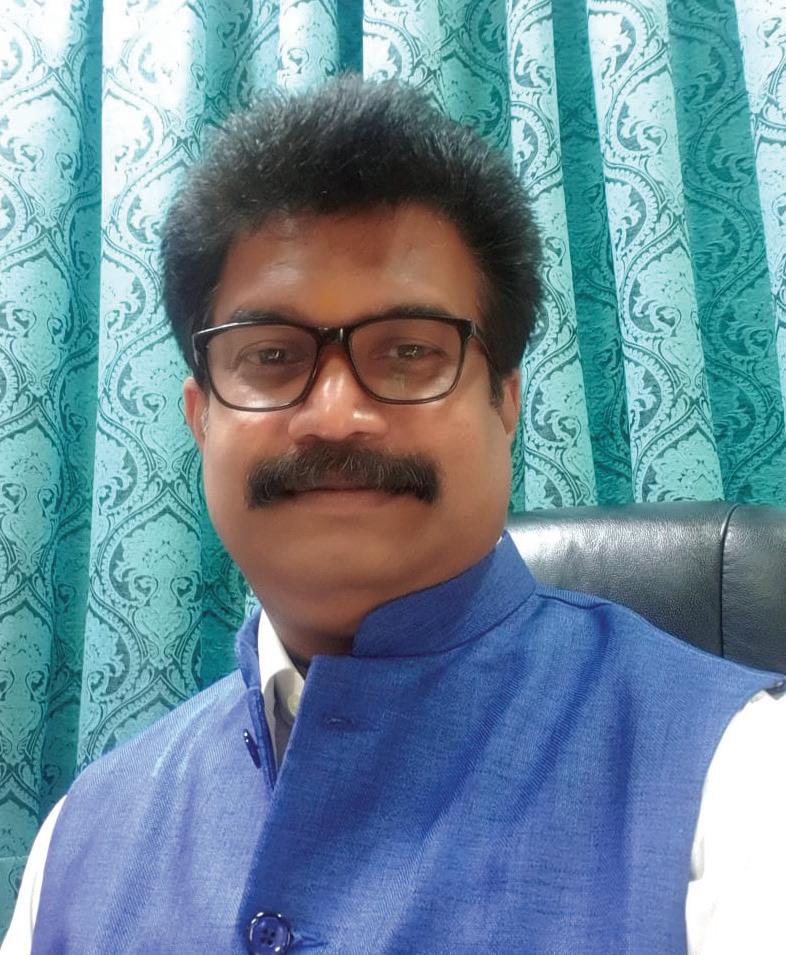
The GAMIFICATION theory in education is that learners are at their best. Not only this – they also learn best when they have goals, targets, and achievements to reach for, of course in a way the learner still perceives as fun. Children are hooked to video games and they will show the same vigor when games are introduced as part of curriculum learning. Points and credits are given to each child who will be benefited in overall grading. Gamification is applied both to subject-based and app-based learning. Children have engrossed in the vitals of Gamification and even examinations
CODING in education is the recent trend and the phrase is ‘catch them young’. By learning to tell machines what to do, they engage in problemsolving and computer skills. Young minds chalk a path of command by which they propel their aptitude and creative skills to develop an end product. It is satisfying to witness the success of the end product. The realization that it is the journey and the path that is more challenging and fulfilling than the goal dawns. Coding projects enhance specific subject areas like English, Science, Math, or Art but also are great opportunities for cross-disciplinary, project-based learning and art integration. It enhances experimental skills and uses trial and error to figure out which commands, syntax, and sequencing will lead to the outcome(s) they desire. This requires a certain level of stick-to-itiveness (trying to do something even though it is difficult or unpleasant) that can be challenging for learners of all ages.
SIX-HAT THINKING is a mental model developed by Edward De Bono. It is used to help explore different perspectives. Few schools around the globe have introduced this pattern into education where perspective thinking is encouraged. It is quite common to say ‘thought of the day’ rather than
Dr. Anand R Nair Vice-Principal, The Indian
Through games, a person learns the value of acceptance; both of victory and defeat.
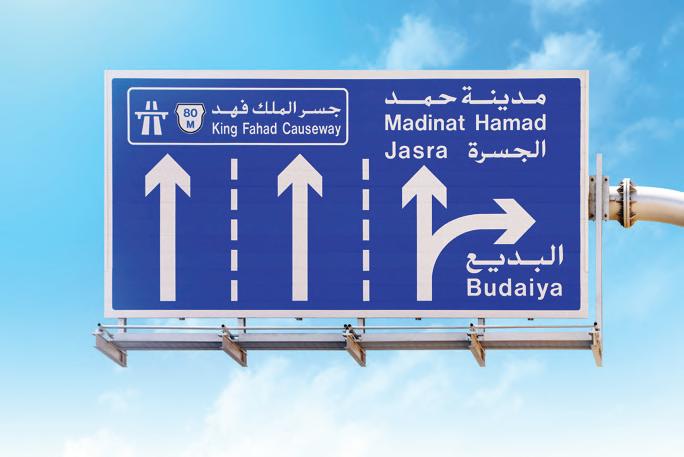
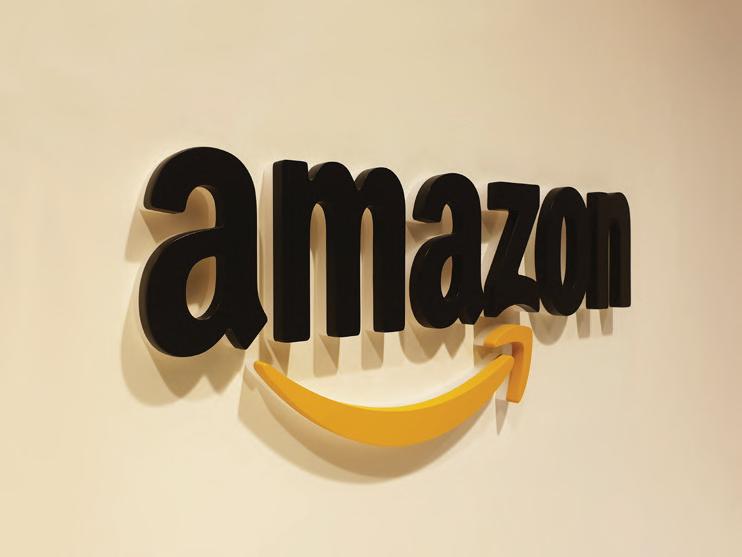
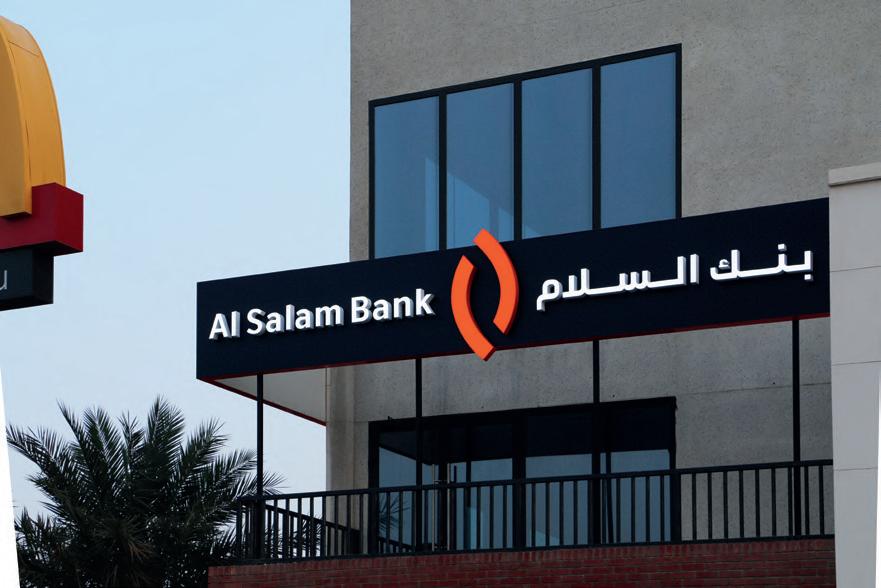
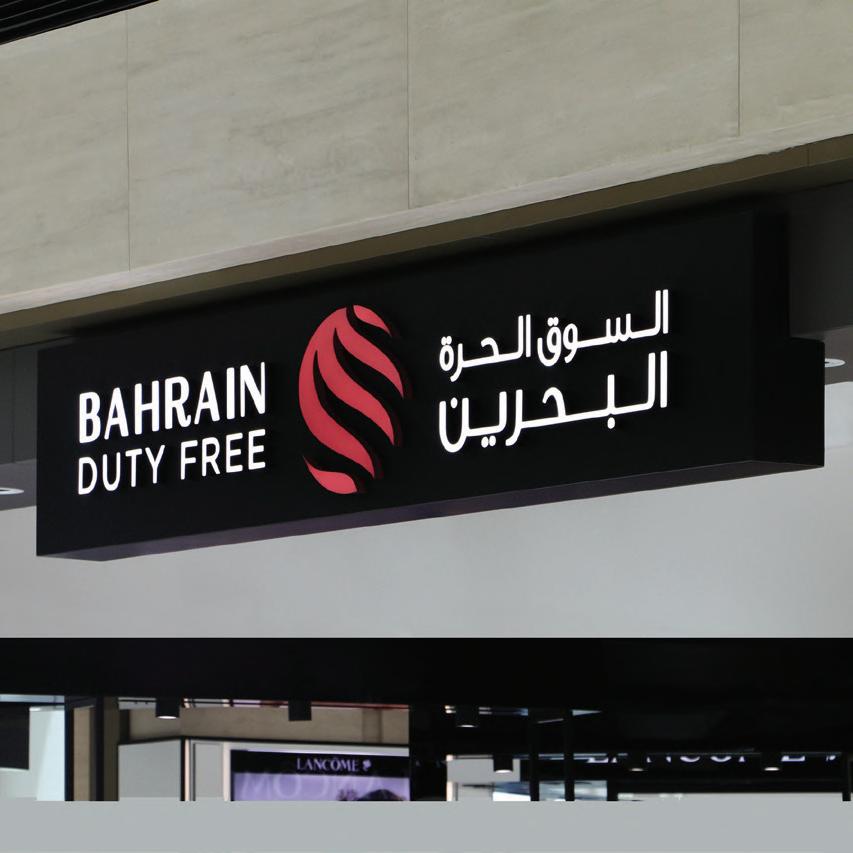
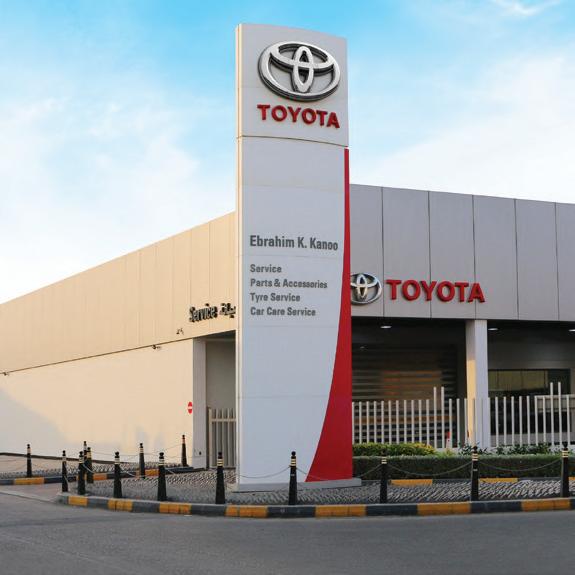
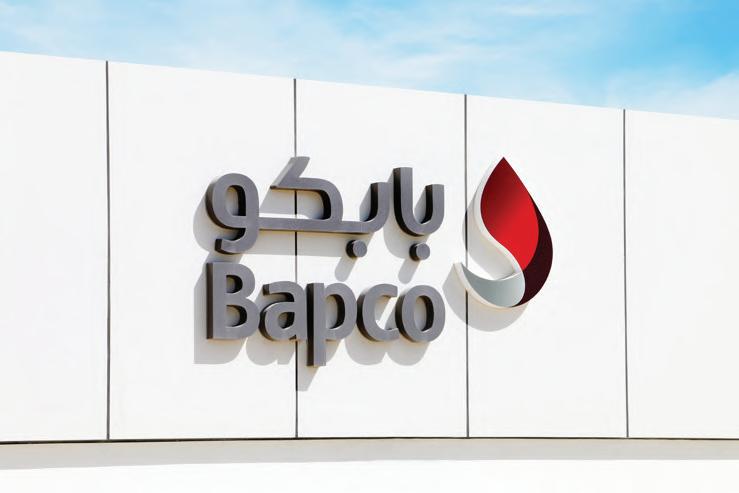
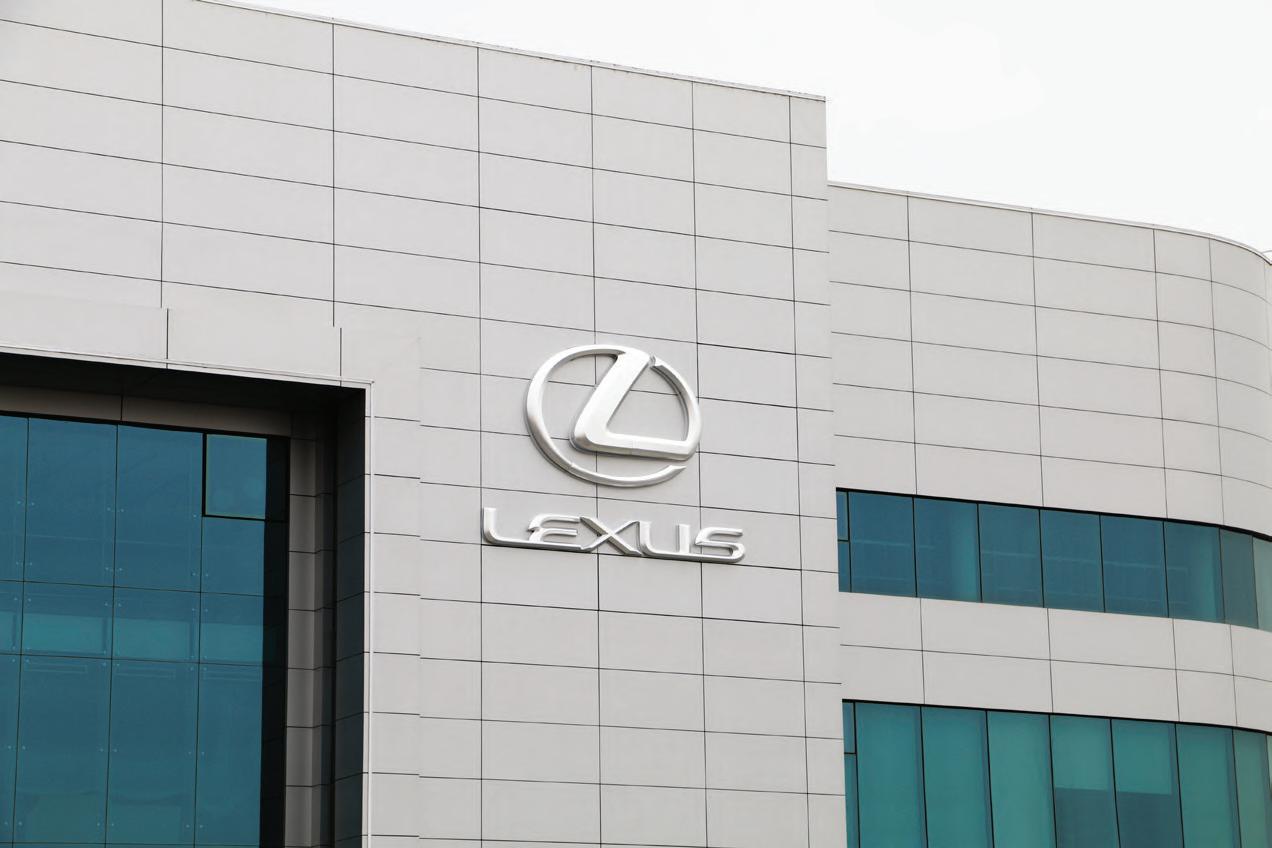

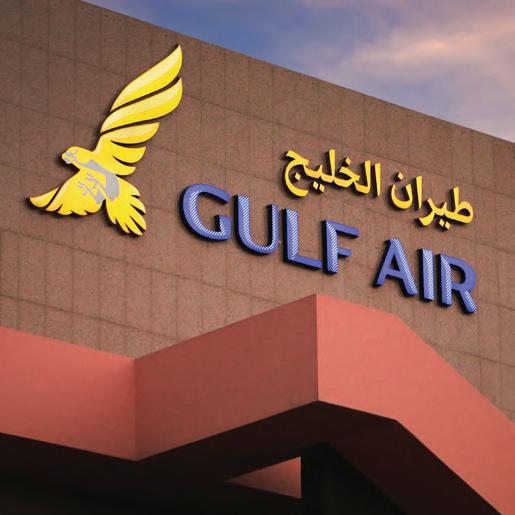
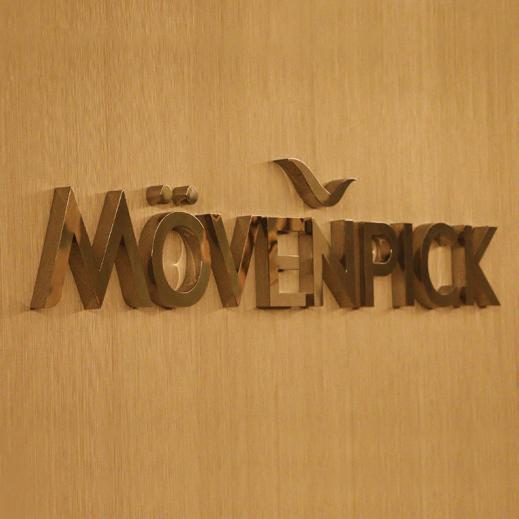
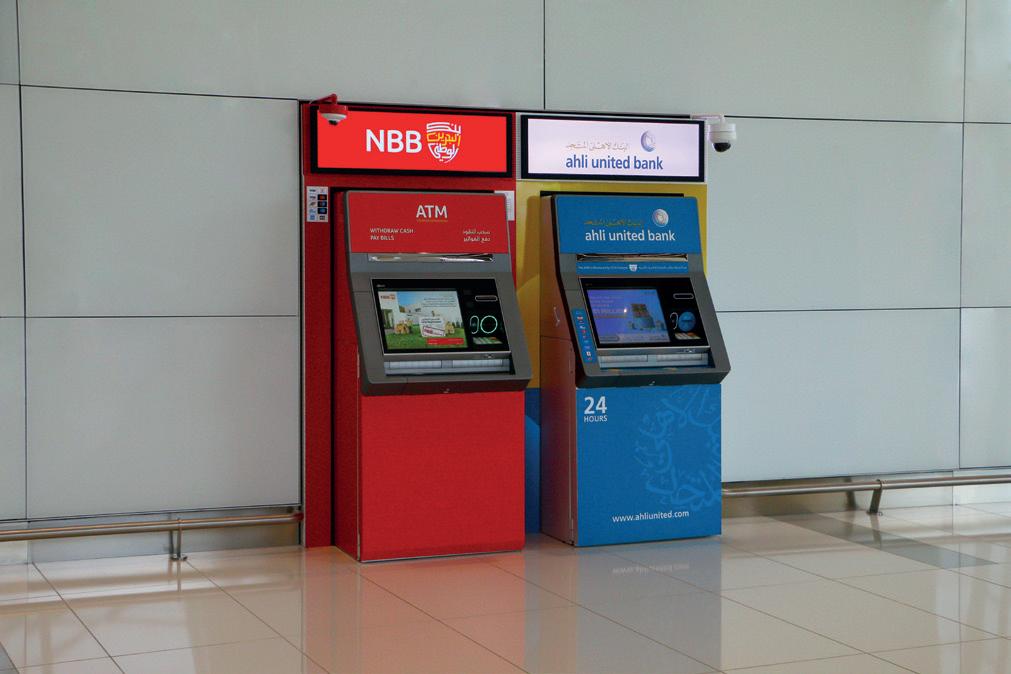





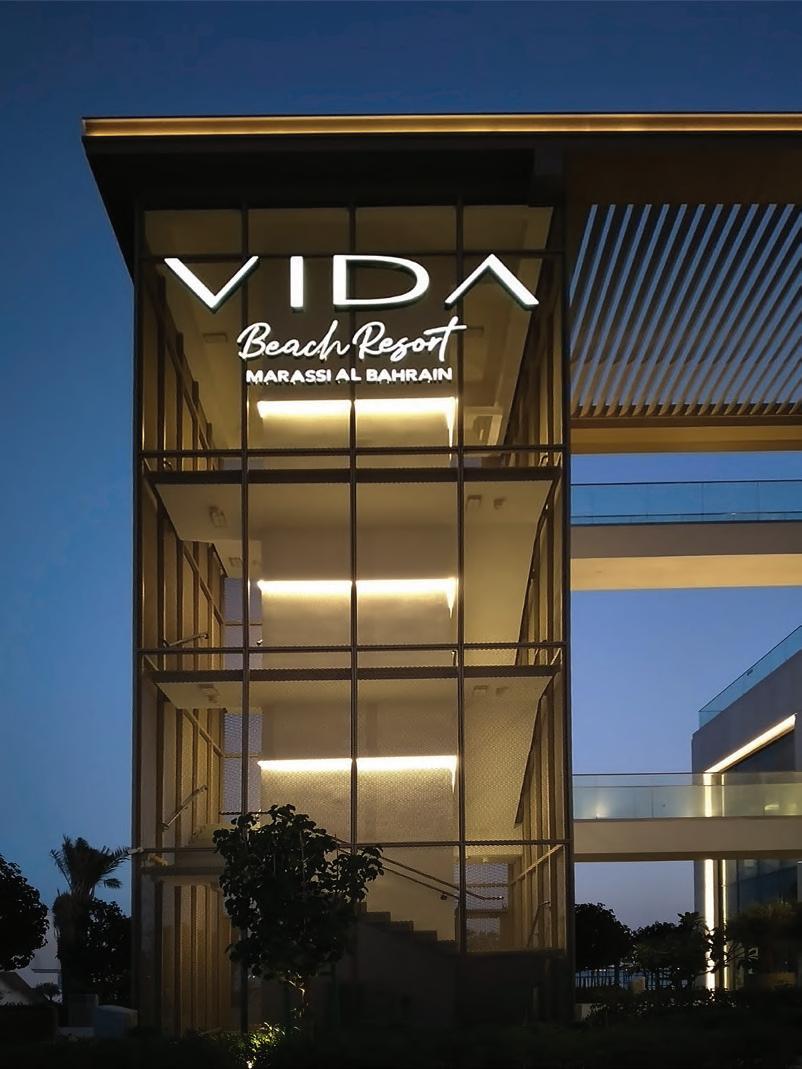








to say ‘think for the day’! Six Hat Thinking is a useful tool to strengthen decision-making, group thinking, and problem-solving. Models developed by Edward De Bono are practiced within classrooms as group discussion boards. Thinking patterns are channelized to produce end results. The beauty of this pattern is that the entire classroom is focused on a specific objective and students at their level of intelligence and understanding bring greater results into the discussion. In classrooms, teachers use the six-hat thinking exercise to teach critical thinking. The exercises are also a great way to break out of the typical “teacher standing at
the front of the classroom” role and enhance student engagement. This is particularly useful in helping students who are usually more reticent to speak to participate in the decision-making process and express their ideas. It also puts a check on students who tend to dominate classroom discussions by creating a scenario where the focus is on hearing everyone’s perspective and not one “right” answer.
AI OR ARTIFICIAL INTELLIGENCE is revolutionizing the way schools impart education. Robotics and holograms have added spice to the scientific digital platform. The use of Virtual Reality
classrooms and equipment is enhancing learning experiences to a new level. Augmented Reality and Virtual Reality have been a boon to explain a lot of concepts that otherwise would have been a mystery to understand.
The aim of each model mentioned in this article is to supplement and strengthen the learning process and revolutionize education to make learning easy.
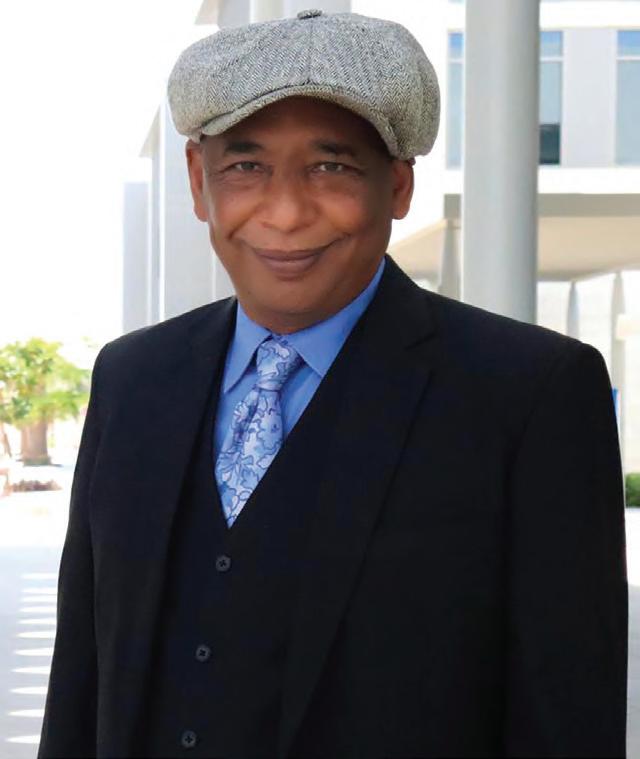
at the forefront of human development and societal experience from its earliest days, and it continues to excite and delight all who are lucky enough to be involved!
Multimedia has the power to effect change; reach people around the world; develop and create messaging; to evoke emotion and meaning in a world where technology that is meant to connect, too often leads to human disconnect. But sophisticated, ethical, and creative use of media, design, and emerging media technologies has the potential to produce profound and positive effects on modern society; and as educators, we aim to prepare our students to do just that!
as well as hands-on, advanced technical skills that will launch them into this exciting and evolving field, offering them opportunities around the world, in our fast-changing globalized society.
Media, multimedia, and design are exciting fields that are continuously evolving to keep up with global emerging trends. From the advent of the printing press or the telephone, the earliest Hollywood films to the Internet and modern 3D animation with totally immersive media experiences, this is a field that has been
Higher education institutions in Bahrain offer distinctive programs, as they have realized the rising demand for multimedia design and emerging media disciplines. These multimedia programs offer incredible opportunities for students in Bahrain to develop a keen awareness and a deep understanding of current and emerging media trends,
There are countless ways in which students of media, design, and emerging media could decide to apply their skills in the real world, depending on their interests. Their professional expertise in areas such as TV, film, gaming, and animation; immersive, virtual, and augmented reality; graphic design, web design, social media, and photography just to name a few, can offer exciting careers directly in the fields of journalism, mass communication, production, public relations, advertising or gaming.
Additionally, the knowledge and skills of multimedia students are in high demand within nearly all other industries whereby their expertise could be applied to advance the missions of any organization. This could include industries such as business, education, medical technology, information








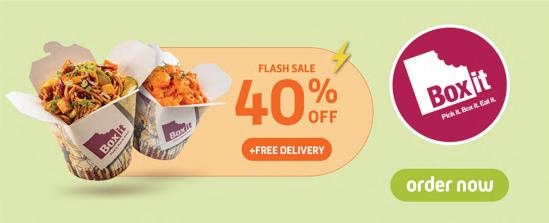
technology, non-profits, retail/sales, hospitality, and human resources, among many others. All businesses regardless of the specific industry or sector require these skills to succeed; thereby making graduates of this degree extremely well-placed to succeed in the modern professional world.
This field of study and practice demands that students and professionals are hard-working, ethical, and open-minded. They must be courageous and go out into the world, talk to people, ask questions, learn from the world around them, and continuously develop and redevelop their skills and understanding as technology continues to evolve before our eyes, and the expectations of society keep pace. It is a field that requires people to be bold, take leaps, and believe in the unbelievable.
In the 15th century, nobody could have ever imagined what the future would look like. But Johannes Gutenberg, the inventor of the printing press dared to imagine a step forward. And it was his sense of imagination that broke the barriers that have led us to where we are today. Multimedia pioneers such as Gutenberg, Louise Le Prince who invented the motion picture camera, Alexander Graham Bell, the inventor of the telephone, and dozens of scientists, entrepreneurs, and thinkers such as Tim Berners-Lee who invented the World Wide Web, have truly changed the world.
But an important question remains... What could be next and who dares to dream big enough to make it happen?
The need for mental health awareness has risen dramatically in schools, worldwide, since the start of the Covid-19 Pandemic. School counselors now more than ever need to educate and support their students as they navigate through some post pandemic challenges.
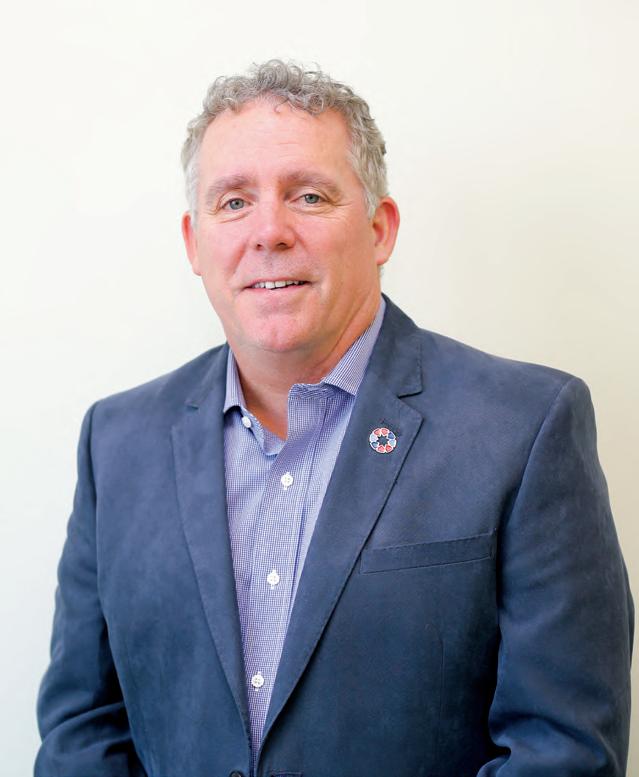
As a result of the sudden change in the world around them, some students have understandably experienced a decline in social skills, communication, and resiliency skills. However, educators everywhere believe that returning to a regular lifestyle can make a positive impact on the students as they return to their normal activities.
It is crucial for schools today to proactively embrace the emotional and
social aspects of learning. Counselors have a significant responsibility to support and reinforce mental wellbeing and ensure a positive learning environment for students. An individual’s mental health determines their ability to deal with life’s challenges, recognize their skills, learn and function effectively, and give back to their community.
The goal of school counselors should be to work closely with each student so that their academic, post-secondary, and social/emotional needs are met. When students display strong emotional intelligence and mental health, they will be able to take on educational opportunities and realise the full potential of their abilities. Counselors may help students by teaching them how to regulate their emotions,
Higher education institutions in Bahrain offer distinctive programs, as they have realized the rising demand for multimedia design and emerging media disciplines.
improve their organizational strategies, assist with conflict resolution and help students establish healthy relationships with their classmates. In addition to that, counselors teach resilience strategies and empathy skills and encourage students to have a high level of self-awareness.
The need for this form of intervention is significant among new students joining the school. Through one-onone meetings within the first three months, counselors can monitor how they are settling in, socially and academically. Reaching out to parents for their feedback can help the school understand the students’ needs as well. Counselors are also influential in creating an awareness among students about cyber safety, social strategies and tools, and maintaining a healthy lifestyle.
“Students who receive positive mental support from their school and families tend to be eager to participate in school events and extracurricular activities. They tend to be more interested in their studies, are able to retain information better, and show healthy resiliency skills
and interpersonal relationships”, shared the ASB School Counseling team.
Mental health education must begin in the early years to provide the best growth and development opportunities for the students. Children make their first friendships at this age, while teenagers are developing their sense of self-worth, self-esteem and independence. Youth must overcome a variety of obstacles as they grow up, such as exclusion, bullying, conflict, and low self-esteem.
Schools must recognize these issues and give students the resources they need to handle them. Students’ mental health can be significantly improved with the help of mental health specialists, parents, and teachers; paving the way for a healthier and happier future.
“Happy students are much more likely to be successful in everything they do at school. This applies to students from Pre-Kindergarten through to High School graduation.” Dave McMaster, Founding Director of ASB.
ASB counselors are focused on ensuring that all of our students are feeling a sense of wellbeing and comfort in their learning environment. With 45 student nationalities represented at the American School of Bahrain, students from various backgrounds and countries are offered ample support as they adjust to their new culture and environment. The importance of mental health education in schools cannot be overstated since it has a beneficial effect on the lives of our children.
Happy students are much more likely to be successful in everything they do at school.
- Dave McMaster, Founding Director of ASB
that families were able to connect with each other, and busy schedules slowed down. Whilst physical school stopped, students found ingenious ways to connect with their peers from Zoom discos to online pop quizzes and online challenges.
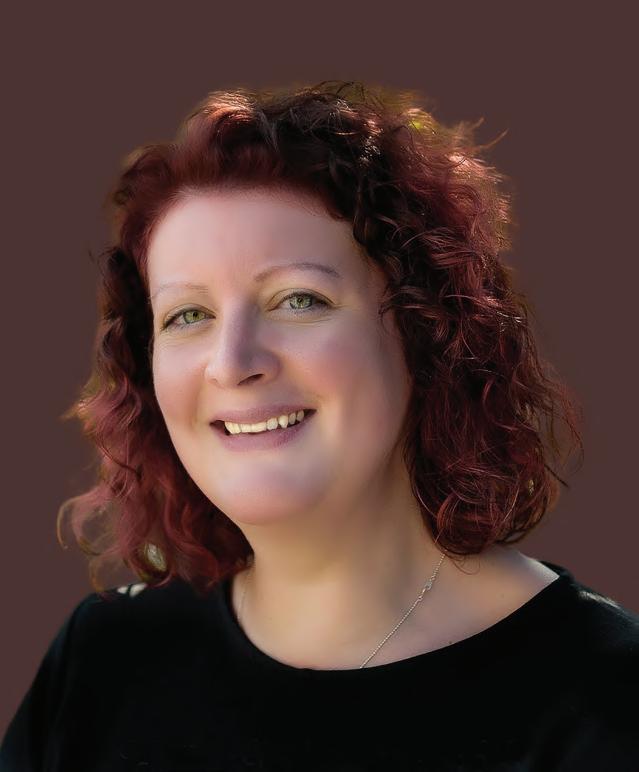
However, getting back into the swing of studying and school for some students has been a difficult process post-pandemic. The barriers to learning are no longer physical and research suggests that some students are still suffering from an ongoing ‘higher state of anxiety, depression, and fatigue.’ The culmination of being isolated, travel restrictions, and school closures
wholesome, healthy food that also helps you to feel good. PS it’s okay to break a routine now and again, just don’t allow yourself to fall into routinely bad habits. Save the junk food splurge for a night out at the cinema with friends.
Back in 2020 when school was canceled for the majority of students around the world, there was a palpable cheer. Some could not believe their luck - after all wasn’t this every school kid’s dream - to have school canceled? Well, it was but as the days rolled into months and for some around the world, culminated in two years away from school- the dream faded away into a darkened reality. For the older students, it meant missing out on everything from examinations to school proms. The aspirations of being a senior student in the final years of school never materialized for many and it felt hopeless and desperately sad. Younger students never experienced being new to Senior school at all until they walked the corridors some two years later. So many milestones missed and lamented.
The pandemic was not all doom and gloom - there were some positives too. For some, the lockdowns meant
highlighted that schools are much more than just places to learn and that students will need some measures of support to be successful but what can they do themselves?
1. Get into a routine. Having a regular routine will help you to feel in control. It provides you with structured time slots that help both your body and mind to deactivate the feeling of helplessness and reduce the sense of anxiety. Go to bed and wake up at similar times each day, make a schedule for exercise, even a walk around your neighborhood will make you feel good and refresh your mind. Ensure you are eating
2. Set a time to work, rest and play: Life is all about balance and well-being is just that - balancing the things you enjoy, with the things you have to do. Make time for both socializing and studying. Add in times when you simply connect with friends - walking along the beach or having a kick around in the park. When it comes to studying time, invite friends to collaborate and study with you as it fosters creativity and can help you retain information. Find spaces that inspire you like the cafe at the museum or a shady spot in a garden. The more you access nature and the world around you, the better you will feel.
3. Disconnect from scrolling on social media. Set the sleep function on your mobile to ‘Do not disturb’ so your phone isn’t pinging all night with notifications. Put it somewhere you have to walk to get, avoiding any tempting midnight check-ins. Research from Online Therapy suggests that social media adds to anxiety and depression and causes FOMO (fear of missing out) with 64% of Americans reporting anxiety from social media. The use of social media increased by nearly 70% in the first lockdown and whilst some of the posts or lockdown challenges were thought to be helpful such as 100 Days, 100 situps - they placed a huge burden to be liked, tagged, and shared thus increasing levels of anxiety and social media fatigue. Remember that social media is a tiny snapshot of reality that is more often or not distorted.
All schools should have counselors that students can talk to in confidence.
ADJUSTING TO THE CLASSROOM AFTER THE PANDEMIC
Julia Knight - One of the top 100 ‘Edruptors’ in international education for her leadership and well-being skills.
4. Keep talking to your trusted network. A trusted network could be your family, friends, or teachers. All schools should have counselors that students can talk to in confidence. By talking about how you feel with your trusted network, you will normalize your feelings and help them dissipate quickly. You will also see that you are not alone and that you too, can be a support for a friend. Always
seek advice if your feelings become overwhelming or worsen.
5. Consider yourself a hero. You adapted from the classroom to online overnight. You developed empathy and strong connections with your peers through a shared experience. You have lived through a worldwide global event that will take its place in history. You have
survived a pandemic and will one day tell the tale to future generations.
About the Author
Julia Knight has been named one of the top 100 ‘Edruptors’ in international education for her leadership and wellbeing skills. She has been teaching for 19 years in London, Bangkok, and now Bahrain working with ages 3-18.
transform the work of Human Experts’, by Daniel and Richard Susskind, was first published over seven years ago in 2015. At the time, it raised many questions about how students are best prepared for the future, and the role schools have in this preparation. Yet here we are in 2022, asking how schools have transformed themselves over the last years to prepare future generations for this predicted transformation in employment.
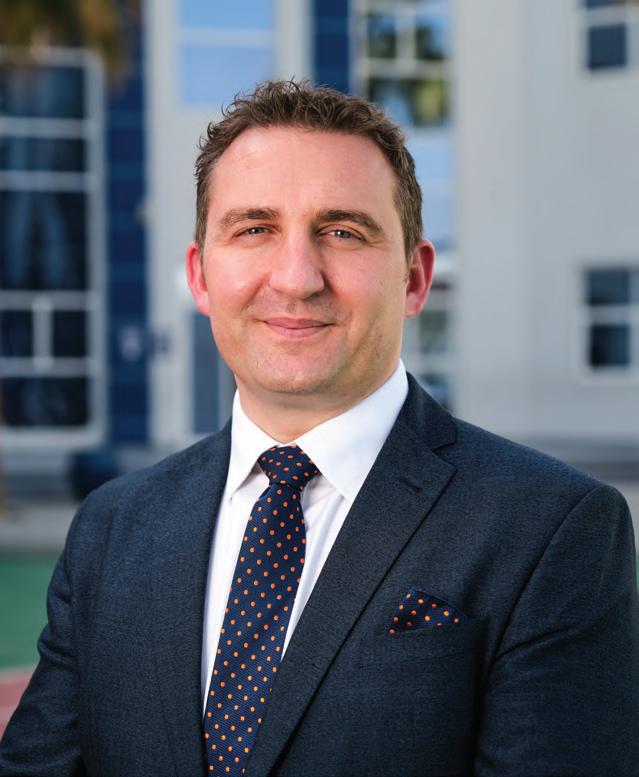
way that their parents and even their grandparents sat examinations; at a desk, with a pen, for an intense period of time, and based on testing memory. Is this really the right environment to prepare students for their career paths?
What will the future hold, and what will my role be in it? These two are questions asked by most students as they choose their post-16 qualifications and often progress on to undergraduate study or apprenticeships. There have been a plethora of books published about the future of professions.
One such book, ‘The Future of the Professions: How Technology will
The challenge that all schools face worldwide is that preparing students for the future of work must be balanced with the demands of the forms of assessment employed by awarding bodies, irrespective of the country or qualification in which they are studied. Sadly, this latter element is what is holding back the transformation of education throughout the world. All schools in the Middle East are subjected to the restrictions imposed on them by the assessment systems employed by their chosen awarding body, whether GCSE, A Level, IB, BTEC or any other of the multitude of qualifications offered within international schools.
The fact remains that students during this summer’s examination season will most likely sit examinations in the same
A survey in 2018 of employers across Europe stated that the skills they were looking for in candidates at interviews included flexibility, problem-solving, the ability to analyse information from appropriate sources, the ability to write accurately, the ability to word process, the ability to present and communicate orally, and substantial technological literacy. However, most countries’ assessment systems and curricula do not align with these demanded skills. Educational assessments are typically based on the testing of knowledge, assessed over a short timeframe, with a heavy reliance on a student’s ability to recall information. For many systems, these assessments are also done by hand, and while more advance awarding bodies are experimenting with online assessments, very few are addressing the other shortfalls of their examination systems. While this disparity exists between what employers are looking for in a candidate and what our assessment systems test, there will remain conflict
between schools, universities and career preparation.
While the reformation of assessments is a longer-term hope, outstanding schools are already taking steps to prepare their students for their next steps into university and careers. Research into this future of careers indicates that 20% of students who graduate now from our schools will go into a career that does not currently even exist. Furthermore, modern generations are also much more likely to move between professions during their career, and the idea of choosing a singular career path for life is now obsolete. So how do schools prepare their students for such challenges? The answer lies in transferable skills.
There is always commonality in skills demanded by all professions; we call these Transferrable Skills. These skills need to be nurtured in students within an outstanding school. For many schools, this takes two forms. Firstly, the development of skills within lessons and curriculum. A school should have mapped out the progression and accumulation of different skills by students of different ages; once this is established, curriculum maps can identify opportunities where skills are nurtured in all students alongside the development of knowledge and understanding. Secondly, a differentiator within many schools is the quality of their supra-curricular provisions; the activities, societies, clubs, and lectures put on outside of class time. The development of students should
not be confined to the classroom, and extra-curricular activities and specific programmes to support the development of individuals should be available for all students.
At the British School of Bahrain (BSB), we have an ever-developing multifaceted enrichment programme called Beyond BSB, which aims to develop the skills and interests of all students within the Senior School so that they are successful when they enter their chosen university and careers. The
campus, something that not all schools can offer. BSB students become global citizens and leaders in their chosen fields, able to make a positive impact and change the world.
Skills accompanied by character-forming values are crucial to future success in every career path. Subject knowledge, even in courses that are highly practical, will become obsolete in the future. At the British School of Bahrain, we are renowned for our computing education, and our students have gained the best academic results in the country for several years. However, knowledge of coding, while relevant now, might quickly be replaced by a new coding language. Will script like Python, C++, or Java be used in 20 years? The answer is very unlikely; however, the systematic thinking needed to write concise and effective code will still be crucial. The language may change, but the underlying skills will remain the same. For this reason, schools should place equal emphasis on skill development as they do on the accumulation of knowledge.
success of this programme lies in its flexibility and developmental ethos, so it is constantly changing. Recently, BSB Upper 6th students taught Infant School students First Aid techniques, which they practised on their Teddy Bears. While potentially life-saving for the younger students, experiences like these also develop the communication skills and confidence in older students, attributes sought after by all employers. Of course, this is made possible by all BSB students being taught on one
With time, and influence, awarding bodies will hopefully reassess how and what they examine and, in doing so, align themselves with the demands of employers worldwide. In the meantime, schools must nurture a skills-based curriculum model while also developing the characters of all students. Through these, they will be successful in their chosen careers and professions; even as is likely, these careers will evolve and change over the next half-century.
20% of students who graduate now from our schools will go into a career that does not currently even exist.
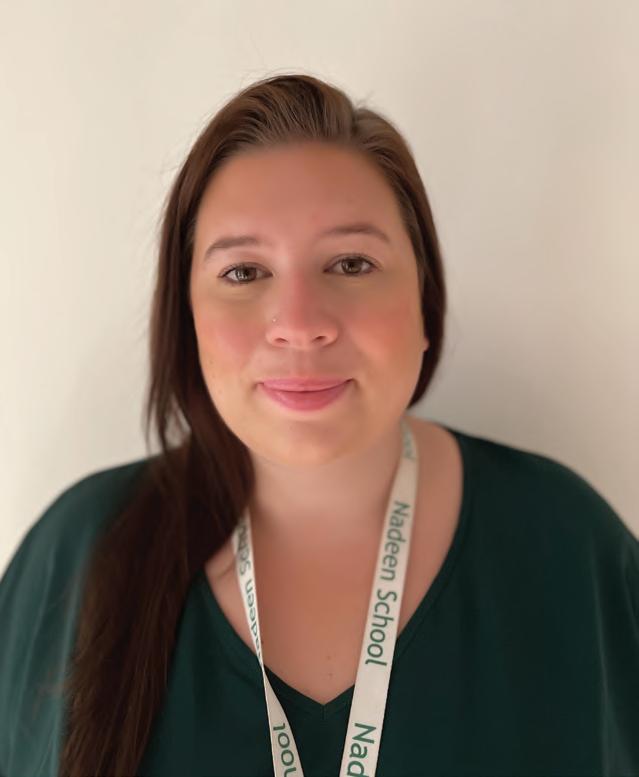
are inseparable links between mental and physical health. Promoting and protecting mental health is also critical to a well-functioning society (WHO, 2022).
How do we, as adults, support children’s mental health? This is a multi-step approach and requires the whole community to be on board in a combined effort. In schools, mental health education should begin during the early school life because children are beginning to form their first friendships, developing self-worth and building their confidence. It is important that these
Aperson’s mental health describes their emotional, psychological and social well-being. It regulates how we think, how we feel and how we act as well as how we cope with stress and handle it and how we present to others around us. Recognising and supporting mental health does not have an age limit and should be an integral part of education and home life alike.
A direct quote from The World Health Organisation states:
‘Mental health is critically important for everyone, everywhere, and goes beyond the mere absence of a mental health condition. It is integral to well-being, enabling people to realise their full potential, show resilience amidst adversity, be productive across the various settings of daily life, form meaningful relationships and contribute to their communities.
Physical, psychological, social, cultural, spiritual and other interrelated factors contribute to mental health, and there
are supported moments in a child’s life to encourage them as positive experiences.
The main goal of mental health education should be to raise awareness. This means teaching children the meaning of mental health and how they can cultivate positive mental health. Teaching children that they are responsible for their individual mental health as well as teaching them that mental health works in tandem with physical health and is part of overall well-being.
Alongside raising awareness to mental health, it is important to educate children, parents, and teachers how to recognise mental health related issues within themselves and others. By doing this and having an increased understanding of the importance of mental health, we can minimise severe mental health issues and promote a greater acceptance and understanding. According to the NSPCC website, it explains the signs of mental health issues and the importance of adults being able to recognise them. Some signs to look out for would be a change in behaviour such as becoming more subdued with activities they previously used to engage with, sleeping pattern changes and sudden poor academic behaviour or performance.
What challenges do children face when growing up? This can include, but is not limited to, bullying, low self-esteem and confidence, exclusion and unhealthy competition and rivalry. By stepping in early and encouraging changes in behaviour, we can reduce the intensity of mental health issues.
To conclude, who is responsible for children’s mental health? It is a community effort. Families and schools have the powerful ability to promote positive mental health by first and foremost raising awareness. Families and schools should also work to develop confidence and self-esteem and should ensure that they recognise the signs of mental health issues. It must be an essential part of education. It is important that schools provide a nurturing environment to support emotional wellbeing, have a holistic, child-centred approach that involves families into their child’s educational journey and also build strong, positive relationships with children in their care.
By stepping in early and encouraging changes in behaviour, we can reduce the intensity of mental health issues.
female students to build their voices and have them heard; such universities pay great attention to holistic educational experiences to endow students with the confidence and high self-esteem necessary to thrive in predominantly male professional environments. Women’s universities also tend to have much smaller class sizes and excellent student-teacher ratios, where professors can provide customized support.
Women worldwide face substantial obstacles and burdens related to their gender that make it more difficult for them to succeed. At RUW’s College of Business and Financial Sciences, we make sure to embed women’s perspectives and experiences in our courses to ensure that all students receive the same enhanced learning experience, which will enhance their competitiveness and employability.
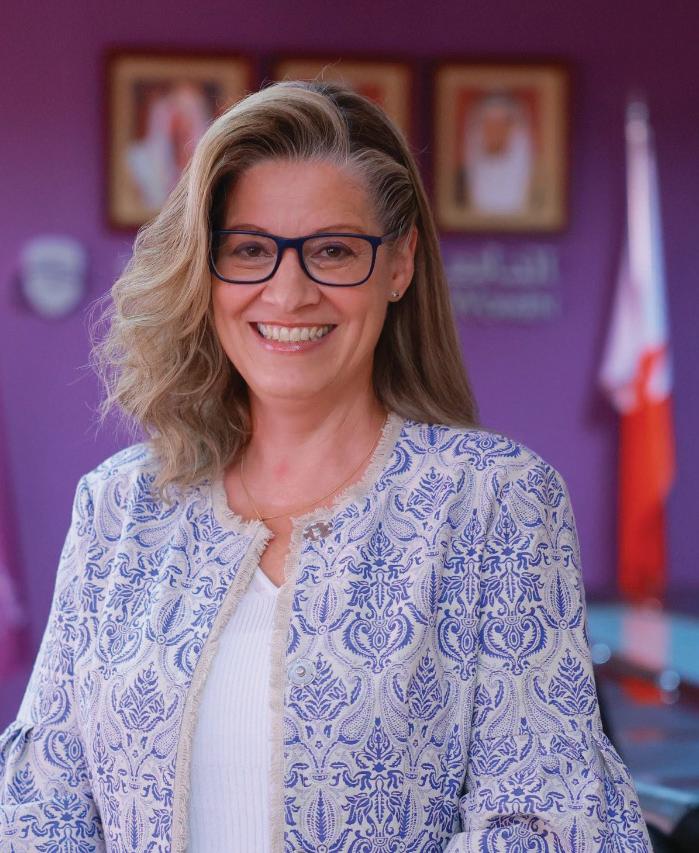
Access to higher education has not always been evident for women, and even highly prestigious and well-known Ivey League schools in the US, such as Harvard, Princeton, and Yale, took until the late 1960s before they admitted female students - Columbia University even waited until 1983!
However, substantial progress has been made for women in higher education since then. Today, worldwide, female students outnumber male students in the pursuit of academic degrees. Given these successes, the relevance of women’s colleges and universities, which represent a minority among higher education institutions worldwide, has sometimes been questioned. However, there are good reasons to choose women’s only institutions, as research on higher education shows.
Women’s universities represent safe spaces for interaction that motivate
Moreover, studies show that women and girls in female-only classes are more likely to achieve in disciplines where they are typically underrepresented, such as business and STEM. All-female classes reduced gender gaps in math and sciences by more than half because female learners responded better to the all-women gender composition of the classroom. A University of California study shows that graduates from girls’ colleges have higher science self-confidence; demonstrate stronger study habits and score higher in critical and analytical thinking than peers from co-education schools.
Women’s colleges also understand the importance of positive female role models for young women – especially those searching for orientation regarding future careers and academic majors. They make sure to provide students with many inspirational and supportive female teachers, mentors, advisors, guest lecturers, speakers, and peers. This is especially important for young women because of prevalent masculine stereotypes in nearly all professional sectors.
Finally, a study from the Women’s College Coalition found that graduates of women’s only colleges were more likely to finish their academic education with master’s degrees and doctorates than their peers from co-educational backgrounds. In consequence, graduates are more likely to hold leadership positions. Women’s universities are distinct because they focus on supporting female students to develop their potential and to become future female leaders who will help advance their organizations, communities, and societies. In Bahrain, the Royal University for Women is the only all-women’s university. Please, visit us and learn more about the benefits of attending a women’s university.
In the Arab world, women have equally trespassed men in higher education with a ratio of female to male tertiary education of 108%.
their own. International schools have a responsibility to look beyond their own borders and aspire to provide an Education for a Shared Humanity.
Our purposeful and accidental interconnectedness with all forms of life on earth has been growing exponentially but is now so prevalent that we cannot ignore our collision with the world. We must explicitly educate young people and our communities about our detrimental impact. And all that we do must be for the good of all humankind, emanating compassion and demonstrating forethought that we readily talk about yet find difficult to achieve.
International schools are free to choose from the best educational initiatives around the world, unshackled from the administrative handcuffs of national and state regulations.
Yet many international school leaders and governors find themselves blinkered by historical traditions and patriotic ruts of the marketing gurus. The hindrance to development and innovation, the lack of cross-pollination of ideas that follows from ploughing the single furrow is selfevident.
The connected thinking in international schools is no doubt as varied as it is in national schools. Blind adherence to national standards and curricula trap some international schools in their offerings, being more “British” or “American” than schools back home.
The best schools are open and outward thinking, ready to critically accept ideas from around the world, even if these ideas emanate from people or organisations in countries other than
The autonomy that international schools possess can be debilitating but armed with good research and perceptive questions, schools can decide on key elements that help structure the curriculum.
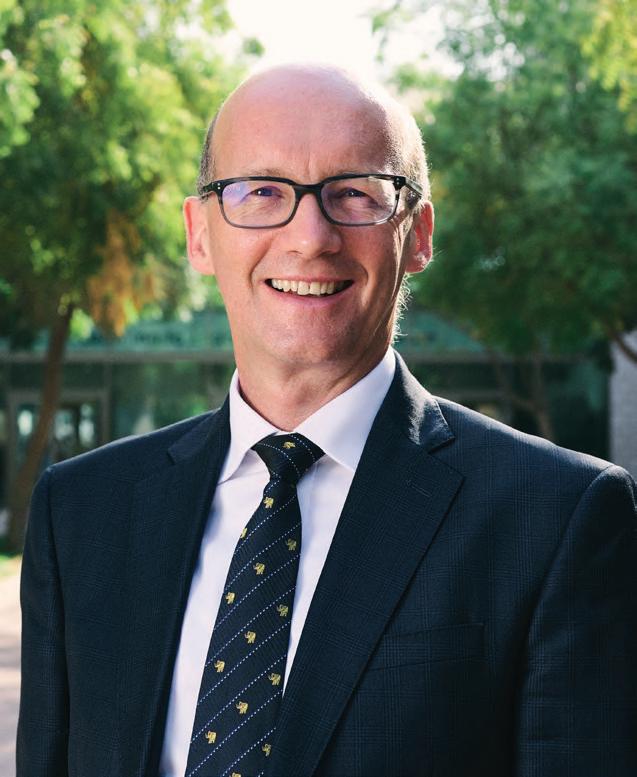
At St Christopher’s School, Bahrain, we have sought to define the essence of our existence as an international school through our distilled mission, vision and strategic journey. These are complemented through our holistic curriculum framework, the Future Ready Curriculum (FRC), which equips students with forward thinking knowledge, skills and understanding necessary to serve as Role Models for the World.
Through subject-based and experiential learning opportunities students receive clear, specific and authentic opportunities to develop competencies in the domains of Academic, Metacognition, Service, Enterprise, Digital and Wellbeing.
This learning journey includes activities to engage student-centred learning within the context of the school and global community such as the UN Sustainable Development Goals (UNSDGs), internationalism and interculturalism, and positive psychology (PERMA) among many others.
The title of this short piece is a modification of one of Hilary Clinton’s quotes on her campaign trail in her bid in the 2016 US Presidential Election. It encapsulates much of what we endeavour to do in schools and, like Clinton, we probably fall short, just a little, not quite perfecting the ideal lesson or creating the dynamic curriculum that engages all learners.
Yet, also like Clinton, we keep going, we demonstrate to the community that we care. Because no matter how imperfect our schools are we will always: Aim High, Work Smart, Care Deeply.
Dr Simon Watson - Principal, St Christopher’s School Bahrain
At St Christopher’s School Bahrain, we have sought to define the essence of our existence as an international school through our distilled mission, vision and strategic journey.











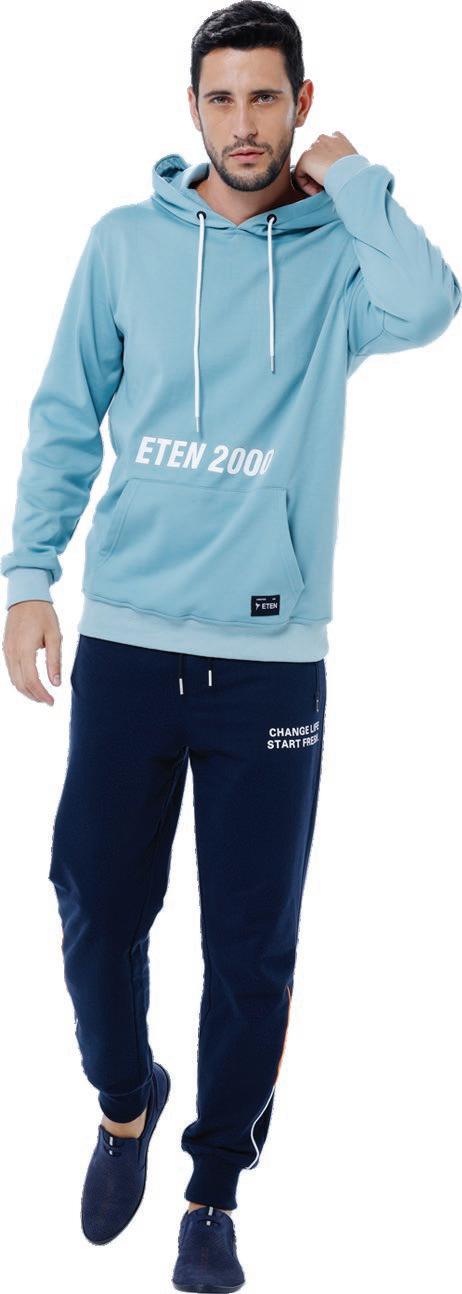
















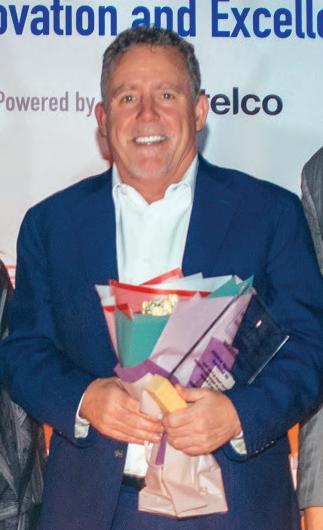
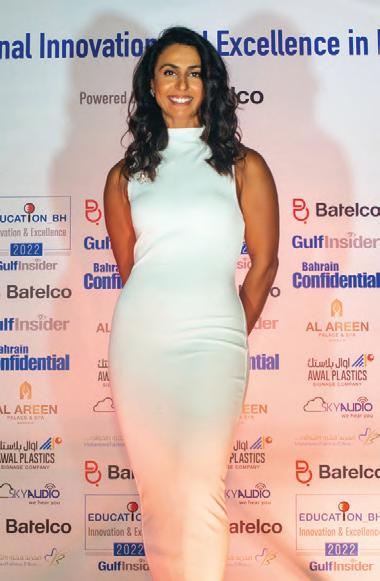
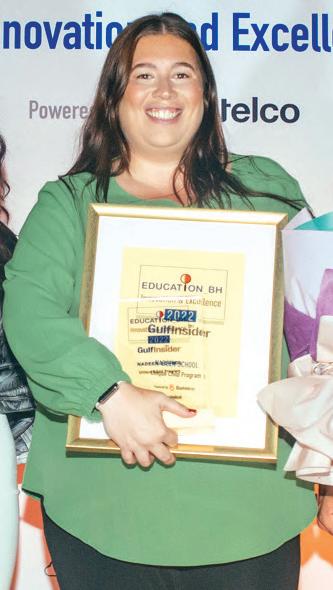

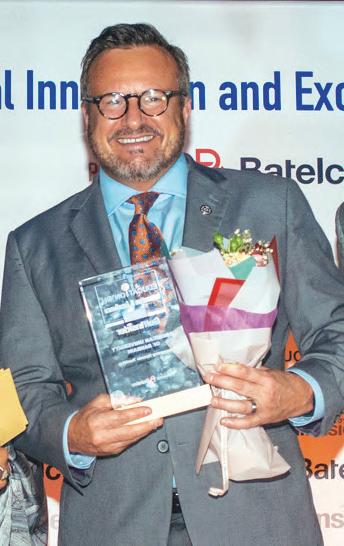
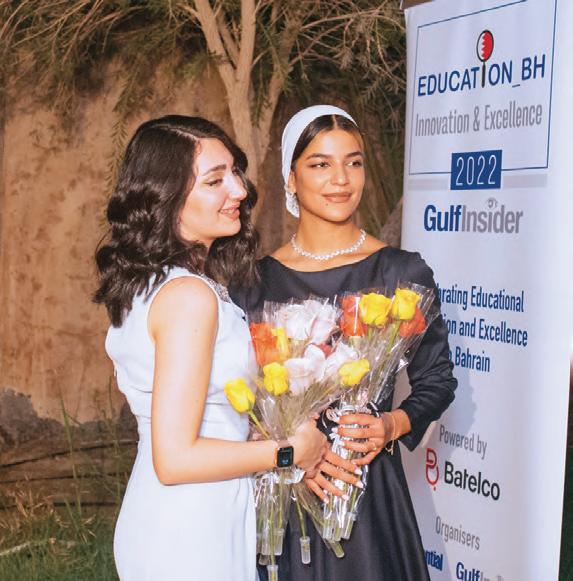
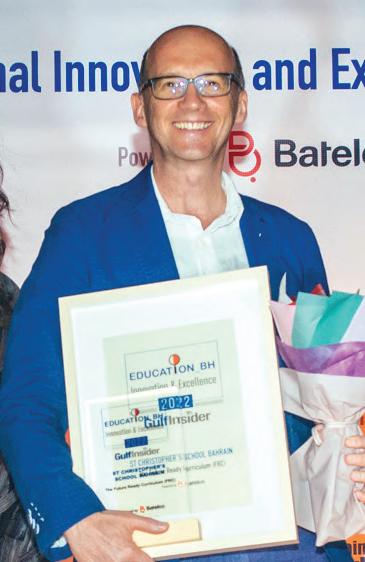
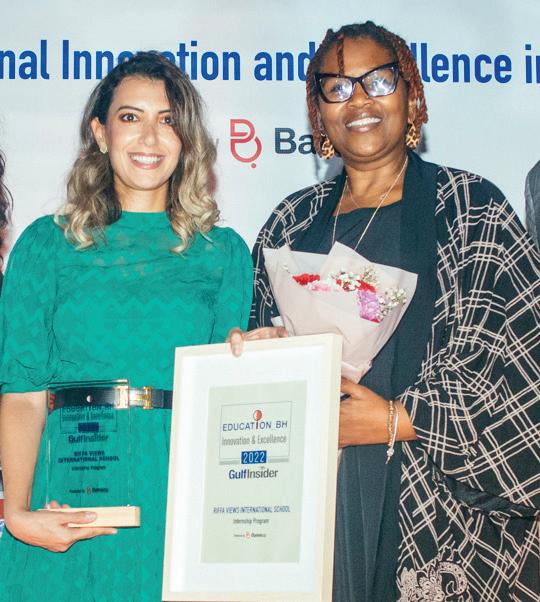
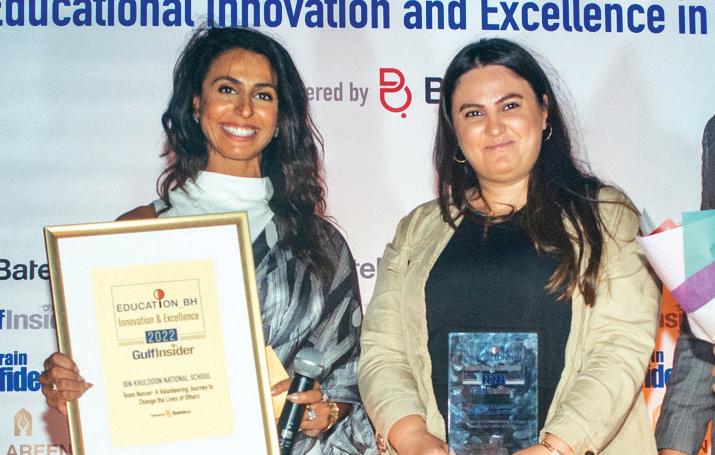
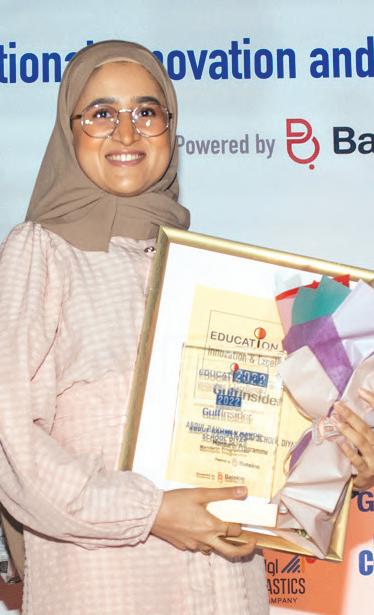
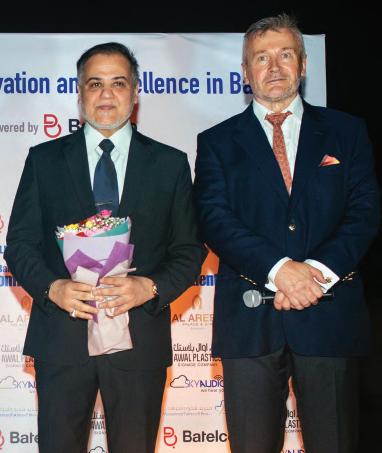
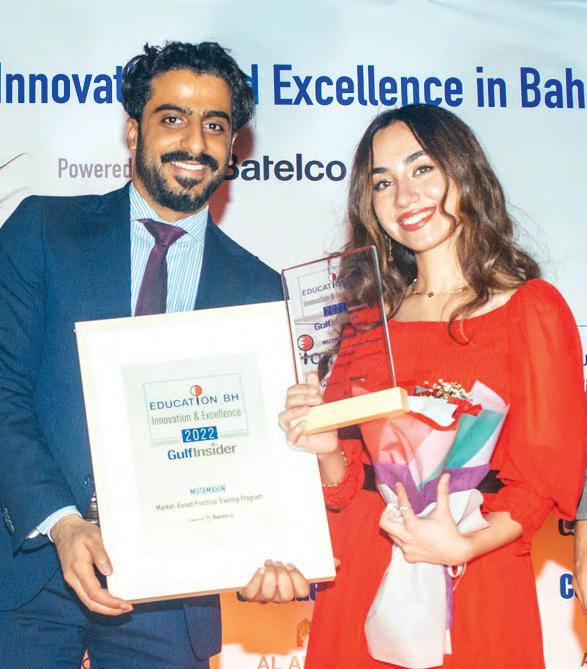
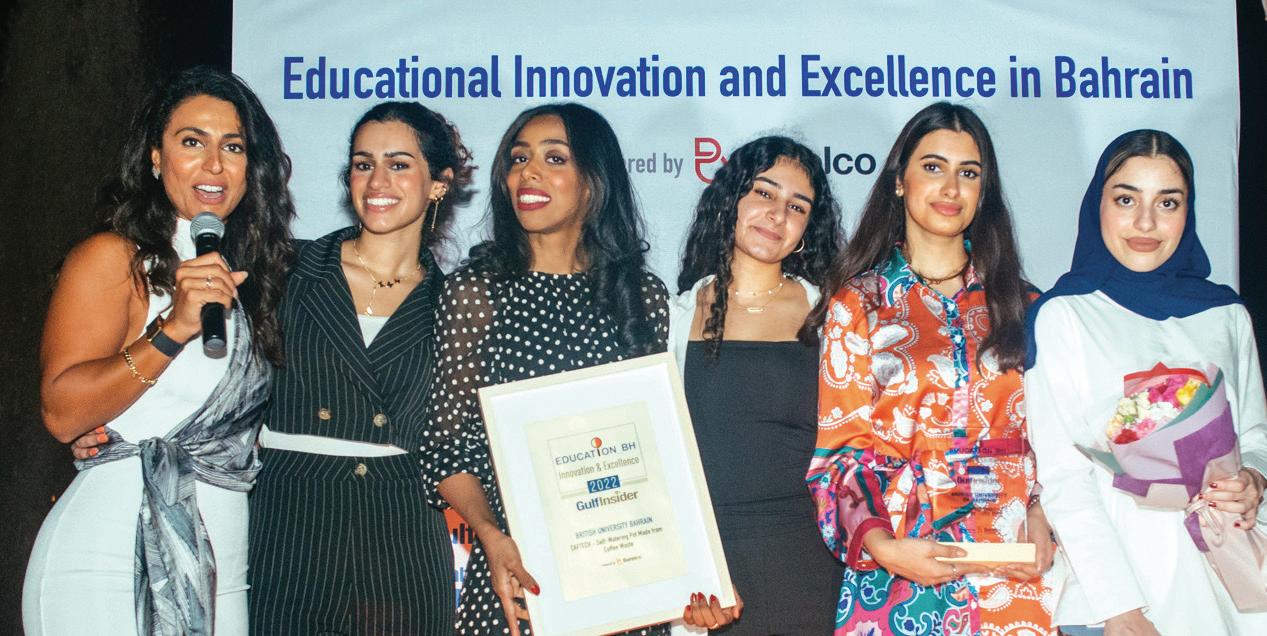
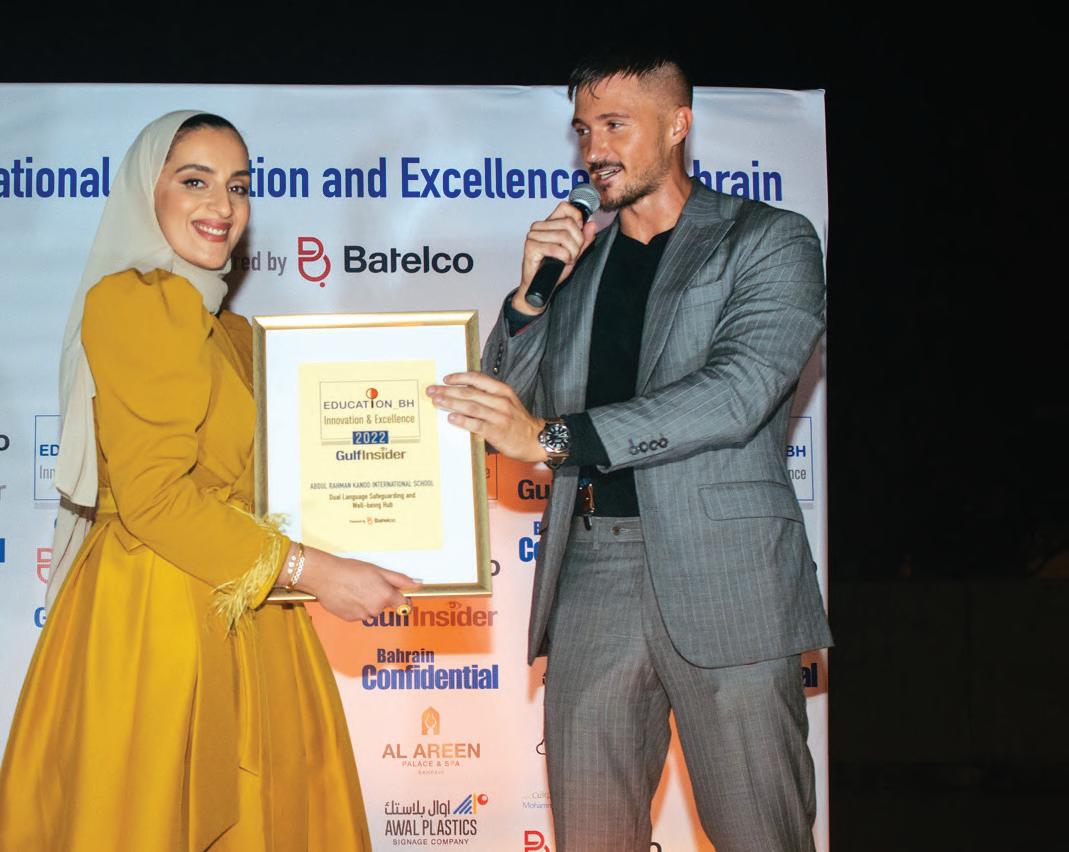
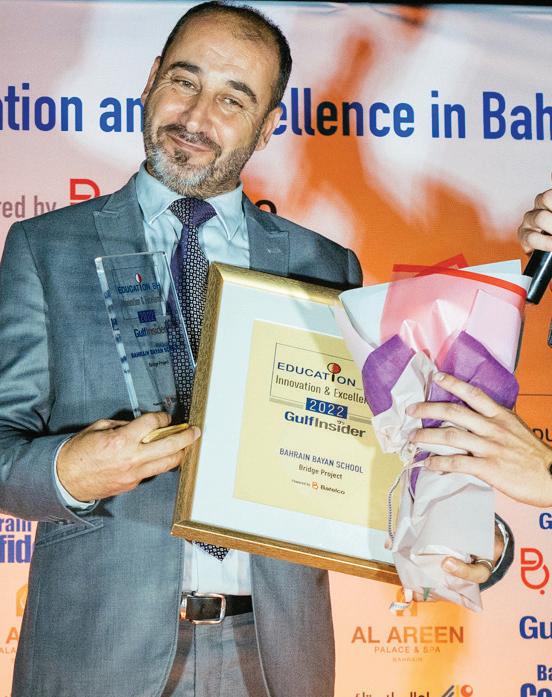
2nd November 2022, in the gardens of Al Areen Palace and Spa
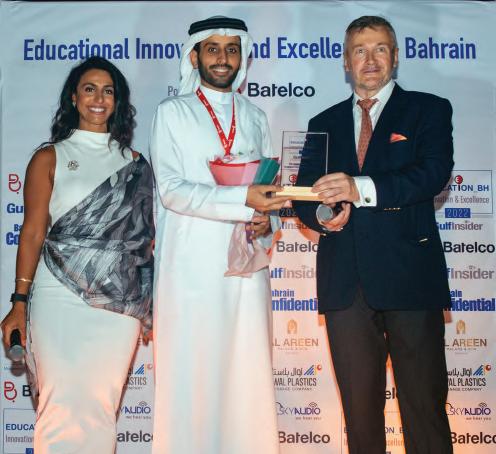
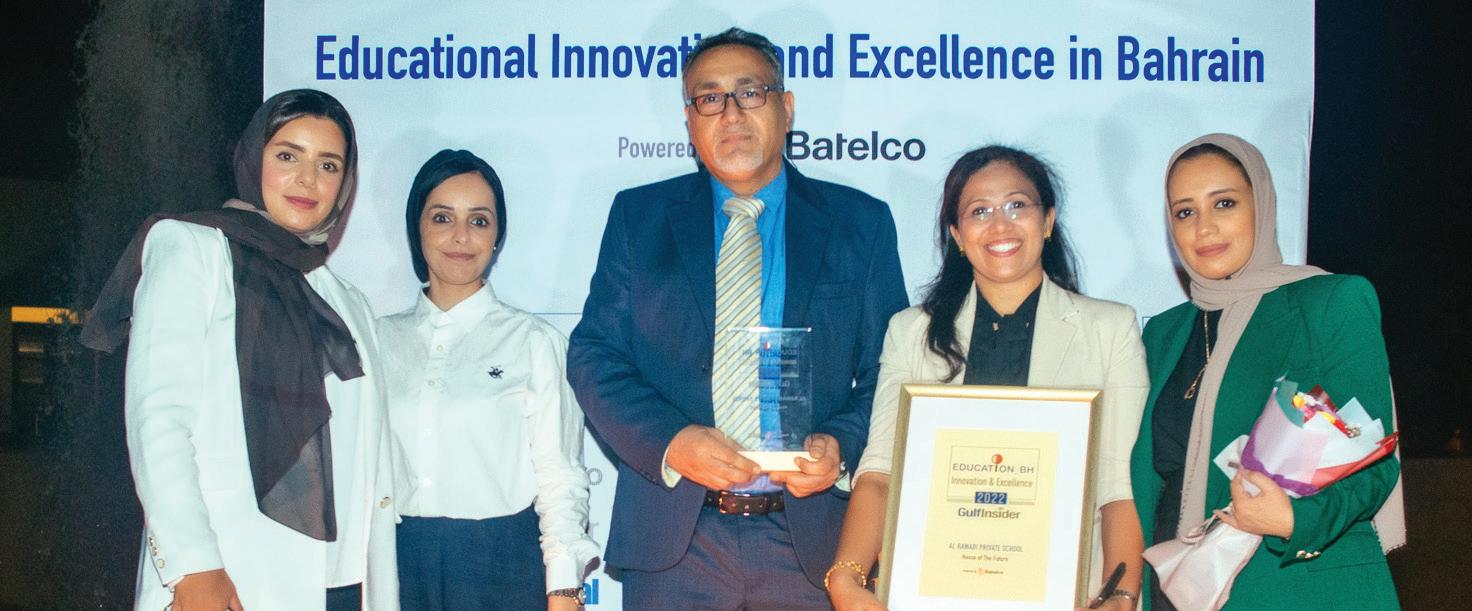

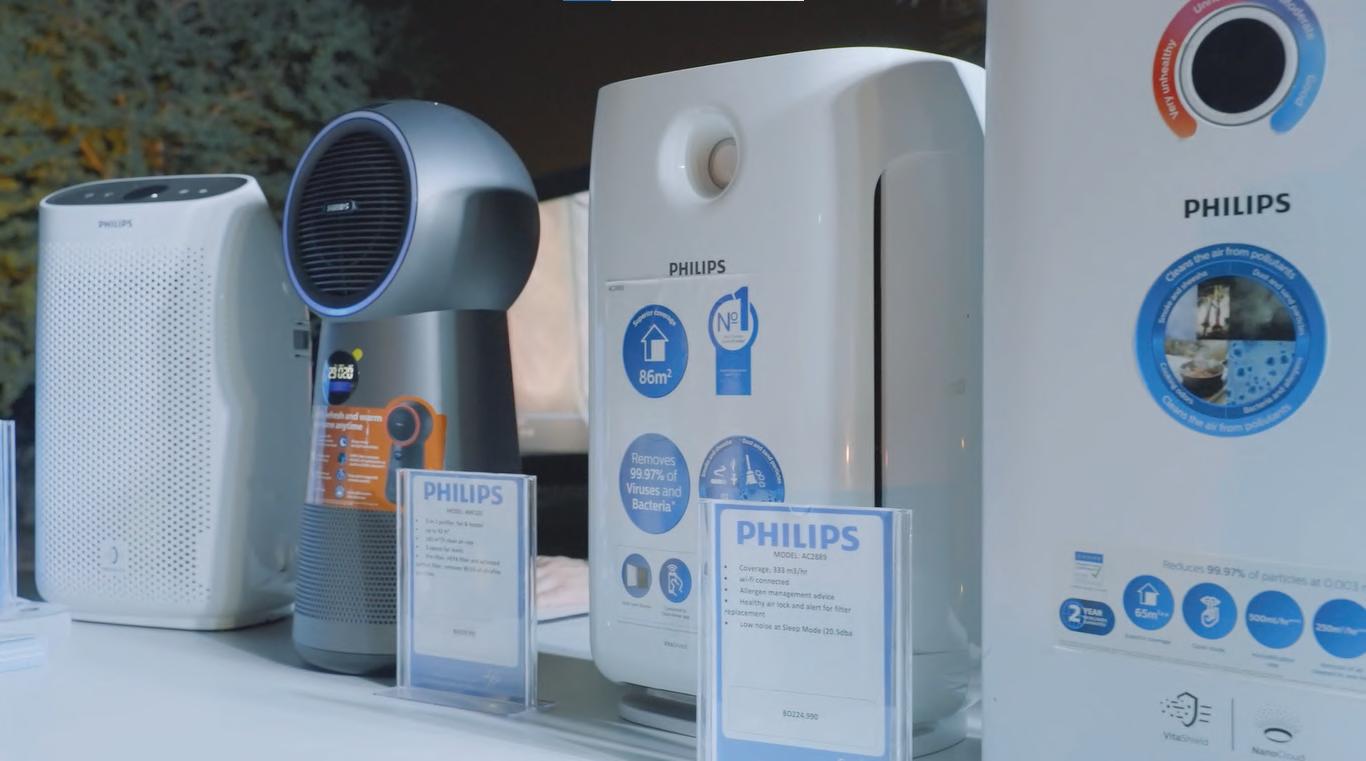
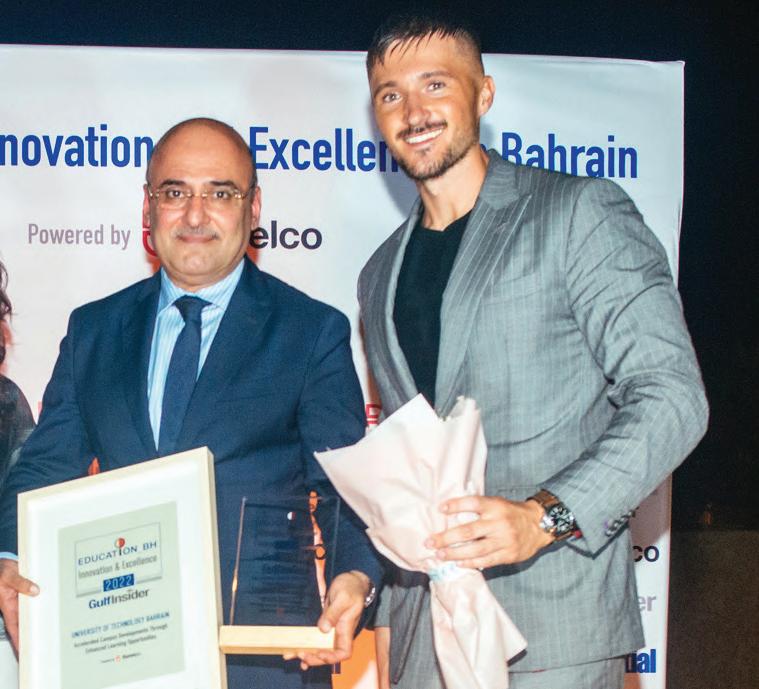
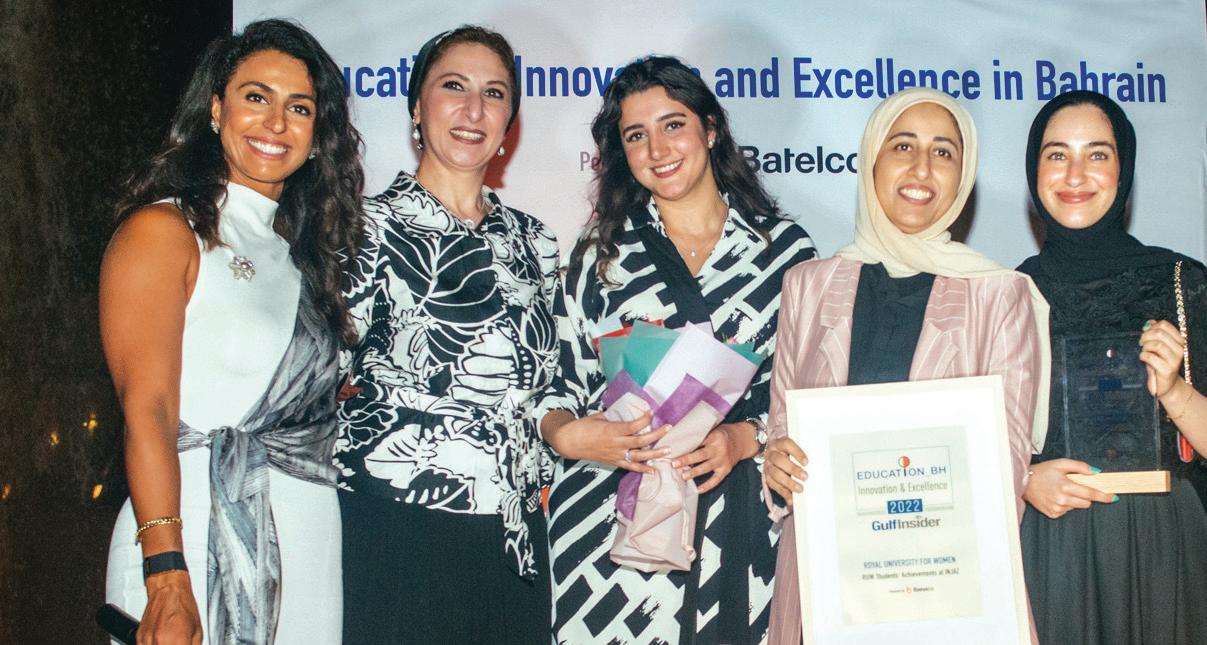
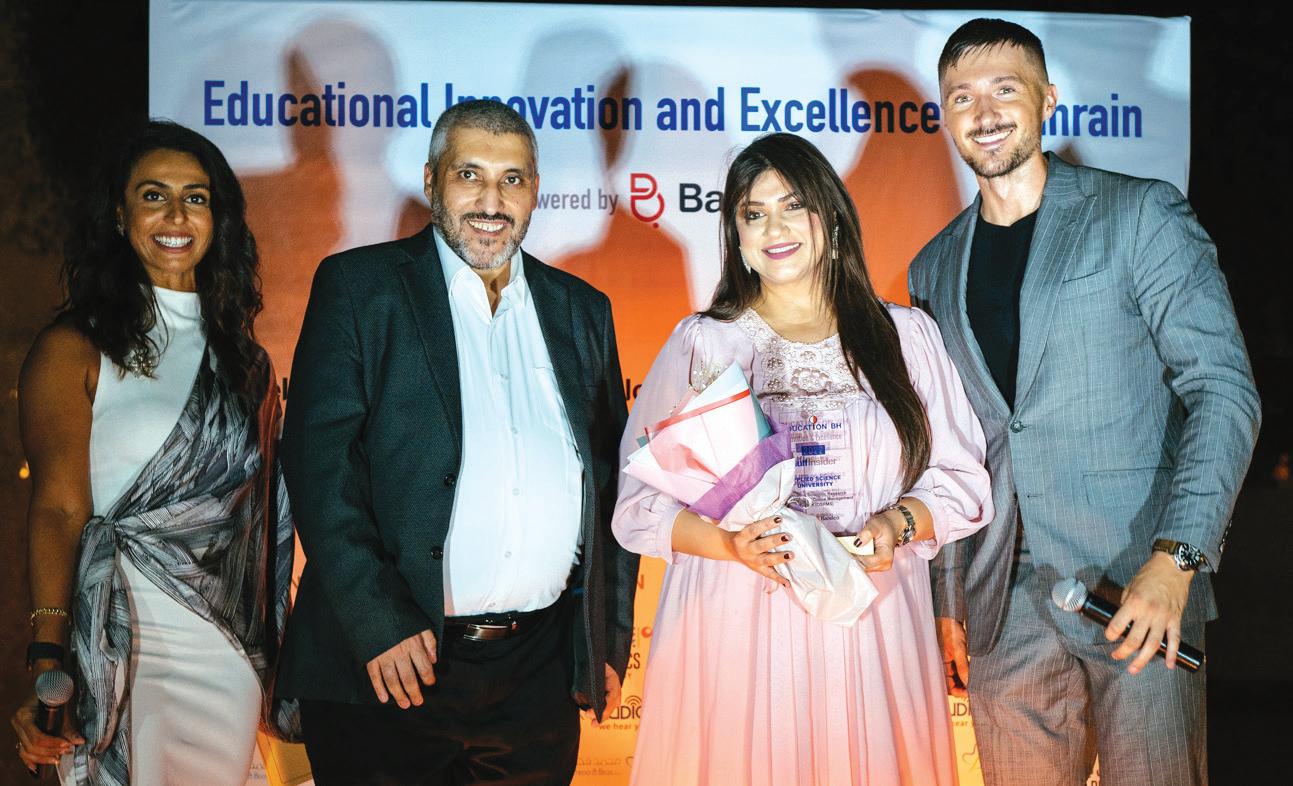
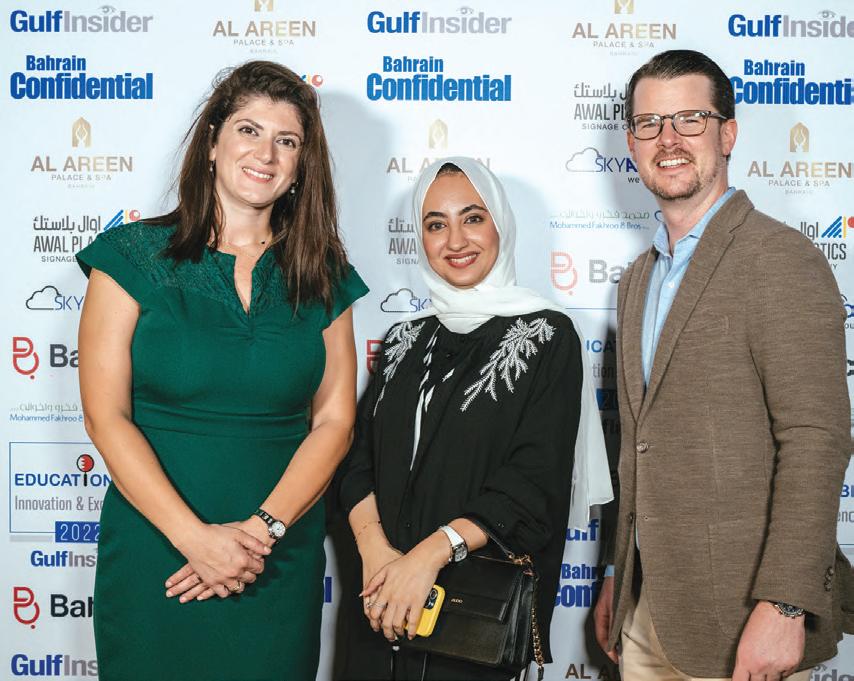
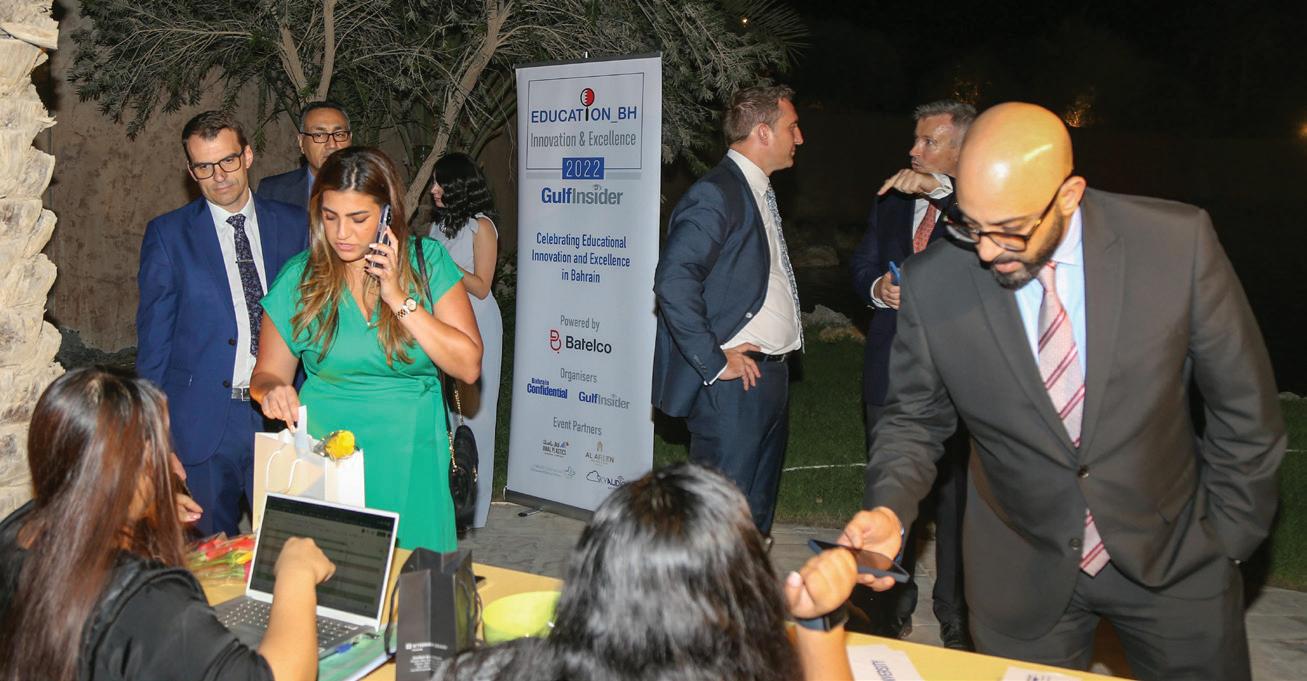
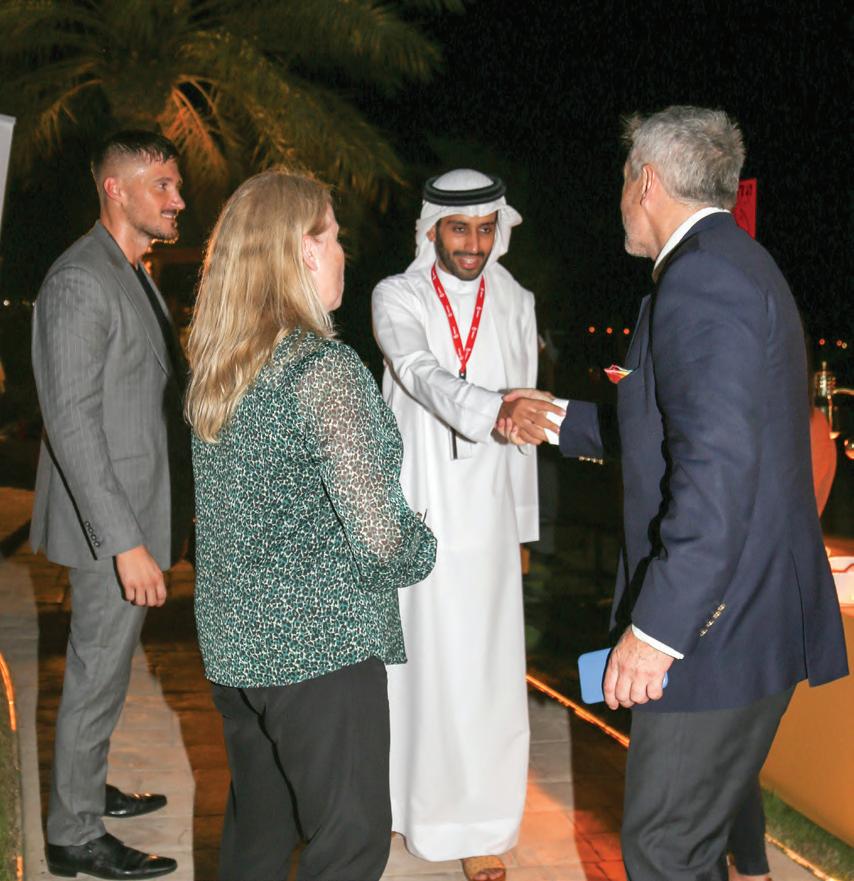
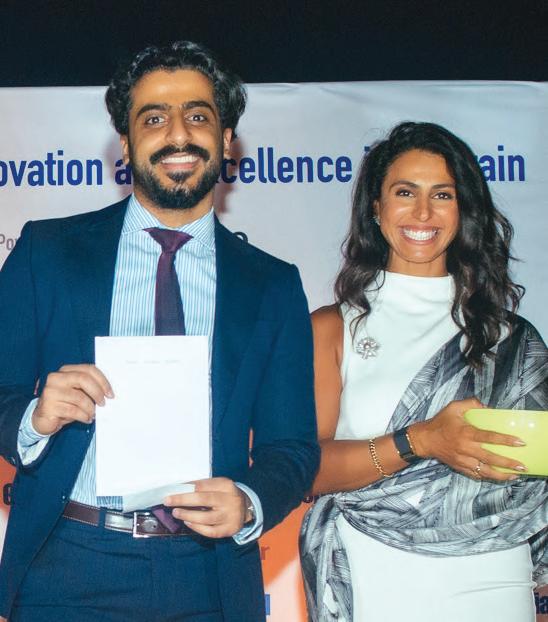
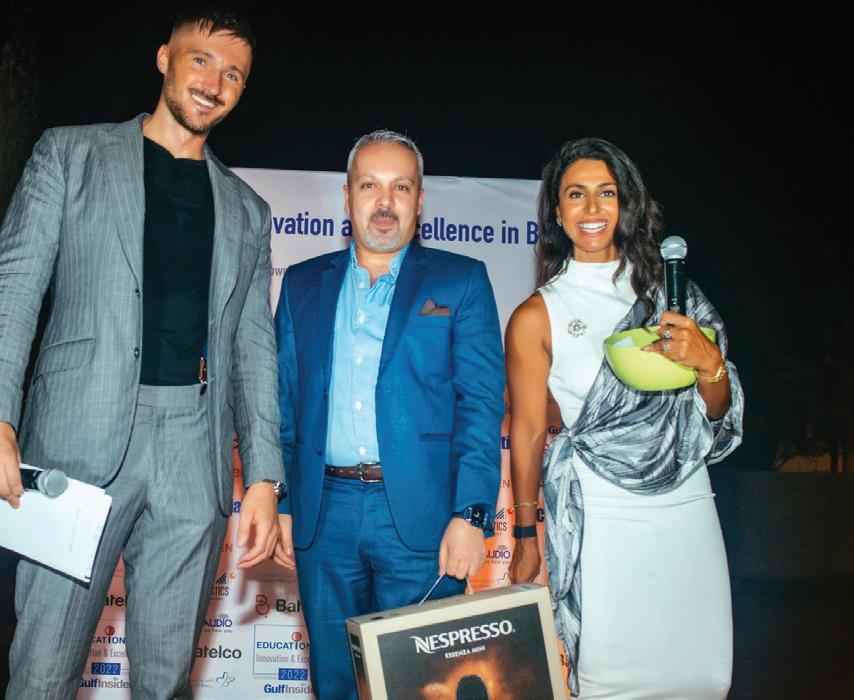
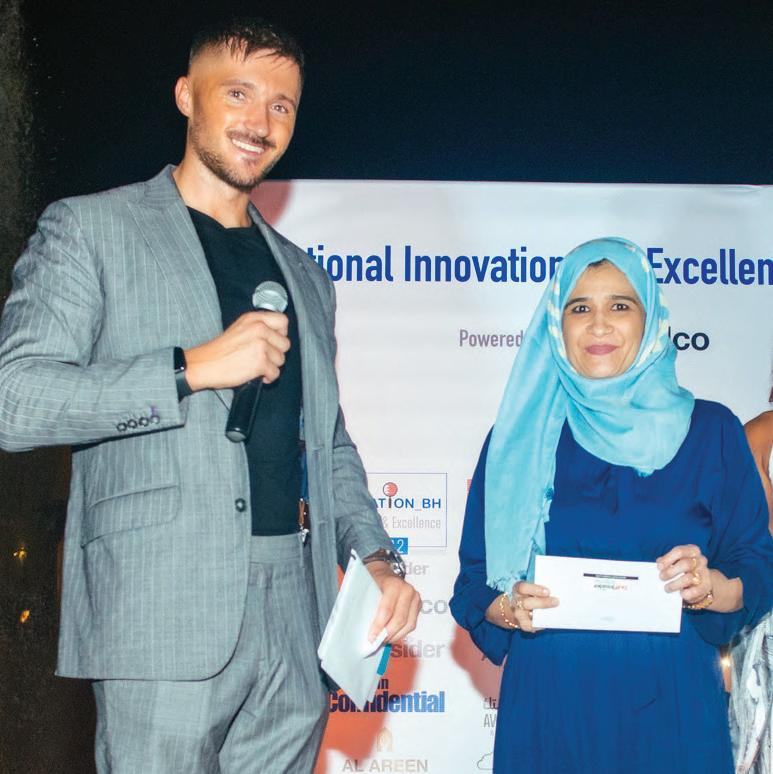
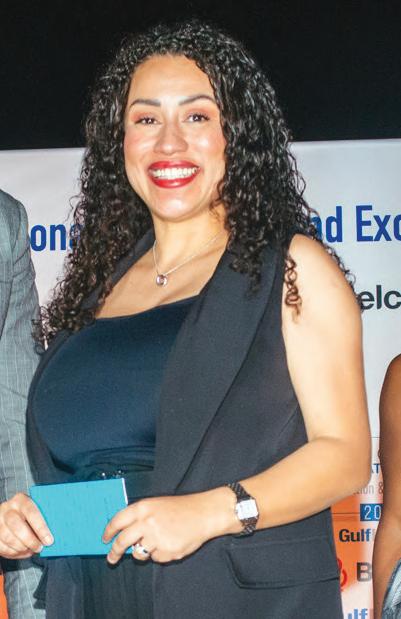
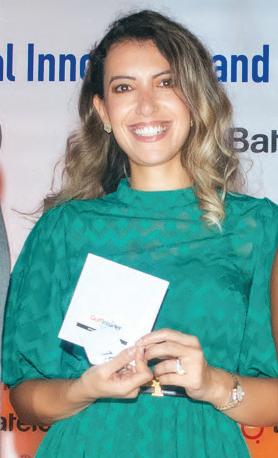
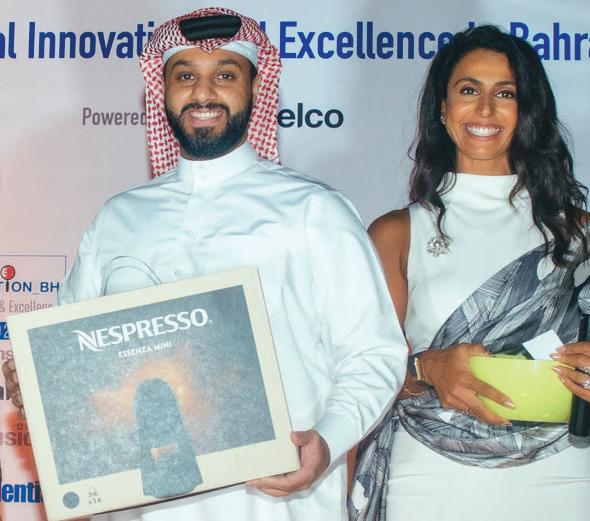

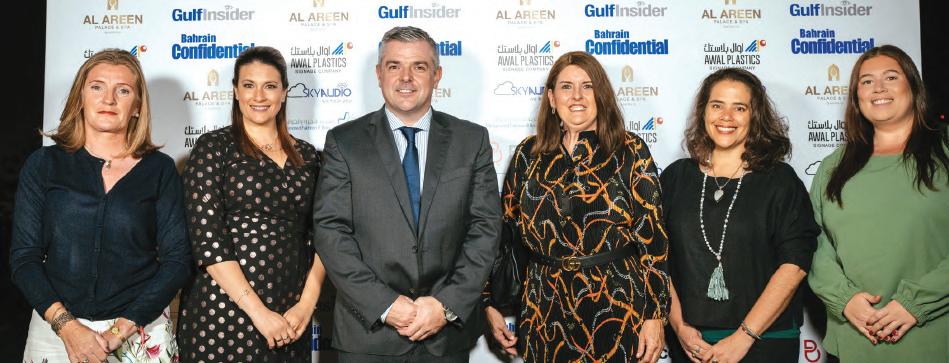
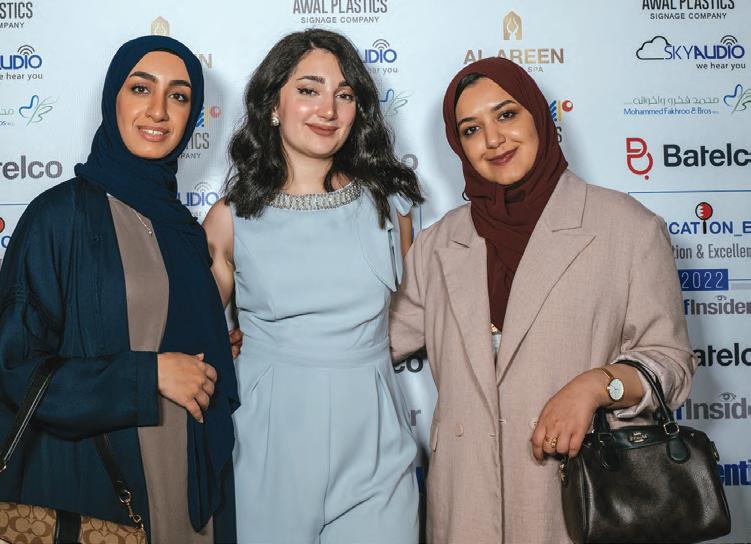
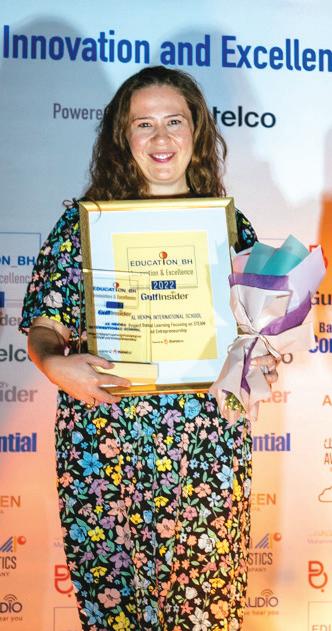
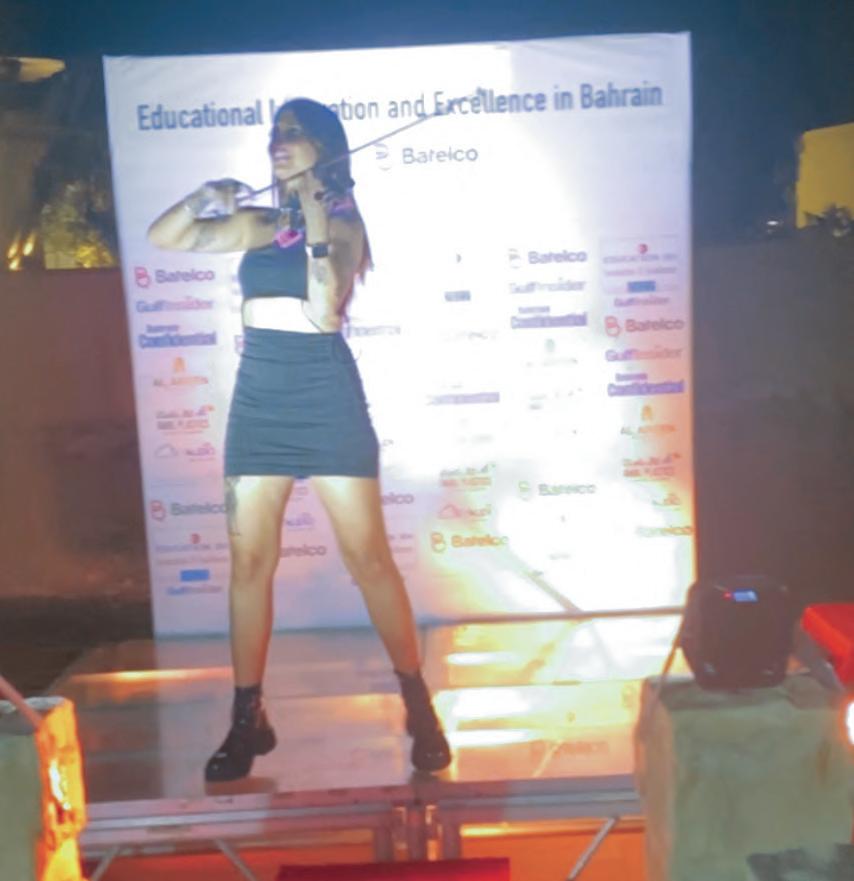
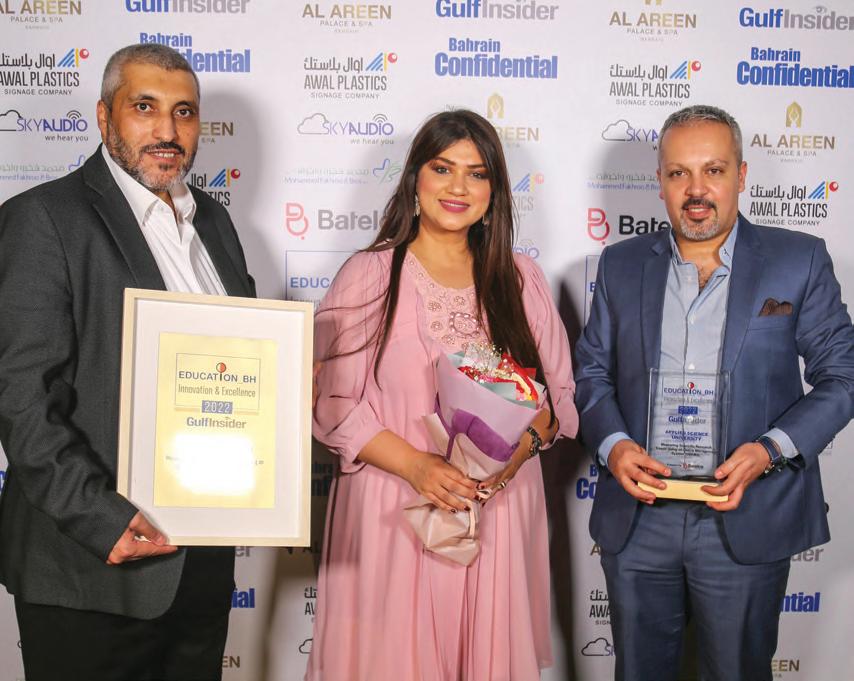
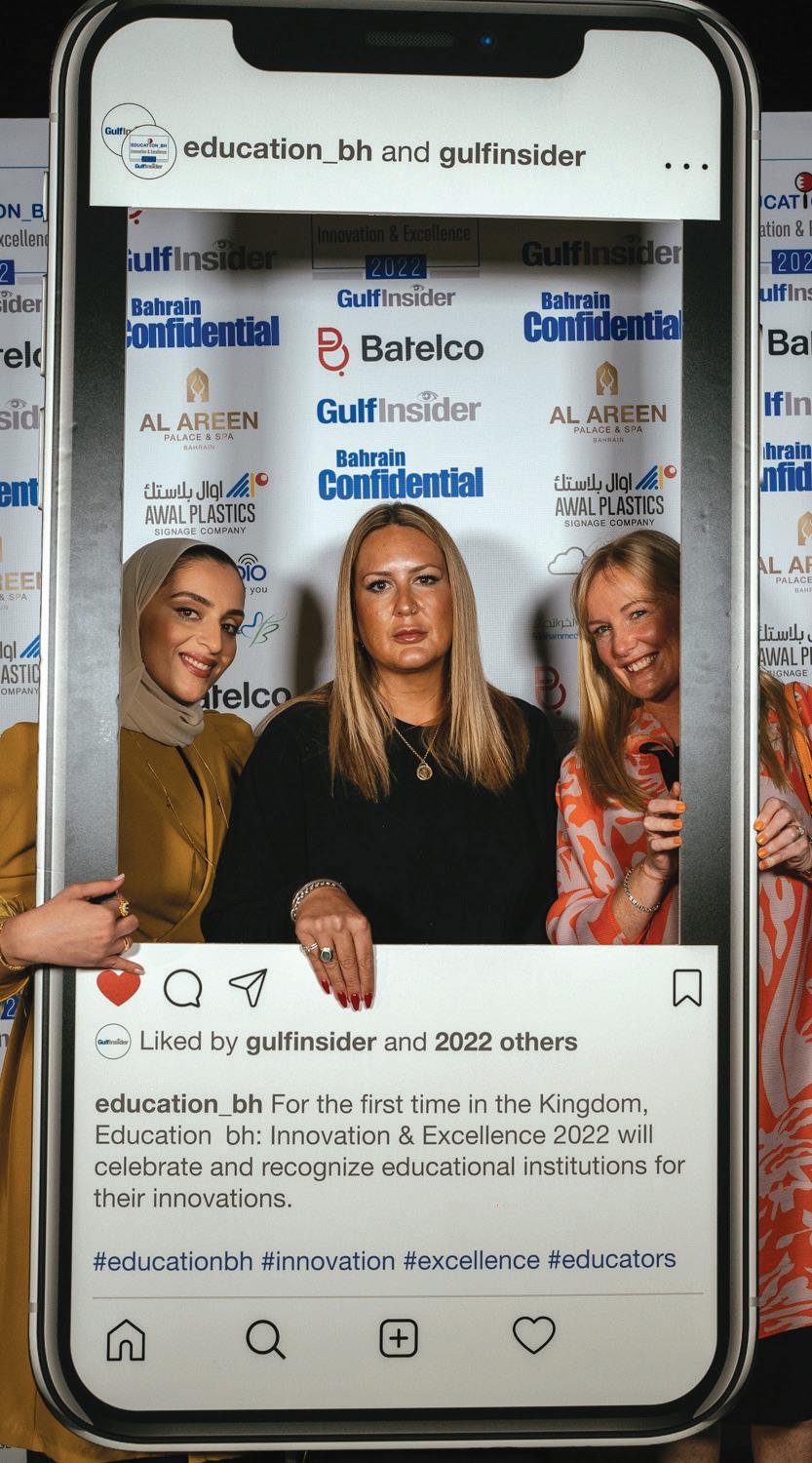
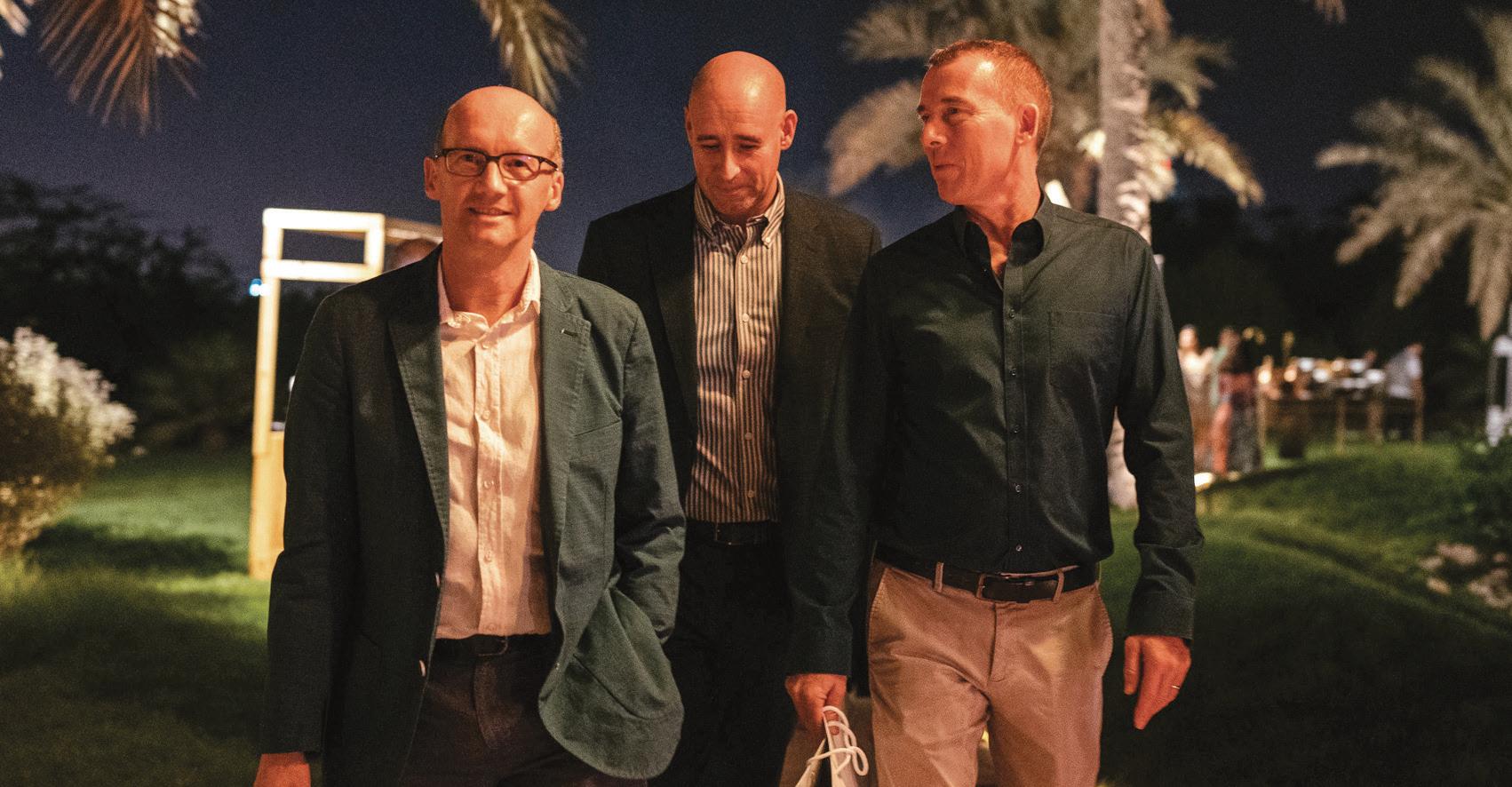
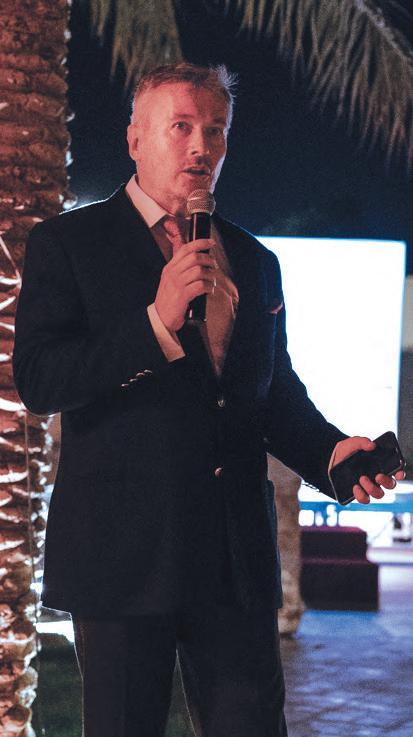
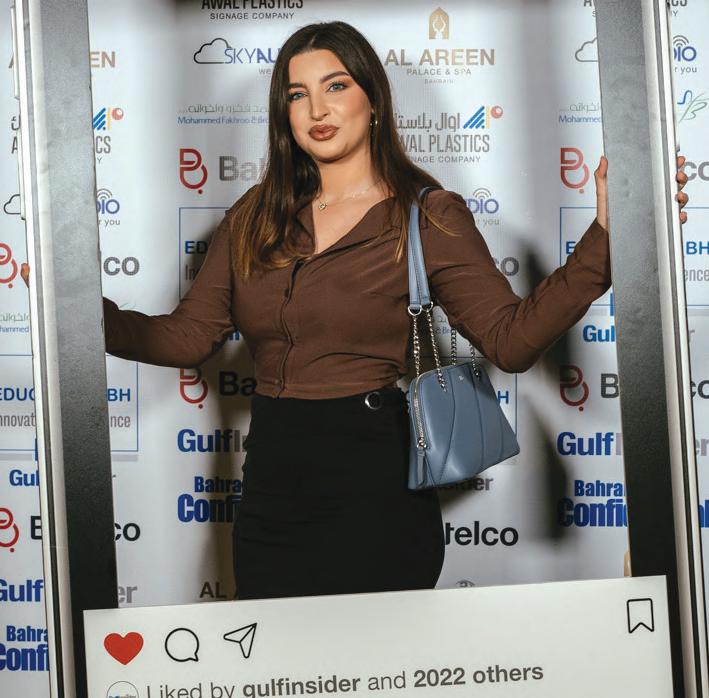
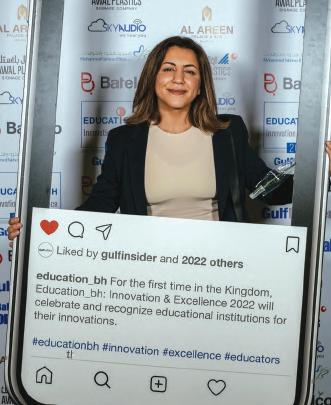

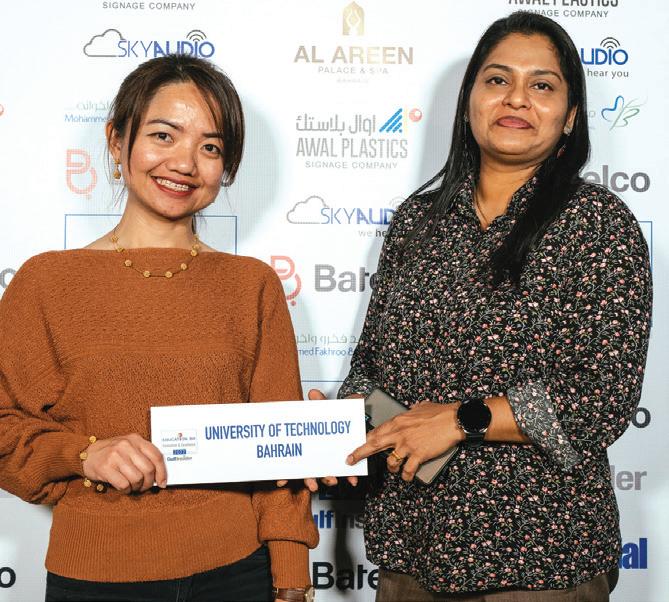
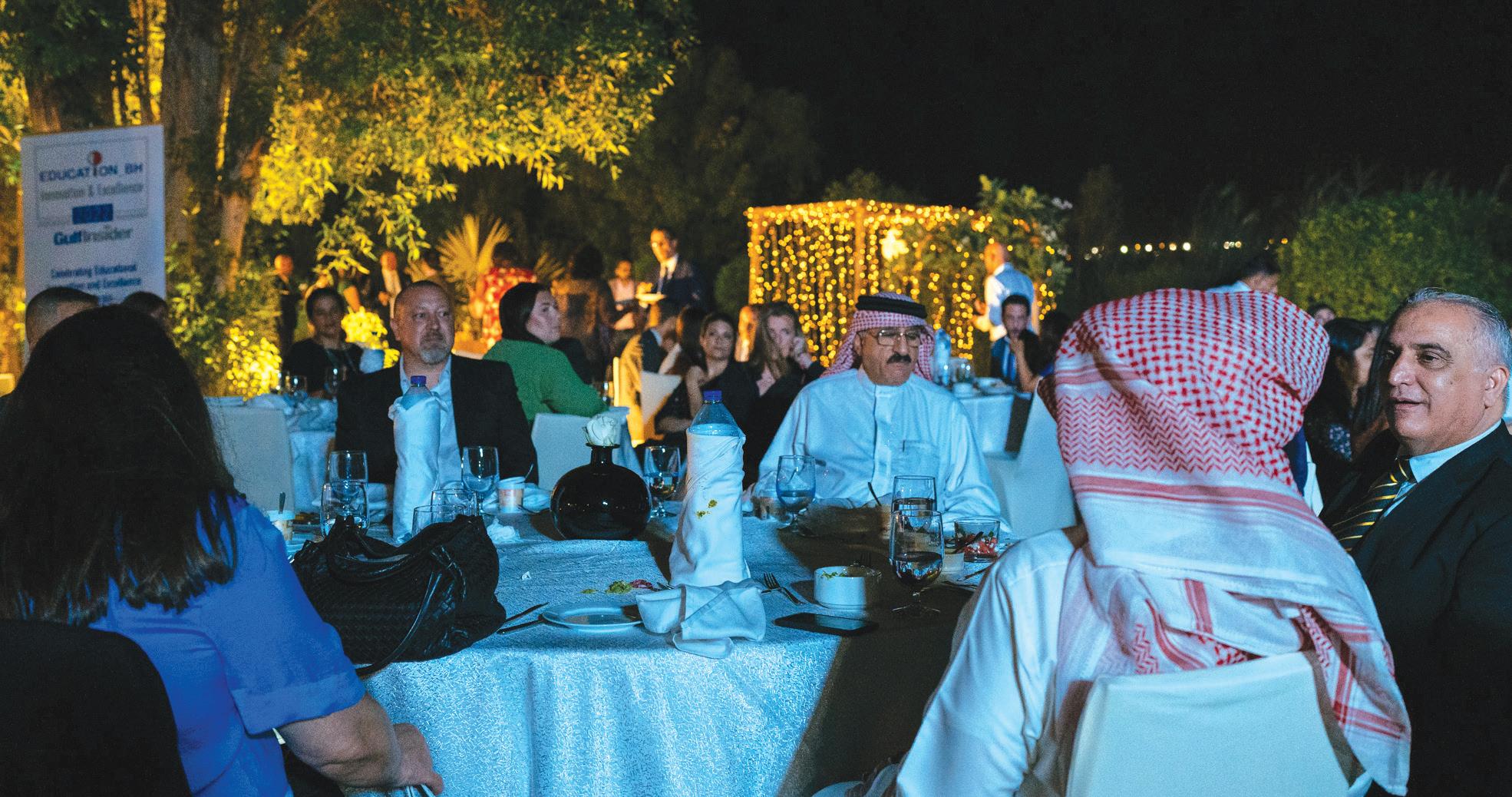
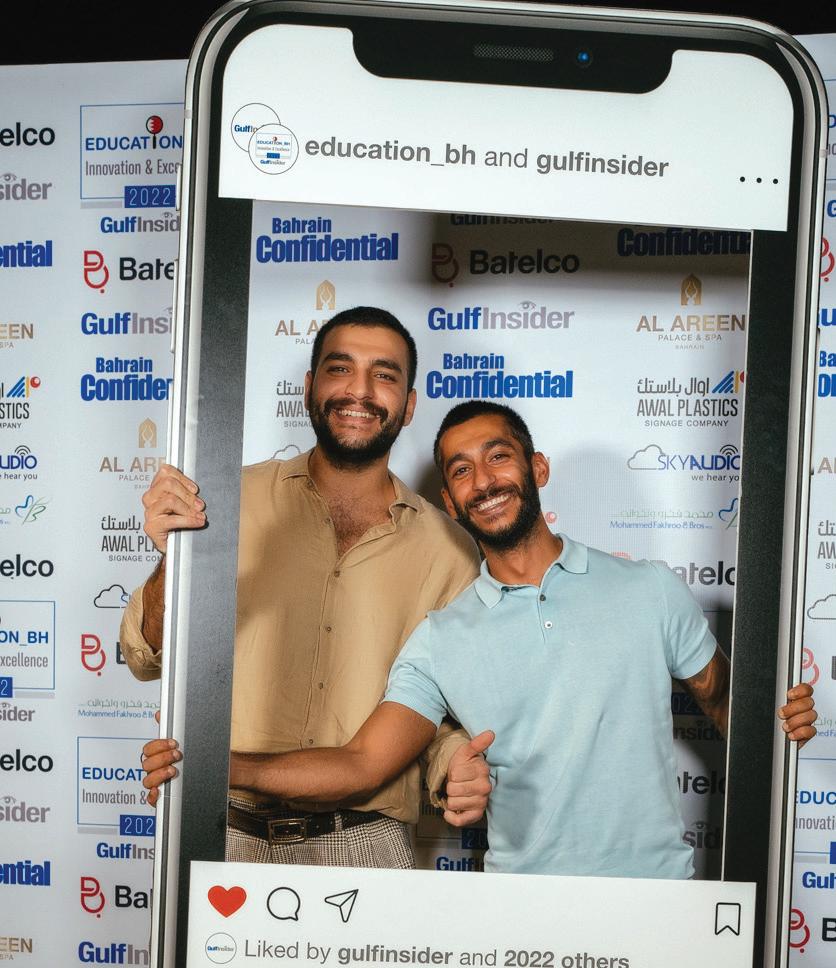
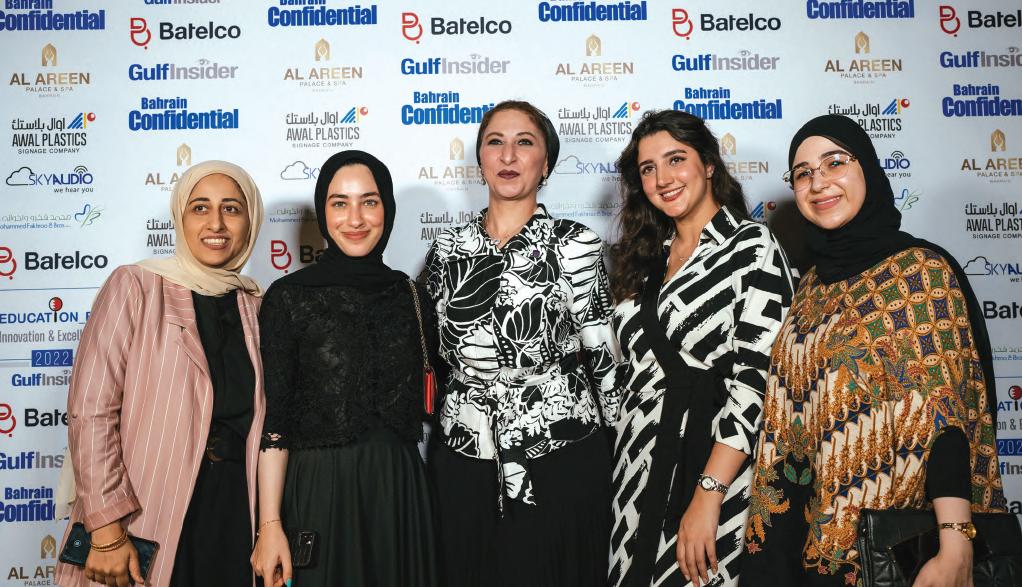
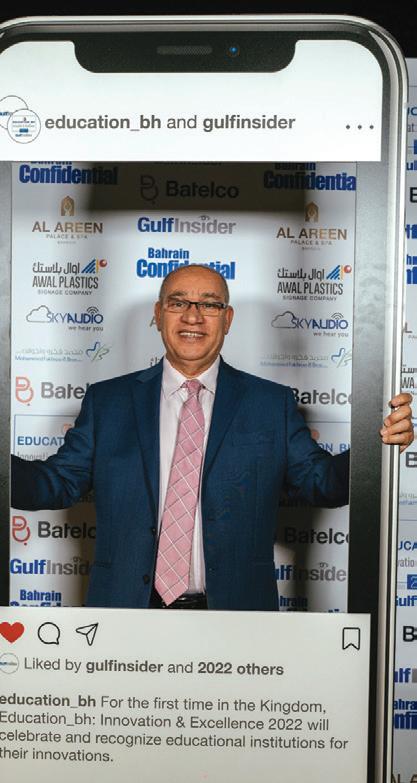
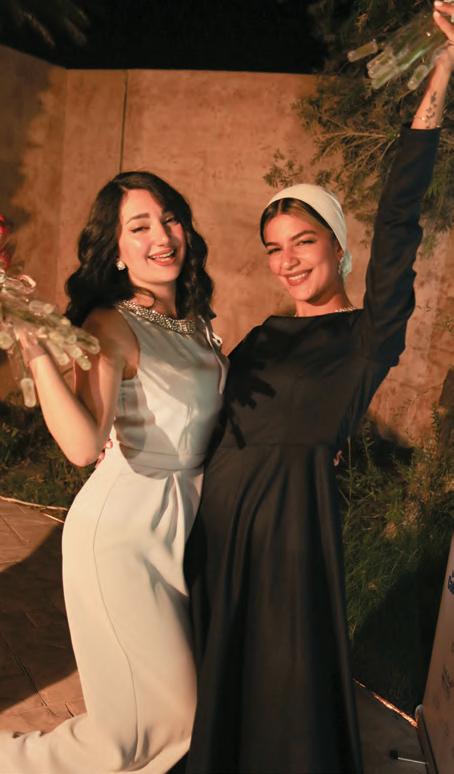
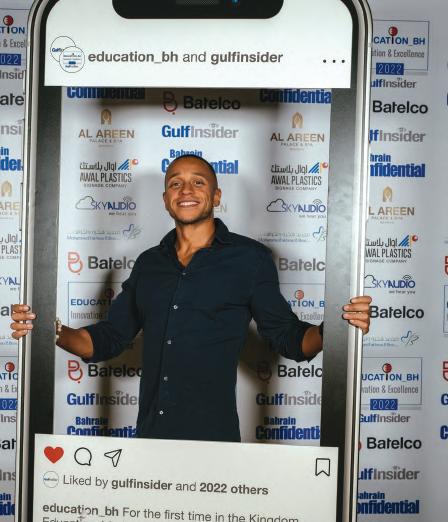
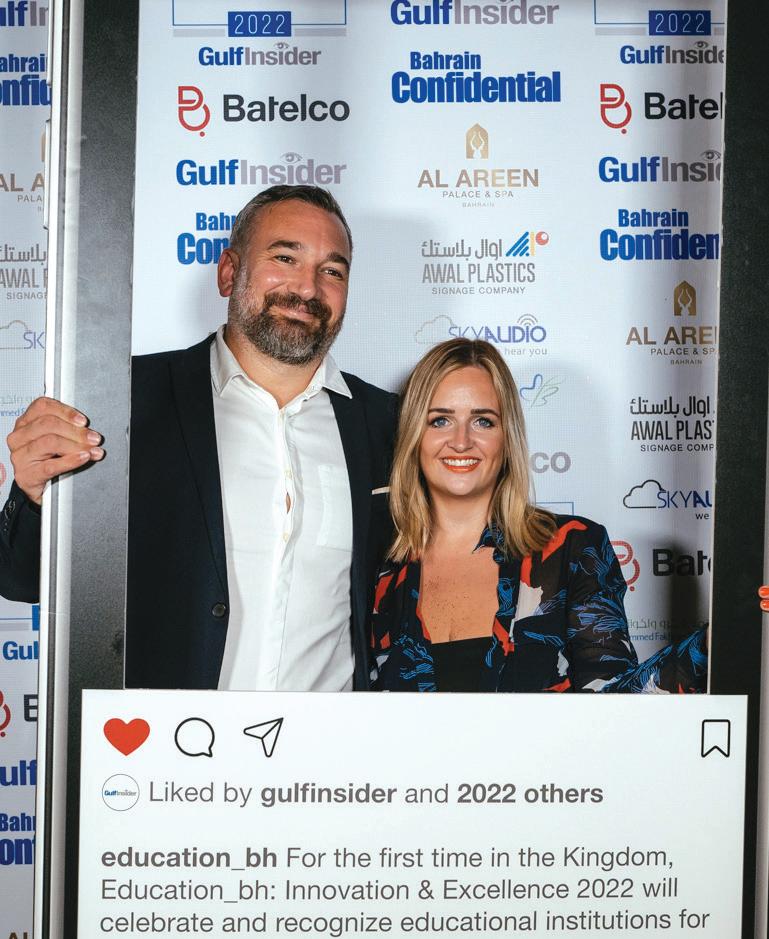
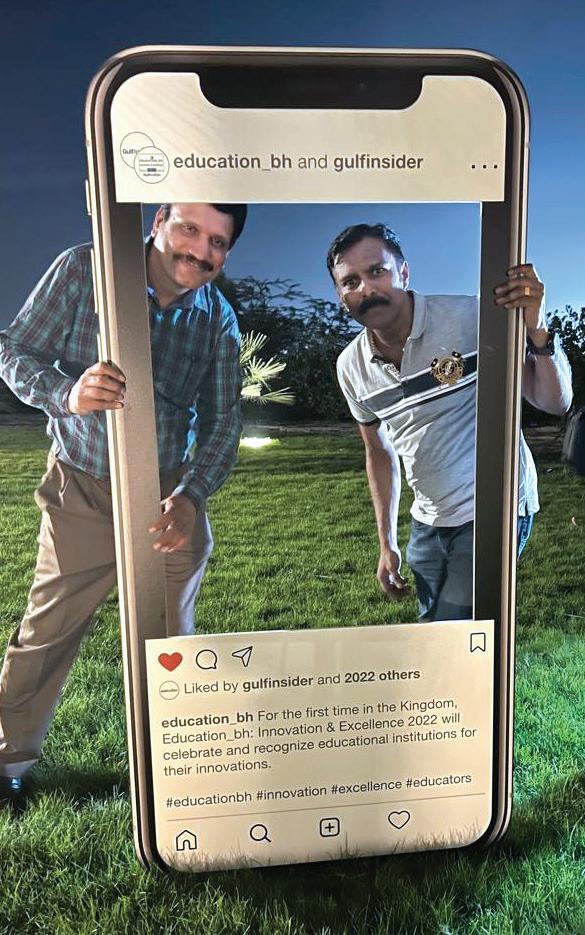
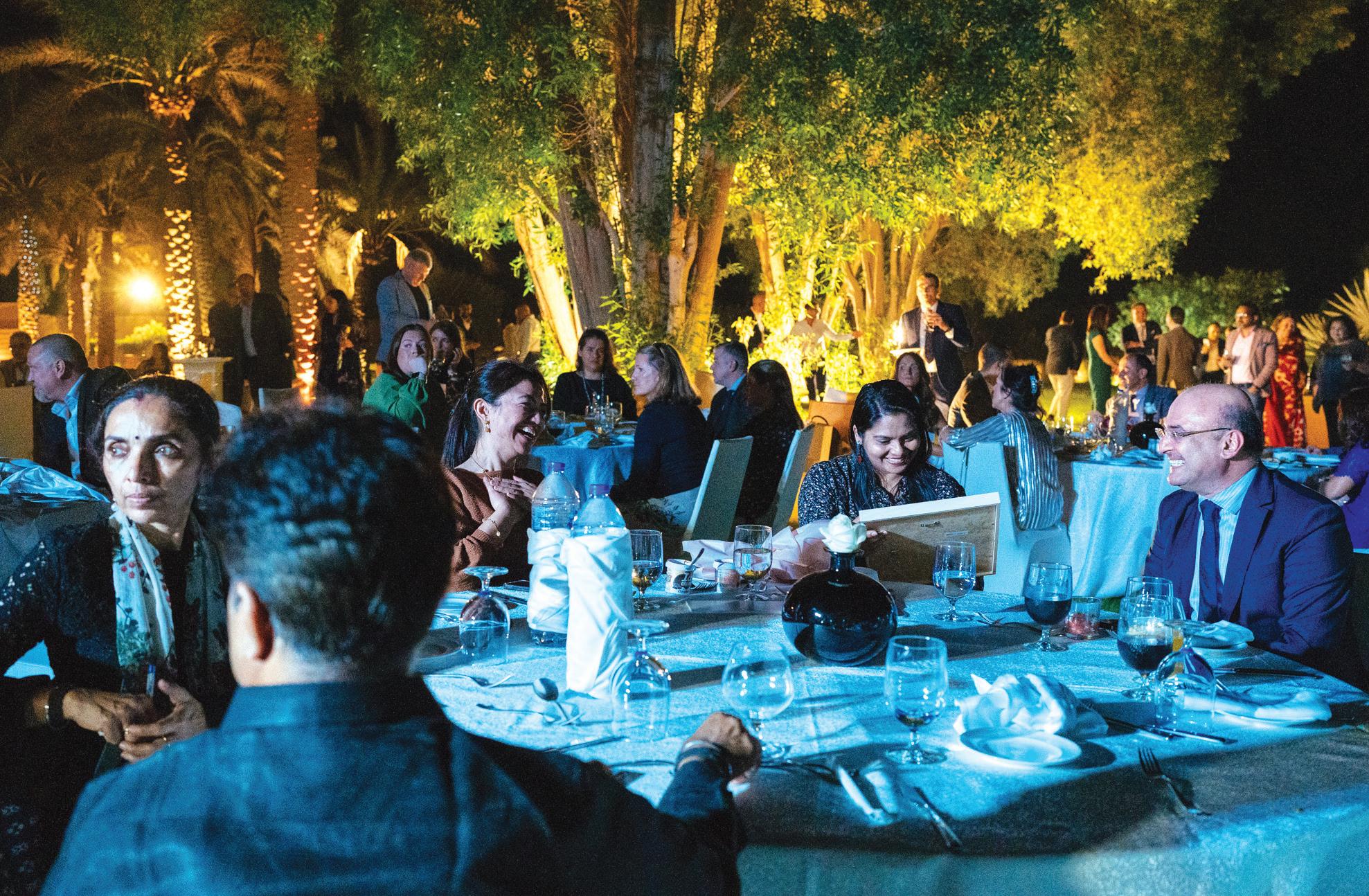
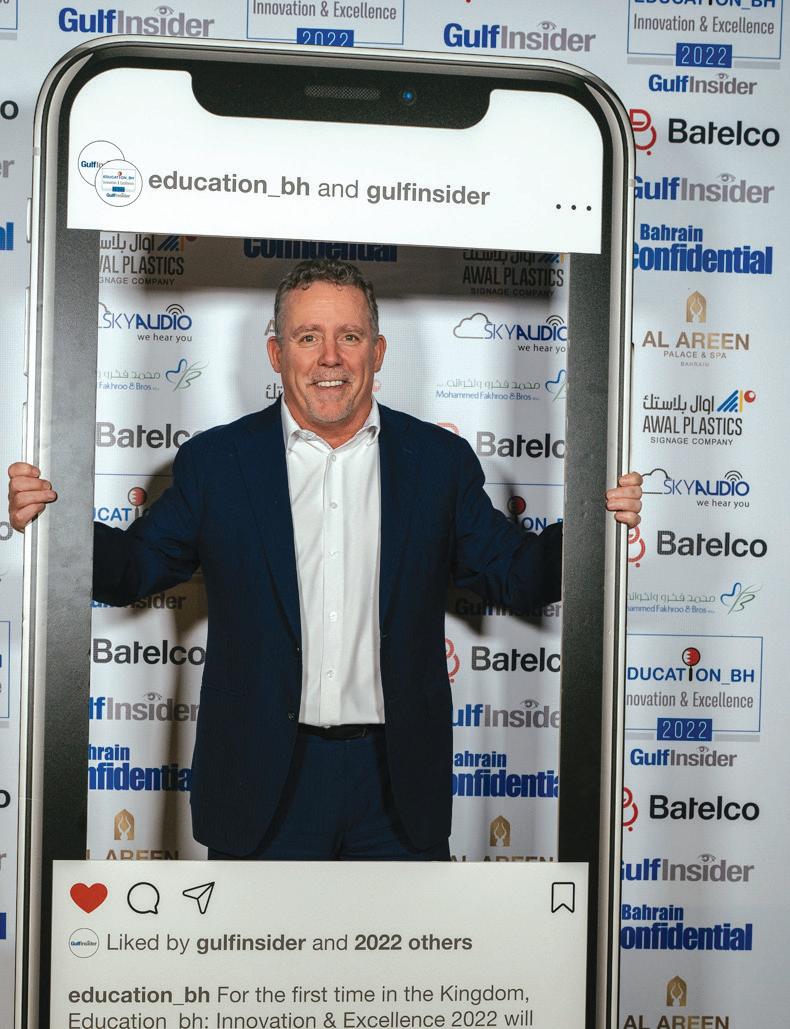
Most businesses in Bahrain lack advanced digital and social media marketing skills to expertly manage a successful digital strategy, so missing major opportunities they don’t even realize. The good news is we can inexpensively create an effective digital strategy for your business, and manage it for you, for less than the salary of an employee - freeing you to run your business. We also build beautiful websitesoptimized to generate income for businesses, and provide online services including SEO, design, e-commerce, photography and video production.

We would like to thank our main sponsor Batelco for making this initiative possible.
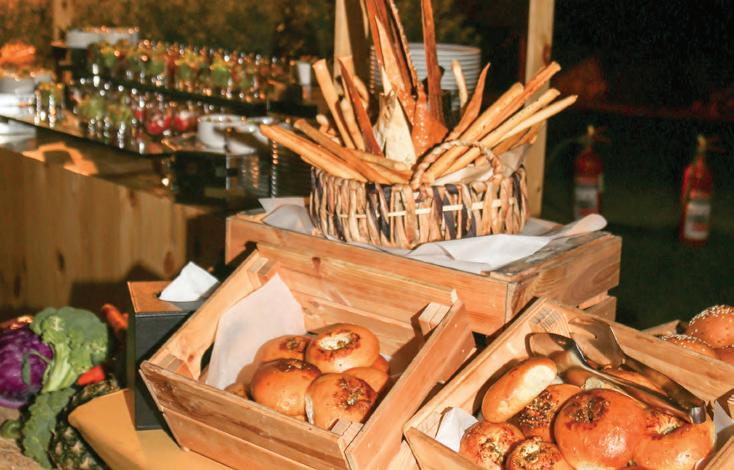

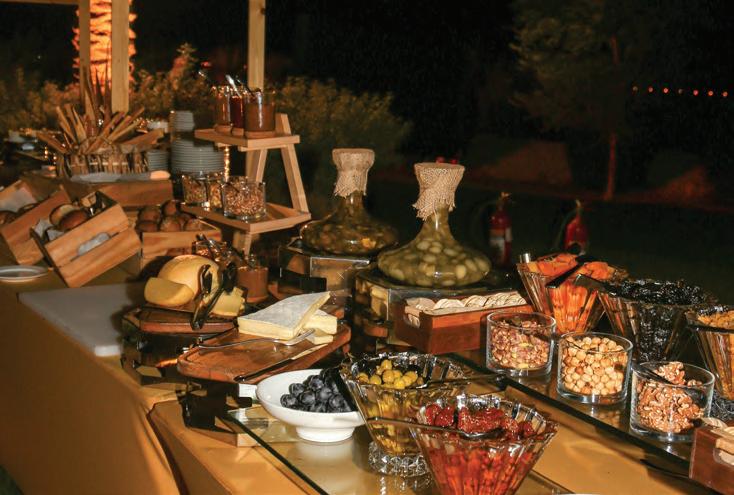
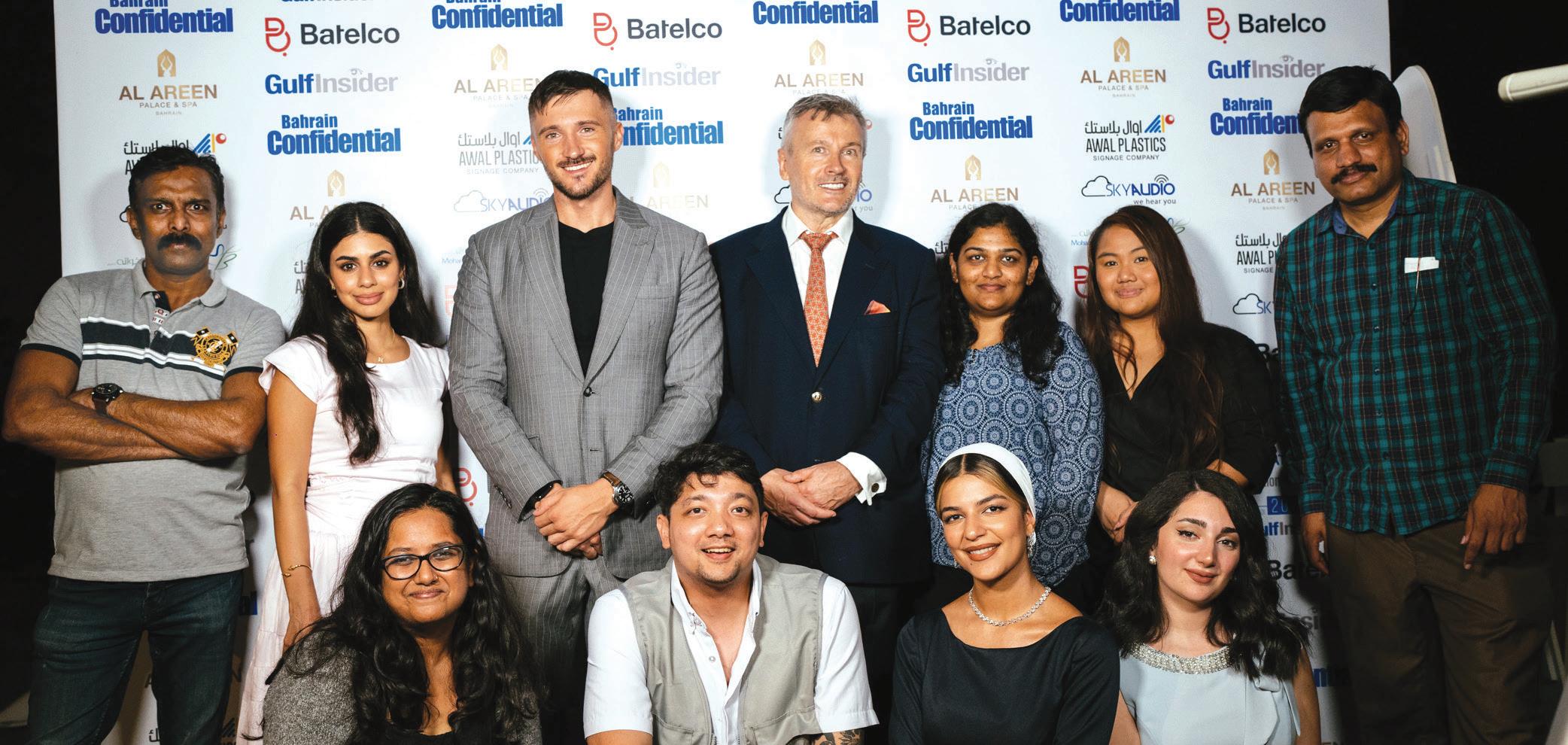
Also, thanks to Mohammed Fakhroo and Brothers, Awal Plastics, Sky Audio, and Al Areen Palace and Spa who partnered with us for our celebratory event on 2nd November 2022.
